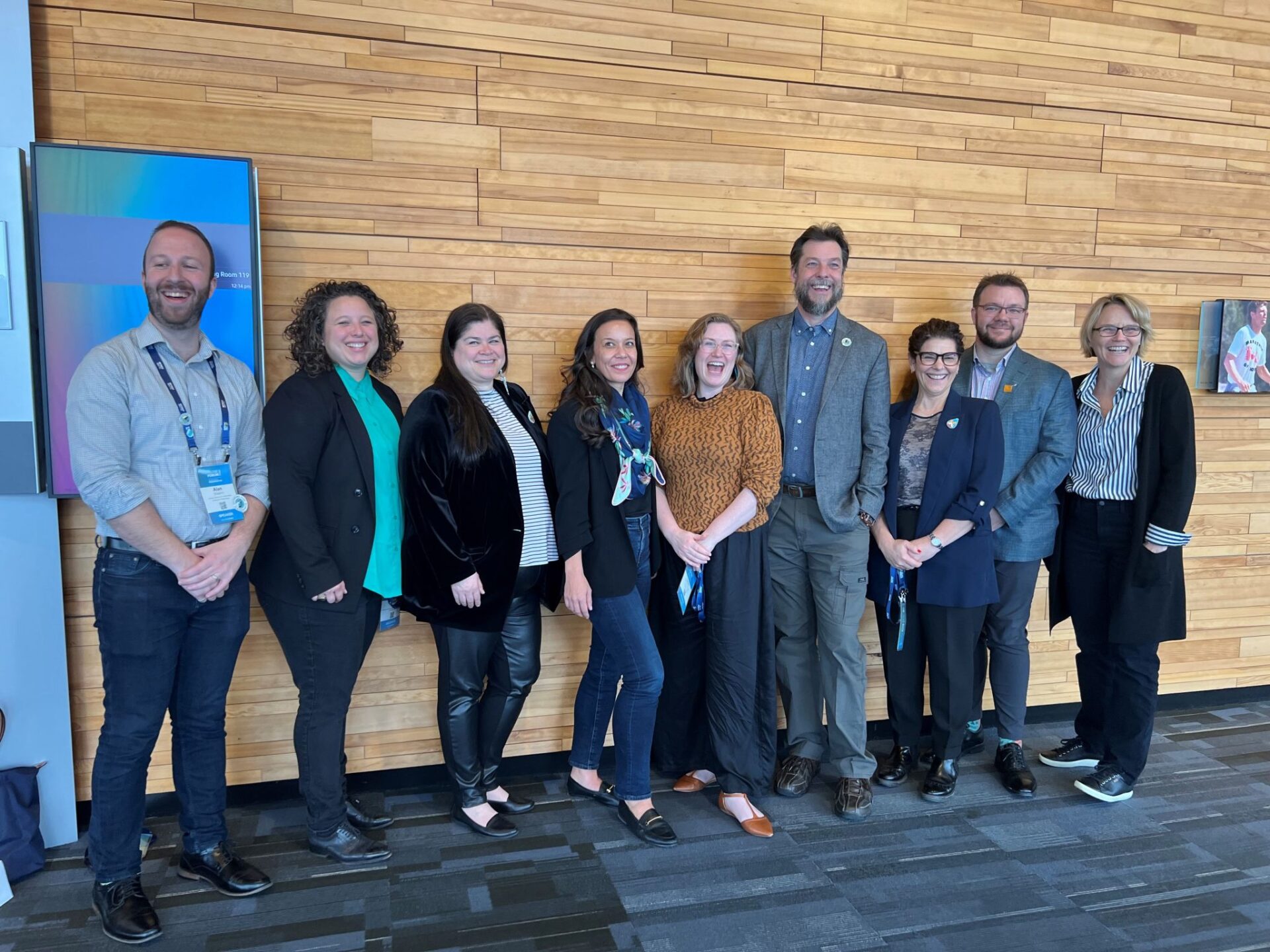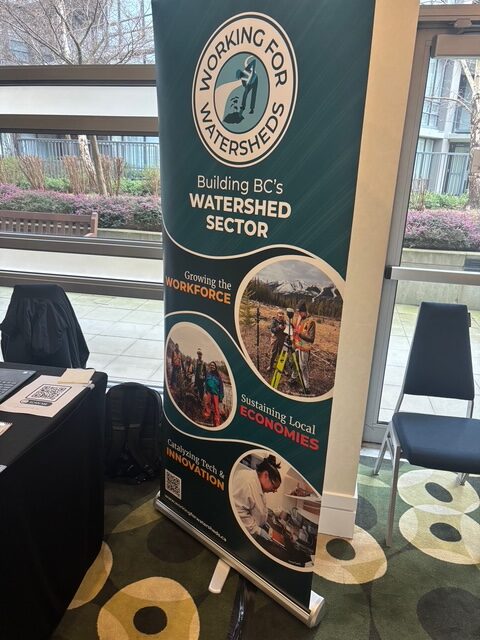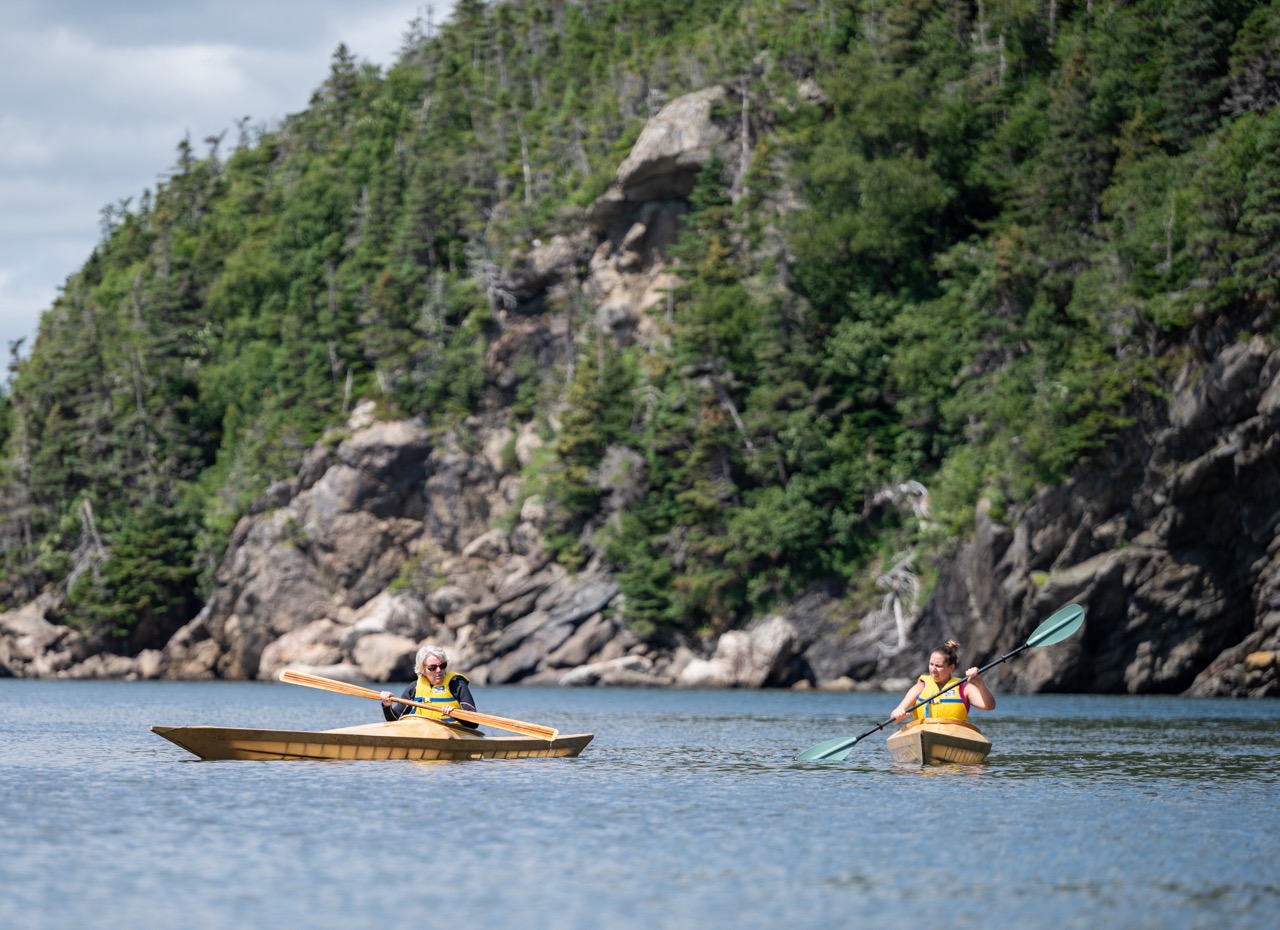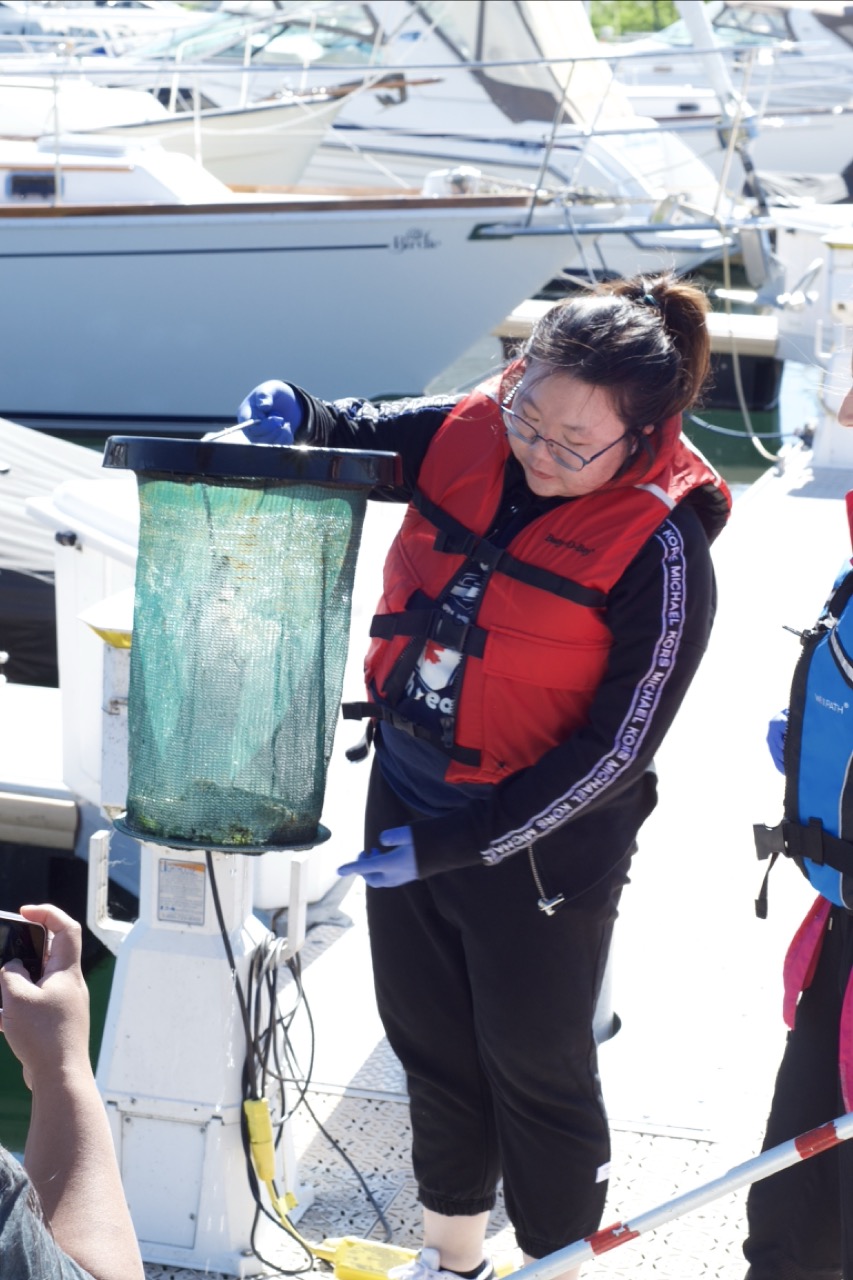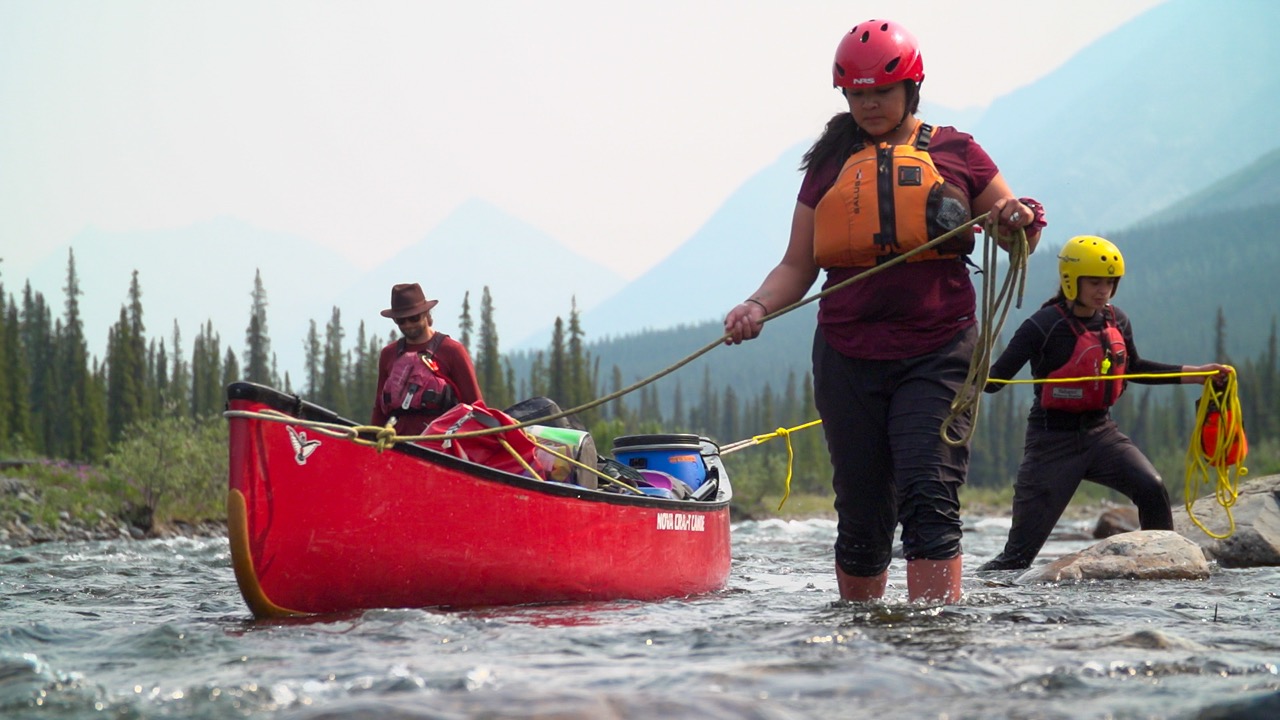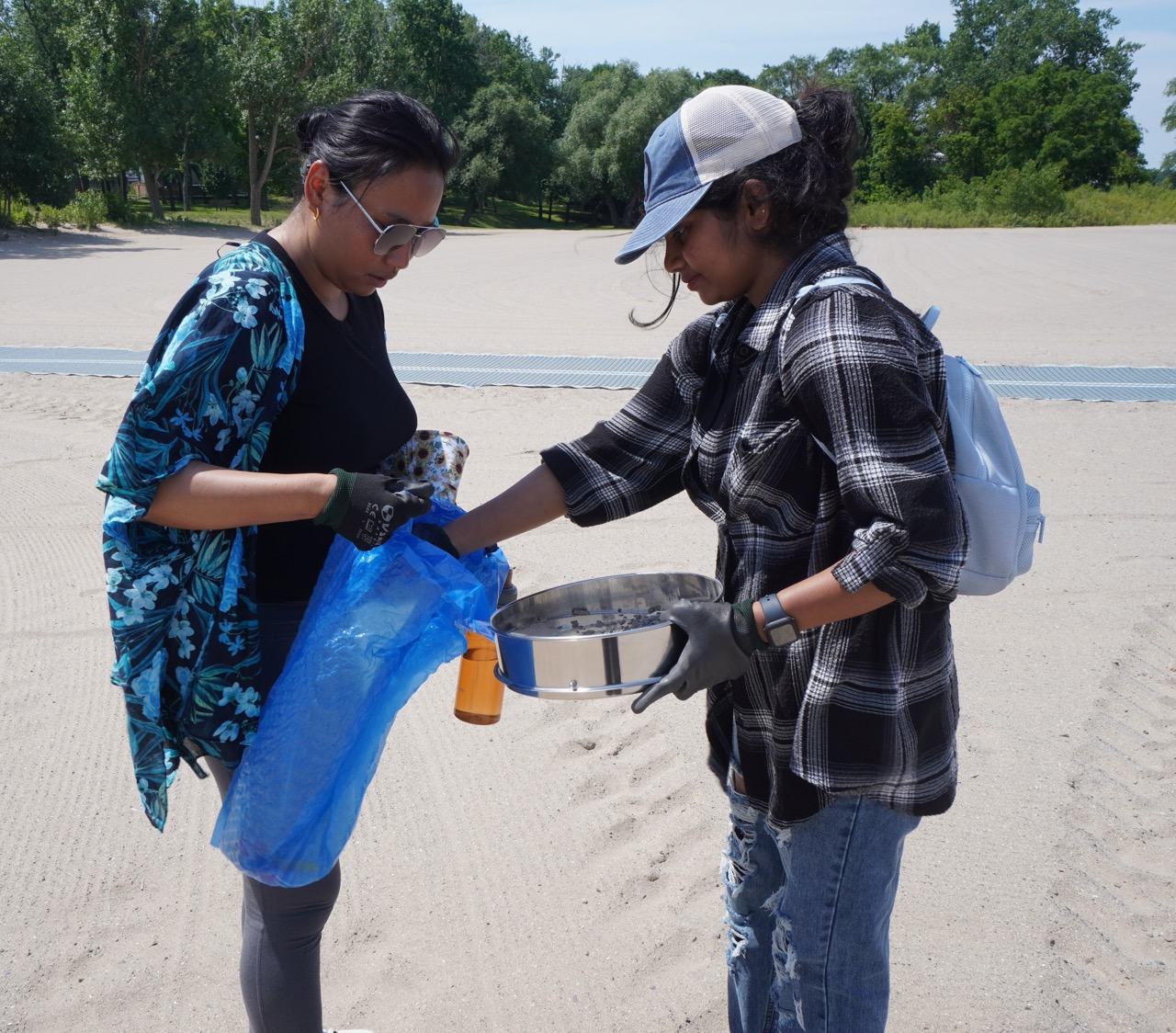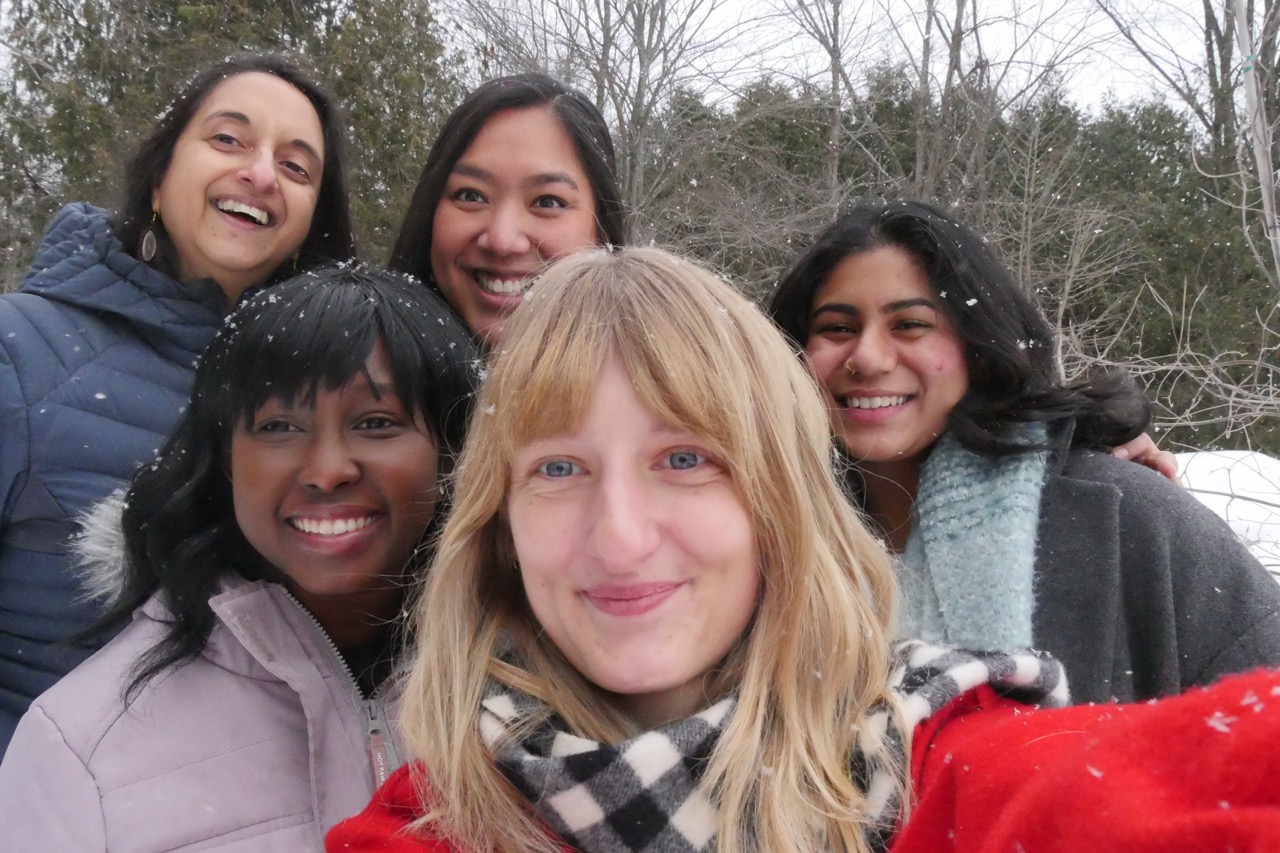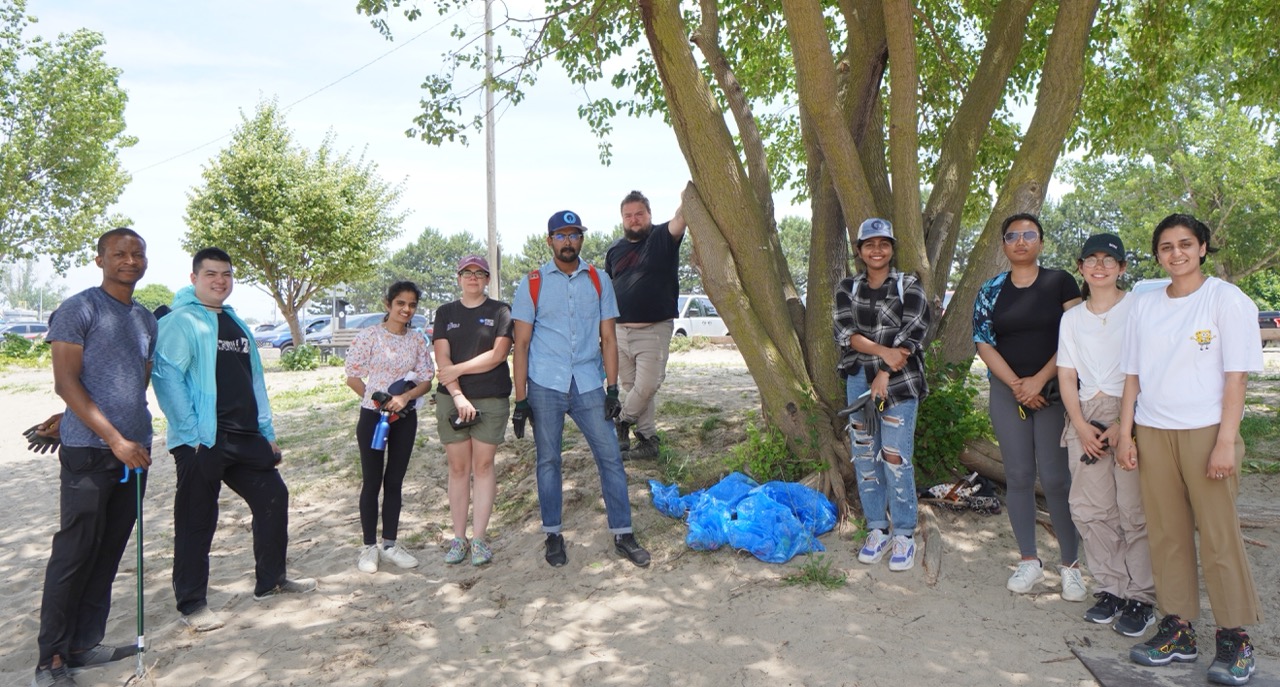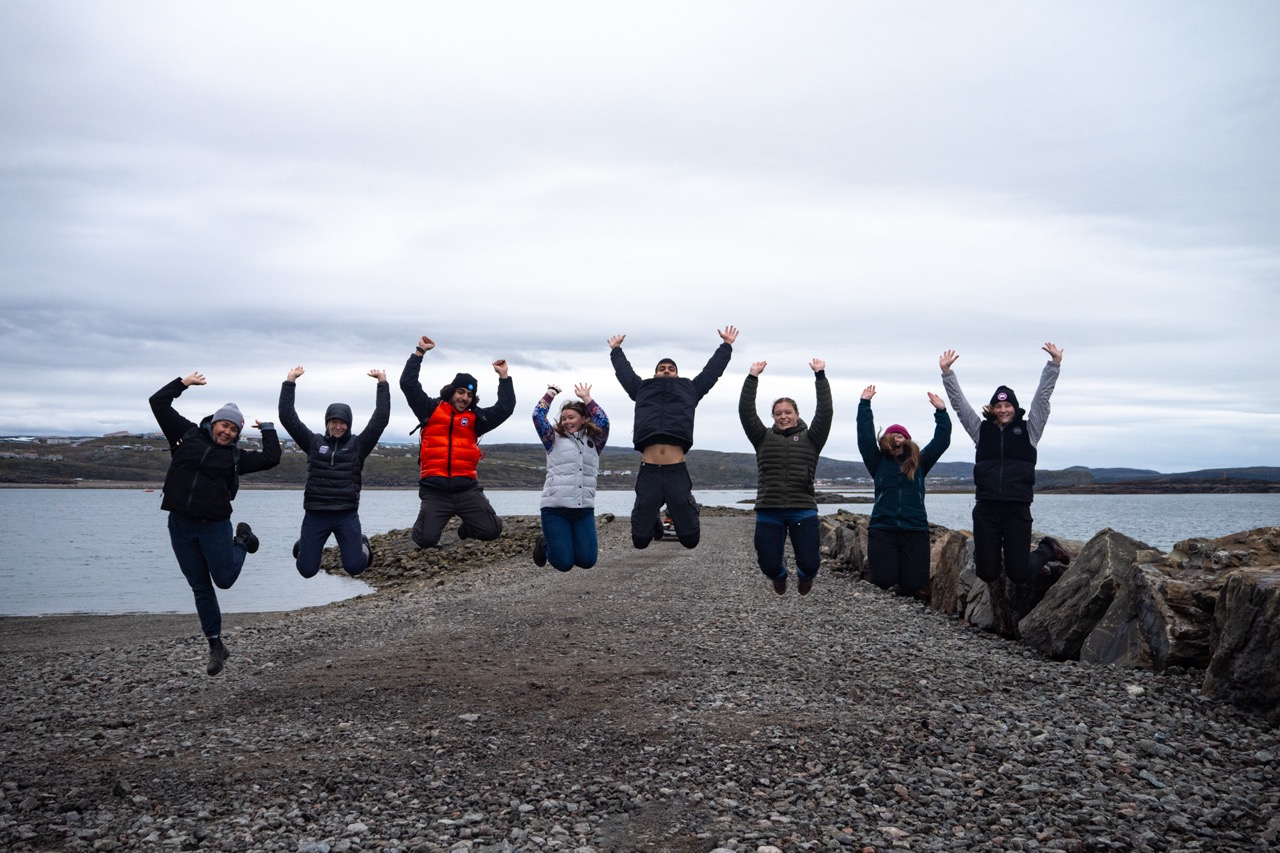PEOPLE
Emerging Leader
This award celebrates a rising star in the Canadian water sector, recognizing an individual no older than 35 who demonstrates passion, potential, and a commitment to excellence.
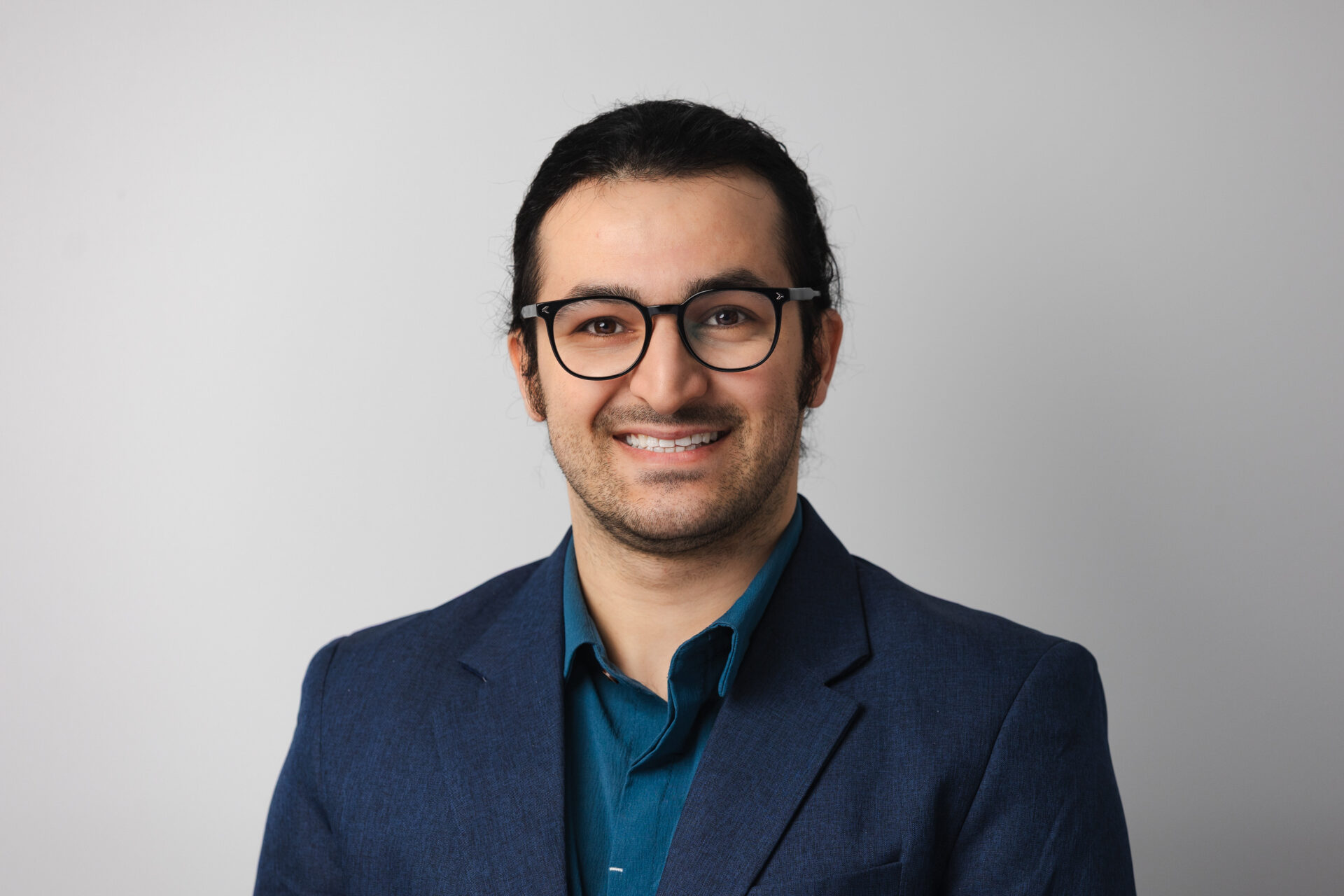 A PhD candidate in Environmental Engineering at the University of Alberta, Hadi Mokarizadeh is a passionate leader and researcher dedicated to advancing sustainable water solutions. His research focuses on cutting-edge treatment technologies for oil sands-impacted water, tackling one of Canada’s most pressing environmental issues.
A PhD candidate in Environmental Engineering at the University of Alberta, Hadi Mokarizadeh is a passionate leader and researcher dedicated to advancing sustainable water solutions. His research focuses on cutting-edge treatment technologies for oil sands-impacted water, tackling one of Canada’s most pressing environmental issues.
Hadi serves as Chair of the International Water Association’s Young Water Professionals (IWA YWP) Canada Chapter, where he leads a national team of over 50 professionals. Under his leadership, the chapter has launched impactful conferences, training programs, and global knowledge-exchange initiatives. He also directed the documentary “Voices for Water, Voices for the Future,” amplifying stories of water challenges from young professionals around the world.
Selected as a 2025–2026 Youth Fellow for the IWA & Grundfos SDG 6 Fellowship, Hadi is recognized globally for his commitment to climate resilience and sustainable water management. His diverse leadership roles—spanning IWA, APEGA, and student associations—highlight his dedication to community-building, sustainability, and cross-cultural collaboration. Hadi is the recipient of the Michael Rawson Clark Award for advancing the UN Sustainable Development Goals.
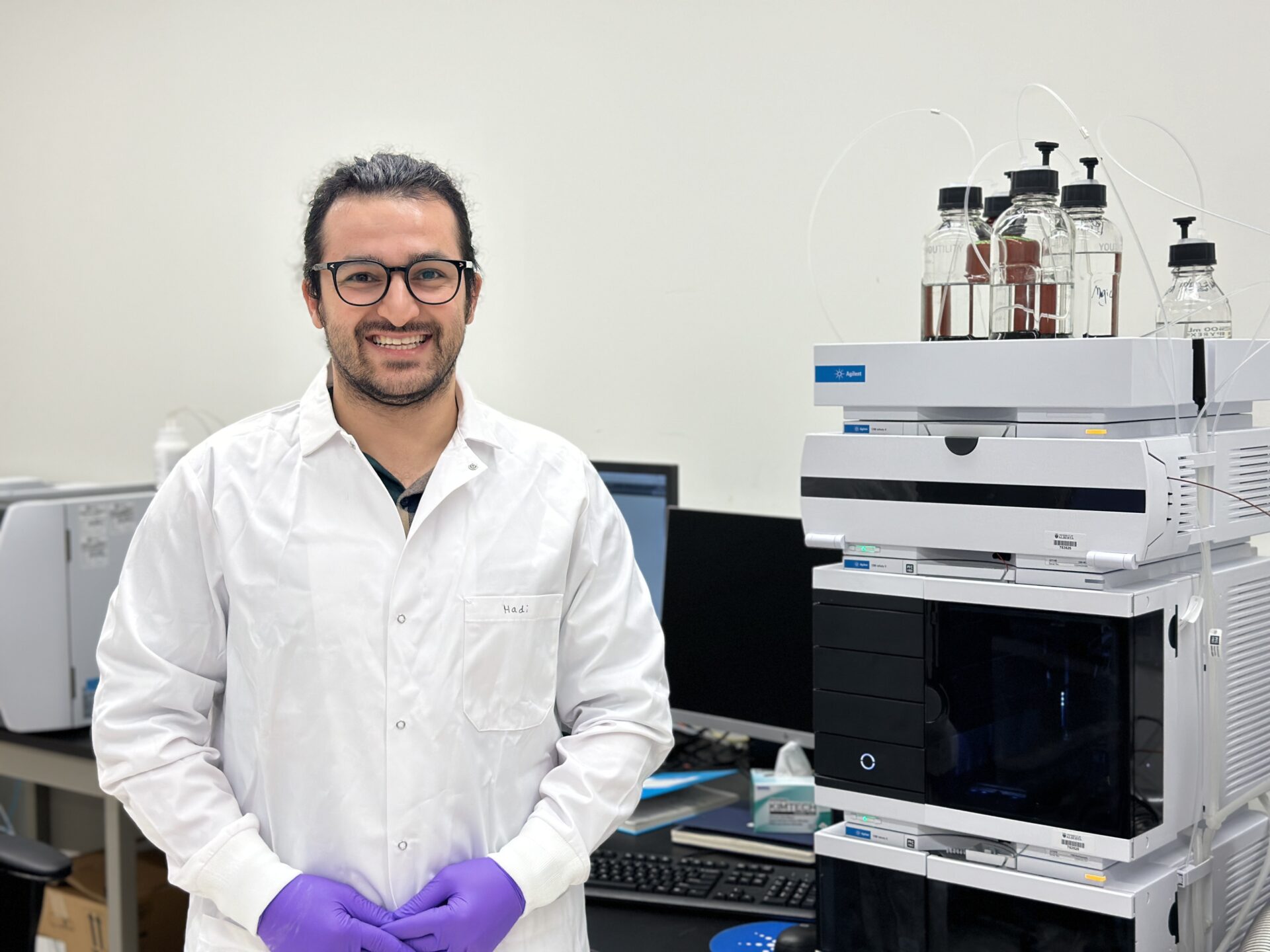
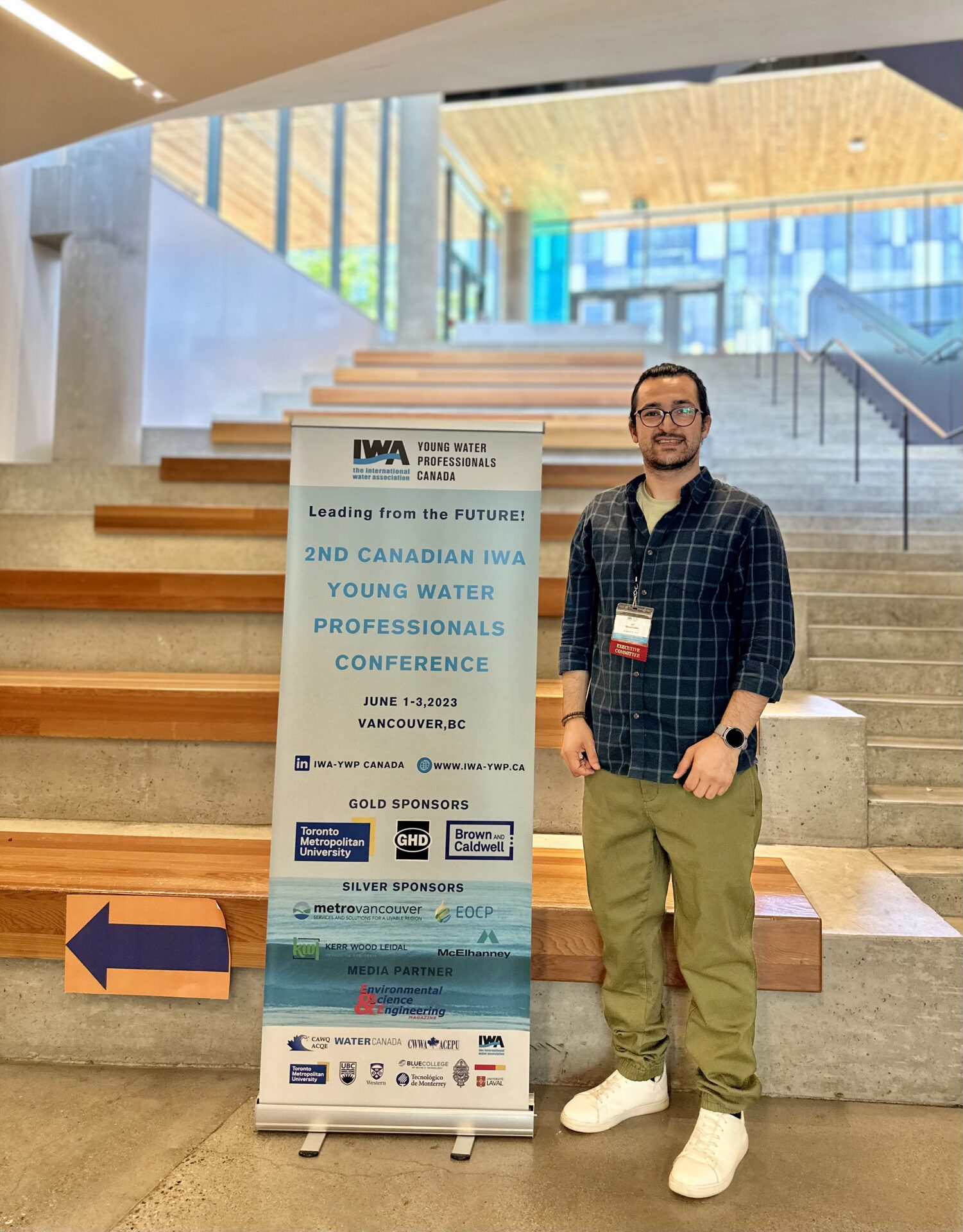
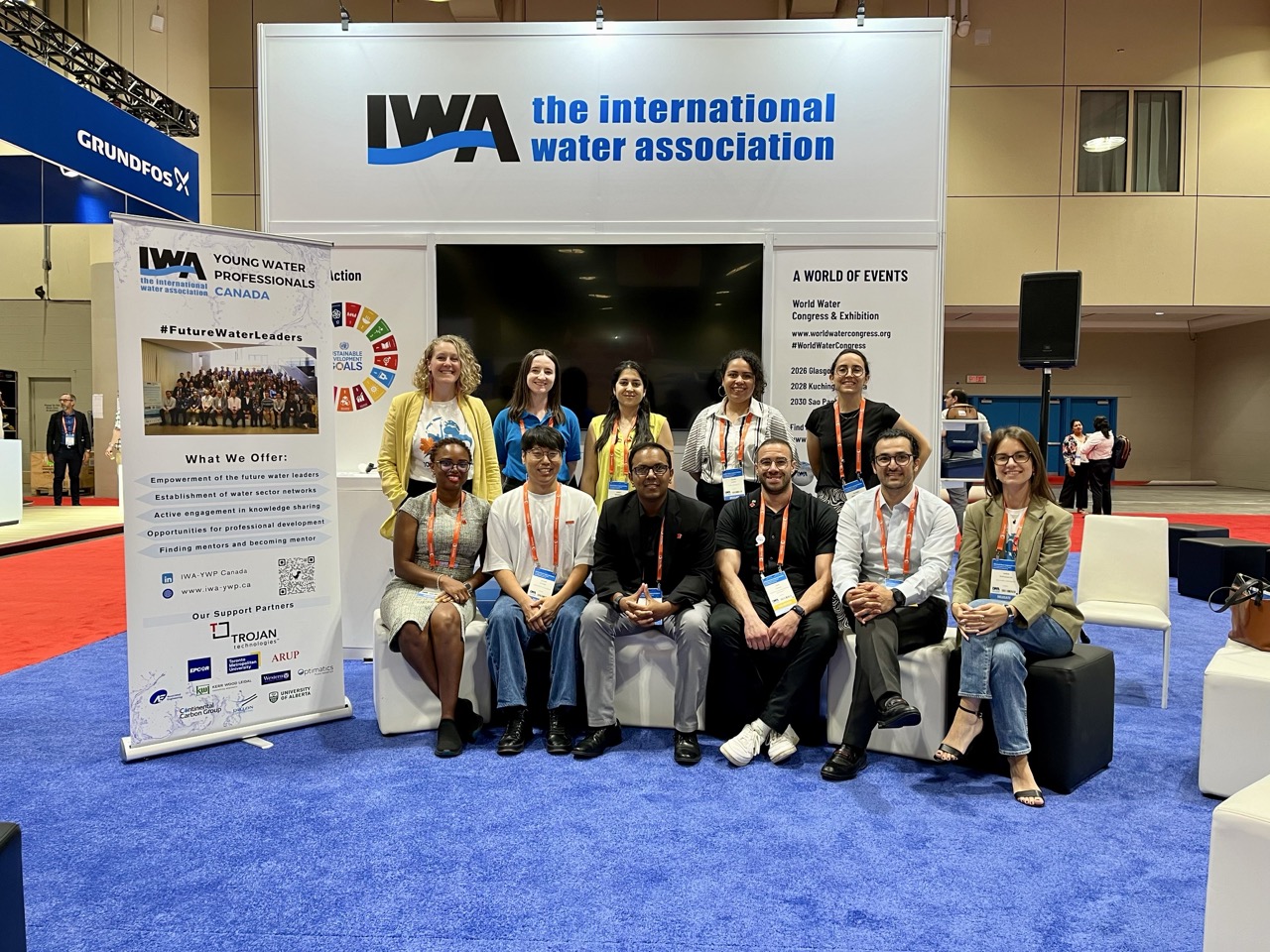
Hadi’s noteworthy accomplishments:
- Publications and Research Contributions (+ 8 journal papers): Hadi is tackling one of the main water challenges in Canada. His innovative work provides a cost-effective and sustainable alternative to conventional treatment technologies, addressing major environmental challenges in Northern Alberta.
- Leadership in IWA YWP Canada: As Chair of IWA YWP Canada, and previously as Co-Chair and Communications Director, Hadi has led over 50 young professionals in organizing national and international initiatives. These include:
- National Youth Water Conferences
- Technical workshops and webinars on SDGs, climate resilience, and water equity
- Mentorship programs and networking opportunities for early-career professionals
- IWA & Grundfos Youth Action for SDG 6 Fellowship (2025–2026): Hadi was selected as part of this prestigious global fellowship, working with a cohort of young leaders to develop local-led solutions for water and climate resilience in vulnerable areas.
- “Voices for Water, Voices for the Future” Documentary (2025): Hadi is producing a global youth-led documentary featuring contributions from young water professionals across 30+ countries. The project aims to raise awareness about water challenges and promote youth-driven solutions.
- Awards and Scholarships: Hadi’s efforts have been recognized through over 10 awards, including:
- Michael Rawson Clark Award, UAlberta Sustainability Council (2025)
- Alberta Innovates Graduate Student Scholarship (2024)
- Alberta Graduate Excellence Scholarship (AGES) (2024)
- Dr. Donald R Stanley Graduate Scholarship (2024)
- Joe Chowaniec Scholarship from the Environmental Services Association of Alberta (ESAA) (2024)
- Western Canada Section AWWA Merit Scholarship (2023)
- Jacob H. Masliyah Graduate Awards in Oil Sands Engineering (2022 & 2023)
- More >>
These accomplishments highlight Hadi’s ongoing commitment to advancing sustainable water solutions, fostering leadership within the water sector, and addressing key global water challenges.
 At just 34, Dr. Hooman Chamani exemplifies the next generation of Canadian water leaders. With a rare blend of academic excellence, innovation, and real-world impact, his work spans sustainable desalination, membrane innovation, and watershed protection.
At just 34, Dr. Hooman Chamani exemplifies the next generation of Canadian water leaders. With a rare blend of academic excellence, innovation, and real-world impact, his work spans sustainable desalination, membrane innovation, and watershed protection.
During his PhD at the University of Ottawa, he led internationally recognized research on membrane distillation to address global brine management. As a postdoctoral fellow at the University of Toronto, he integrated AI to accelerate reverse osmosis membrane discovery—pushing the boundaries of water treatment technology. Now as a Water Quality Modeler at WSP Canada, he applies his expertise to safeguard watersheds impacted by mining, directly shaping sustainable water management strategies nationwide.
Dr. Chamani’s commitment to water sustainability across academia and industry makes him a standout Emerging Leader in Canada’s water sector.
Hooman’s noteworthy accomplishments:
- Chamani’s Equation: A new scientific model, adopted by membrane scientists internationally for estimating membrane wetting properties, advancing desalination technology.
- Membrane Distillation Breakthroughs:
- Modified Washburn equation for liquid movement in membranes.
- New methods for membrane pore size distribution estimation.
- Key Publications:
- Published 18 scientific peer-reviewed journal articles on water-related processes. Lead author of a highly cited review paper on membrane wetting phenomena in Progress in Materials Science Journal (Impact Factor: 33.6).
- Innovations in AI for Water Technology:
- Developed the world’s first method for statistically reconstructing a 3D membrane structure from a single 2D SEM image (Published in Journal of Membrane Science).
- Industrial Water Sustainability Projects:
- At WSP Canada, Hooman develops modelling efforts for water quality prediction across thousands of kilometres of watersheds affected by mining activities, providing actionable insights for treatment needs and regulatory strategies.
- Media Recognition and Interviews:
- U of O researchers work towards improving membrane distillation techniques in order to make clean drinking water more accessible
- One student’s mission to protect the world’s most precious resource
- Distinctions and Awards (more than $370,000 CAD):
- First-ranked student among all students during both BASc and MASc based on cGPA
- Acceleration Consortium Postdoctoral Fellowship
- Ontario Trillium Scholarship
- Globalink Research Award
- International Doctoral Scholarship
- Richard Stessel Memorial Scholarship
- Paul G. Complin Memorial Scholarship
- International Experience Scholarship (twice)
 Linda Li is a dynamic environmental engineer whose professional and volunteer work embodies the qualities of an Emerging Leader in the Canadian water sector. As an Associate at Dillon Consulting, she leads the design and delivery of complex water and wastewater infrastructure projects for clients across Canada and internationally. Her work spans critical systems in Belize and environmental compliance consulting for major industrial clients in Toronto.
Linda Li is a dynamic environmental engineer whose professional and volunteer work embodies the qualities of an Emerging Leader in the Canadian water sector. As an Associate at Dillon Consulting, she leads the design and delivery of complex water and wastewater infrastructure projects for clients across Canada and internationally. Her work spans critical systems in Belize and environmental compliance consulting for major industrial clients in Toronto.
Beyond her technical achievements, Linda is a recognized leader in the global water community. She has served on the Program Committee for the IWA World Water Congress, helped shape international dialogue, and was recently named a 2024–2026 IWA LeaP Leadership Fellow, representing Canada among a global cohort of emerging professionals.
A passionate advocate for diversity and mentorship, Linda co-founded the Women in Engineering Committee at Professional Engineers Ontario and has supported Engineers Canada’s 30 by 30 initiative. Her long-standing leadership with the Water Environment Association of Ontario—both as a student chapter president and on the Young Professionals Committee—reflects her dedication to building the next generation of water leaders.
Through her professional excellence, global engagement, and tireless advocacy, Linda is shaping the future of water leadership in Canada and beyond.
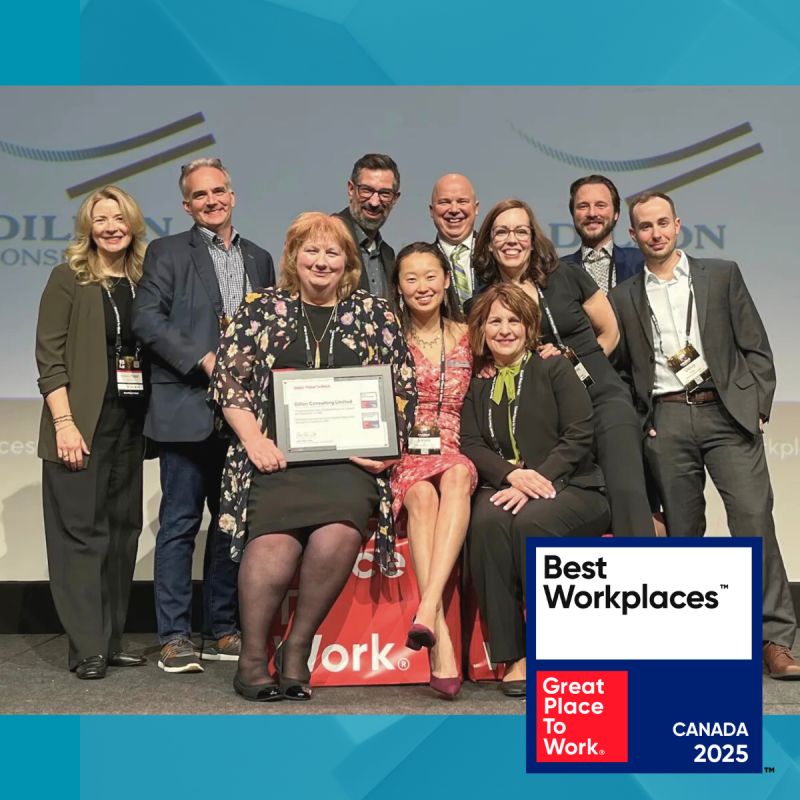
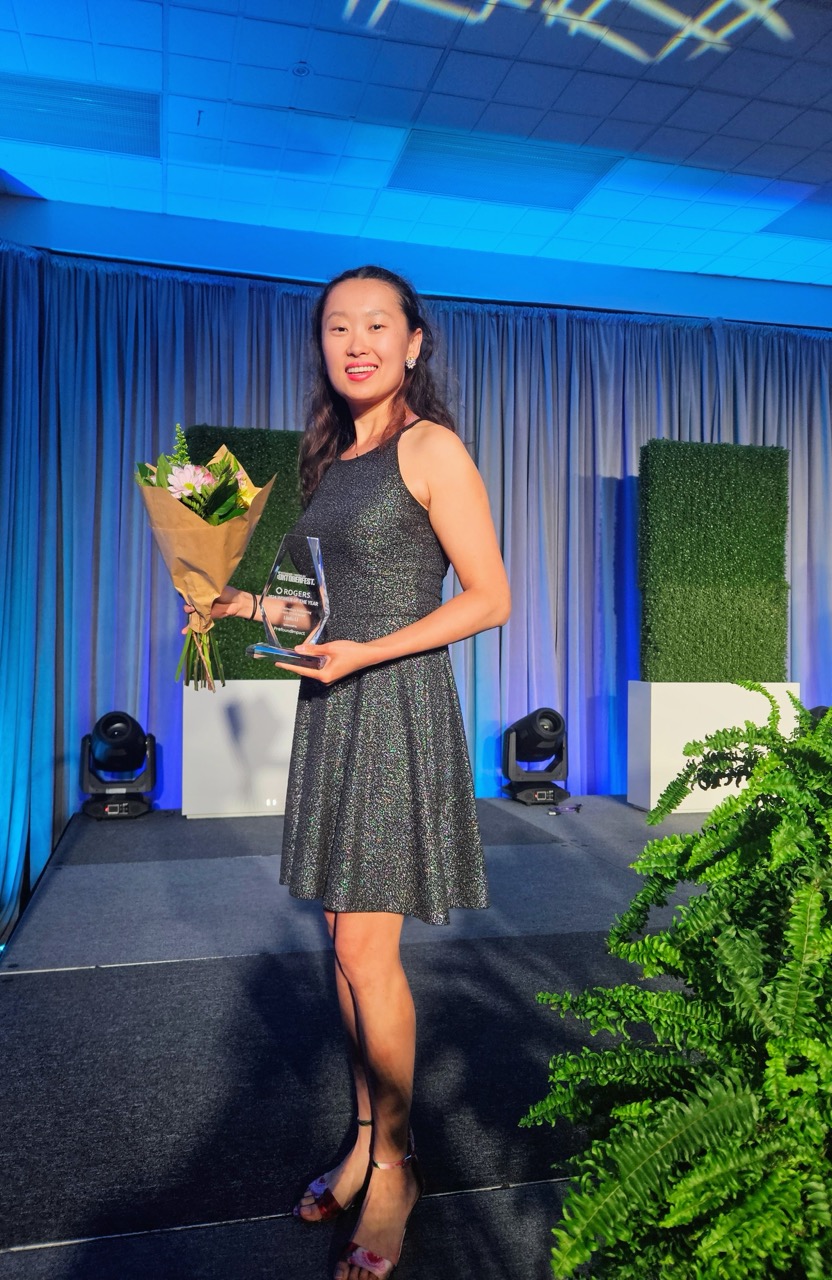
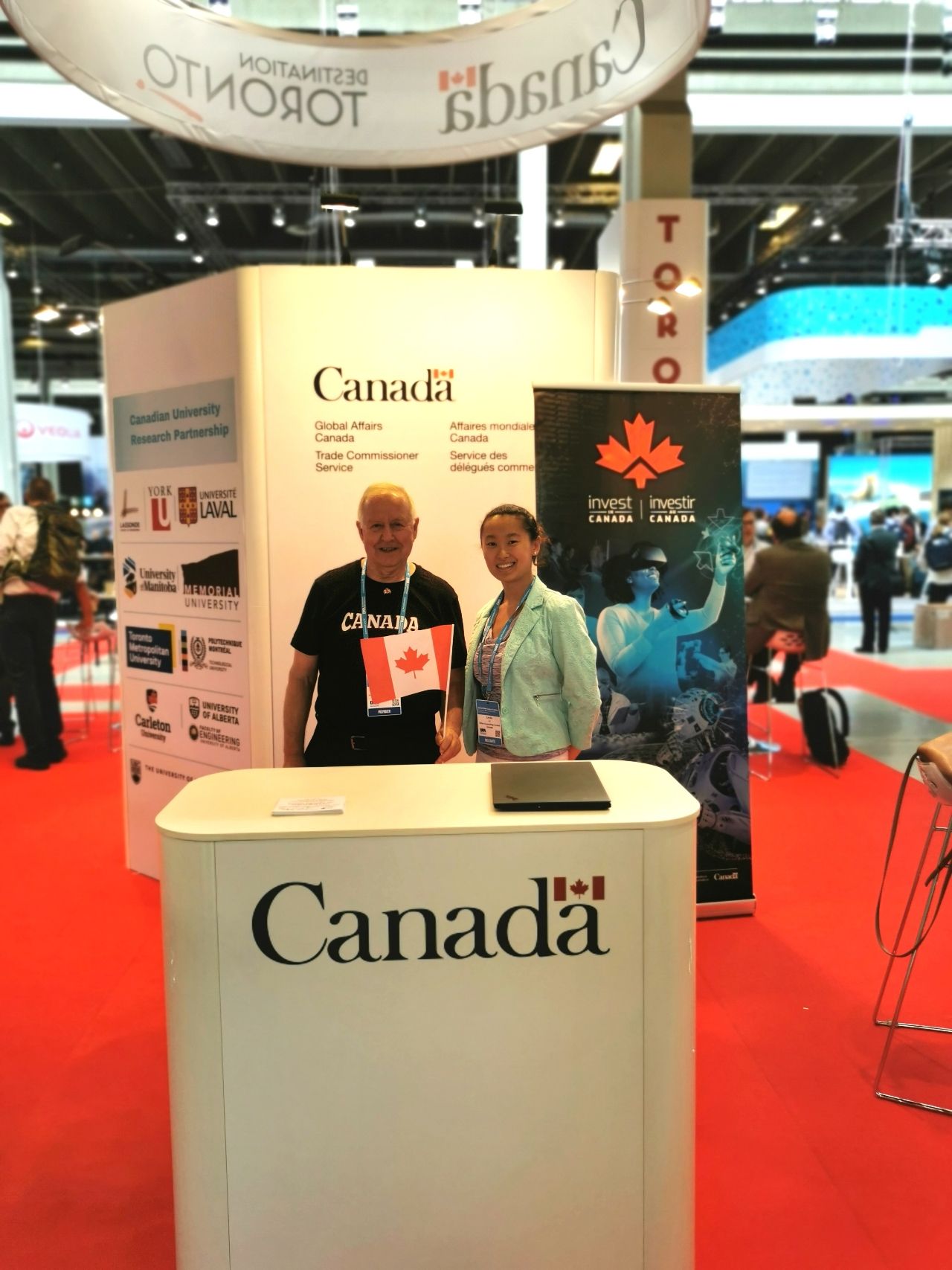
Linda’s noteworthy accomplishments:
- Linda led the publication of an article with the International Water Association: Empowering Women in Water: Leadership, Challenges, and the Path Forward
- Linda won the Rogers Women of the Year Award 2024 STEM Category.
- Linda was selected as a fellow of the International Water Association’s Leadership Programme for Young Water Professionals.
- Linda served as the Program Committee Member for the International Water Association’s World Water Congresses.
- Linda served as the Program Committee Member for the Canadian Young Water Professionals Conference.
 Over the past decade, Sam Ghosn has established himself as a respected and forward-thinking professional in Canada’s water and wastewater sector. In his current role as Regional Director at the Ductile Iron Pipe Research Association (DIPRA), Sam works directly with municipalities, utilities, consultants, and policymakers to promote the use of resilient and sustainable infrastructure. He serves as a key technical resource and trusted advisor to a diverse range of stakeholders, helping them make informed, long-term decisions around buried infrastructure.
Over the past decade, Sam Ghosn has established himself as a respected and forward-thinking professional in Canada’s water and wastewater sector. In his current role as Regional Director at the Ductile Iron Pipe Research Association (DIPRA), Sam works directly with municipalities, utilities, consultants, and policymakers to promote the use of resilient and sustainable infrastructure. He serves as a key technical resource and trusted advisor to a diverse range of stakeholders, helping them make informed, long-term decisions around buried infrastructure.
Prior to his current role, Sam held various positions in the water industry where he gained hands-on experience with municipal systems, infrastructure planning, and capital project execution. These roles helped him build a deep understanding of utility needs, regulatory challenges, and asset management best practices. His ability to communicate complex engineering topics in practical, solution-oriented ways has earned him credibility across technical and non-technical audiences.
What sets Sam apart is not just his technical expertise, but also his leadership style. He consistently fosters collaboration across regions, champions innovation, and takes an active role in industry education and outreach. Through his work, he’s contributed to the resilience of Canada’s water infrastructure — helping communities build systems that are not only effective today but ready for the future.
. 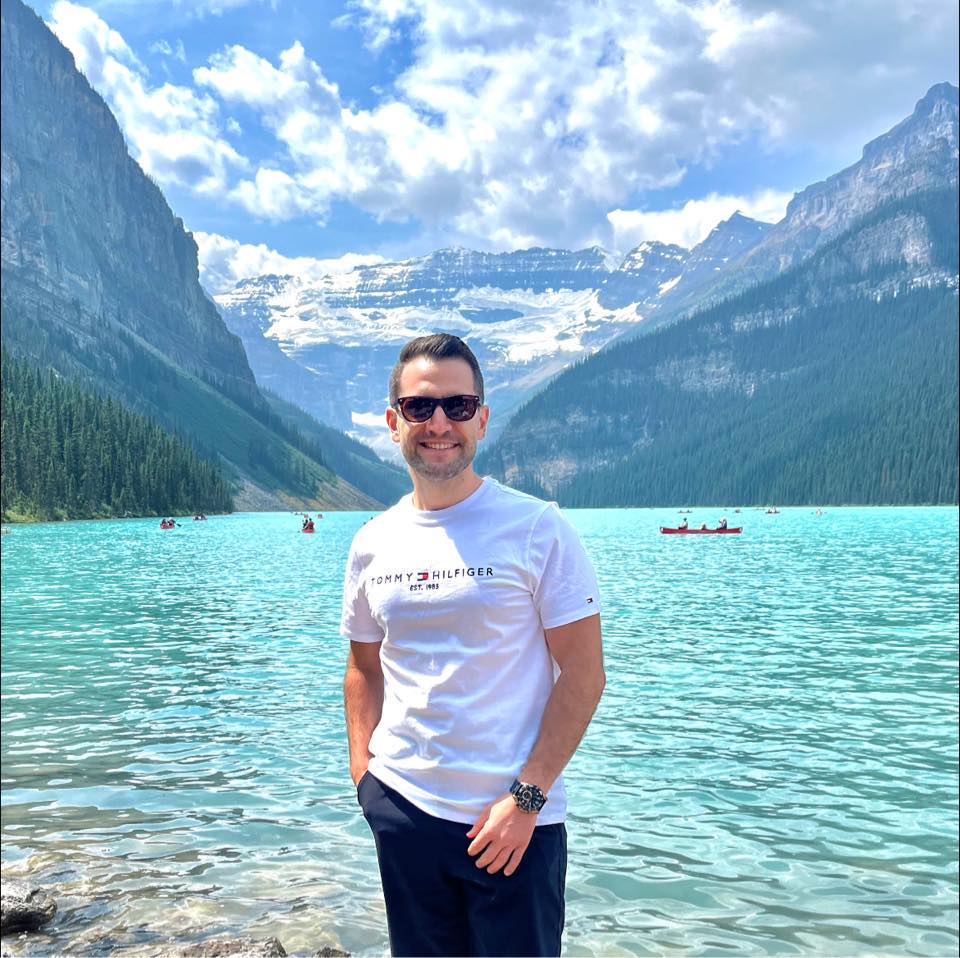
Sam’s noteworthy accomplishments:
- Sam advocates for sustainable pipe infrastructure, providing municipalities with guidance on life-cycle cost analysis and asset management strategies. He has also authored technical papers on pipeline sustainability and resilience, including “Increasing Pipeline’s Resilience for a Changing Climate,” presented at the ASCE UESI Pipeline Conference, and has co-authored work on trenchless technologies with NASTT. In 2024, Sam delivered a presentation at the annual CWWA conference in Winnipeg, titled “A Shifting Mindset: Tapping into Watermain Resilience Using Performance-Based Decision Making”, focusing on engineering practices in the water sector.
- Beyond his technical work, Sam is a dedicated educator and mentor, training over 500 utility water operators in the past five years. He is a regular contributor at the BCWWA Annual Conference and the Environmental Operators Conference (EOCP), where he moderates sessions, delivers training programs, and participates in Young Professional events to inspire the next generation of water sector leaders.

Tatiana Estevez is the Founder and CEO of Permalution, a cleantech company based in Sherbrooke, Quebec, specializing in fog and cloud water collection technologies aimed at democratizing access to water and providing climate adaptation solutions. With over nine years of experience in the high-tech industry, Tatiana has held roles in sustainable city development, corporate innovation, and project management. She has collaborated with organizations such as Facebook for Developers, IBM, Bosch, and Google, contributing to initiatives involving IoT and tech ecosystem development.
Tatiana’s noteworthy accomplishments:
- Selected for the Cleantech Construction Map 2025 by Cemex Ventures: Recognized among the world’s top 24 construction tech startups innovating for sustainability. Permalution’s fog and cloud water harvesting technology was highlighted for its potential to transform water access in construction and infrastructure development, particularly in arid regions.
- Showcased at COP29 (2024): Invited to participate in COP29 as part of global conversations around climate transparency. Permalution presented advancements in carbon credit strategies, GHG reporting, and scalable climate adaptation technologies for water-stressed environments.
- Infrastructure Pilot in Abu Dhabi: Partnered in the UAE to deploy fog harvesting infrastructure in Abu Dhabi, marking one of the first pilot installations of this kind in the region. This project demonstrates Permalution’s global scalability and the relevance of its solutions in desert environments.
- Winner – WE Empower UN SDG Challenge (2024)
Tatiana Estevez was named a global laureate for the WE Empower United Nations Sustainable Development Goals Challenge, representing North America. This award recognized her leadership in contributing to: SDG 6 (Clean Water and Sanitation), SDG 13 (Climate Action), and SDG 15 (Life on Land). - Water Dragons Canada – Finalist & Winner of Canada Heat (2024): Permalution won the Canadian round of the Water Dragons pitch competition, organized by Isle Utilities and Water Canada. This validated the technology’s potential in addressing national water security and infrastructure needs.
- Recipient – $250,000 Best Woman in Tech Investment Prize at Startupfest (2022): Tatiana secured a major equity-free prize at Startupfest, which helped fund Permalution’s first manufacturing site and the launch of its commercial deployment strategy across Quebec and Latin America.
- Telfer School of Management Recognition (2023): Permalution was featured as a standout alumni-led business by the University of Ottawa’s Telfer School of Management. The spotlight focused on its environmental leadership and entrepreneurial innovation.
- Tech Quiero – STEM Education NGO Founded by Tatiana: Through her NGO, Tatiana has empowered hundreds of women and girls in Latin America and Quebec to access education in technology and entrepreneurship—connecting water innovation with social justice.
- Pilot Engagements with Latin American Governments: Permalution has been in advanced discussions or pilots with public agencies in Peru, Chile, and Mexico, supporting climate-resilient water planning in rural and wildfire-prone areas.
Water Steward of the Year
This award honours an individual who has shown exceptional commitment to preserving the health and integrity of Canada’s water resources.
 Dr. Charles Goss is a Project Manager and Team Lead in Water Treatment with over 16 years of experience in water and wastewater research, engineering design, and environmental remediation. A Ph.D. graduate from the University of Manitoba and guest lecturer at the University of Ottawa, he specializes in treatment process evaluation, chemical optimization, and small-scale systems for rural and First Nation communities. A licensed Project Management Professional (PMP) and Professional Chemist (P.Chem.), Dr. Goss brings a unique blend of technical expertise and leadership to every project.
Dr. Charles Goss is a Project Manager and Team Lead in Water Treatment with over 16 years of experience in water and wastewater research, engineering design, and environmental remediation. A Ph.D. graduate from the University of Manitoba and guest lecturer at the University of Ottawa, he specializes in treatment process evaluation, chemical optimization, and small-scale systems for rural and First Nation communities. A licensed Project Management Professional (PMP) and Professional Chemist (P.Chem.), Dr. Goss brings a unique blend of technical expertise and leadership to every project.
Charles’s noteworthy accomplishments:
Charles has publications in Technical Society Magazines including:
- Forensic engineering helps solve Iqaluit Water Crisis: American Society of Civil Engineers (ASCE) Civil Engineering Source October 2023
- Responding to the Iqaluit Water Crisis: Western Canada Water (WCW) Magazine June 2023
- From crisis to confidence: Iqaluit’s source water protection triumph: American Water Works Association (AWWA) Articles September 2023
- Responding to the Iqaluit Water Crisis: Environmental Science & Engineering (ES&E) Magazine June 2023
- Remote Canadian city overcomes mysterious ‘Void’ challenge: American Water Works Association (AWWA) Connections February 2023
Charles has technical publications in several journals:
- Goss, C.D., Wiens, R., Gorczyca, B., Gough, K.M. “Comparison of Three Solid Phase Extraction Sorbents for the Isolation of THM Precursors from Manitoba Surface Waters.” Chemosphere, 2017, 168 pp. 917 – 924
- Goss, C.D., Gorczyca, B. “Trihalomethane Formation Potential of DOC Fractions Isolated from Two Canadian Prairie Surface Water Sources.” Water Science and Technology: Water Supply, 2013, DOI 10.2166/ws.2012.093
- Sadrnourmohamadi, M., Goss, C.D., Gorczyca, B. “Removal of DOC and its Fractions from the High DOC and Hardness Surface Waters of the Canadian Prairie.” Water Science and Technology: Water Supply, 2013, DOQ 10.2166/ws.2013.078
- Rayne, S., Goss, C.D., Forest, K., Friesen, K.J. “Quantitative Structure-Activity Relationships for Estimating the Aryl Hydrocarbon Receptor Binding Affinities of Resveratrol Derivatives and the Antioxidant Activities of Hydroxystilbenes.” Medicinal Chemistry Research, 2009, 19 [8] pp. 864 – 901
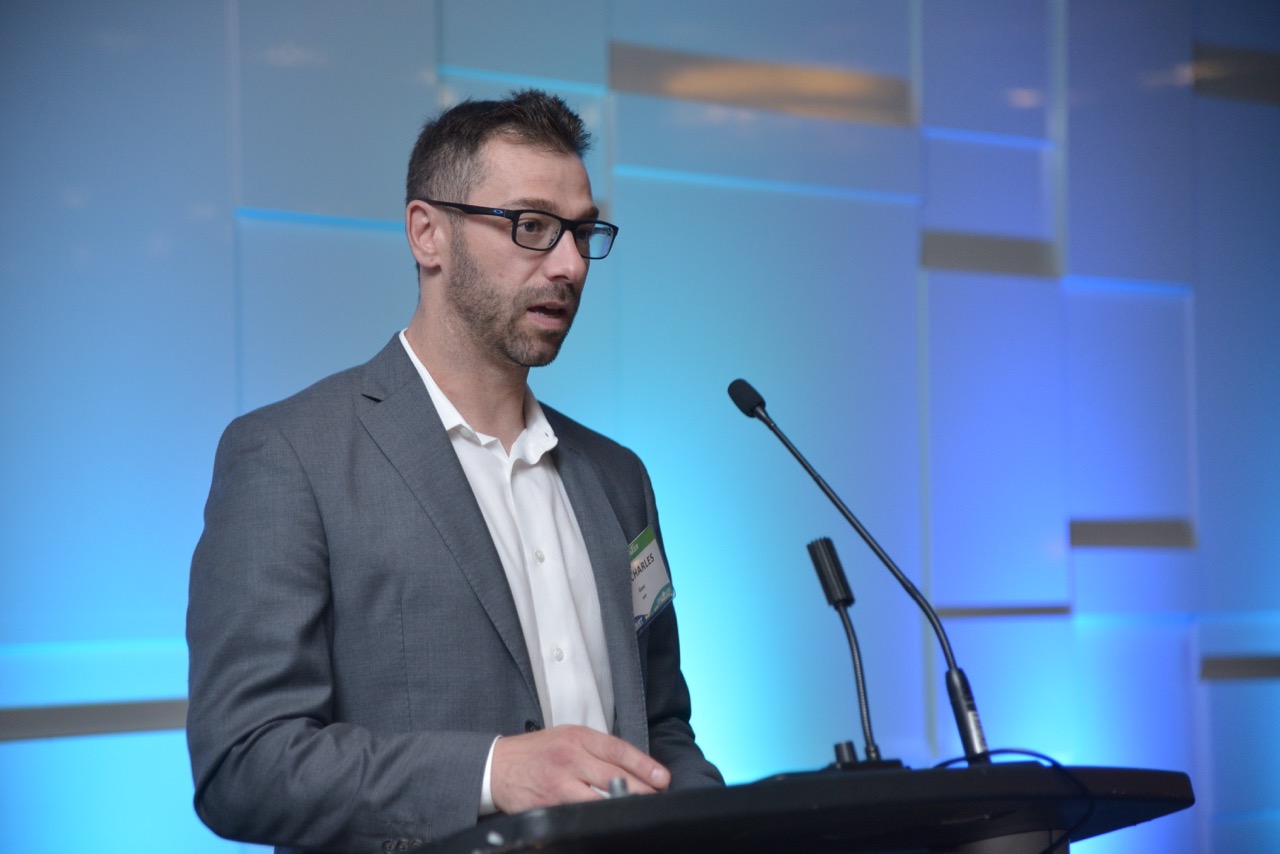
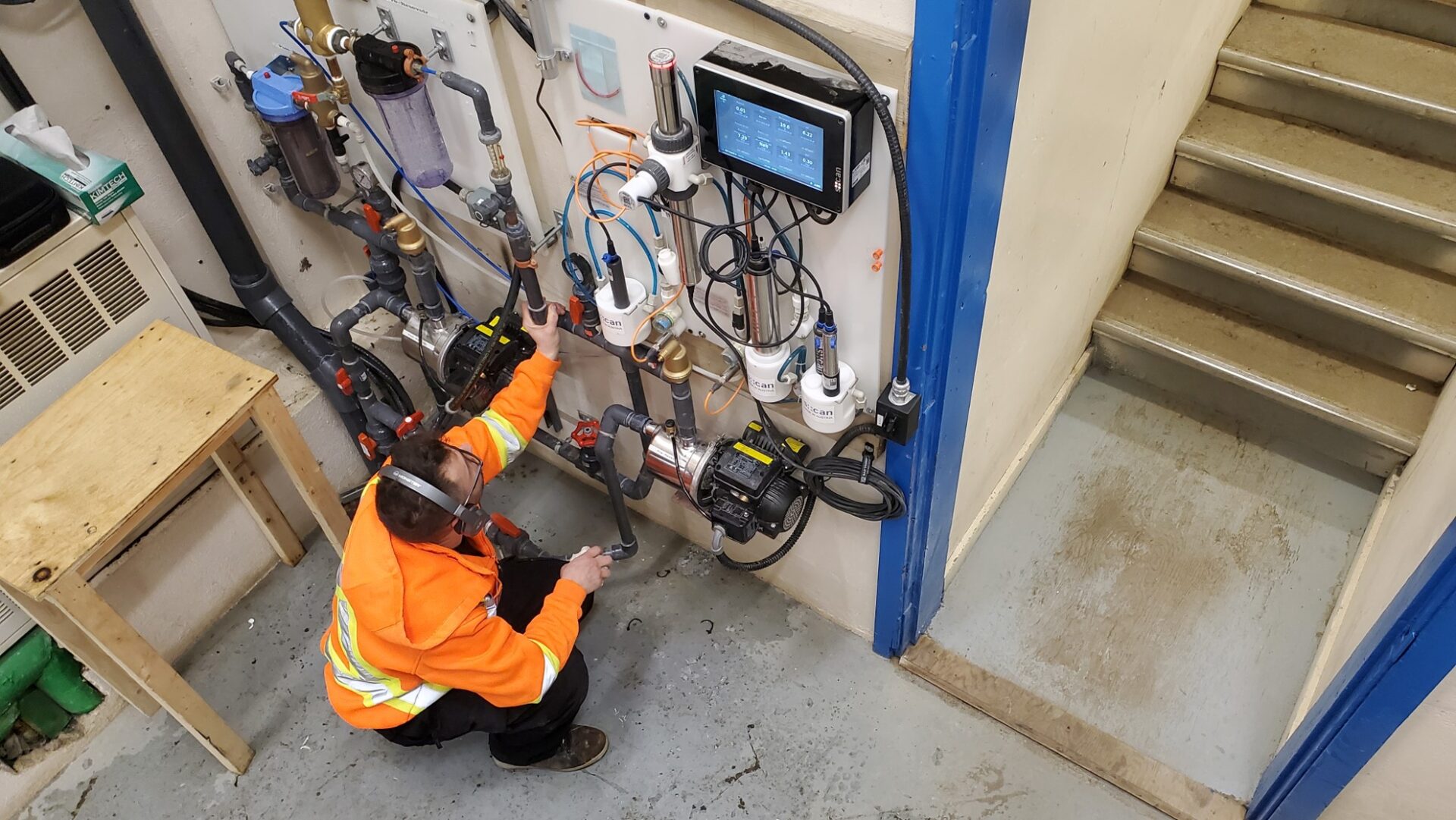
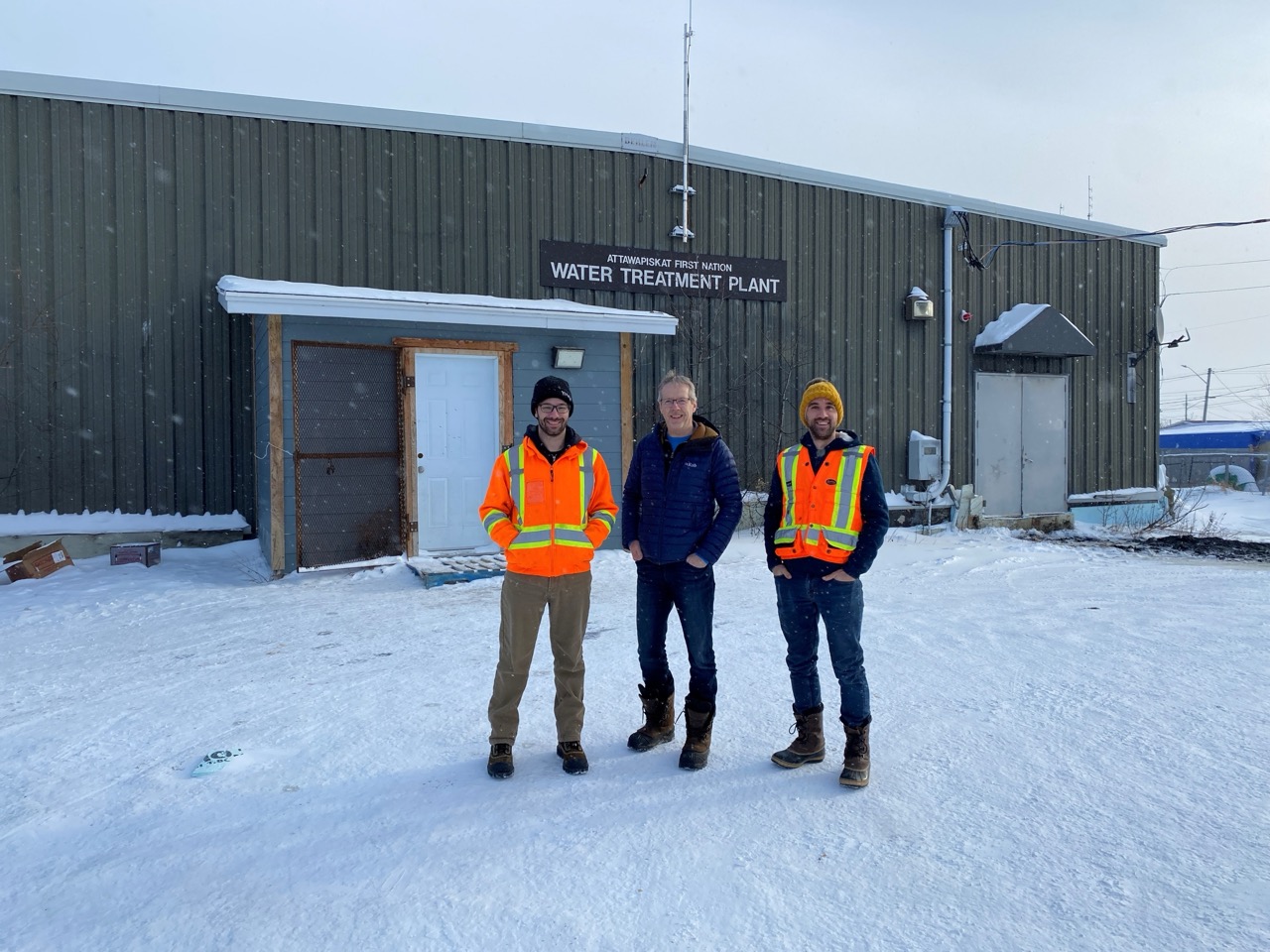
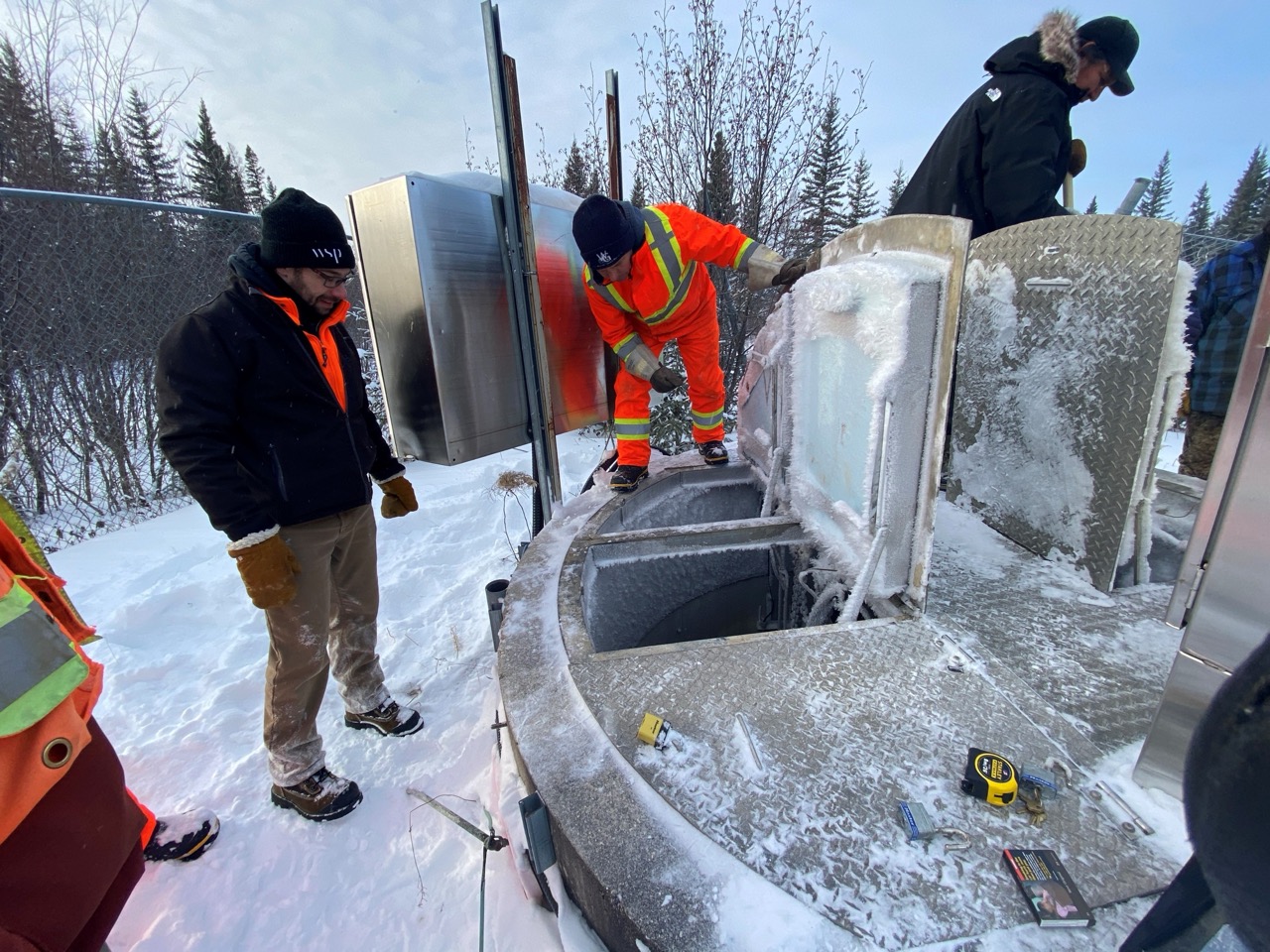
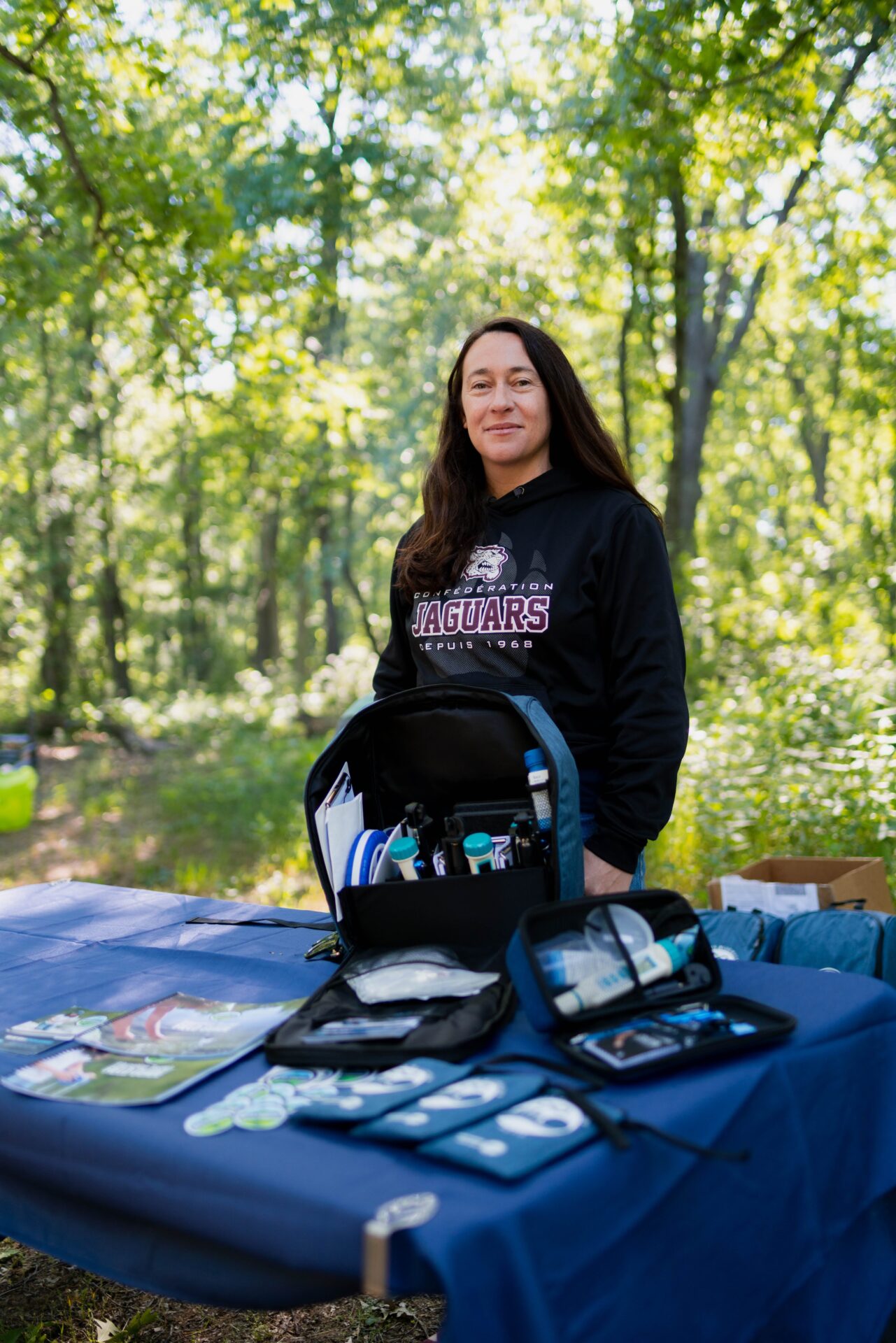 Gabrielle Parent-Doliner is the Director of Water Rangers and a passionate advocate for community-led water protection. With a career rooted in stewardship, collaboration, and equity, she leads national initiatives that connect grassroots water monitoring with science-based decision-making. As project lead for Lake Erie Rangers, she supports volunteer science across the Lake Erie watershed, strengthening efforts to tackle nutrient pollution and ecosystem health. Gabrielle also contributes her expertise to the International Joint Commission and the Great Lakes Beach Association, championing open data and accessible tools for communities. Her leadership is defined by care, inclusivity, and a deep commitment to protecting both water and the people who depend on it.
Gabrielle Parent-Doliner is the Director of Water Rangers and a passionate advocate for community-led water protection. With a career rooted in stewardship, collaboration, and equity, she leads national initiatives that connect grassroots water monitoring with science-based decision-making. As project lead for Lake Erie Rangers, she supports volunteer science across the Lake Erie watershed, strengthening efforts to tackle nutrient pollution and ecosystem health. Gabrielle also contributes her expertise to the International Joint Commission and the Great Lakes Beach Association, championing open data and accessible tools for communities. Her leadership is defined by care, inclusivity, and a deep commitment to protecting both water and the people who depend on it.
Gabrielle’s noteworthy accomplishments:
- Co-leader of Water Rangers’ strategic growth, doubling organizational size and quadrupling supported groups across Canada
- Project lead for Lake Erie Rangers (Canada Water Agency)
- Lead developer of the Canadian Business Case for Community-Based Water Monitoring toolkit
- Lead on Watershed Reports (2025), managing relationships with 200+ data providers across Canada
- Board member of the Great Lakes Beach Association
- Committee member with the International Joint Commission (IJC)
- Co-author of the Great Lakes Beach Monitoring Standard
- Contributor to the Lake Erie Volunteer Science Network
- Leader in developing and promoting open data standards for community-based water monitoring
- Mentor to dozens of emerging water stewards, advancing inclusive capacity building in the sector
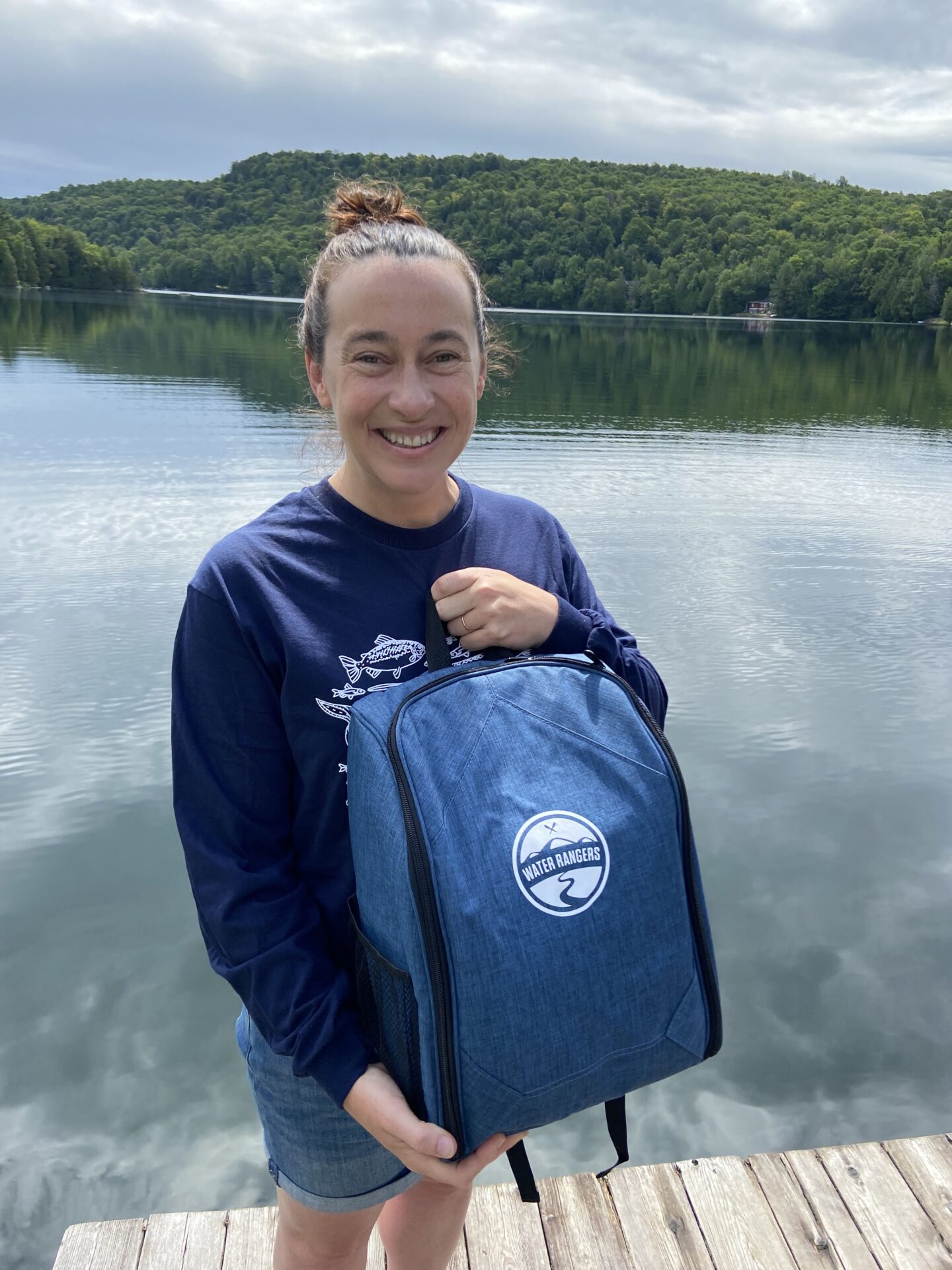
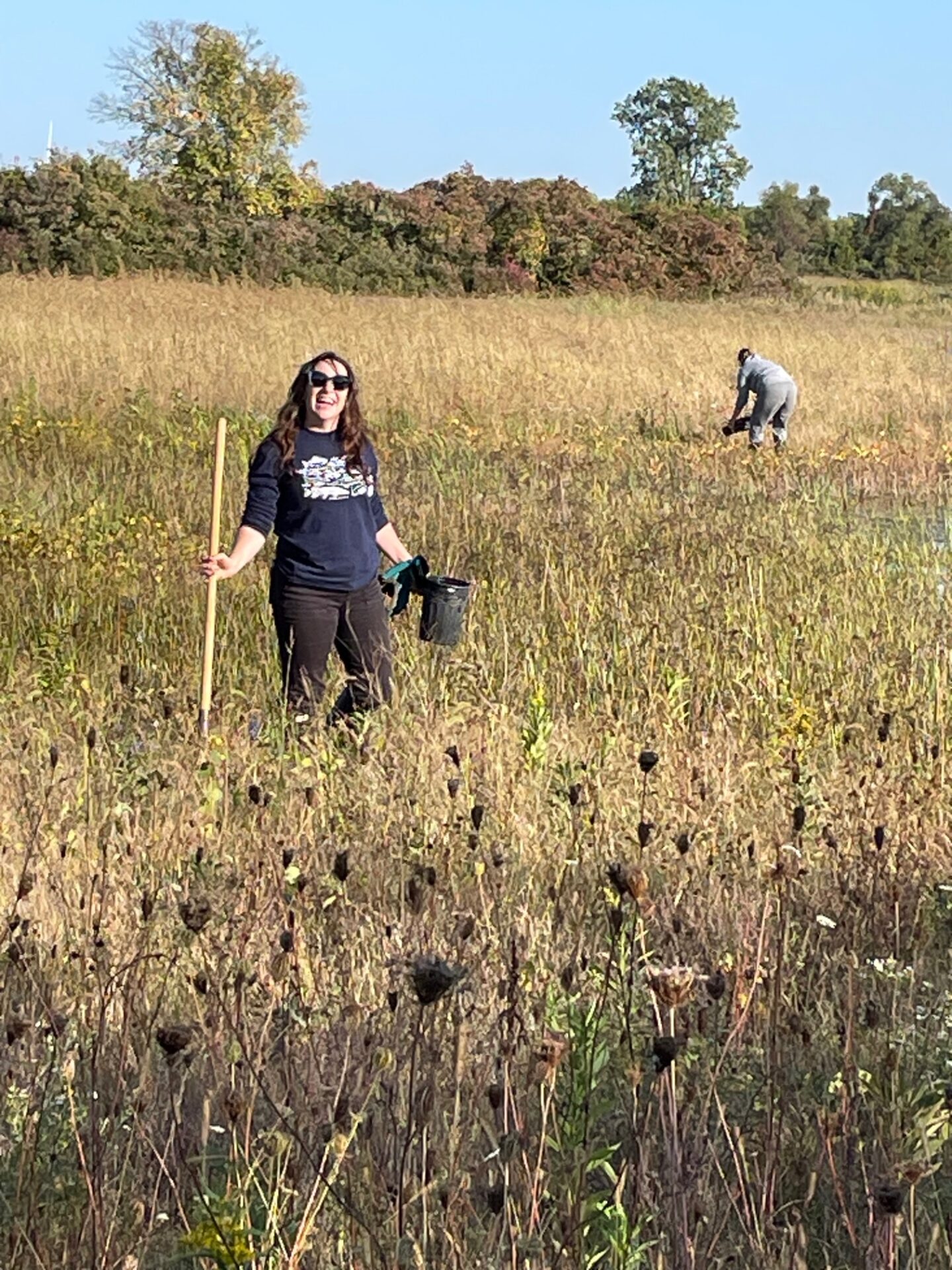
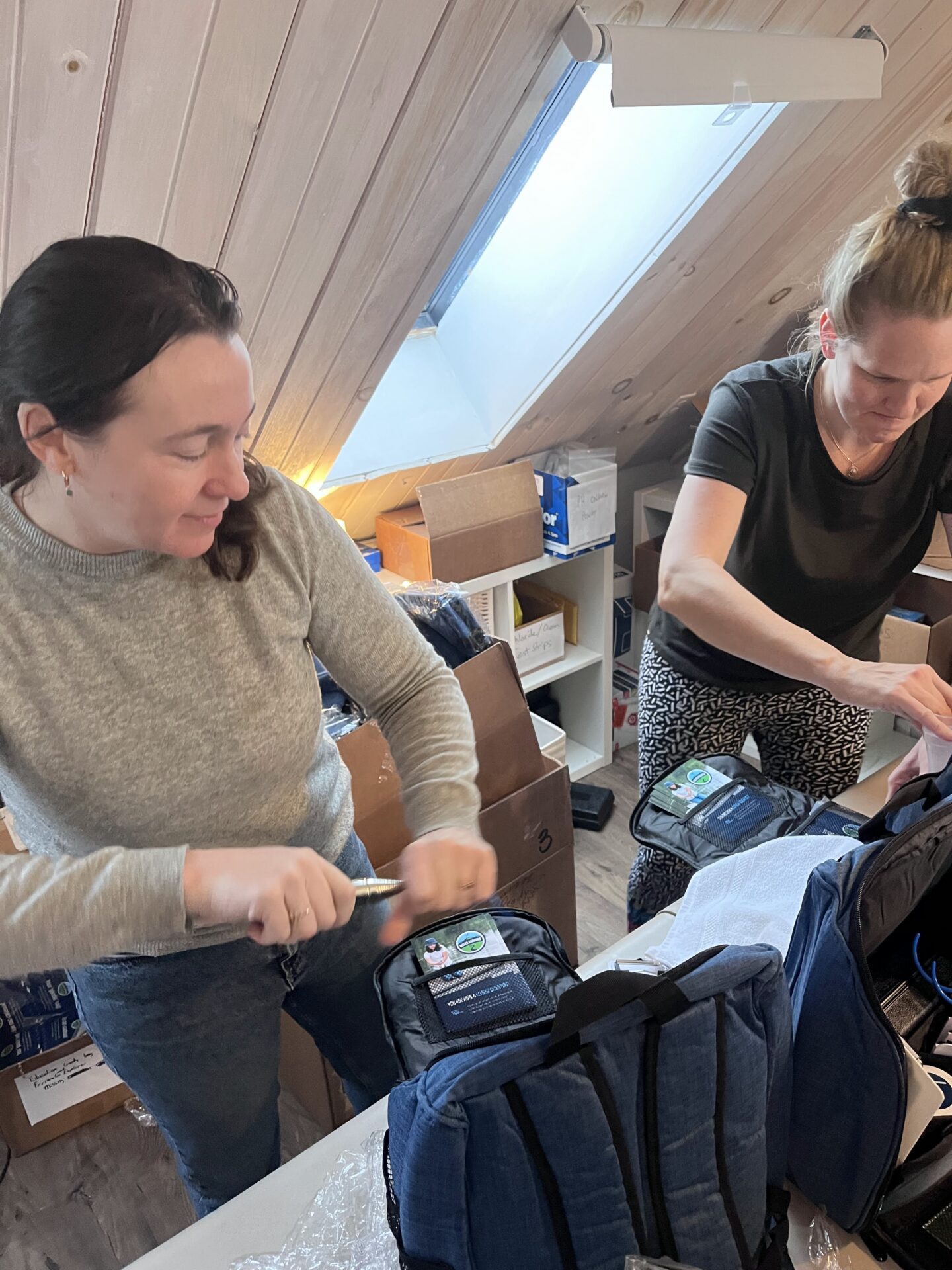
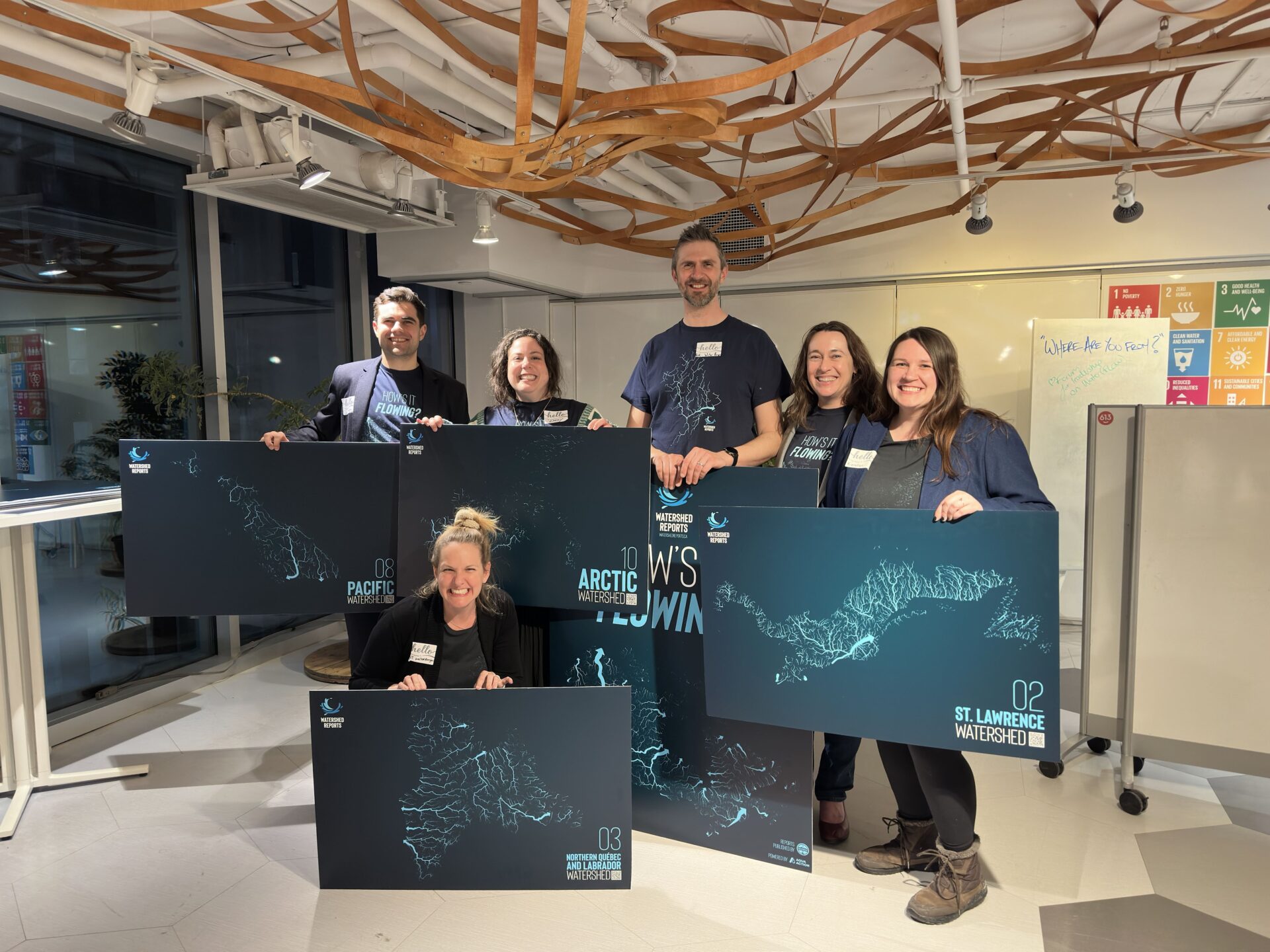
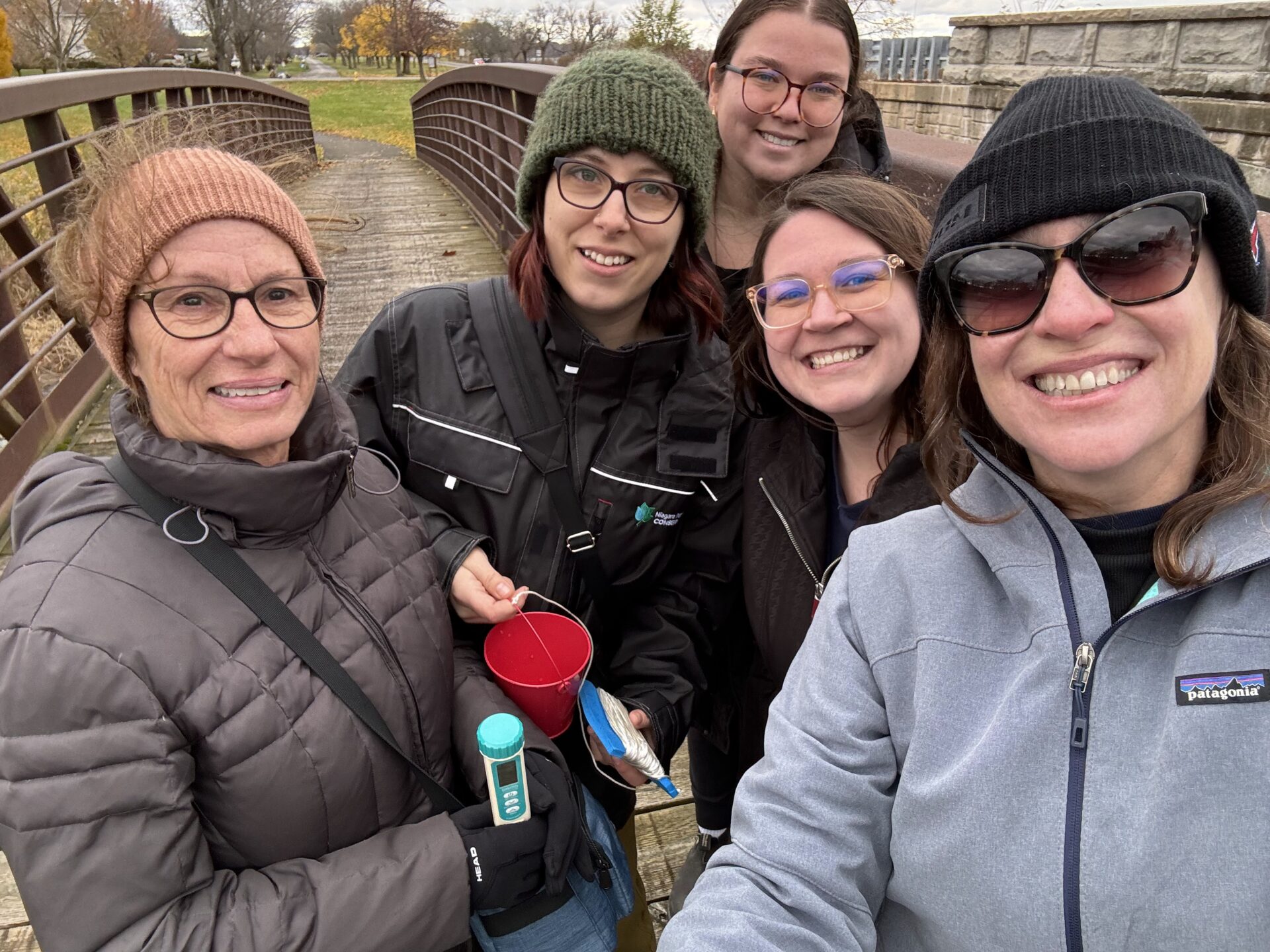
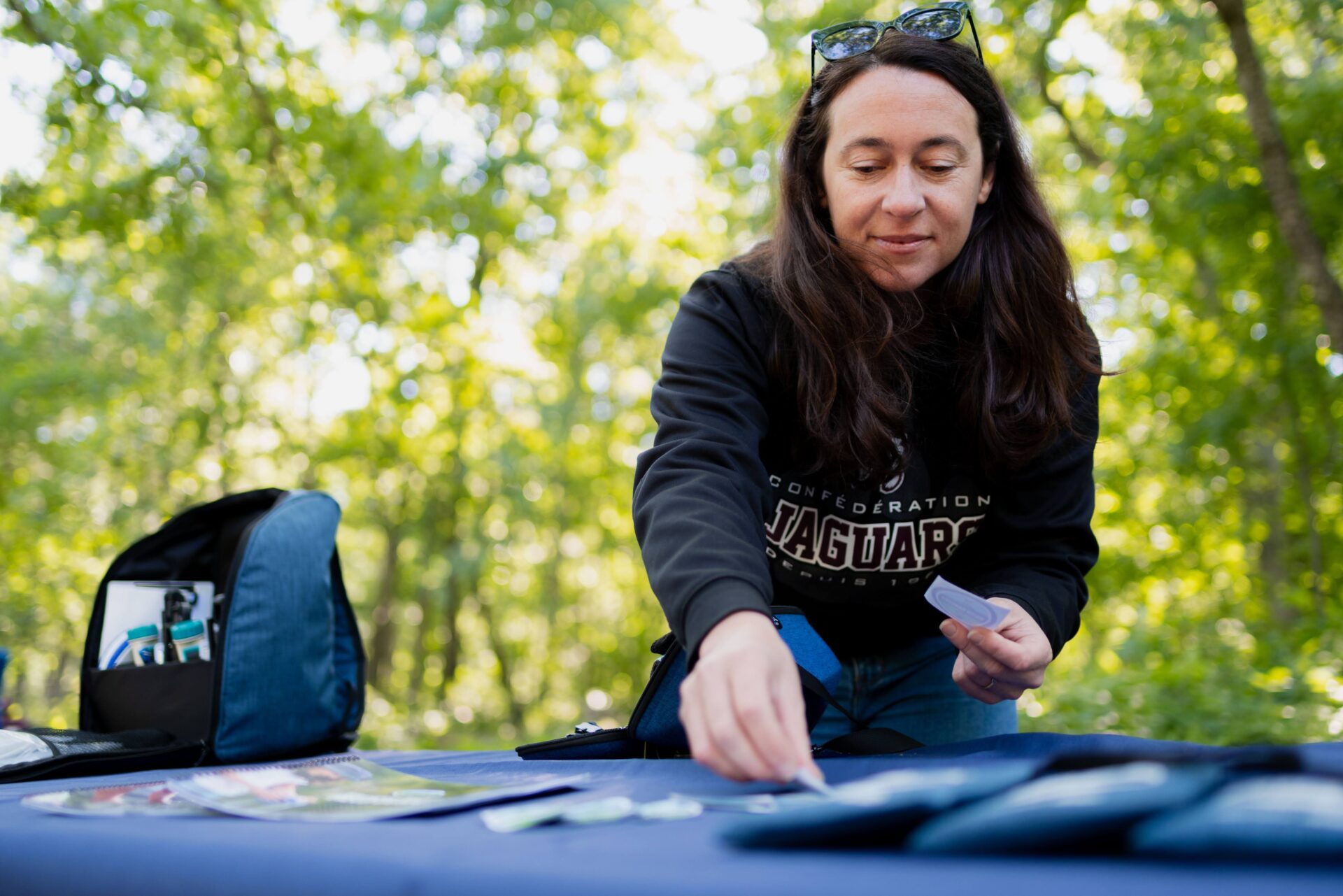
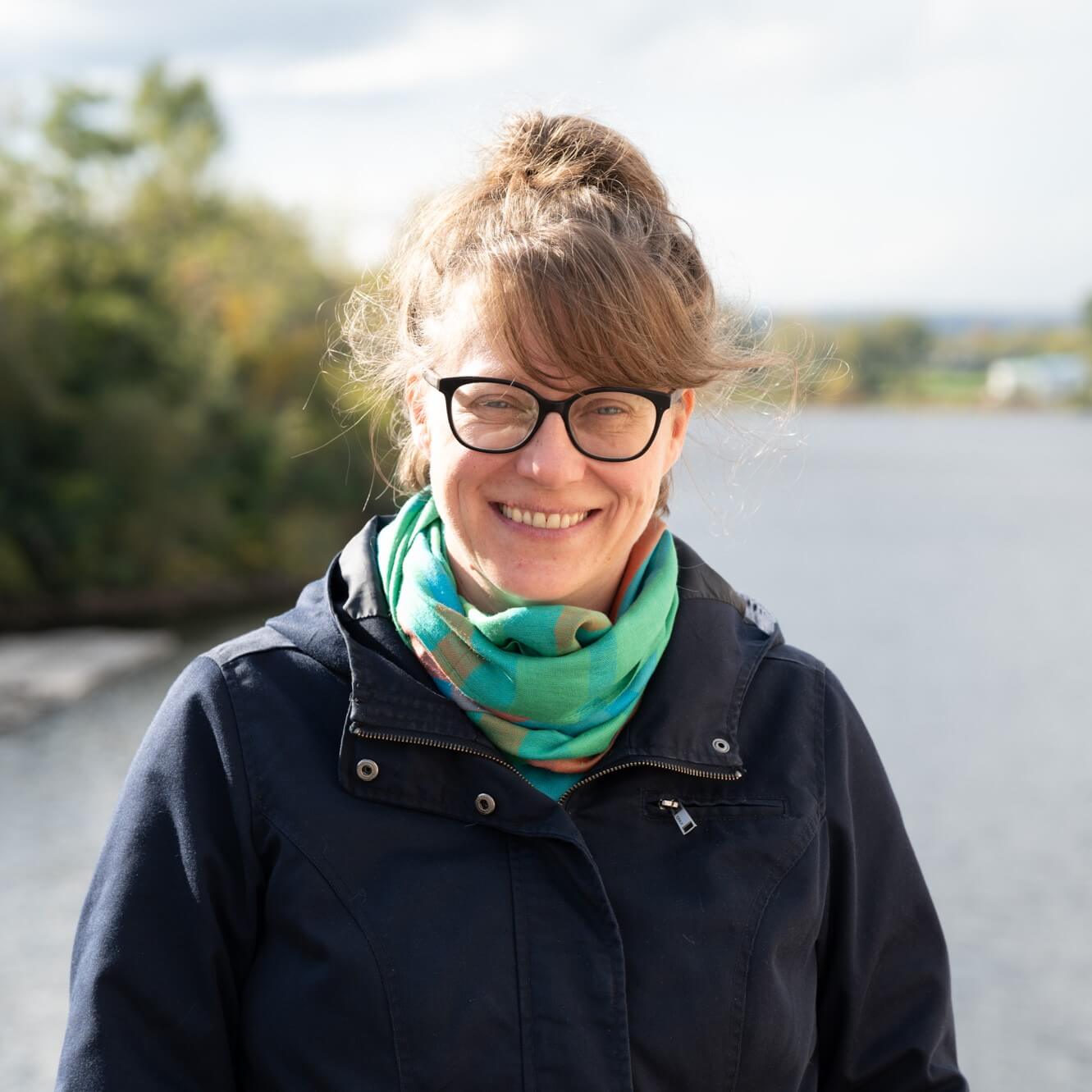 Larissa Holman is the Director of Science & Policy at Ottawa Riverkeeper, where she leads the organization’s most impactful portfolios—science and advocacy. She spearheaded the Watershed Health Assessment & Monitoring (WHAM) initiative, culminating in the 2024 Watershed Report Card, and has grown the Community Based Monitoring program to over 125 community scientists across a vast watershed. Larissa transforms data into action through policy leadership, government relations, and community engagement. Her clear, evidence-based communication and steady leadership—through three Riverkeeper transitions—have ensured a strong voice for watershed protection. She also contributes to regional conservation efforts through roles on multiple boards and works in close collaboration with Algonquin communities to advance respectful, inclusive science.
Larissa Holman is the Director of Science & Policy at Ottawa Riverkeeper, where she leads the organization’s most impactful portfolios—science and advocacy. She spearheaded the Watershed Health Assessment & Monitoring (WHAM) initiative, culminating in the 2024 Watershed Report Card, and has grown the Community Based Monitoring program to over 125 community scientists across a vast watershed. Larissa transforms data into action through policy leadership, government relations, and community engagement. Her clear, evidence-based communication and steady leadership—through three Riverkeeper transitions—have ensured a strong voice for watershed protection. She also contributes to regional conservation efforts through roles on multiple boards and works in close collaboration with Algonquin communities to advance respectful, inclusive science.
Larissa’s noteworthy accomplishments:
- Leading the implementation of WHAM, a massive, 14-indicator assessment of watershed health for the Ottawa River watershed. This includes community-based monitoring programs, direct research, benthic invertebrate monitoring with Algonquin communities, watershed-scope analysis of existing data, and convening an advisory body (the Watershed Health Committee) to validate findings with experts from their respective fields. More about the WHAM initiative is featured in this mini-documentary featuring Larissa and her science team >>
- Publishing the 2024 Watershed Report Card, a comprehensive analysis of river health using the findings and analysis from the WHAM initiative.
- Overseeing the Pollution Hotline, a community tool for communicating issues affecting the river. Concerns are reported by the public and can include anything from fish kills to oil spills to styrofoam docks abandoned in the river. Given the multiple, fragmented jurisdictions of water policy, the Pollution Hotline provides a singular way to report a concern and follow the case through to the appropriate authority.
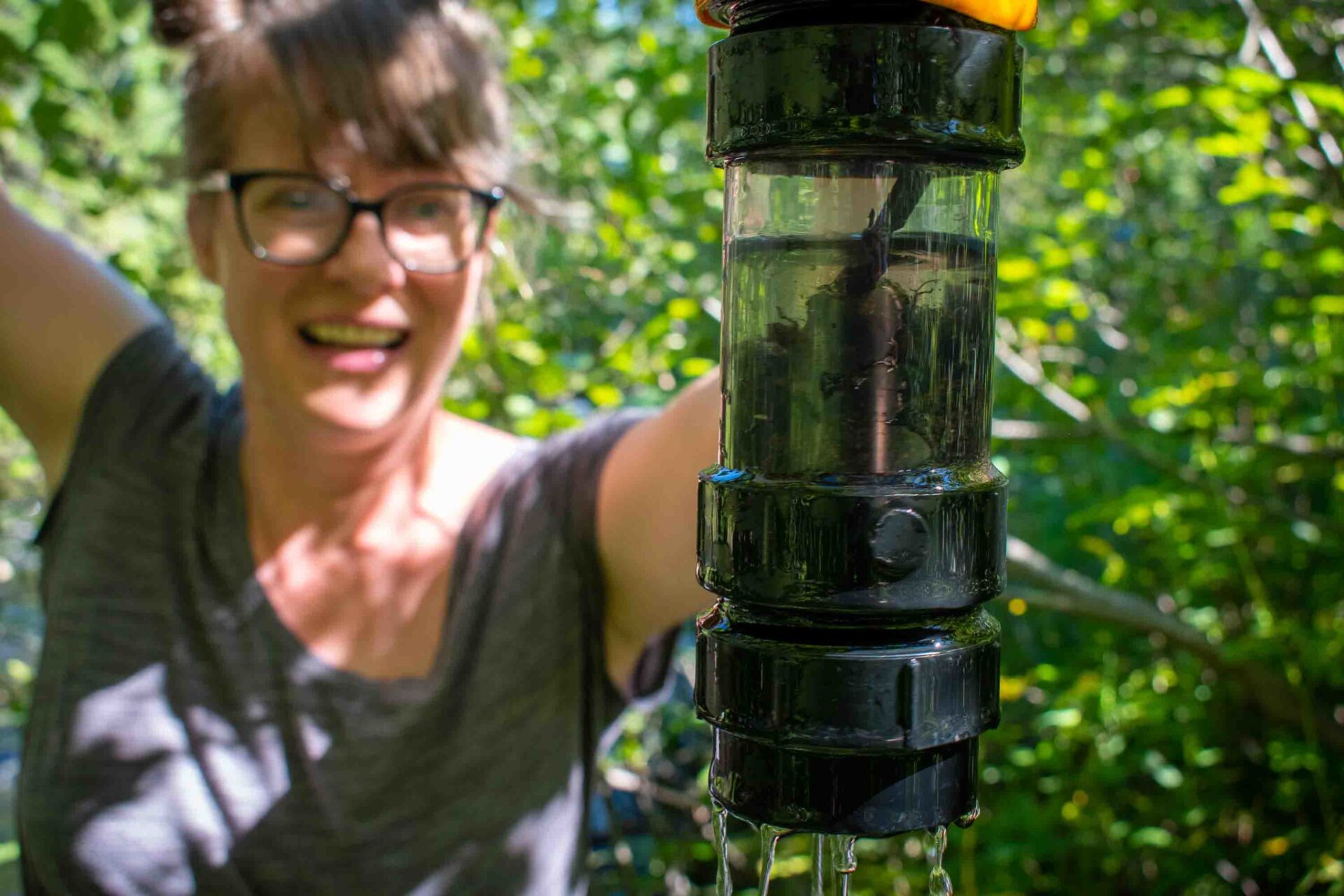
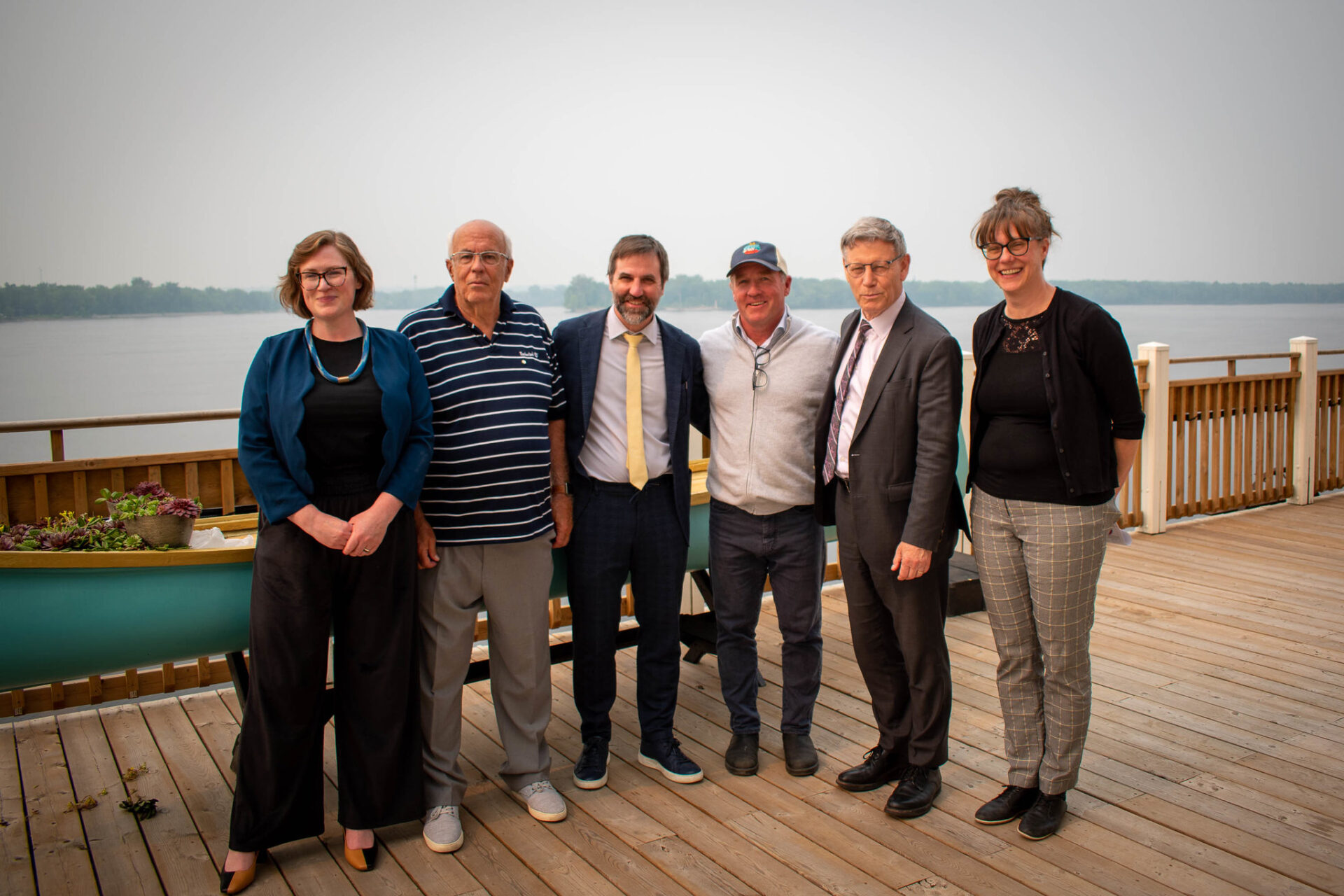
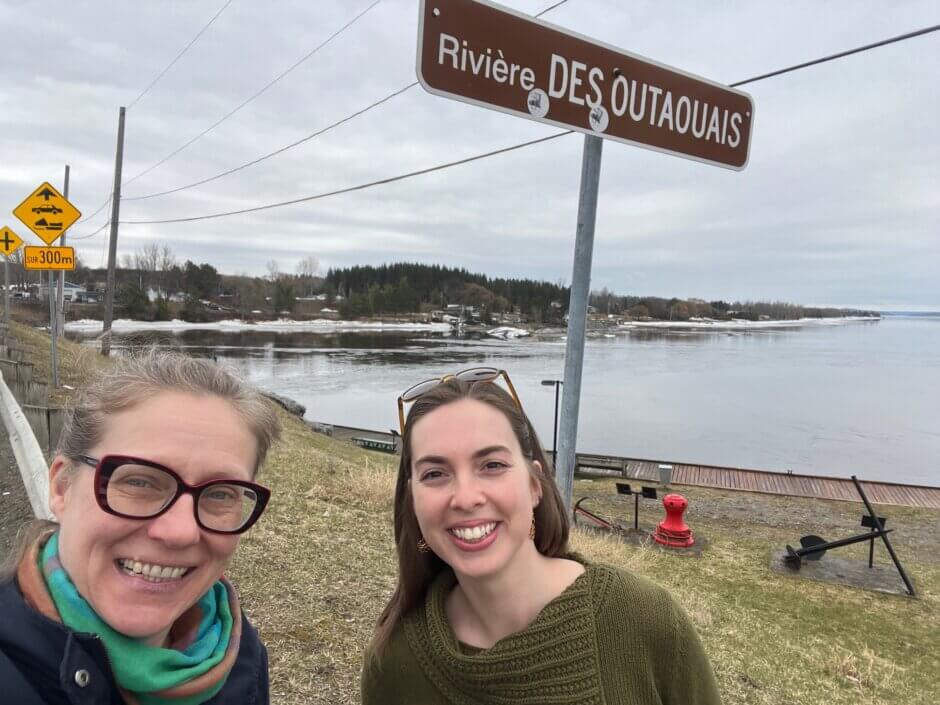
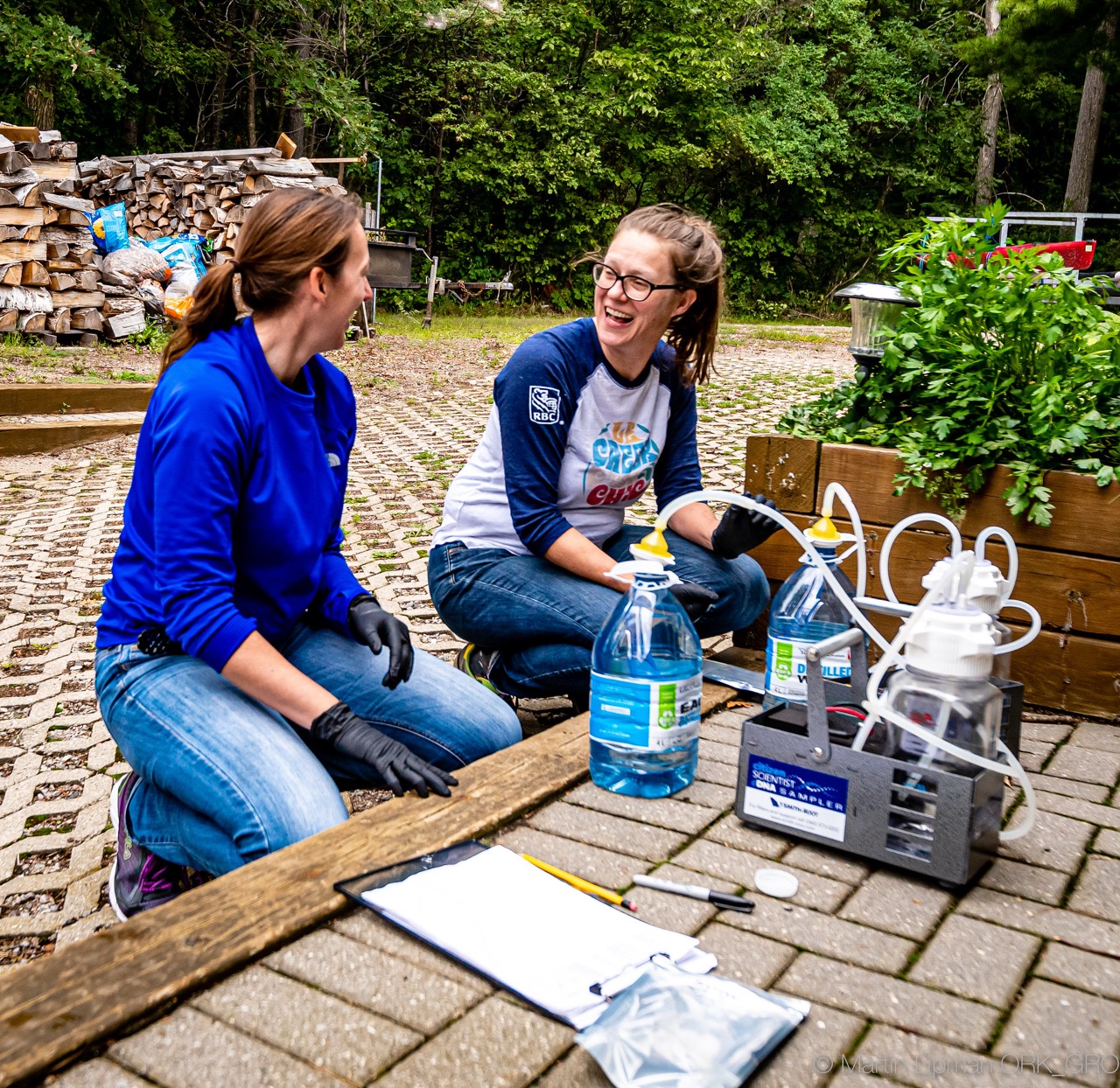
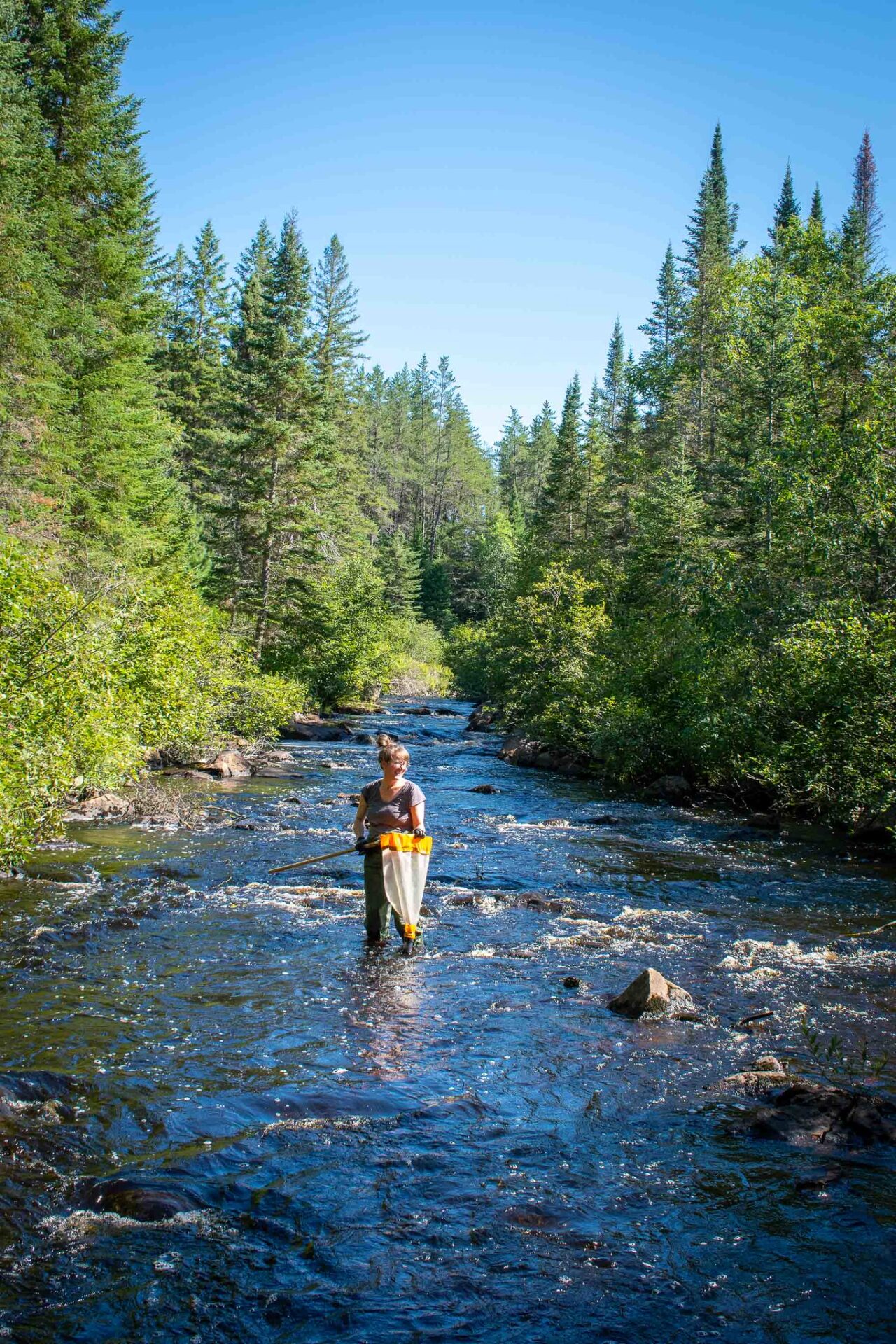
Career Champion
This award honours an individual who has made a significant, enduring impact on Canada’s water sector over the course of their career.
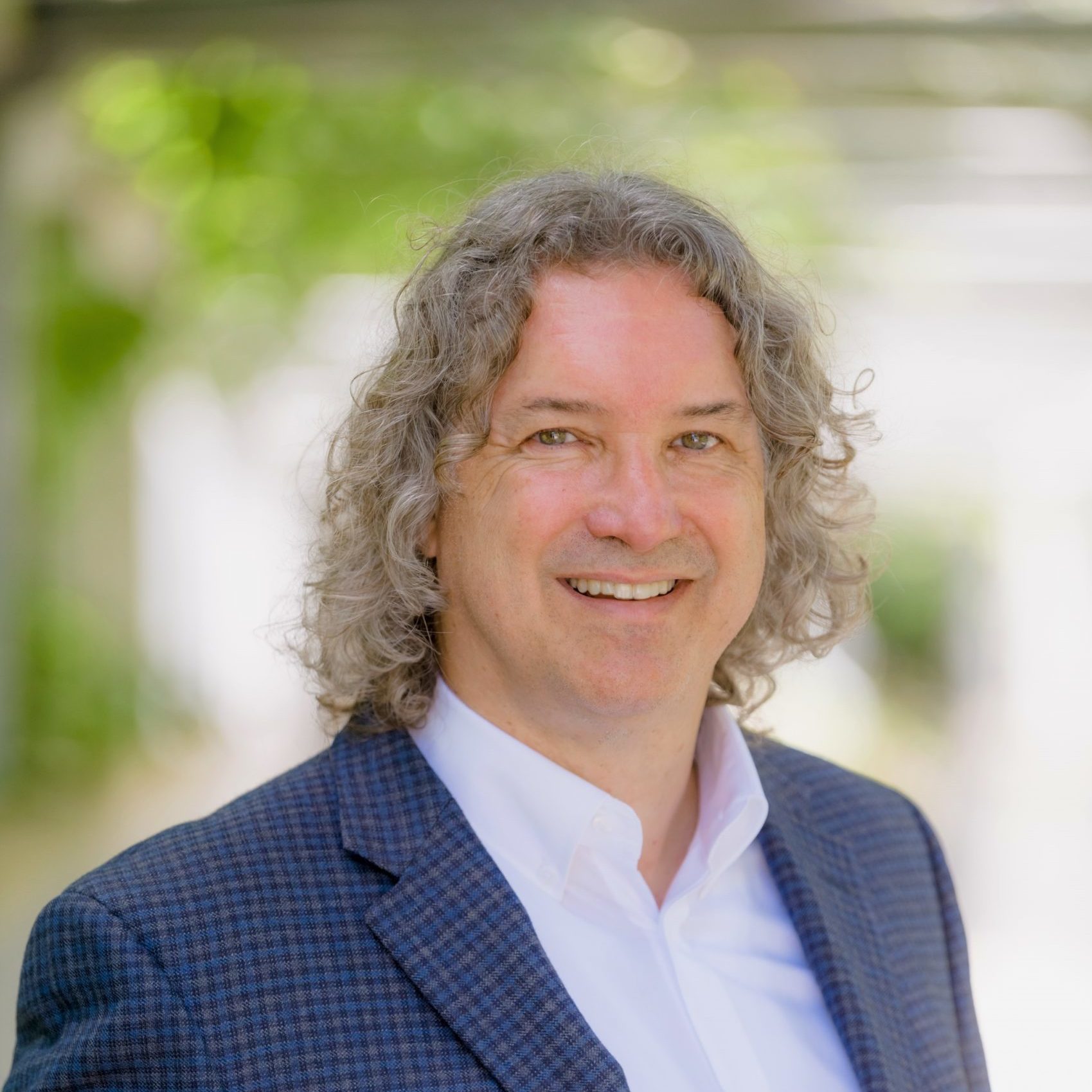 With over 30 years of influential leadership, Christopher Hilkene has shaped the Canadian water sector through visionary public policy, strategic communications, and cross-sectoral collaboration. As Executive Chair—and former CEO—of Pollution Probe, he has spearheaded national initiatives to protect freshwater ecosystems and mobilized partnerships across government, industry, academia, and Indigenous communities.
With over 30 years of influential leadership, Christopher Hilkene has shaped the Canadian water sector through visionary public policy, strategic communications, and cross-sectoral collaboration. As Executive Chair—and former CEO—of Pollution Probe, he has spearheaded national initiatives to protect freshwater ecosystems and mobilized partnerships across government, industry, academia, and Indigenous communities.
Chris’s career spans senior roles in both federal and provincial governments, leadership of the Clean Water Foundation, and advisory work that influenced landmark initiatives, including the Ontario Safe Drinking Water Act and the Great Lakes Plastic Cleanup. His efforts have educated millions through campaigns like I Don’t Flush, and his policy work has guided strategic investments in climate resilience, watershed restoration, and water security.
Internationally recognized for his contributions to the Great Lakes, Chris has held key positions with the International Joint Commission and has represented Canada at global forums including COP27. He has also mentored the next generation of water leaders and contributed to academic programs at York University and Carleton University.
A Clean50 Honouree and recipient of the 2025 King Charles III Coronation Medal, Chris exemplifies a career built on innovation, integrity, and impact. His decades of service and leadership make him a true champion of water in Canada and beyond.
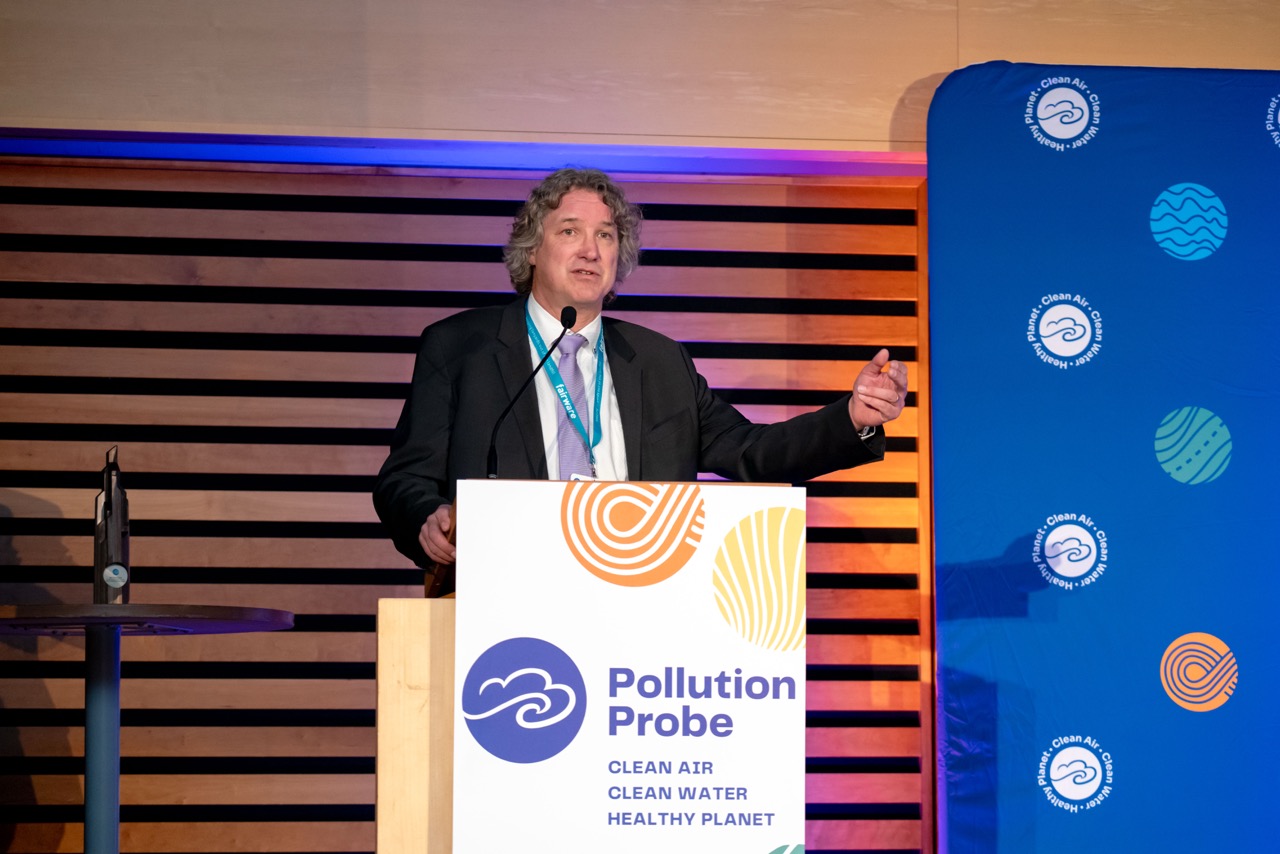
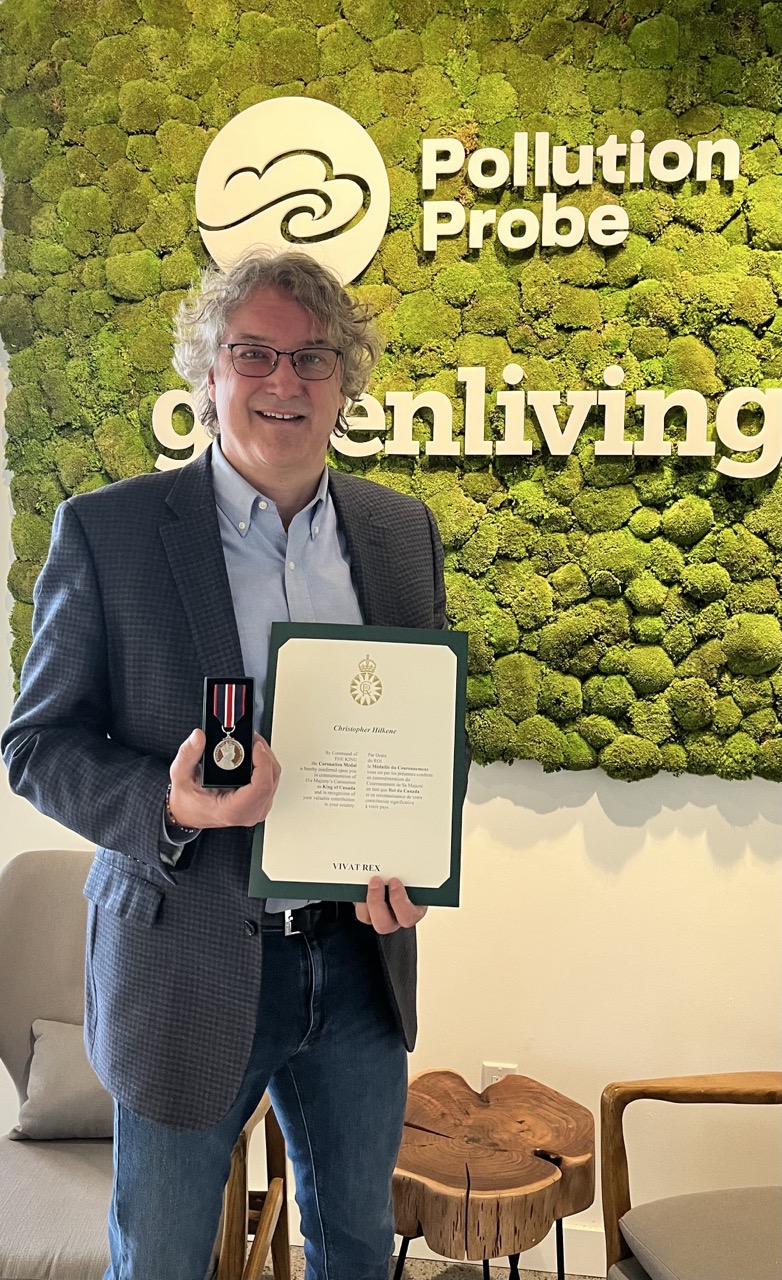
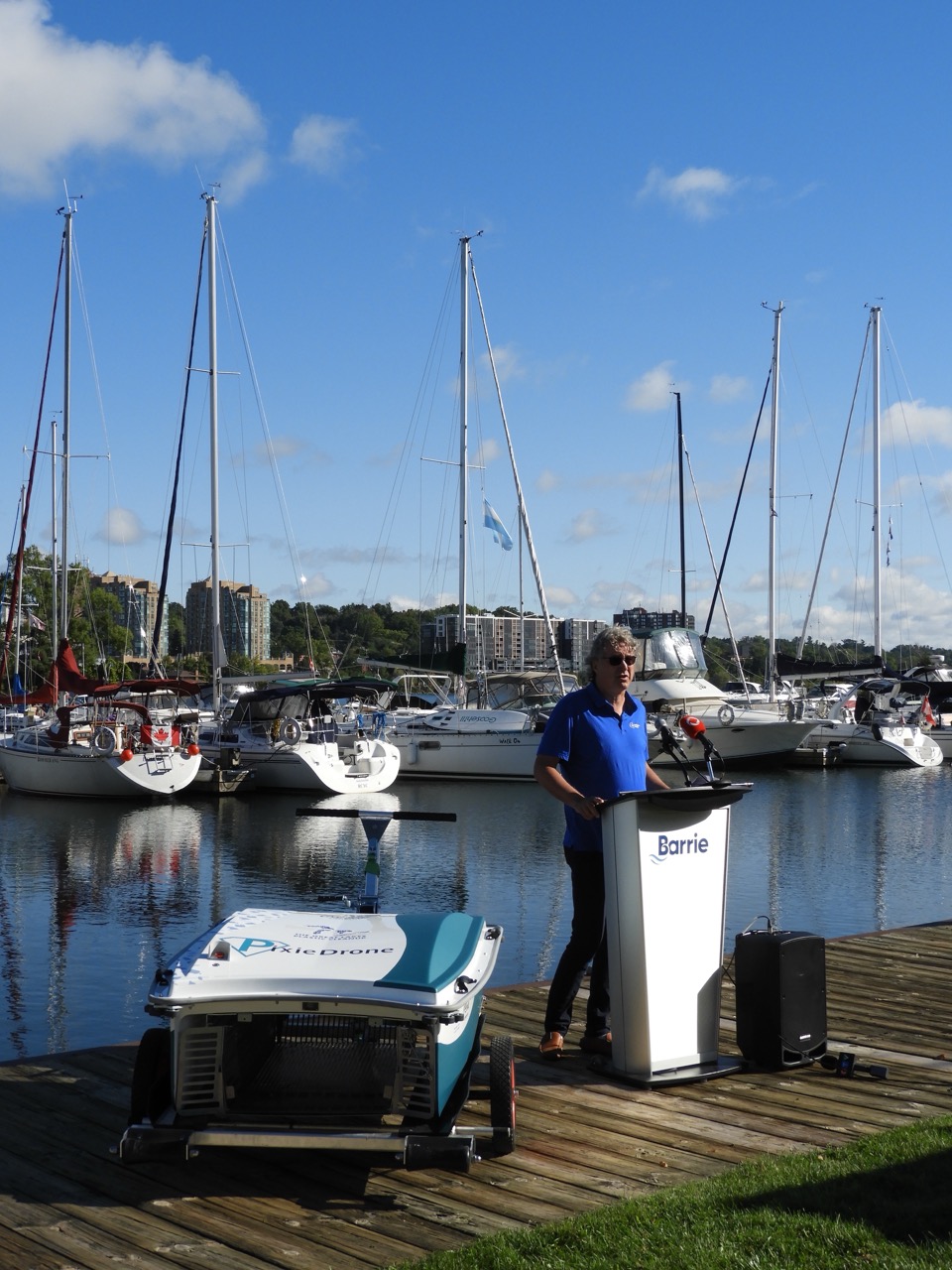
Christopher’s noteworthy accomplishments:
- Advisory Roles:
- Canadian Co-Lead, Emerging Issues, Great Lakes Water Quality Board, IJC (2014–2020)
- Chair, Water Programme, National Roundtable on the Environment and the Economy (2009–2013)
- Member, National Advisory Panel, Chemistry Industry of Canada (2019–present)
- Advisor, Blue Economy Project, Walter & Duncan Gordon Foundation (2010)
- Chair & Vice Chair, Board of Directors, Pollution Probe (2011–2018)
- Advisory Board Member, Global Water Programme, Carleton University (2016–present)
- Member, Task Force to Bring Back the Don, City of Toronto (2001–2007)
- Director, Niagara River Restoration Council (1998–1999) and Chair, Riversides Foundation (2002–2005)
- Key Projects & Recognized Campaigns:
- Great Lakes Plastic Cleanup (2020 – present): The largest initiative of its kind in North America, combining the piloting of innovative plastic capture technology with critical data collection and community science, and the engagement of communities as part of the solution to plastic pollution in the Great Lakes.
The Great Lakes Plastic Cleanup was a 2021 Finalist, Water Canada’s Water’s Next Awards
Coverage: Featured in a wide range of media outlets across Canada, including CBC, CTV, Global News, City News, Omni, Cottage Life, and many, many more. - I Don’t Flush Campaign (2015–present): A national multimedia public engagement campaign to reduce flushing of pharmaceuticals and personal care products, protecting water quality across Ontario and beyond.
2021 Finalist, Water Canada’s Water’s Next Awards
2016 Winner, Canadian Water & Wastewater Association Public Engagement Award
2015 Winner, Water Environment Federation Engagement Campaign of the Year (Overall & People’s Choice)
Coverage: Water Canada, Ontario Pipeline Magazine, and significant additional coverage all across North America. The campaign continues to be used by municipalities all over North America. - Annex Author, Canada-Ontario Agreement (2002): Authored sections of the key agreement guiding the protection and restoration of the Great Lakes Basin Ecosystem.
- Walkerton Inquiry (2000): Served as an advisor to the Ontario Ministry of Environment and provided advice on The Safe Drinking Water Act, source water protection planning and helped with the creation of the Office of the Chief Drinking Water Inspector.
- Bulk Water Transfer Policy Development (1997): Served as principal consultant to the federal government in shaping Canada’s strategic position on inter-basin water transfers.
- Great Lakes Plastic Cleanup (2020 – present): The largest initiative of its kind in North America, combining the piloting of innovative plastic capture technology with critical data collection and community science, and the engagement of communities as part of the solution to plastic pollution in the Great Lakes.
- Presentations, Publications & Media:
Chris is been a highly sought-after speaker and commentator on water issues, contributing to academic forums, government symposia, and mainstream media:- Keynote Speaker: Water Opportunities 2010 Conference, Great Lakes Plastics Forum2018), The Future of Toronto’s Water GreenTOpia Speaker Series (2008)
- Guest Speaker: Canadian Council of Ministers of the Environment, Huntsville (2023); Canadian Water Summit, Fireside chat host (and presenter); Environment Canada World Water Day Symposium (2012); Water Management, Climate Change and Green Infrastructure, Commission for Environmental Cooperation, Public Forum, Boston (2015); Water Policy and the Sustainability of Canada’s Natural Resource Sectors. Asian Business and Management Program, York University (2012); Water Sustainability and Canada’s Agricultural Sector, Environment Canada Action Network World Water Day Symposium (2012)
- Panelist: Innovation, Policy and Engagement, Great Lakes Economic Forum, Chicago (2022); Commission for Environmental Cooperation (2015); Moderator, CWRA World Water Day Panel on Achieving Sustainable Water Resources Management: Business Successes & Challenges in the Food & Beverage Industry (2012); Queen’s School of Policy Studies, Water as a Social Opportunity Conference (2011); McGill Institute Annual Conference, Canadian Water: Towards a New Strategy (2010)
- Chapter Contributor with M. De Young and M. Fisher, Plastic Pollution: Nature Based Solutions and Effective Governance (2023)
- Feature Contributor, Corporate Knights – “Water Management: Canadian Cities Navigating Murky Waters”
- Media Contributor: CTV Consumers Report, Rogers TV (York Region and Mississauga), SunMedia News, CBC, CTV News, City News, Global News, Water Canada, Environment Journal, Cottage Life
 With over four decades of leadership across five continents, Valerie Jenkinson has made an extraordinary global impact on the water sector. As Founder and Chair of Operators Without Borders, she leads emergency deployments and technical training programs that support disaster recovery and capacity building in vulnerable regions.
With over four decades of leadership across five continents, Valerie Jenkinson has made an extraordinary global impact on the water sector. As Founder and Chair of Operators Without Borders, she leads emergency deployments and technical training programs that support disaster recovery and capacity building in vulnerable regions.
Valerie is also the CEO of World Water and Wastewater Solutions Ltd., one of Canada’s largest water-sector training firms, providing over 70 accredited courses and certification preparation to professionals across the country. Her earlier work as President of Nova Quality Research influenced provincial training standards, and her 25-year tenure as an instructor at BCIT cemented her expertise in adult education.
Her dedication extends to numerous advisory and governance roles, including with Wastewater Education and the UN’s Global Wastewater Initiative. Valerie’s career is defined by her commitment to knowledge-sharing, international collaboration, and building operational resilience in water systems worldwide.
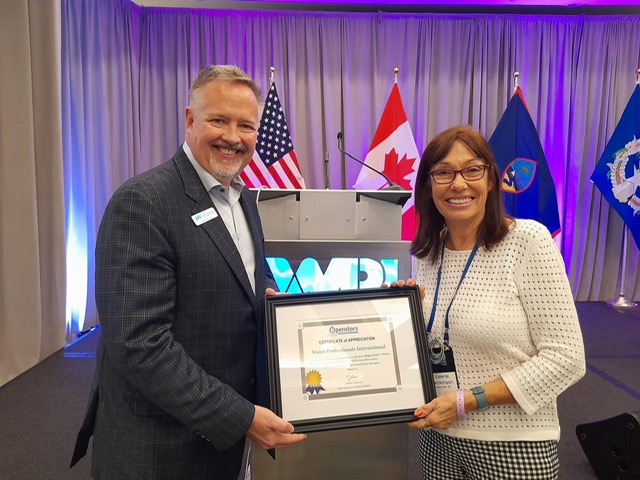 .
. 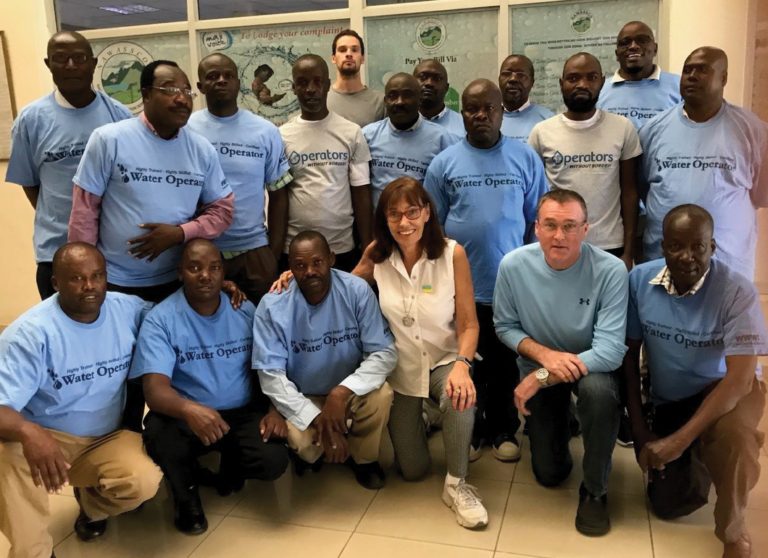
Valerie’s noteworthy accomplishments:
- Founded Operators Without Borders (2017): Established a volunteer-driven organization to send water/wastewater professionals to disaster-affected regions. Since its inception, OWB has grown to over 60 volunteer operators and delivered nearly $2 million in value through training and relief deployments, significantly improving water service recovery in communities struck by hurricanes, earthquakes, and other crises.
- Post-Hurricane Maria Deployment (Dominica, 2017): Led OWB’s first emergency mission to Dominica after Hurricane Maria, coordinating Canadian operators to restore drinking water to three villages and repair the main wastewater treatment plant. This successful pilot demonstrated the impact of sharing Canadian expertise abroad and laid the groundwork for OWB’s ongoing disaster response efforts.
- Incident Command System (ICS) Training Initiative: Championed the introduction of formal emergency management training (ICS) for water utility personnel in multiple regions. Under Valerie’s guidance, OWB volunteers have trained over 500 operators and emergency staff at ICS Level 100 across the Caribbean and South America and delivered advanced ICS workshops to Polish and Ukrainian water professionals amid the Ukraine conflict. These programs have strengthened crisis preparedness and coordination in the global water sector.
- Capacity Building in Haiti (HANWASH Project): Partnered with Rotary International’s HANWASH program to improve water systems in Haiti. Valerie oversaw an OWB initiative in Pignon, Haiti that reduced non-revenue water from 80% to 35% by rehabilitating infrastructure and training local staff. This project showcased the power of targeted capacity building to achieve tangible improvements in water service delivery.
- African Water Operator Training (Kenya, 2021 and 2023): Coordinated a collaborative training program in Nakuru, Kenya (with UN-Habitat’s Global Wastewater Initiative and others), yielding the first certified Kenyan wastewater operators. Valerie personally conducted exam-preparation workshops for 16 trainees, two of whom passed their certification exams – a milestone achievement for African operator accreditation. A follow-up program in 2023 yielded five more certified operators.
- World Water & Wastewater Solutions (WWWS) Achievements: Through WWWS, Valerie has contributed to the professional growth of thousands of operators. She developed over 70 accredited courses and certification prep classes, helping operators attain and upgrade their licenses across Canada and the Caribbean. She also co-created the Effective Utility Management certificate program (nine courses), aligning with industry best practices, which has enhanced leadership skills among water utility managers nationwide.
- Consultancy and International Projects: As a consultant, she performed operational assessments for utilities in Saint Lucia, Antigua, and Barbados, and advised on wastewater solutions in countries from Belize to Argentina. Her strategic planning work for the BC Ministry of Health’s certification program and the BC Water & Wastewater Association helped shape training and certification policies still in effect.
- Honors and Recognition: Valerie’s accomplishments have been acknowledged with multiple honors. She was twice nominated for the Canadian Woman Entrepreneur of the Year award and received the BC Quality Council Award of Excellence for Customer Focus. In 2021, she was named the Global Water Partners Caribbean “Focal Point of the Year” for her contributions to regional water initiatives. These accolades reflect her leadership and impact on the water industry.
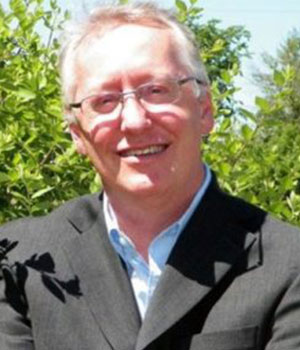 Robert Haller has dedicated his entire professional life to the public service and advancement of Canada’s water sector. From early beginnings in the Canadian Navy to environmental management roles in municipal government, Robert’s path has consistently centered on water, sustainability, and leadership. He earned a Bachelor’s degree in Geography from Carleton University and a Master’s in Public Administration from Western University, where his thesis focused on the Walkerton tragedy and resulting water policy reforms.
Robert Haller has dedicated his entire professional life to the public service and advancement of Canada’s water sector. From early beginnings in the Canadian Navy to environmental management roles in municipal government, Robert’s path has consistently centered on water, sustainability, and leadership. He earned a Bachelor’s degree in Geography from Carleton University and a Master’s in Public Administration from Western University, where his thesis focused on the Walkerton tragedy and resulting water policy reforms.
For over a decade, Robert served as Chief Administrative Officer in rural municipalities, overseeing water and wastewater services. Since 2012, he has been the Executive Director of the Canadian Water and Wastewater Association (CWWA), where he has transformed the organization into a respected national voice for municipal utilities. He’s not just a voice for the utilities but someone who cares about about every person in the industry. It doesn’t matter if you are an entry level operator from a rural community or Mayor of a large city, Robert is there for you. His background uniquely qualifies him for the Career Champion award, given the breadth of his leadership and commitment across local, national, and international stages.
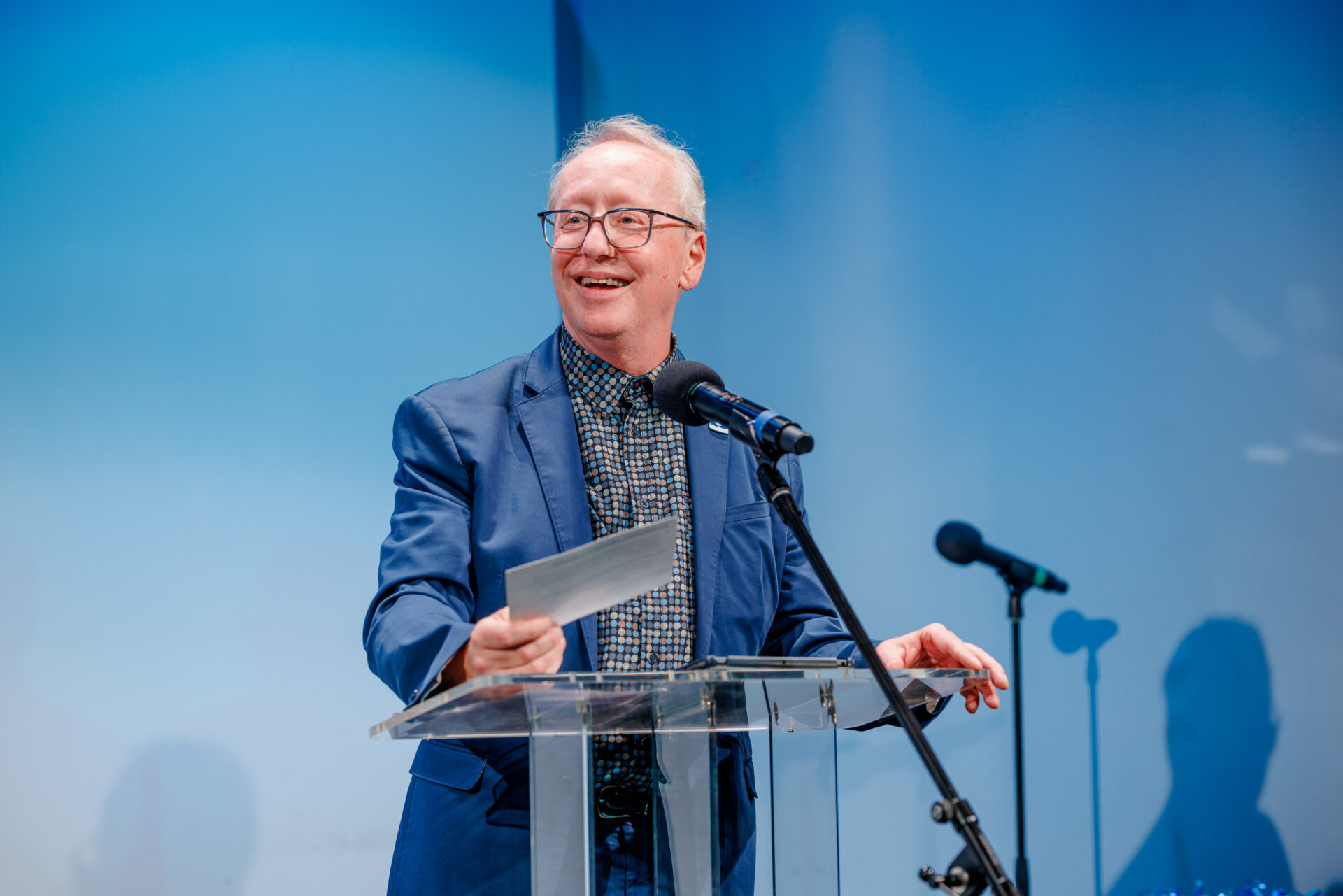

Robert’s noteworthy accomplishments:
- Chair, Source Protection Zones Committee for the St. Lawrence River.
- Board Member, Operators Without Borders (OWB); founding secretary and ongoing support for global operator deployment, including programs for Ukraine.
- National Collaboration, maintaining active roles with every major Canadian and international water organization (AWWA, WEF, CWRA, CNAM, CSCE, and more).
- Mentorship and Support: Advisor to Canadian Young Water Professionals (YWP), contributor to Aquahacking and Downstream, and ongoing mentor to dozens of students and early-career professionals.
- Media Contributor: Longstanding member of Water Canada’s Advisory Board, regularly shaping coverage and advancing Canadian water narratives.
PROJECTS
Early Adopter/ Innovation Partnership Award
This award recognizes a forward-thinking partnership between a municipality, corporation, or institution and a technology provider, highlighting their joint commitment to advancing Canada’s water industry.
The Salish Sea Kelp Restoration Project, a powerful partnership between the Snuneymuxw First Nation, Cascadia Seaweed, and Foresight Canada, strongly merits the Innovation Partnership Award. By integrating nature-based technology into marine stewardship, the project demonstrates a joint commitment to advancing Canada’s water industry through ecological restoration and enhanced coastal resilience. Its potential for broader adoption by other Indigenous communities and coastal communities as a sustainable solution and the collaborative spirit driving this innovation perfectly align with the award’s focus on partnerships that promise significant impact in Canada’s water sector.
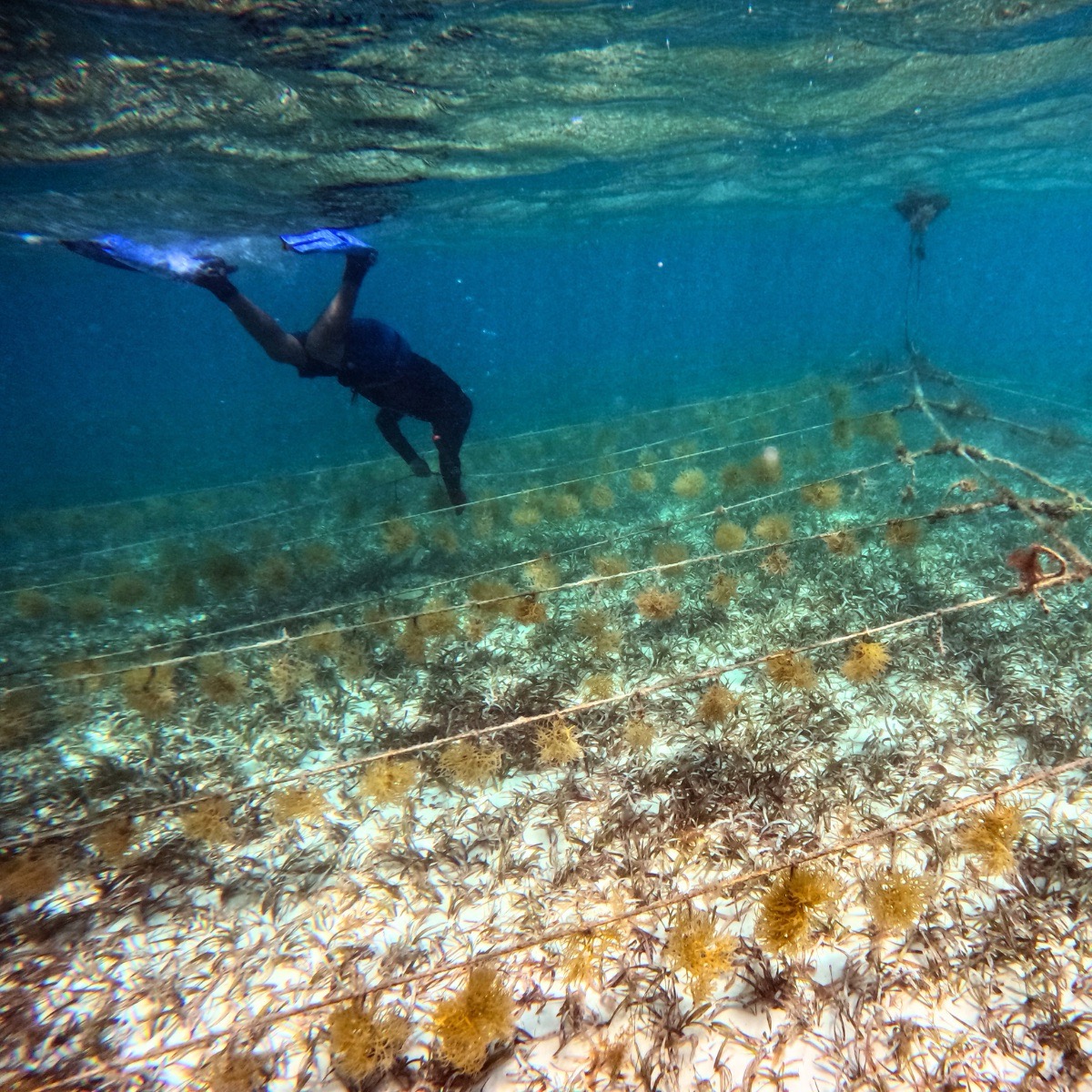
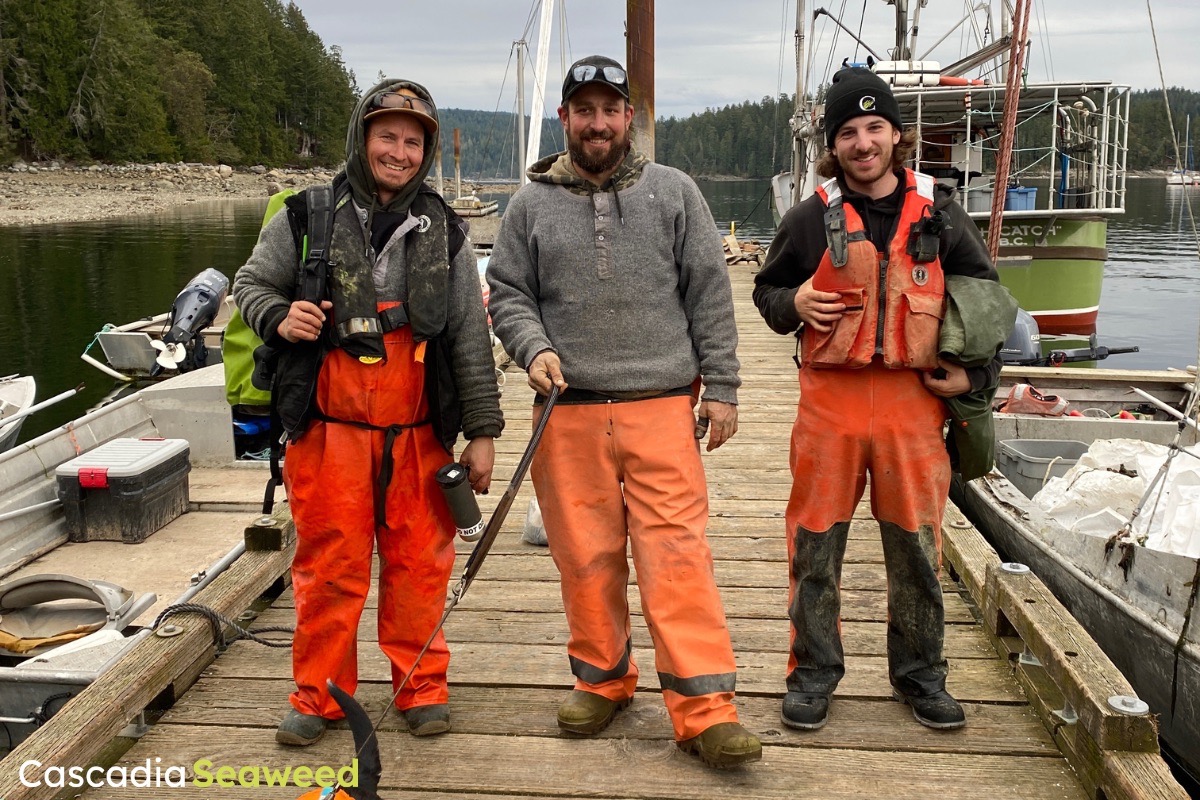
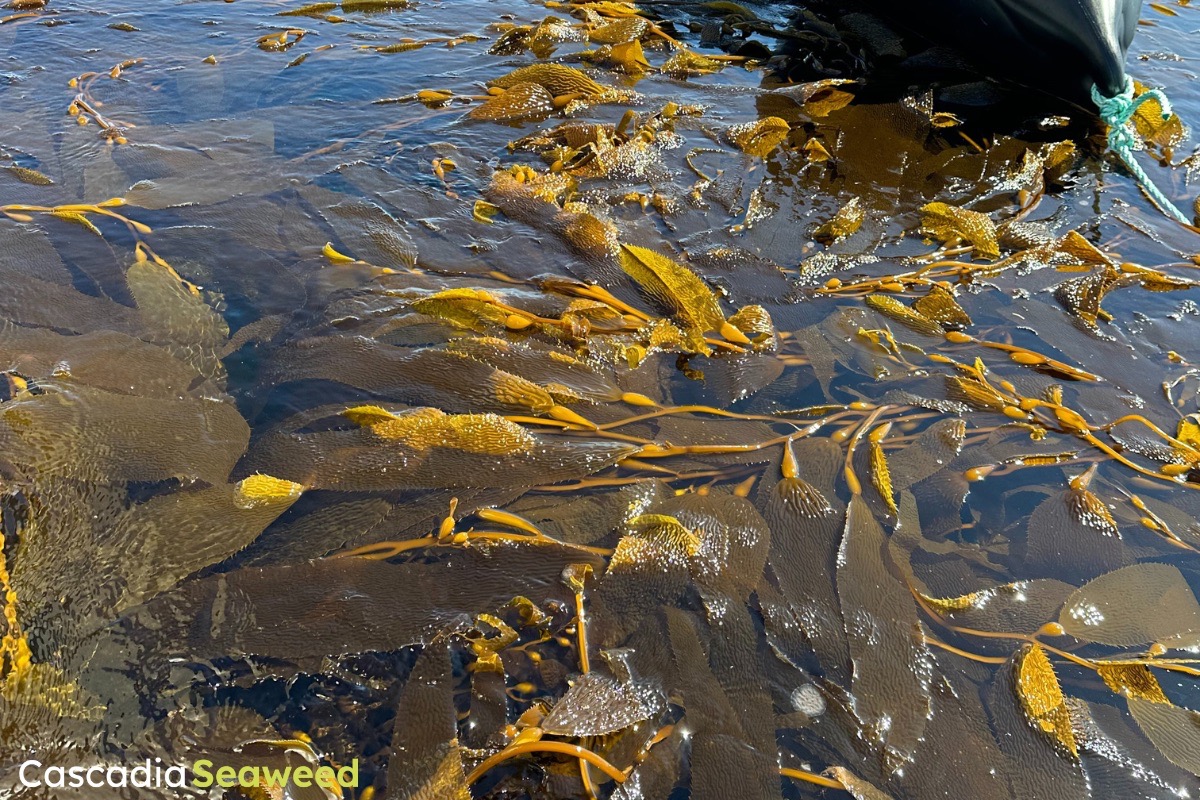
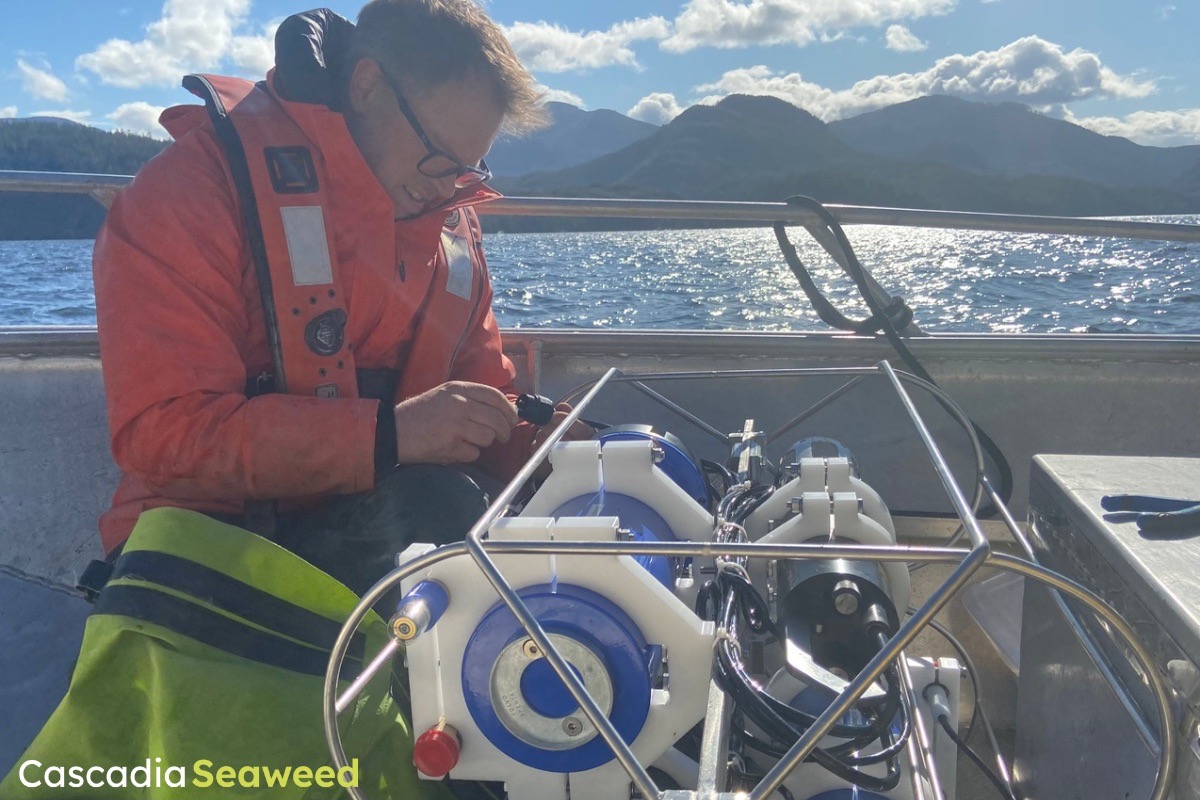
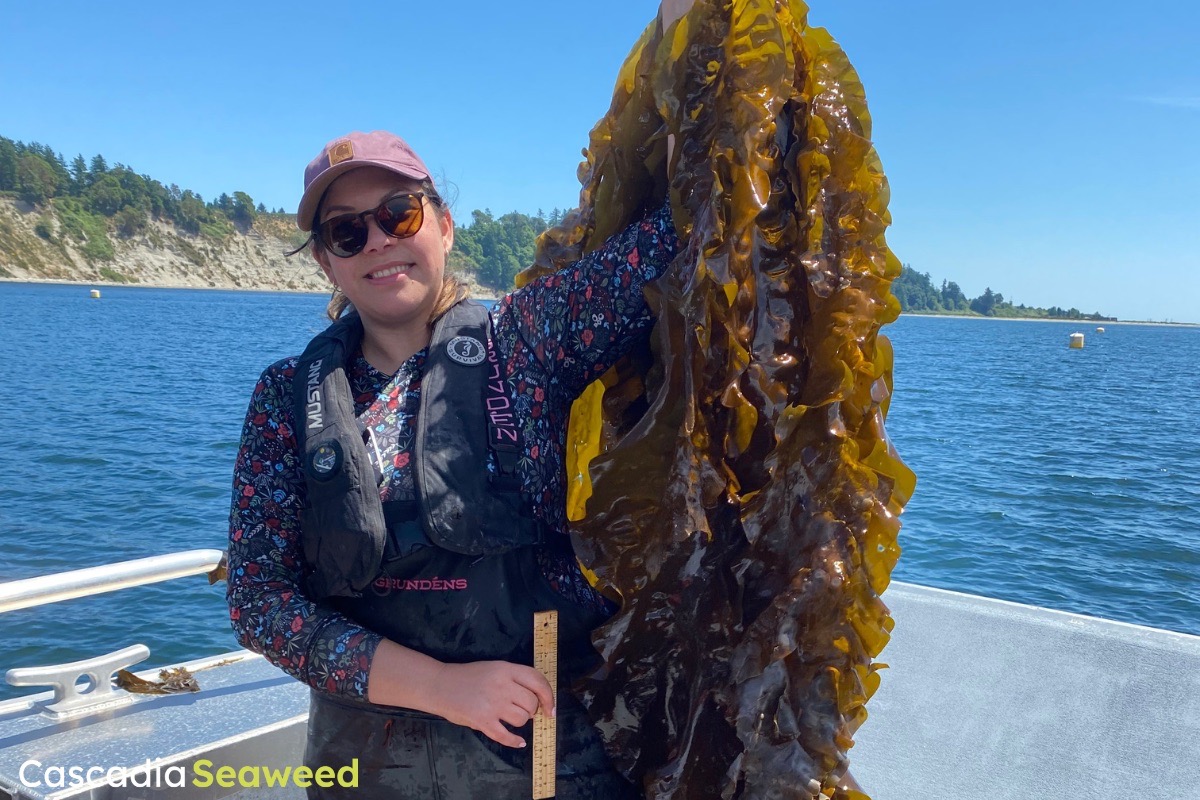
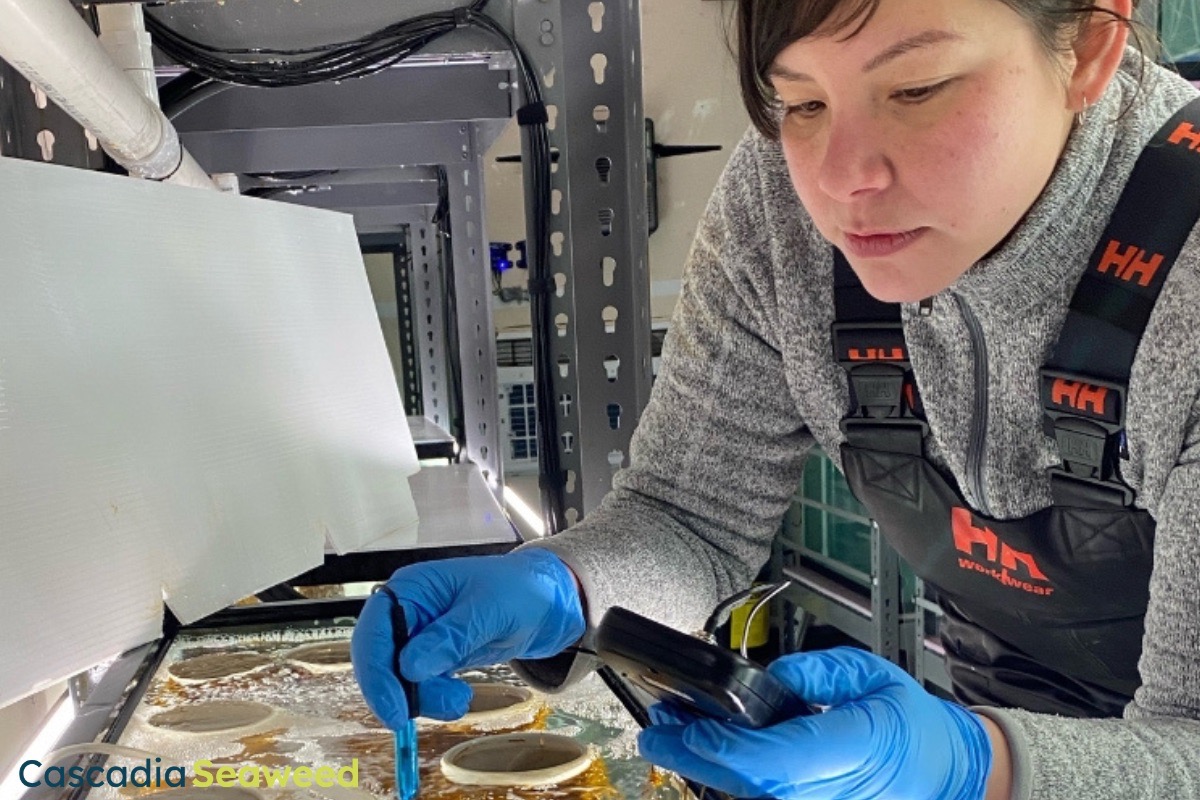
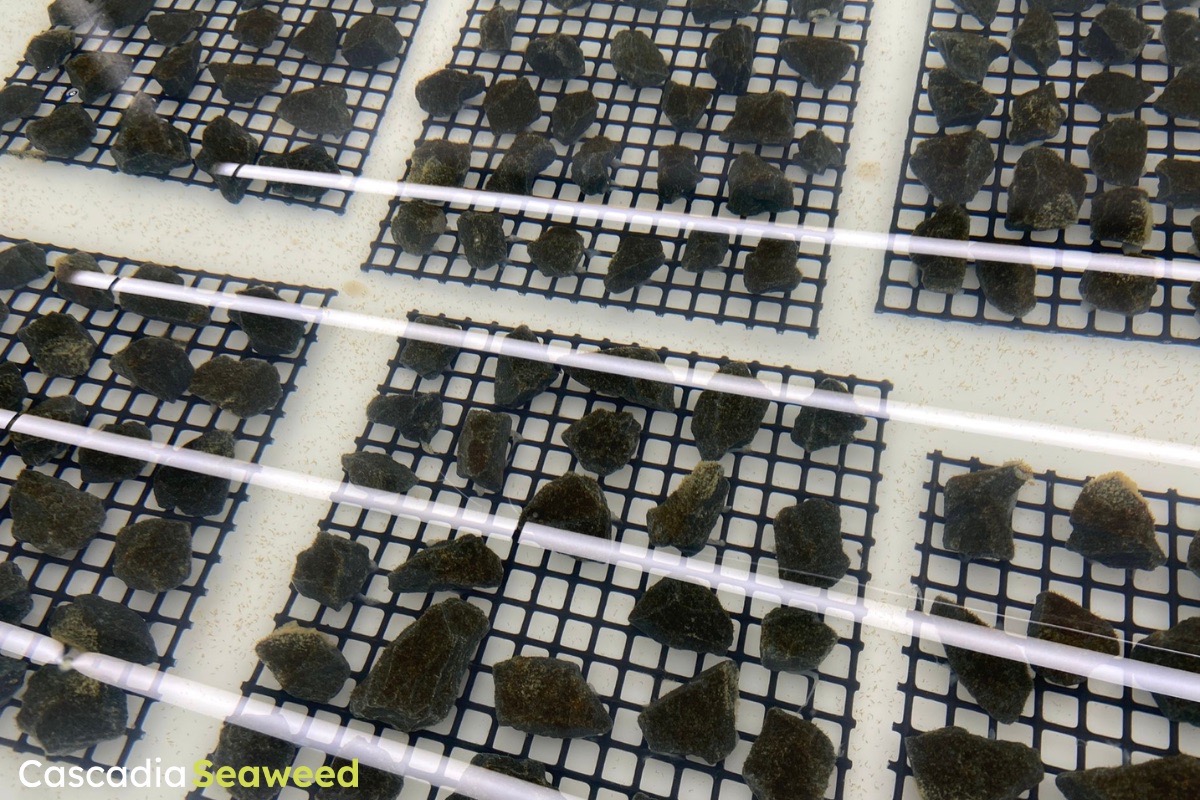
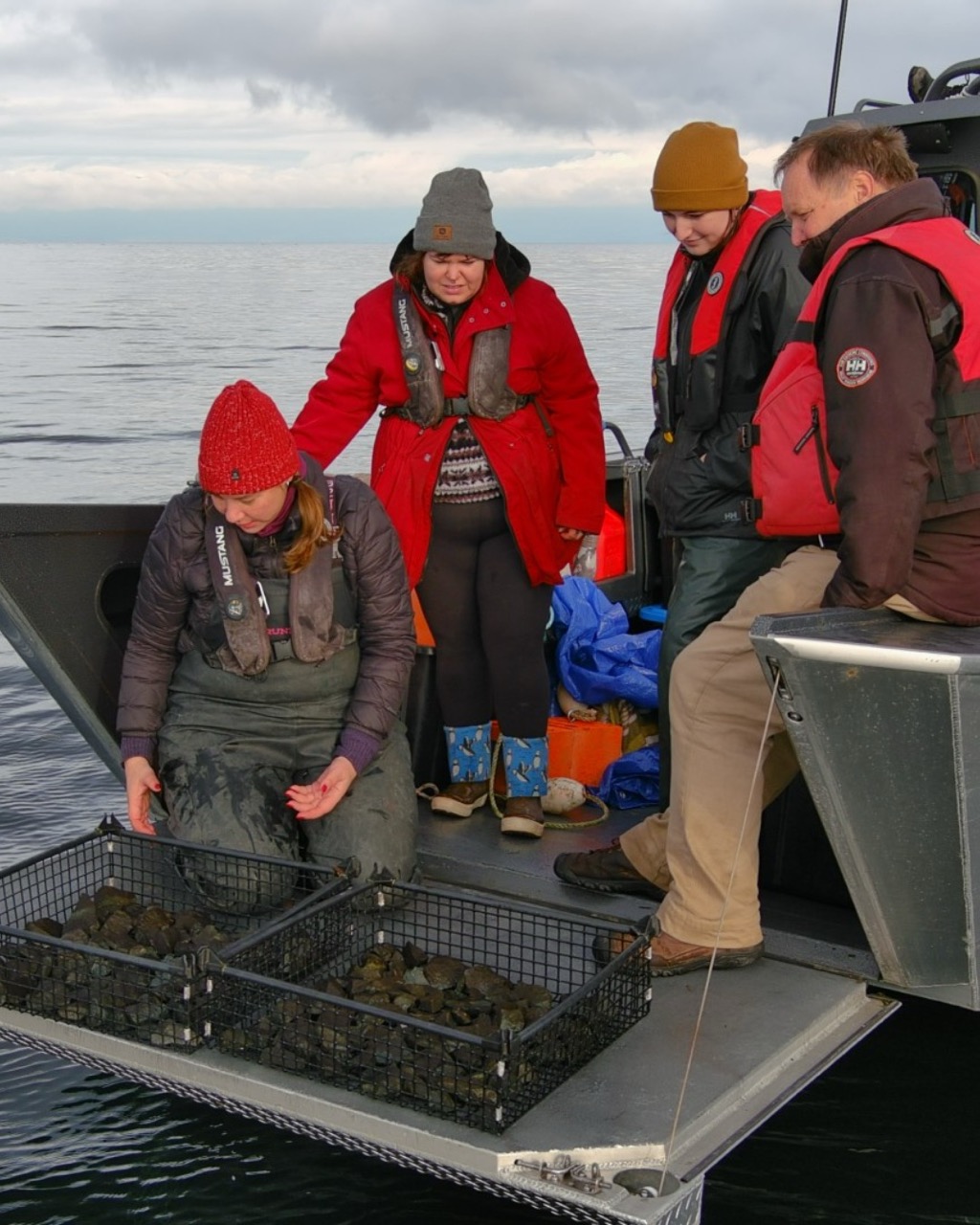
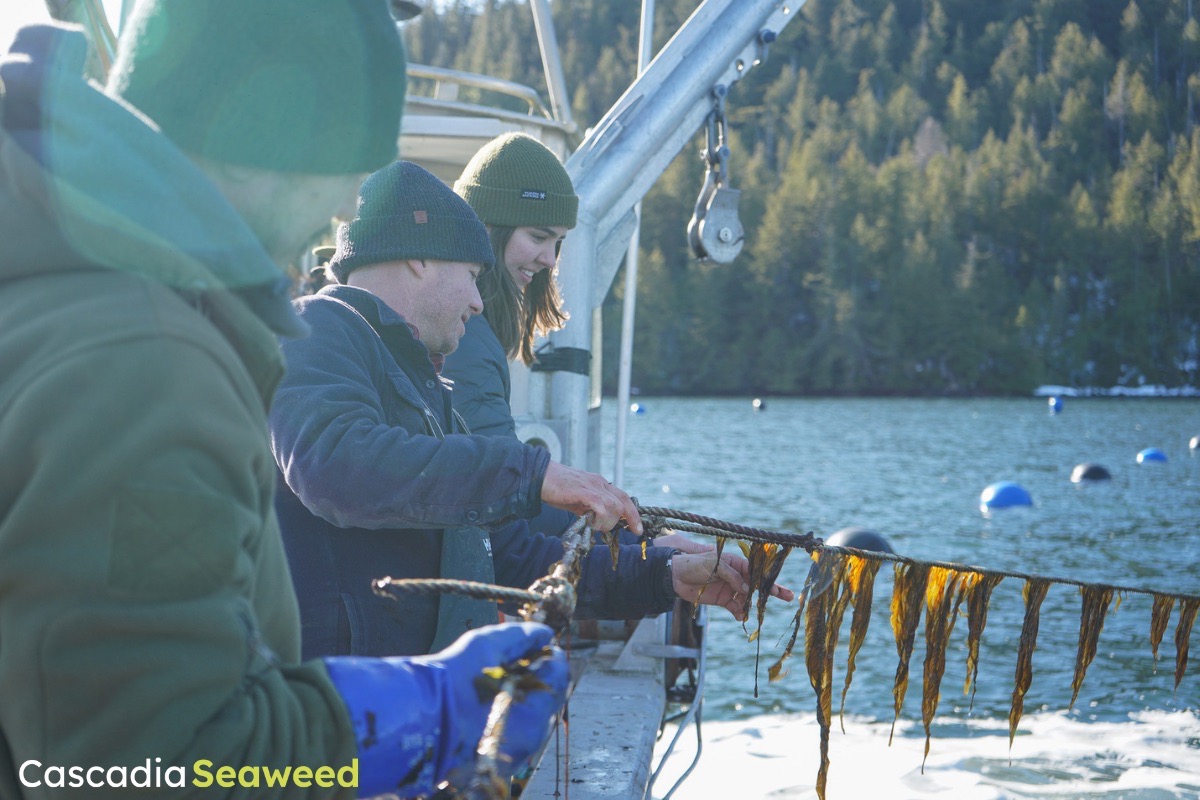
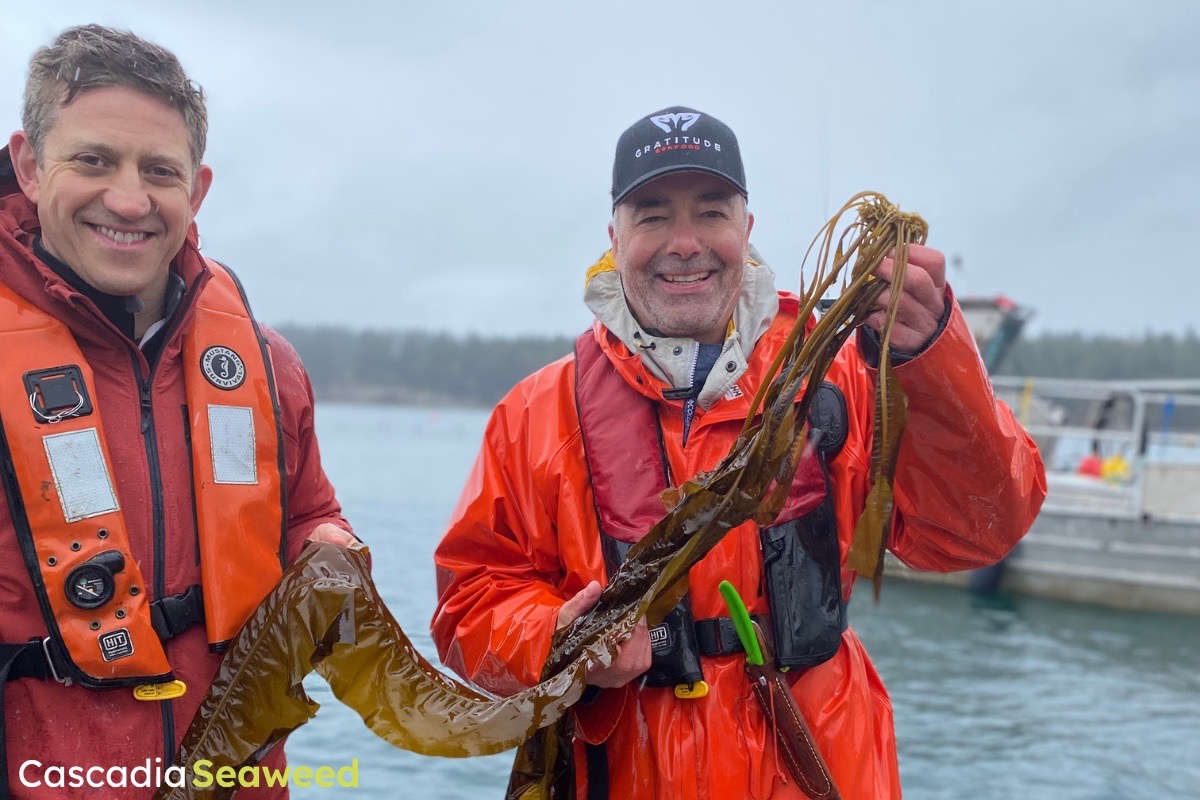
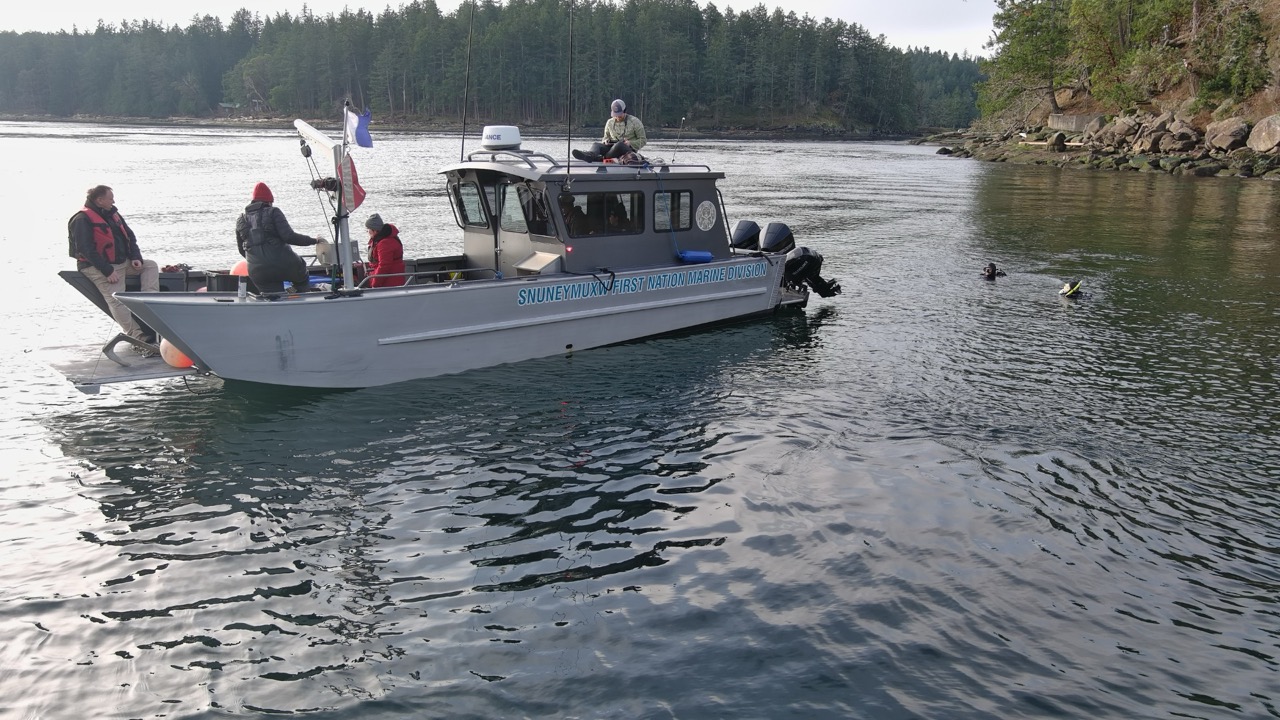
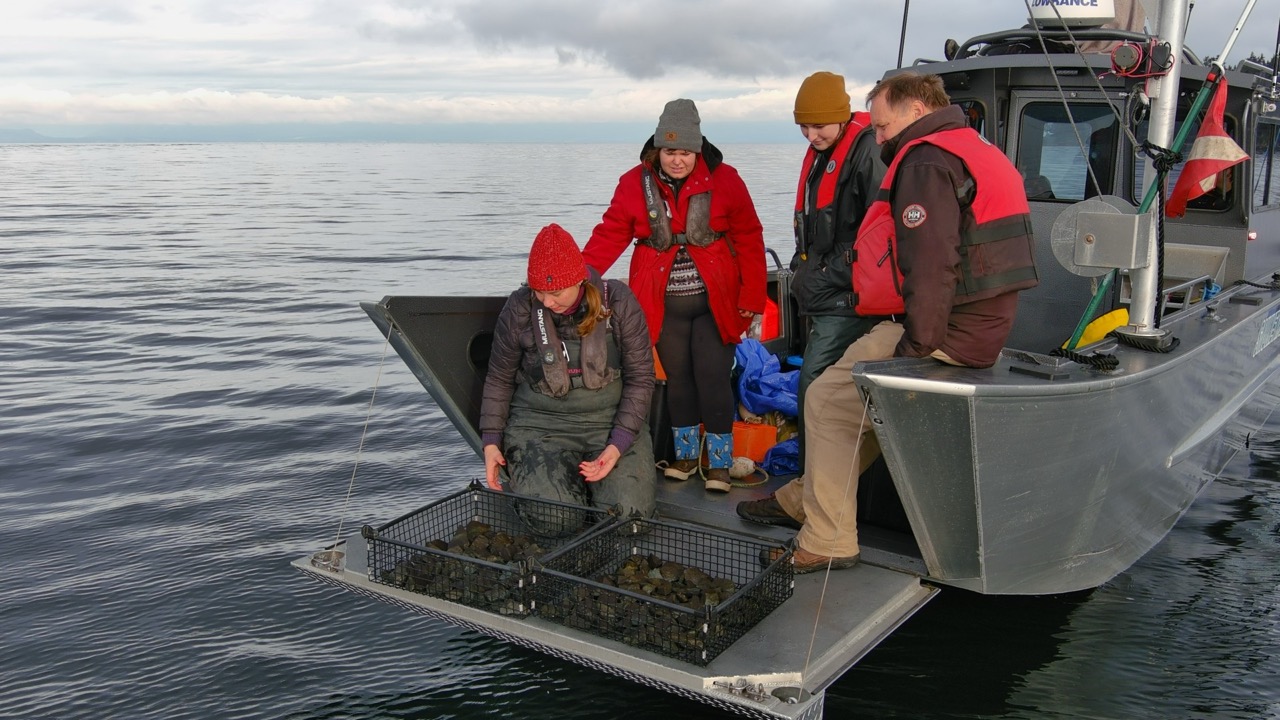
The Manitoba Forage and Grassland Association (MFGA), in partnership with Aquanty Inc., has developed one of Canada’s most advanced hydrologic forecasting tools—the MFGA Aquanty Model—to help farmers and communities in the Assiniboine River Basin adapt to increasingly extreme weather events. Leveraging cutting-edge HydroGeoSphere technology, this fully integrated groundwater/surface water model creates a digital twin of the basin, providing real-time forecasts, scenario planning, and decision support.
Designed by a farmer-led organization for agricultural and environmental resilience, the model uniquely captures the entire terrestrial water cycle, enabling unprecedented insight into how forages and grasslands mitigate flood and drought impacts. As one of the first systems of its kind in Canada—and now being adopted in other provinces—the MFGA Aquanty Project exemplifies innovation, collaboration, and visionary leadership in sustainable water management.
For more information:
MFGA Aquanty Grasslander Fall 2023
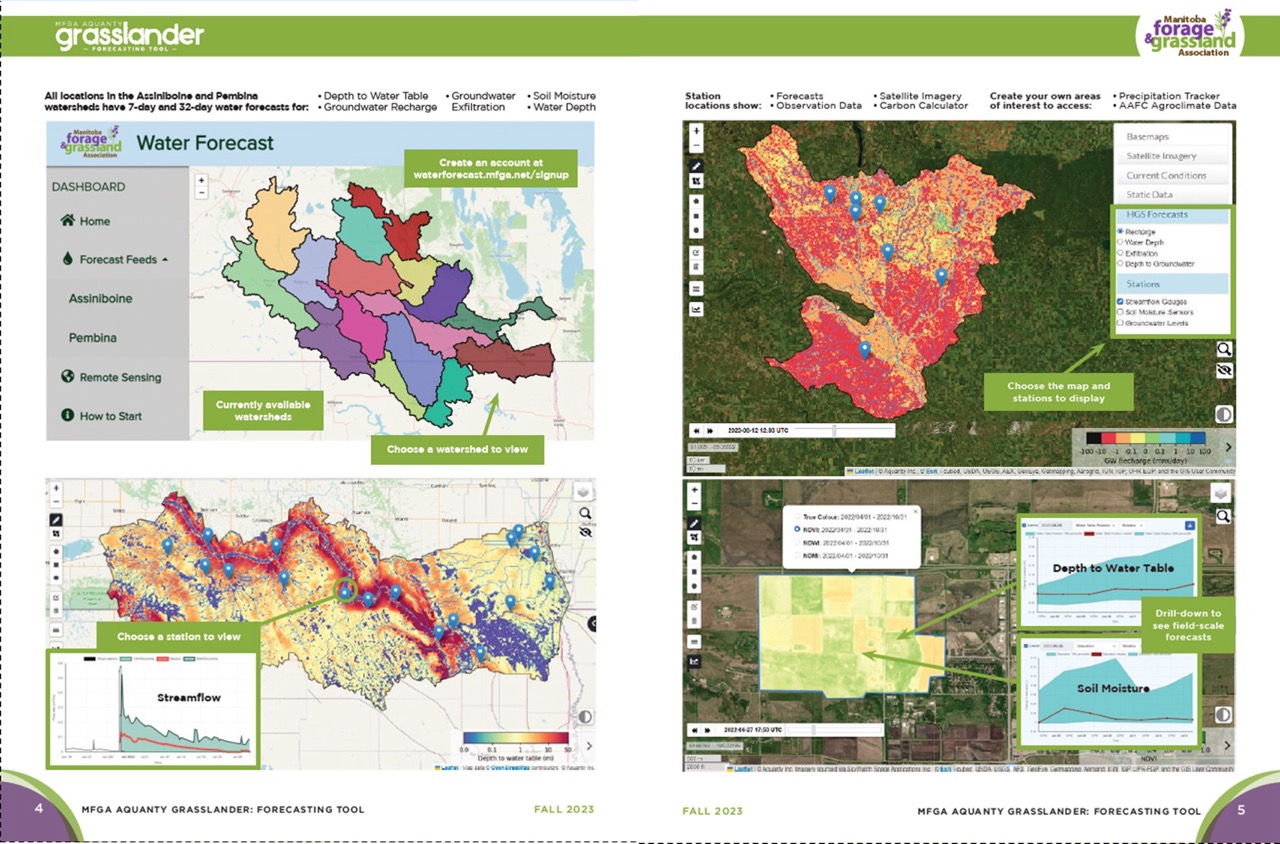
The Watershed Reports presented 40 million data points across 164 watersheds, collected by more than 314 data providers across communities, academia, government, industry and Indigenous stewards. Additionally, this project was powered by AquaAction and came out of a relationship with WWF-Canada, who produced the previous reports in 2017 and 2020. The freshwater health assessment was only possible through collective effort. Data was gathered from government agencies, Indigenous programs, community monitoring groups, NGOs, private consultants, industry, and researchers—each contributing to a fuller picture of freshwater health. Platforms like DataStream, CABIN, and the Columbia Basin Water Hub played a crucial role in centralizing and standardizing data, making national-scale assessments like this possible. Open-data initiatives strengthen the accuracy and impact of our findings. Every drop counts!
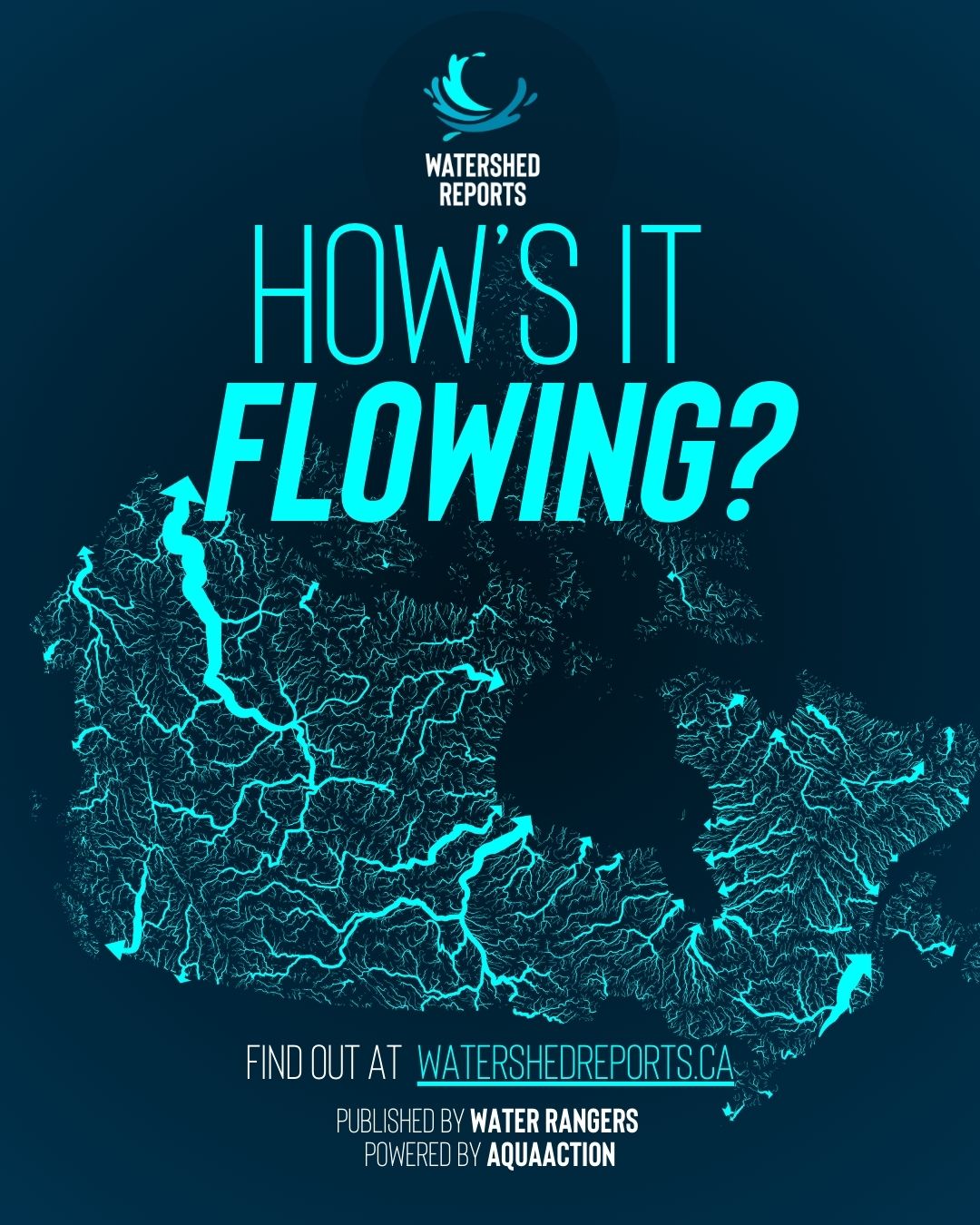
New Tech Award
This award celebrates a technology provider whose groundbreaking product represents the cutting edge of innovation in the Canadian water sector.
The HydroSphereAI project seeks to fill the gaps on streamflow forecasting technology and techniques, which are currently only available with a patchwork of programs across the country mainly servicing urban centers. Trained on a comprehensive database with a wide range of watershed attributes, HydroSphereAI is readily deployable in watersheds of all types around Canada and the world. And since HSAI is easily scalable, it represents a low-cost solution that will provide a baseline for hydrologic forecasting in small, remote, Northern and Indigenous communities that do not have the resources to invest in expensive consulting/engineering studies on flood risk and climate change impacts to streamflow.
For more information:
Product webpage >>
Relevant materials on our blog >>
Upcoming webinar >>
Documents:
HydroSphereAI performance_Spring 2025 melt
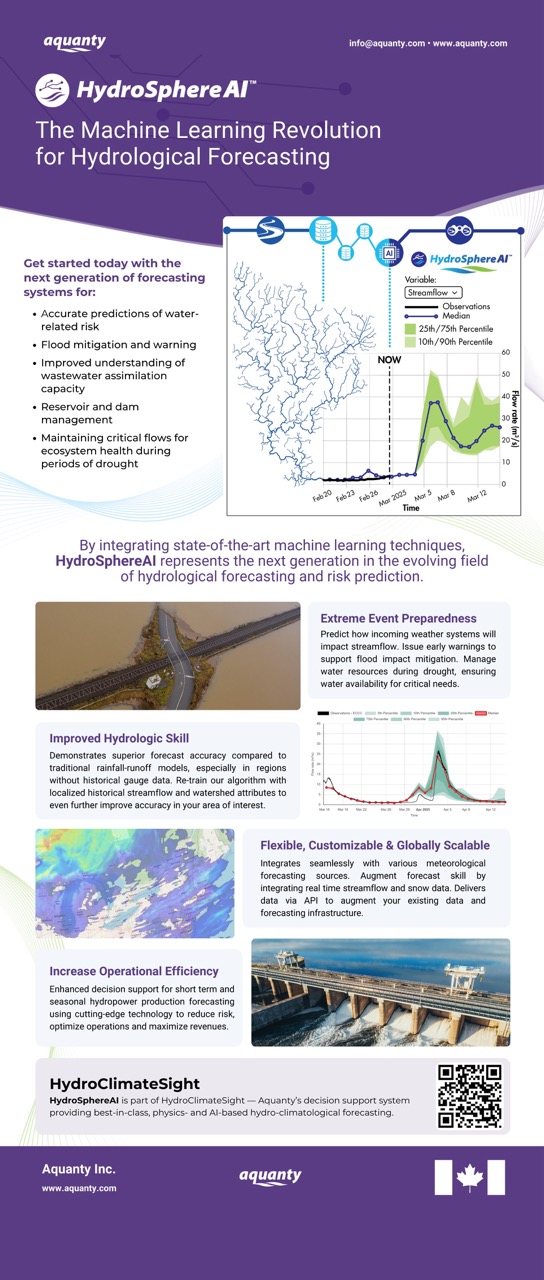
IntensiCarb™ is a groundbreaking anaerobic digestion technology developed by Trojan Technologies, USP Technologies, Brown and Caldwell, University of Western Ontario, Toronto Metropolitan University and Lambton College. Using advanced vacuum evaporation to decouple HRT and SRT, it tackles key challenges like ammonia inhibition and acidification—boosting solids reduction, methane yields, and energy recovery. With successful pilots, life cycle cost savings of 7–26%, and a strong impact on emissions reduction and nutrient removal, IntensiCarb™ is redefining sustainable sludge treatment and setting a new standard for innovation in the Canadian water sector.
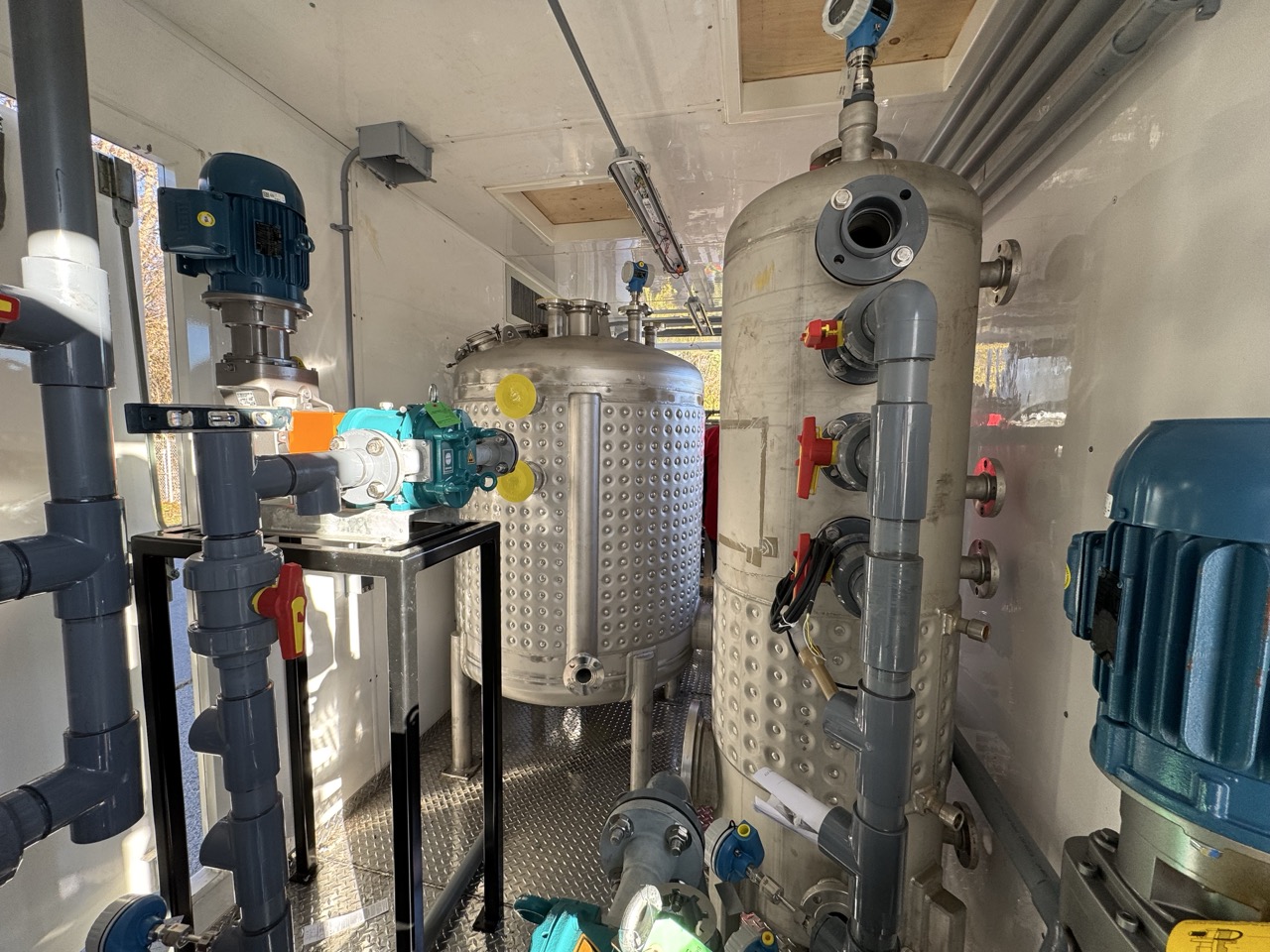
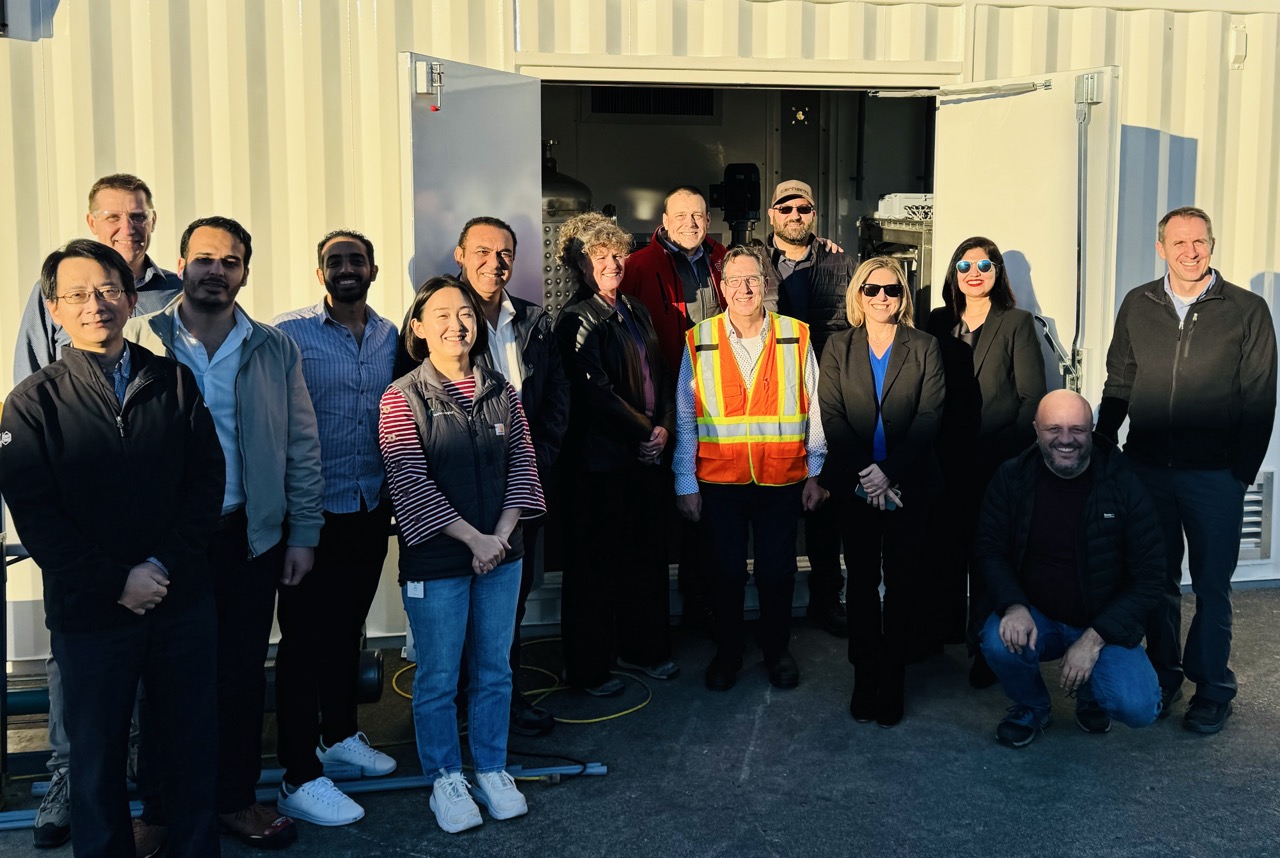
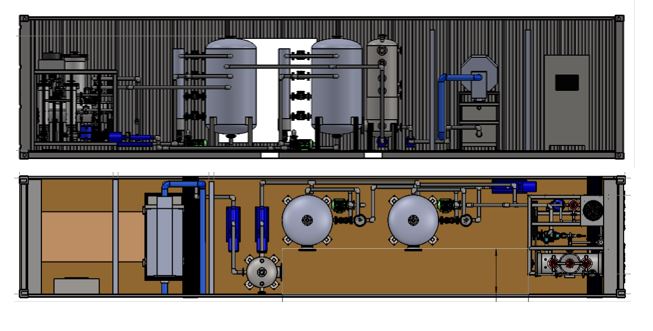
StormSettler is a transformative advancement in Oil and Grit Separator (OGS) design, redefining the performance limits of a decades-old standard. While traditional systems relied on maximizing water residence time within fixed manhole volumes, StormSettler takes a bold new approach—using tightly packed parallel plates to reduce settling distance rather than increase settling time. This breakthrough eliminates the longstanding flow-to-volume constraint and enables unprecedented performance. In just two years, plate settler efficiency has increased by 20%, with top systems treating nearly double the flow of the best traditional swirl systems (60 vs. 38.2 gpm/sq ft, based on NJDEP-certified data). StormSettler sets a new benchmark for compact, high-efficiency stormwater treatment.
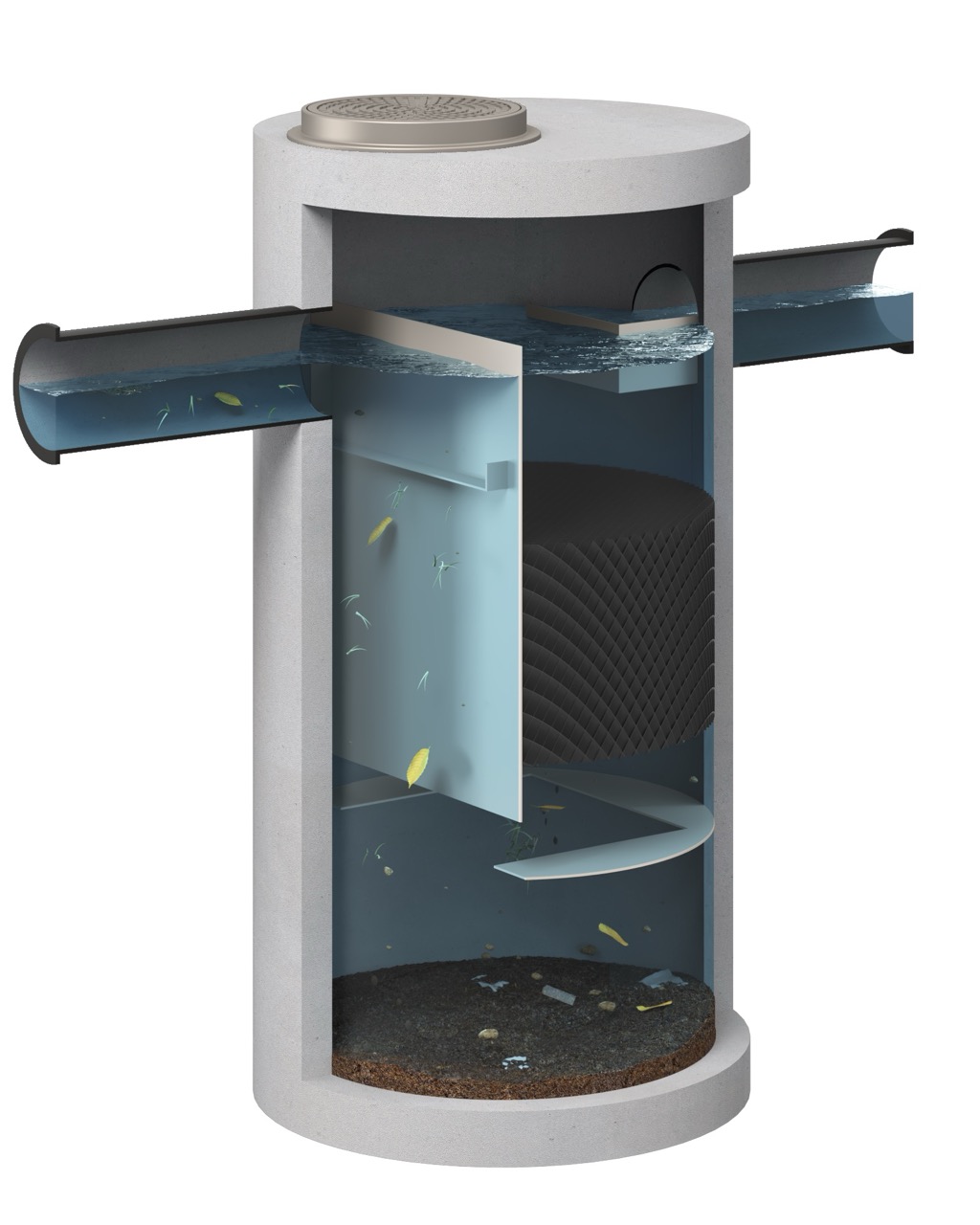
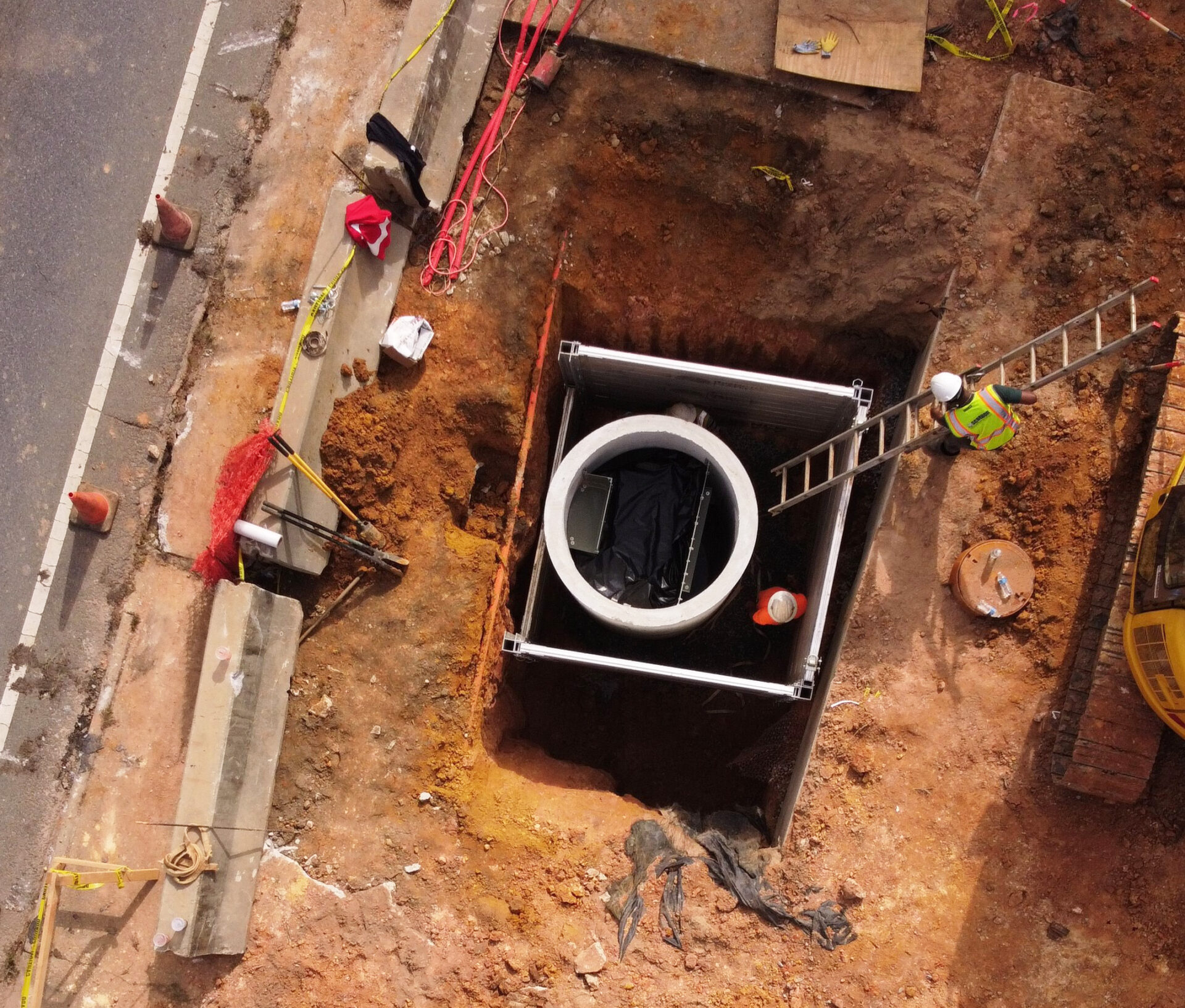
Drinking Water: Large Project Award
This award honours a large-scale drinking water project serving more than 5,000 residents that sets a new standard for innovation and excellence in the Canadian water sector.
The City of Hamilton’s innovative approach to improving drinking water quality through the removal of autoflushers and implementation of a watermain lining program demonstrates outstanding leadership in sustainable infrastructure management. By decommissioning 10 autoflushers, the City saves over 94,000 m³ of non-revenue water annually, reduces energy use by nearly 9,700 kWh, and cuts greenhouse gas emissions by 242 kg—all while enhancing system efficiency and capacity.
In parallel, the trenchless watermain lining program has modernized aging infrastructure with minimal disruption, improving water quality and long-term reliability. Through cross-departmental collaboration and cutting-edge technology, Hamilton has delivered measurable environmental, operational, and financial benefits—positioning this project as a model for sustainable urban water management.

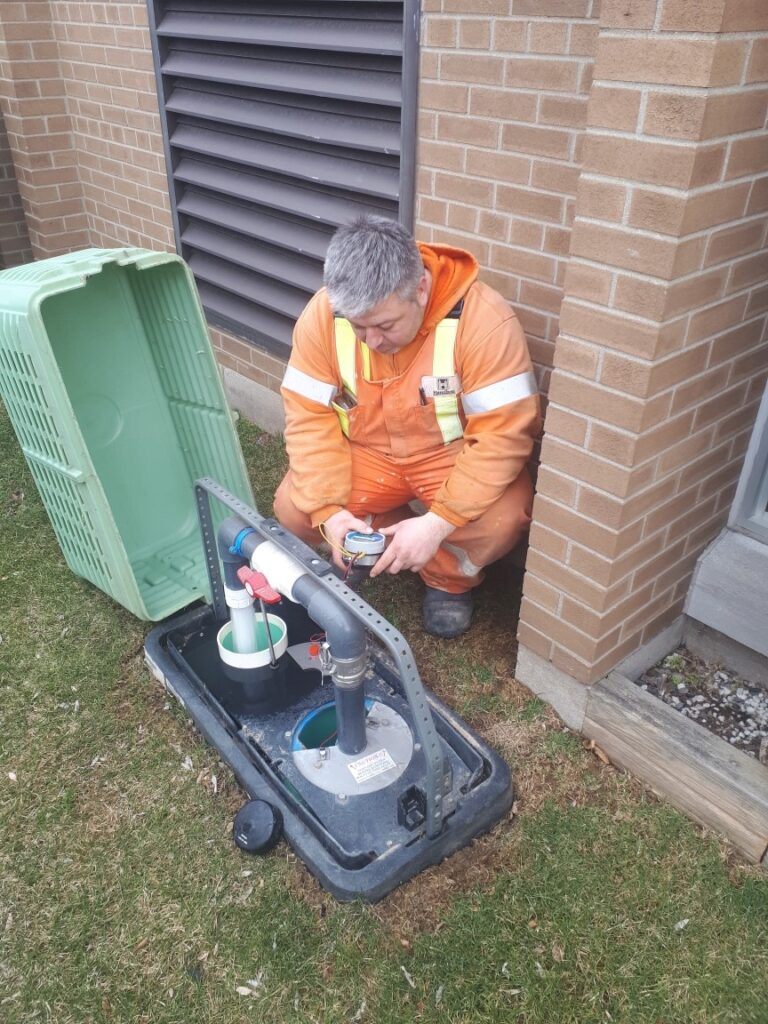
For over 50 years, the Lake Huron Water Treatment Plant has reliably provided high-quality drinking water to over 420,000 residents across eight municipalities in Southwestern Ontario. In 2017, the Lake Huron Primary Water Supply System (LHPWSS), in collaboration with the City of London’s Regional Water Supply Division, launched an Energy Audit and Pump Optimization study to modernize operations and improve sustainability.
The project identified and implemented significant energy efficiency upgrades, optimizing pump operations at one of Ontario’s largest regional water supply systems. Servicing 80% of London and surrounding communities, this initiative has enhanced system performance while reducing energy consumption, operational costs, and environmental impact.
The LHPWSS project stands as a model of regional collaboration, long-term infrastructure stewardship, and forward-thinking energy management in Canada’s water sector.
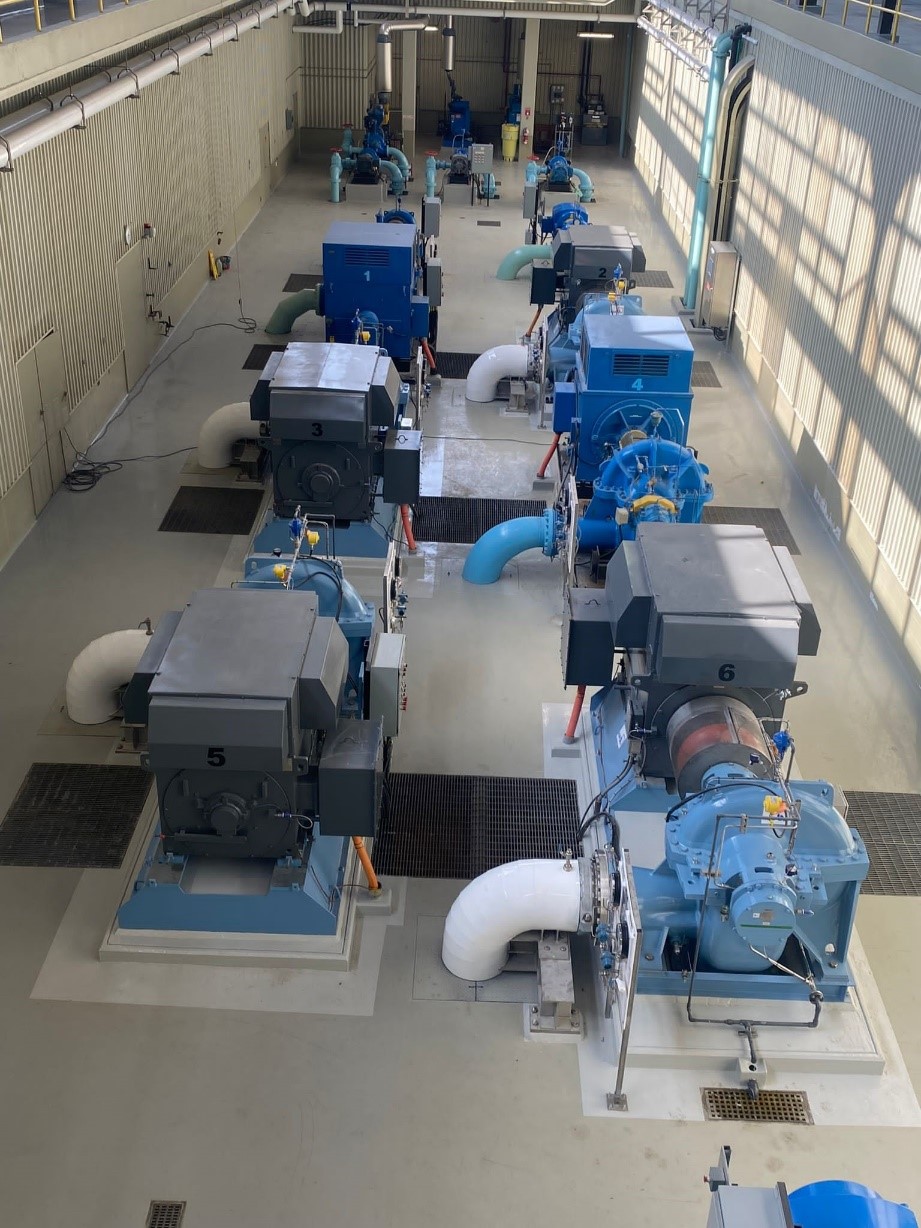
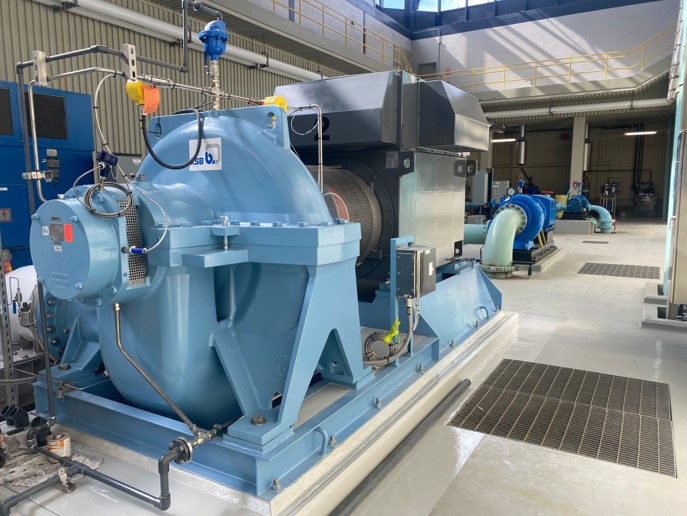
The City of Brantford demonstrated incredible leadership and forward-thinking by implementing emergency reverse osmosis treatment to address elevated nitrate concentrations in the Grand River. Seasonal increases in raw water nitrate have left many water providers in the Grand River watershed close to the regulatory limit, with few treatment options available. After a nitrate spike resulted in raw water concentrations above the regulatory limit of 10 mg/L, the City embarked on implementing reverse osmosis treatment under a drinking water emergency order. The City staff demonstrated incredible commitment to realizing the success of this incredibly challenging project, going above and beyond to ensure the continued supply of safe drinking water.
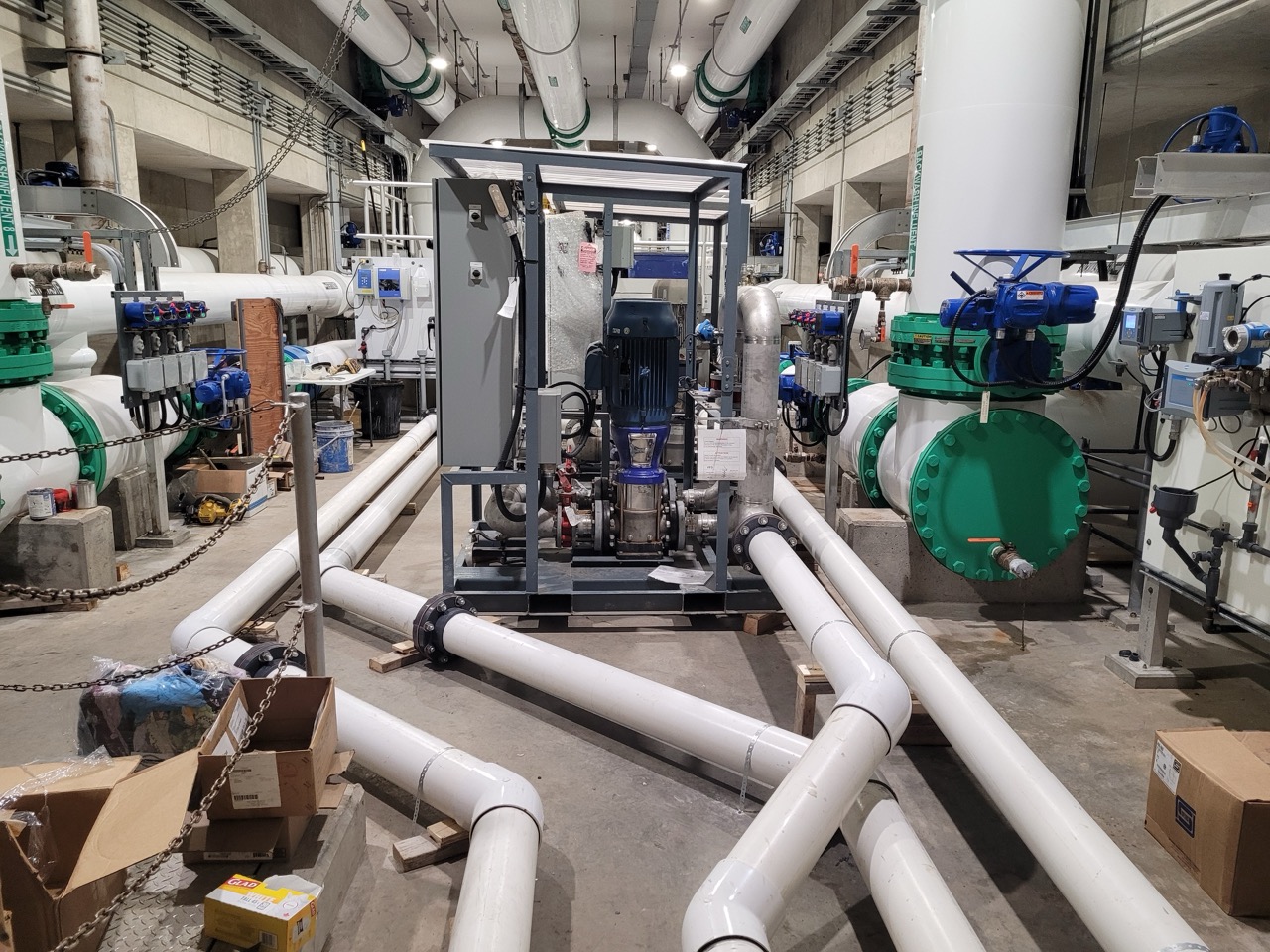
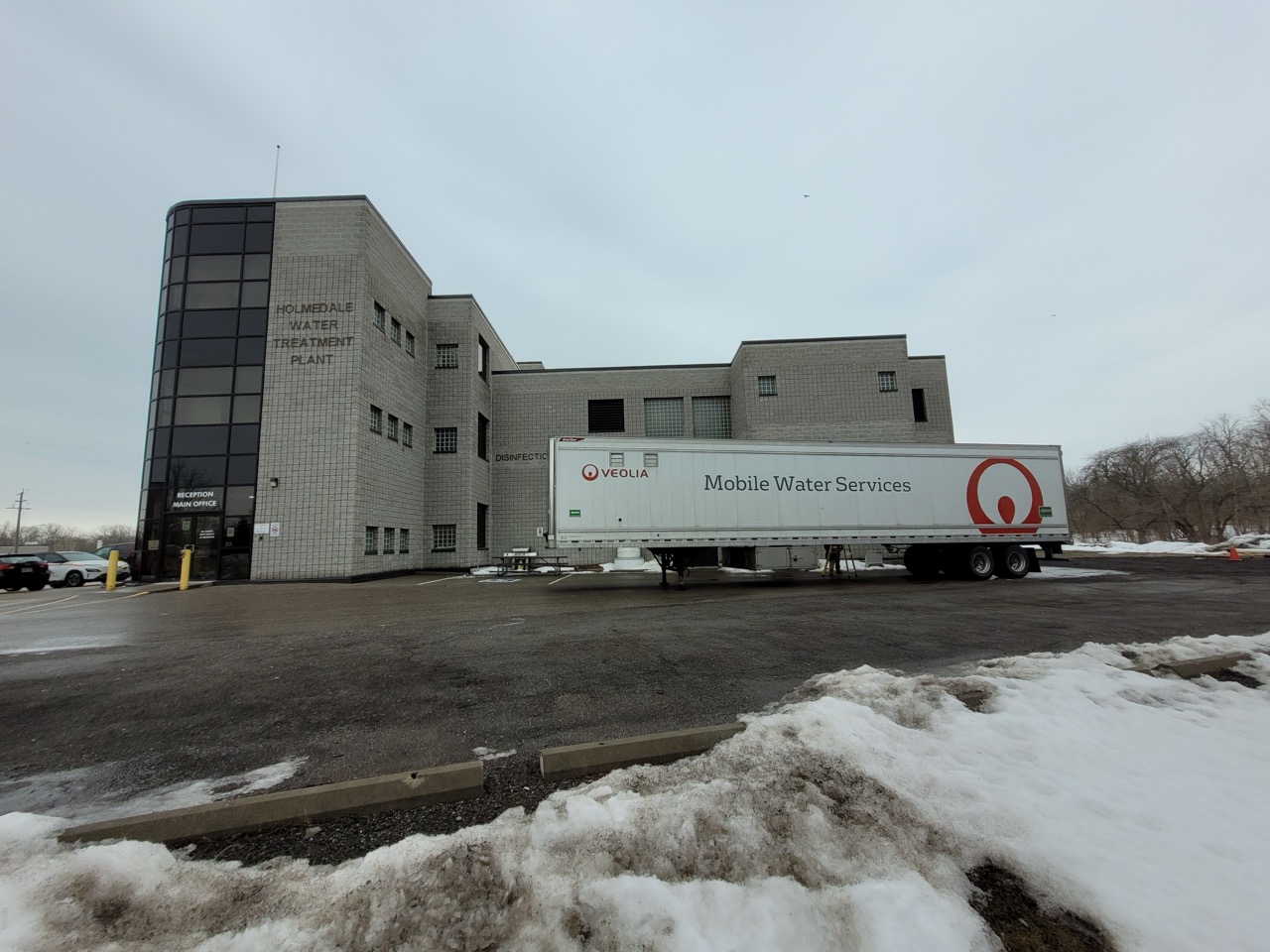
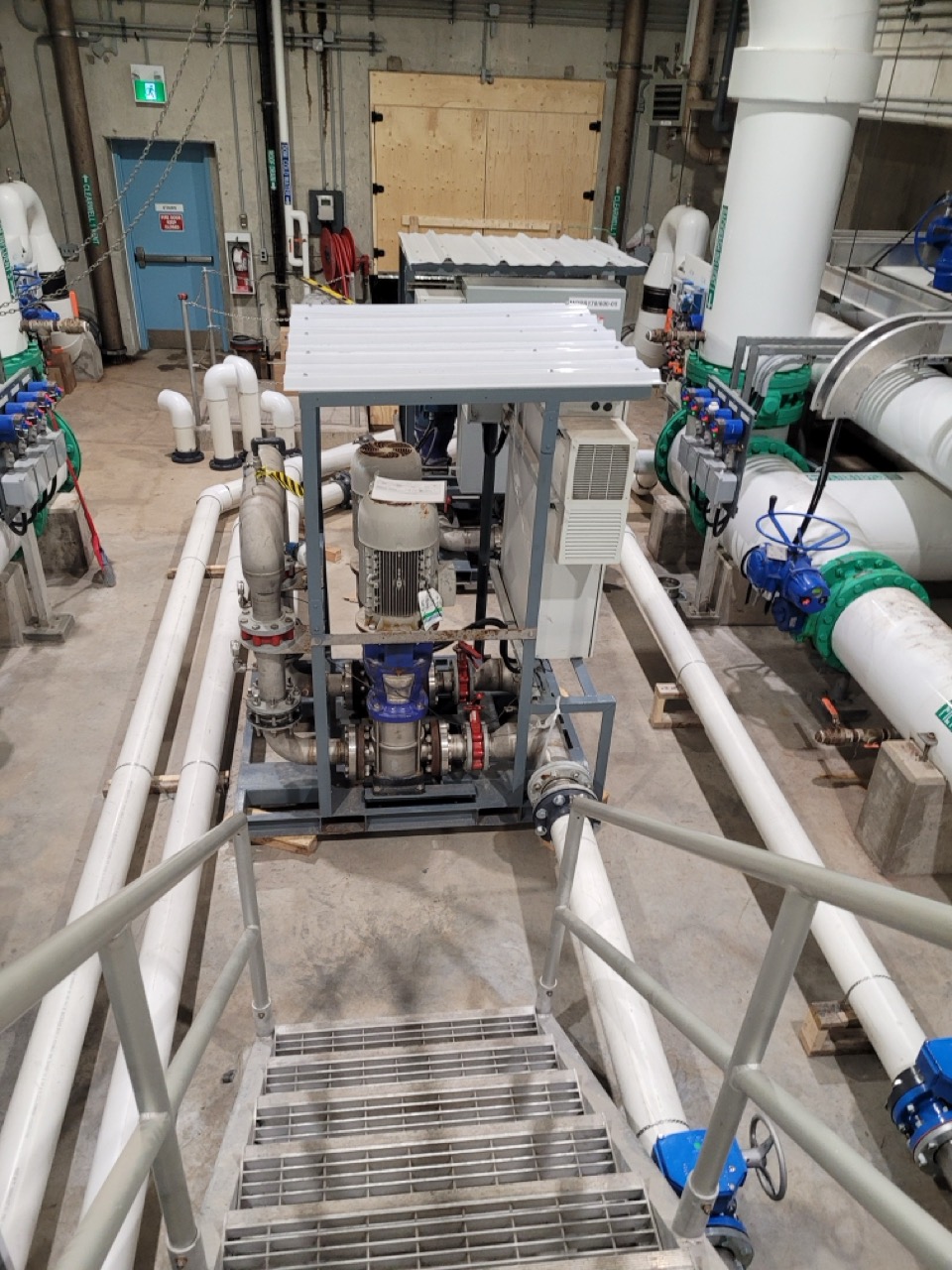

Drinking Water: Small Project Award
This award recognizes a small-scale drinking water project serving fewer than 5,000 residents that exemplifies innovation and resourcefulness within the Canadian water sector.
In early 2024, the Attawapiskat First Nation faced a severe water crisis as historically low precipitation left their raw water source nearly depleted. With just weeks before a potential community evacuation, WSP was engaged to rapidly assess and resolve the crisis. Working closely with Chief and Council, WSP identified and implemented an alternative treatment system within three months—supplying over 50% of the community’s water needs. Beyond the immediate emergency, the solution significantly improved water quality and is expected to lift a 17-year-long drinking water advisory, marking a transformative step toward water security and community resilience.
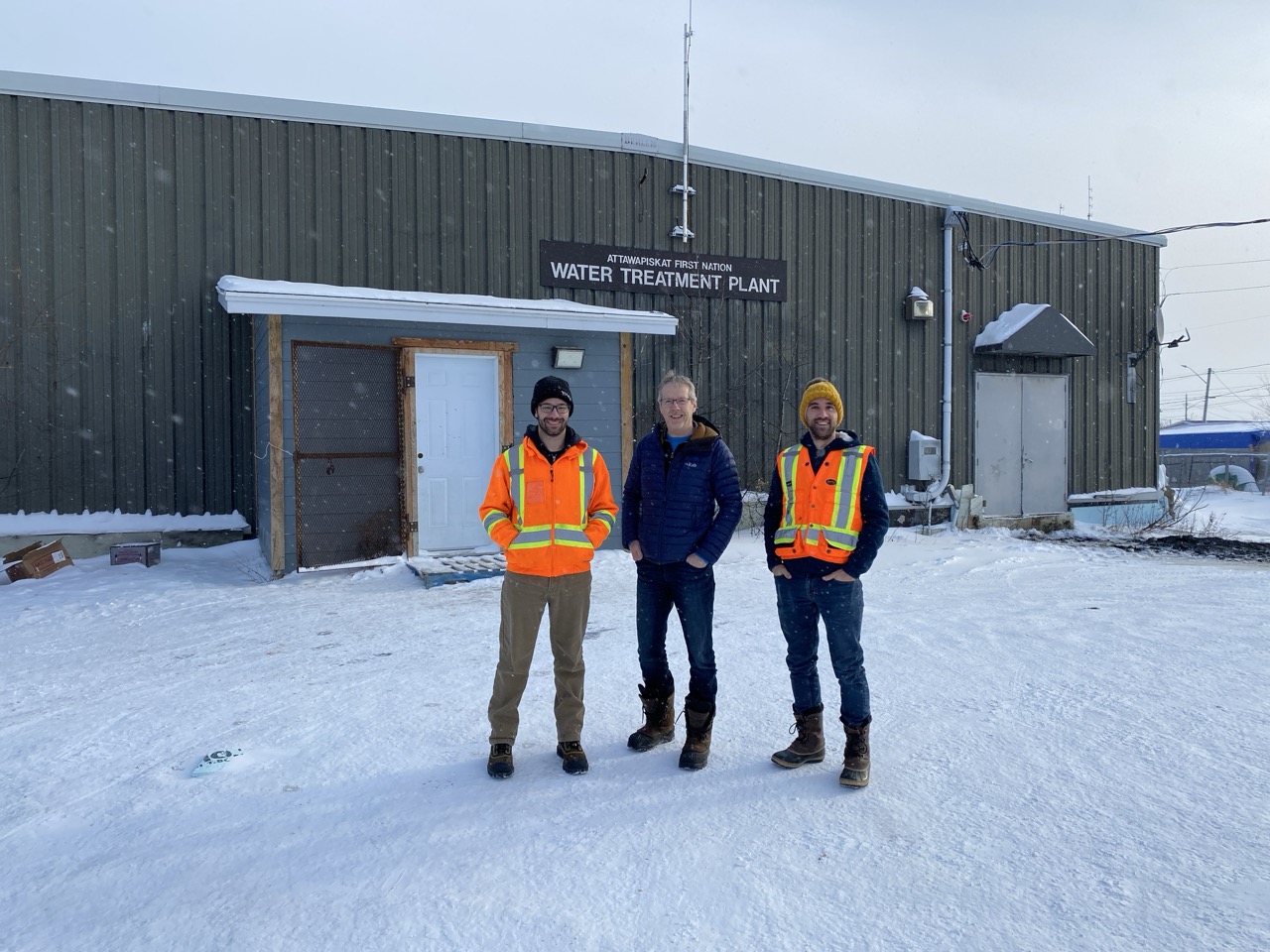
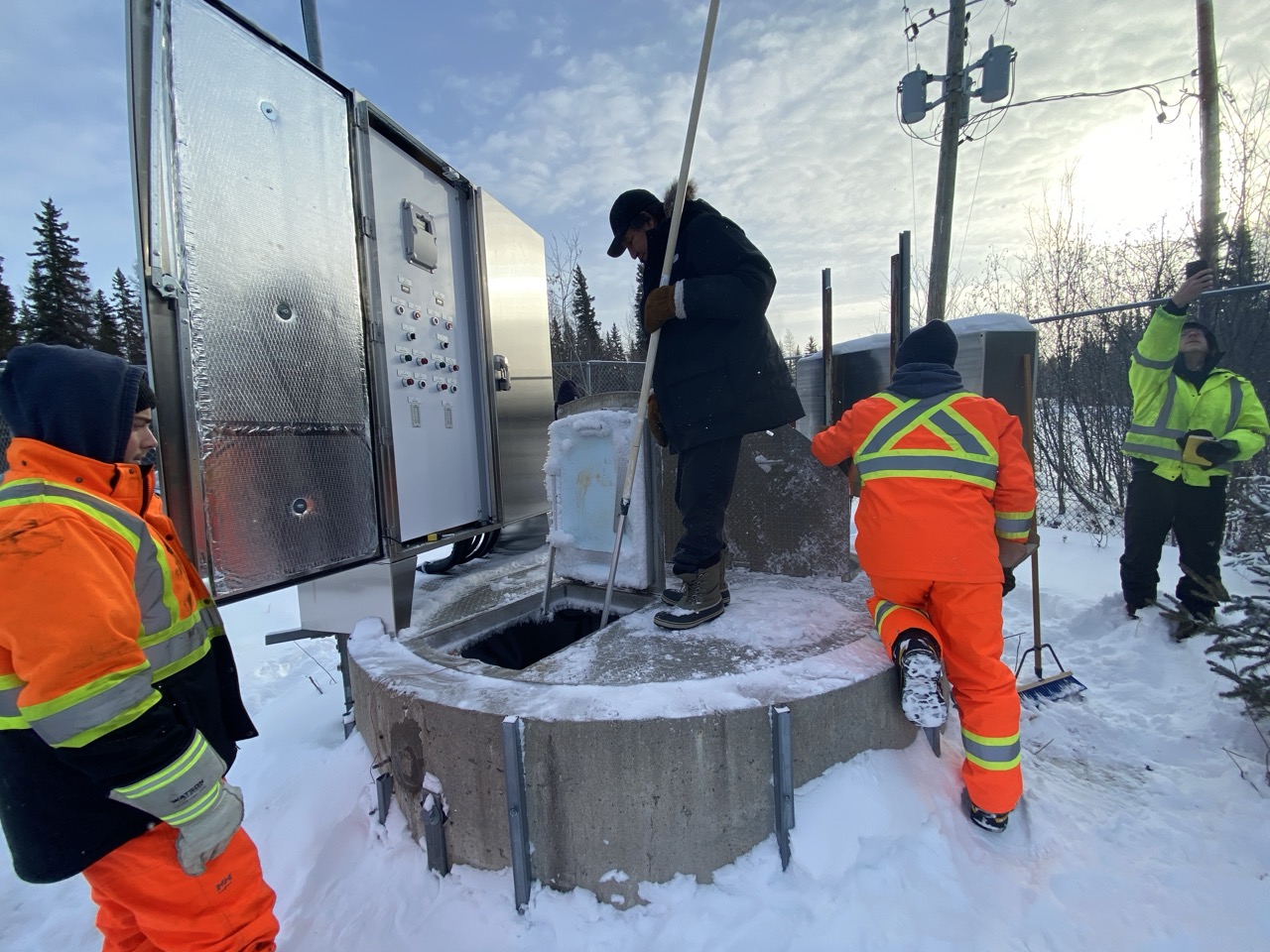
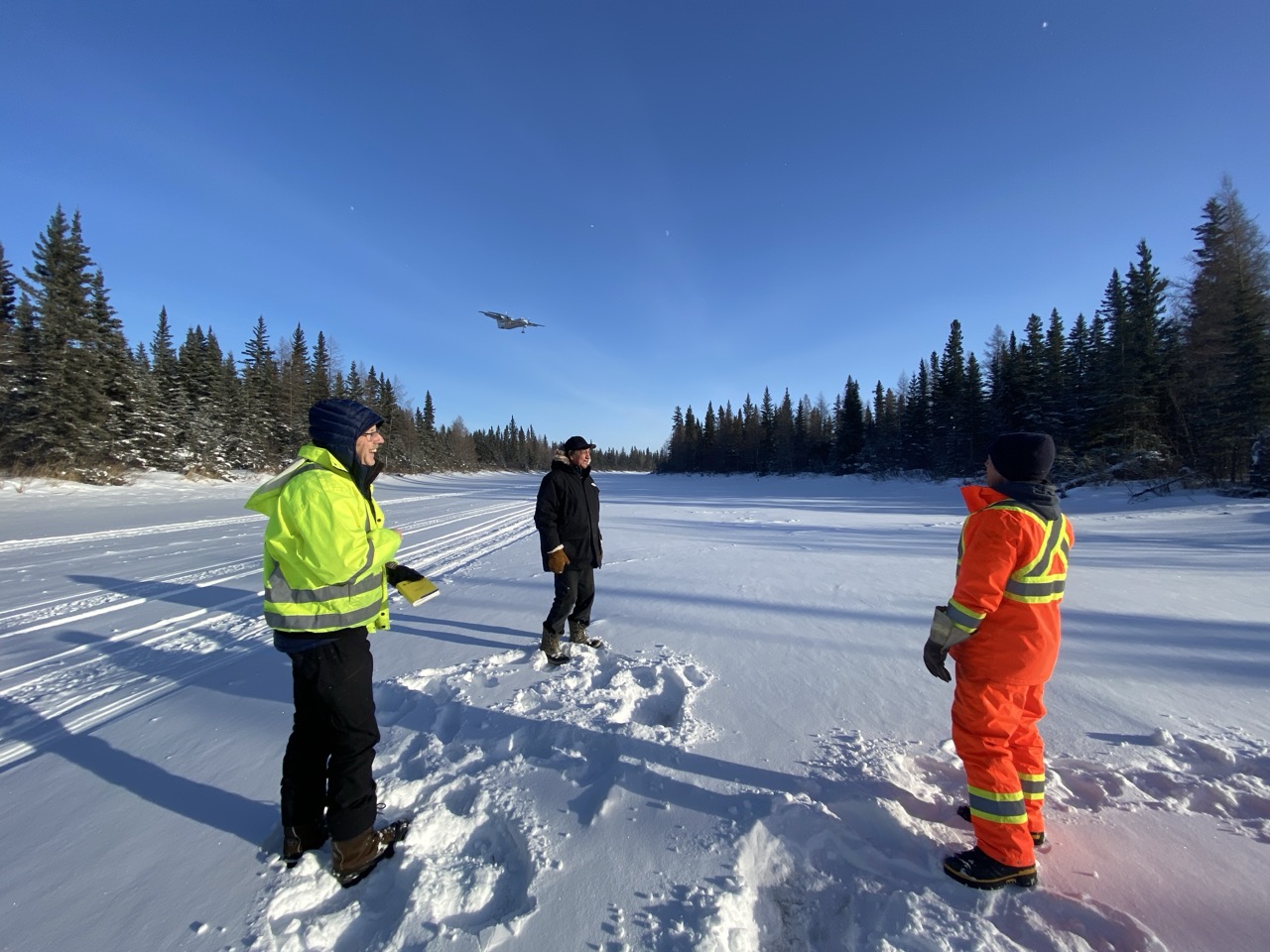
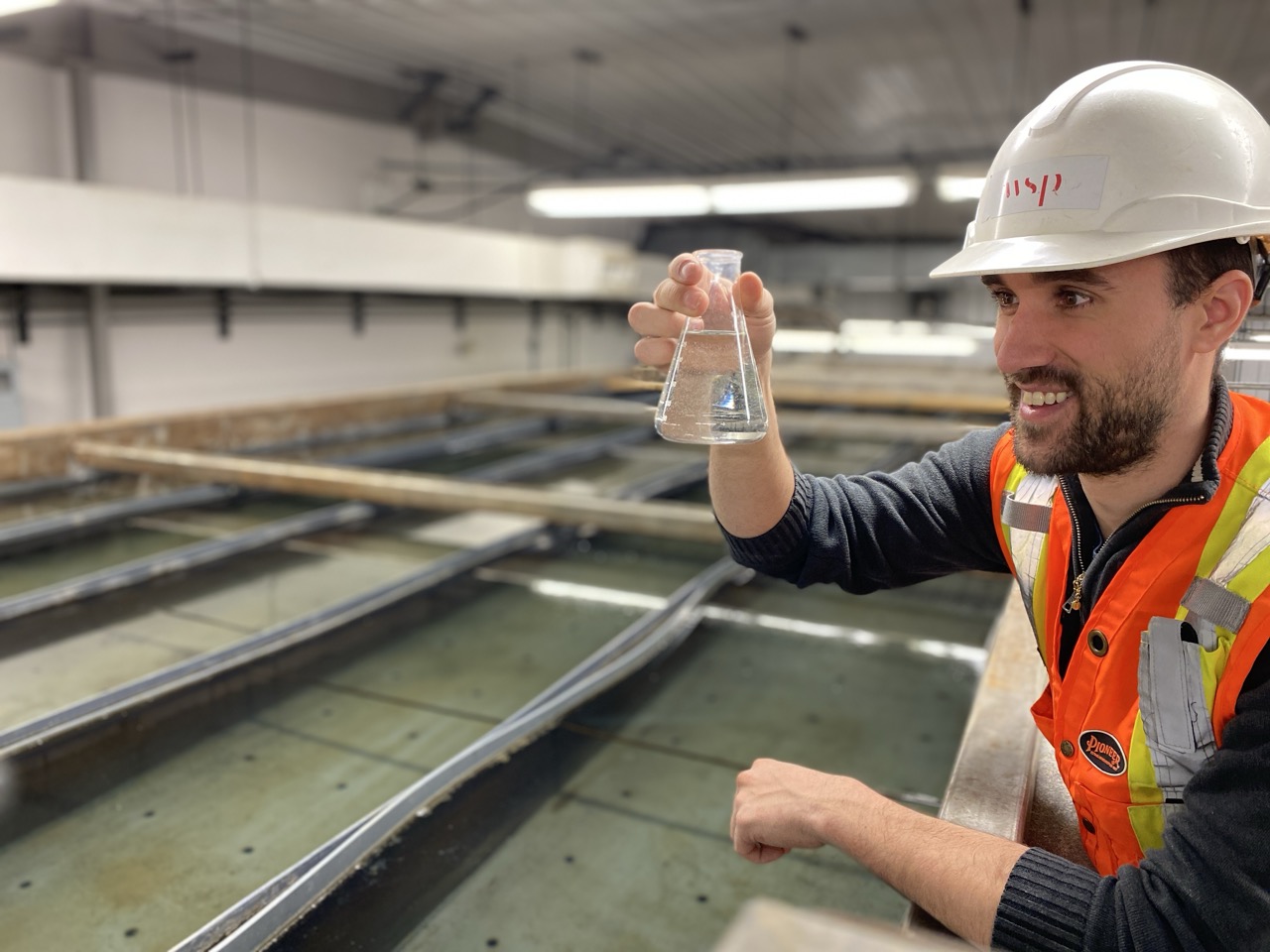
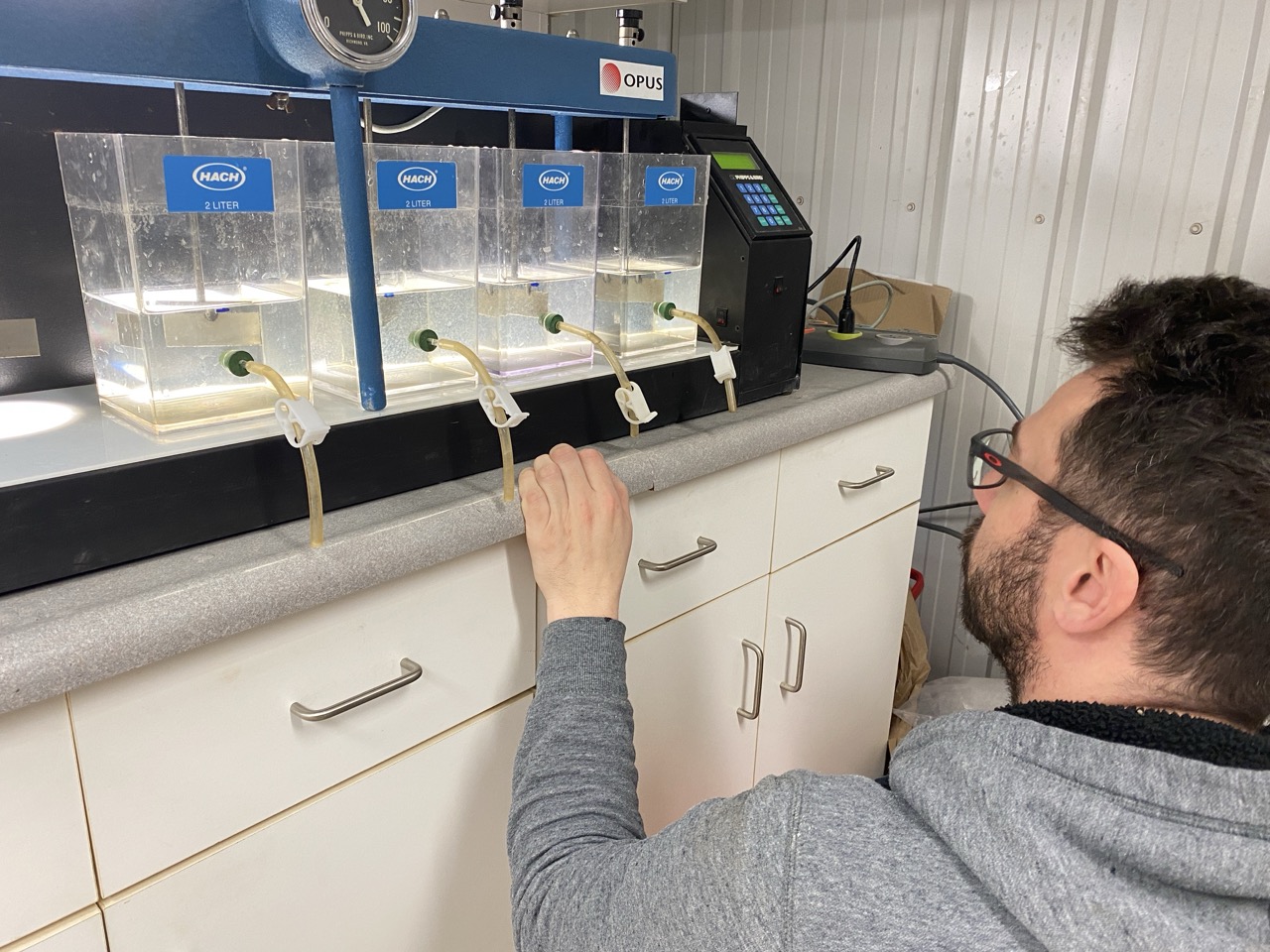
The Hiawatha First Nation Water Treatment Plant and Distribution project marks a transformative milestone for the community, delivering clean drinking water and ending long-standing reliance on boiled water. Initiated in 2019, the project’s success stems from strategic project management, early stakeholder engagement, and culturally sensitive collaboration. By prioritizing local involvement and aligning with community values, the team ensured a smooth, sustainable implementation. This achievement not only strengthens community resilience but also stands as a powerful example of how meaningful engagement and well-managed infrastructure can drive lasting change in small Indigenous communities.
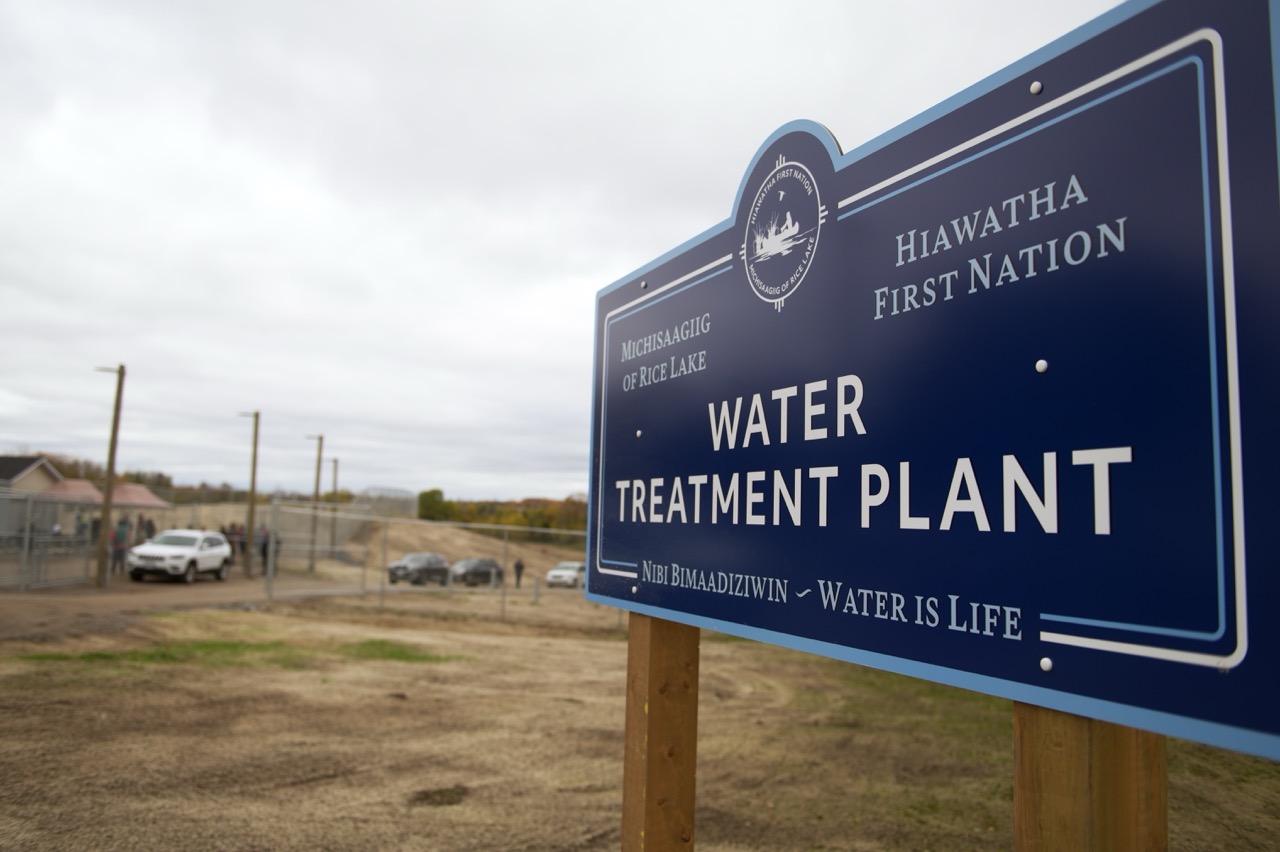
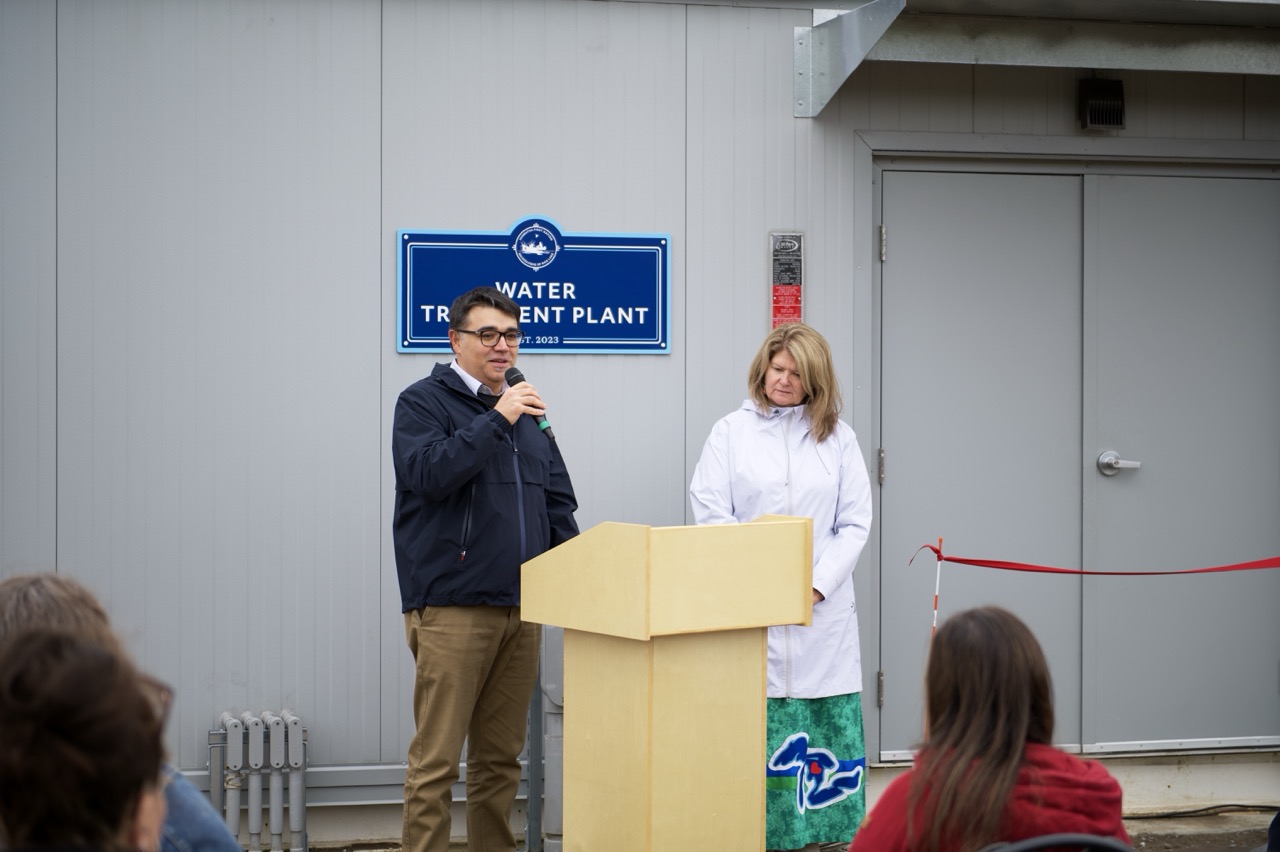
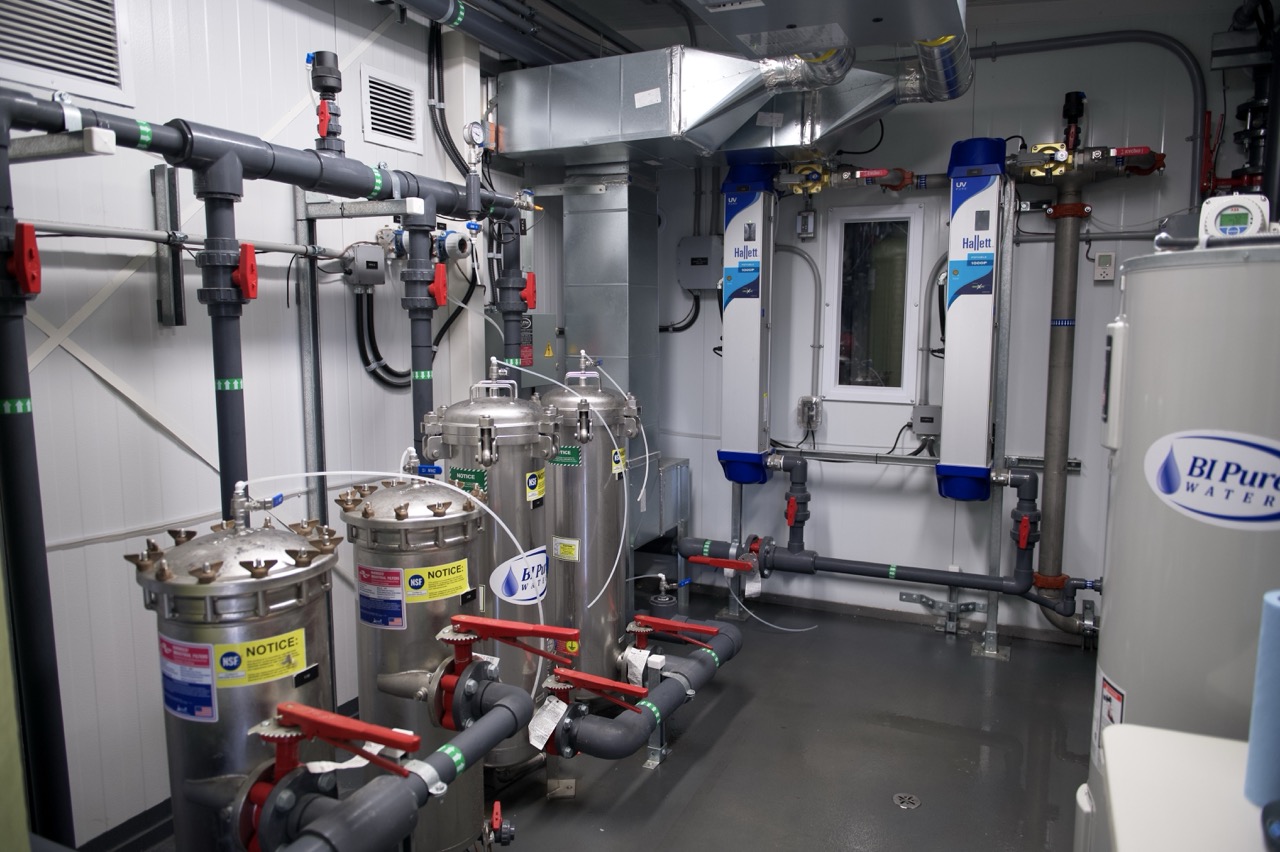
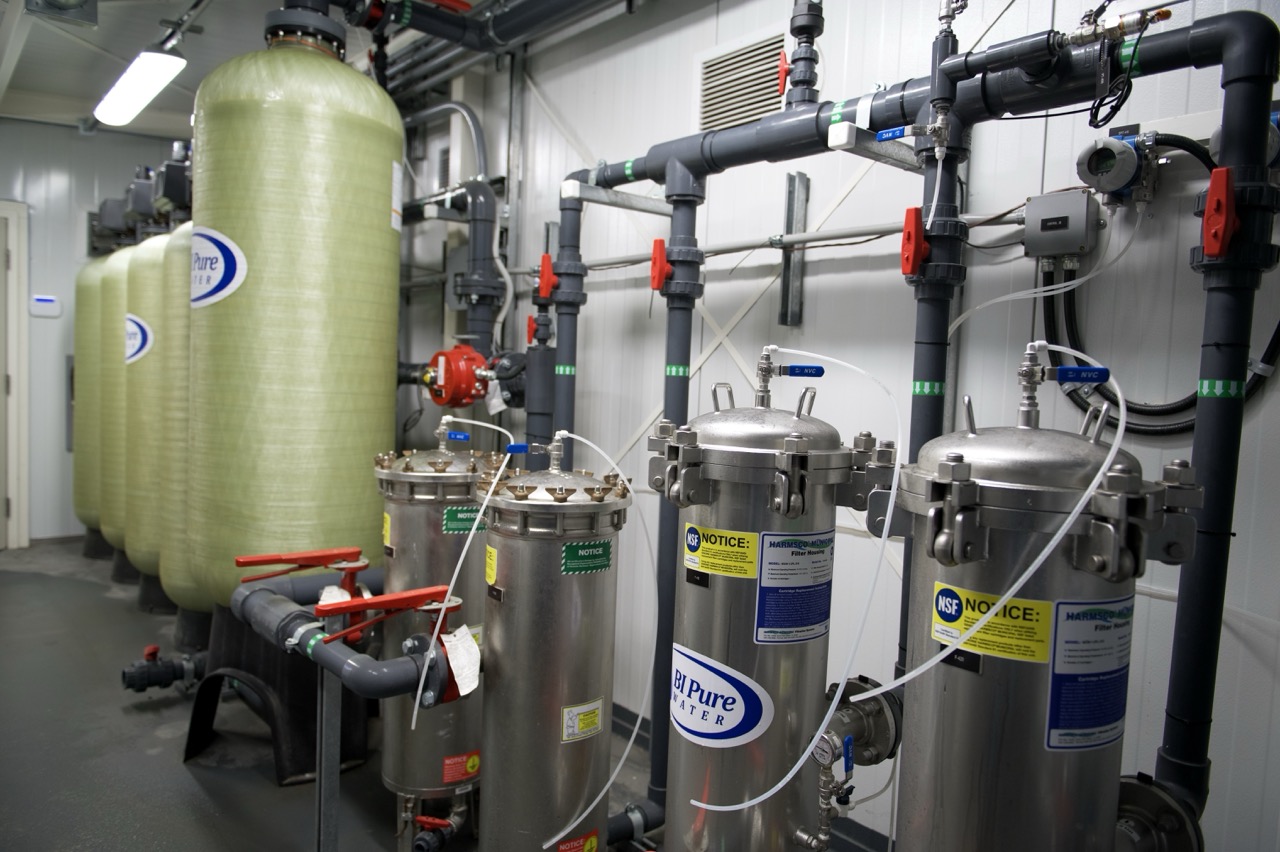
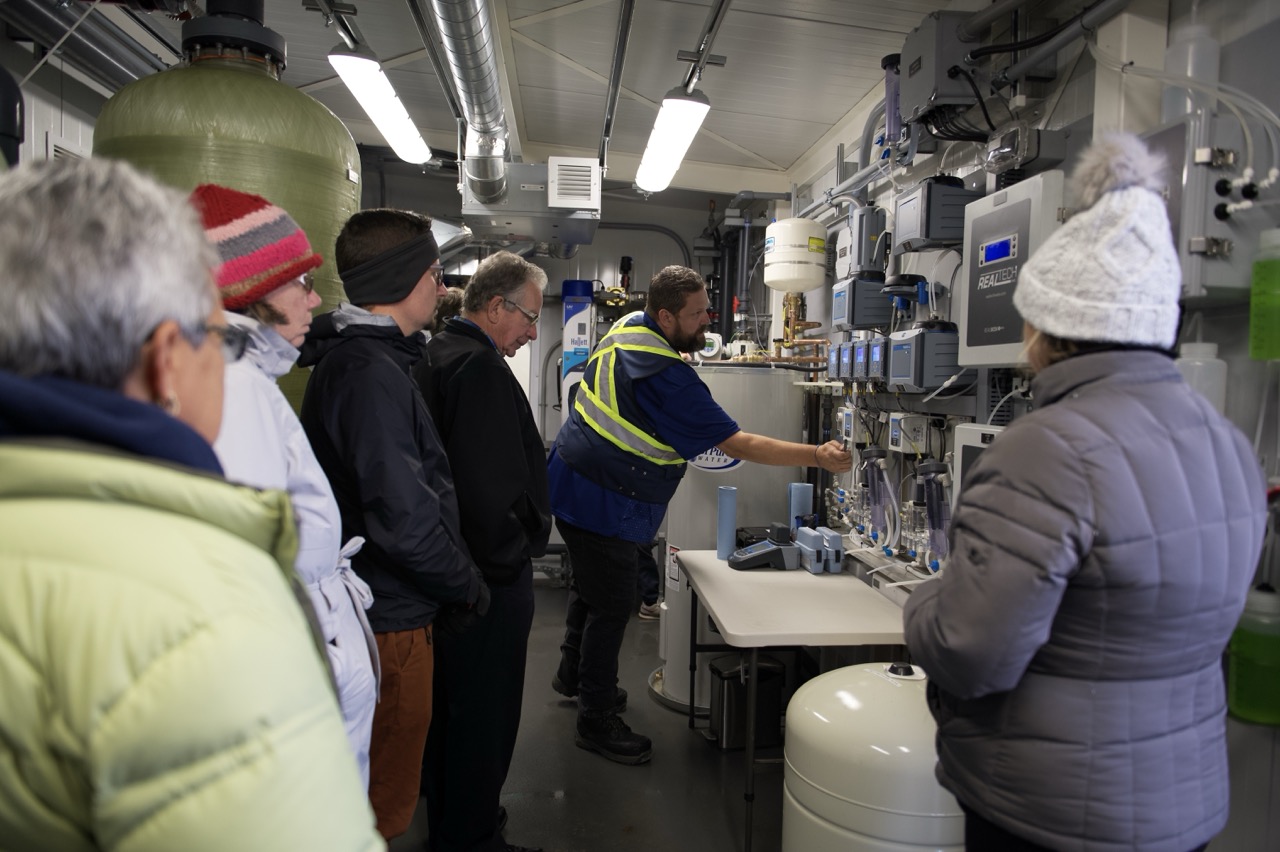
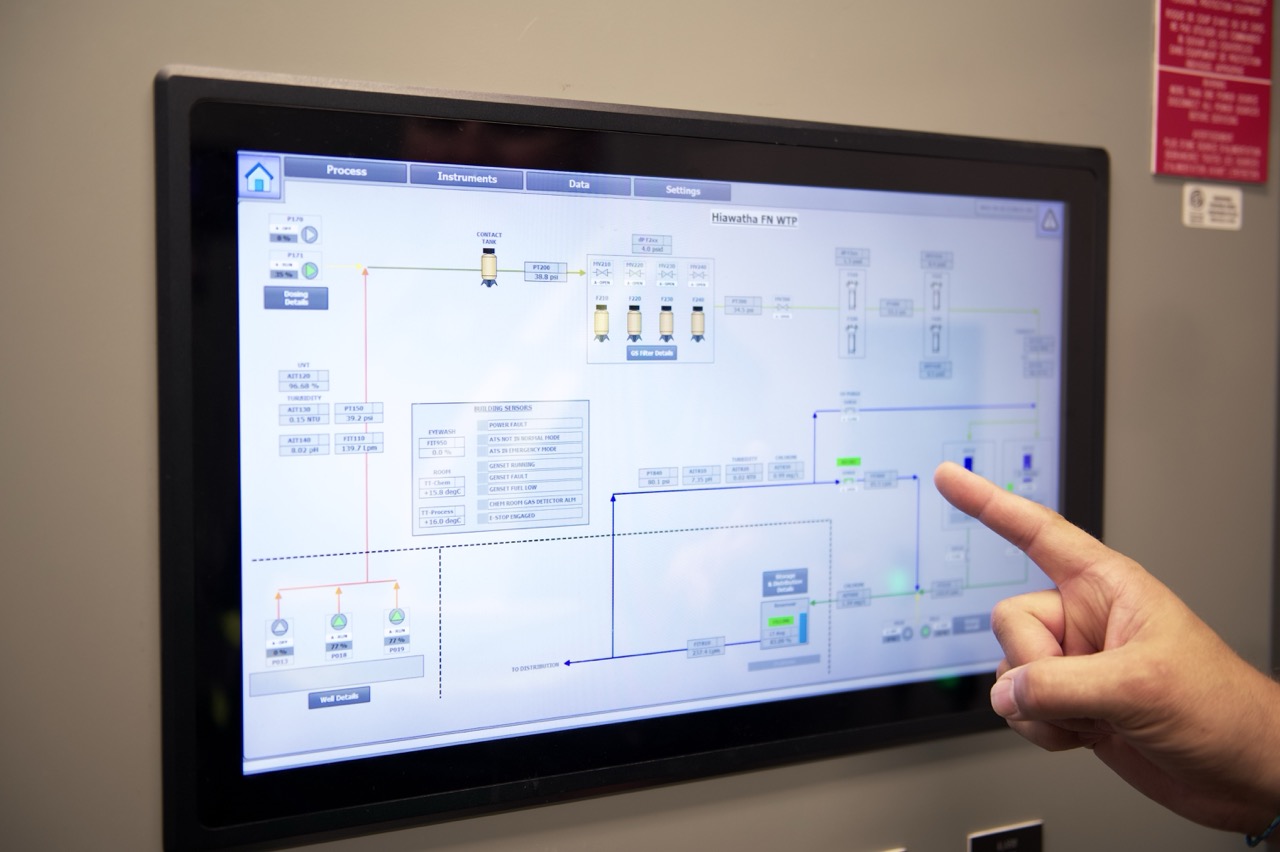
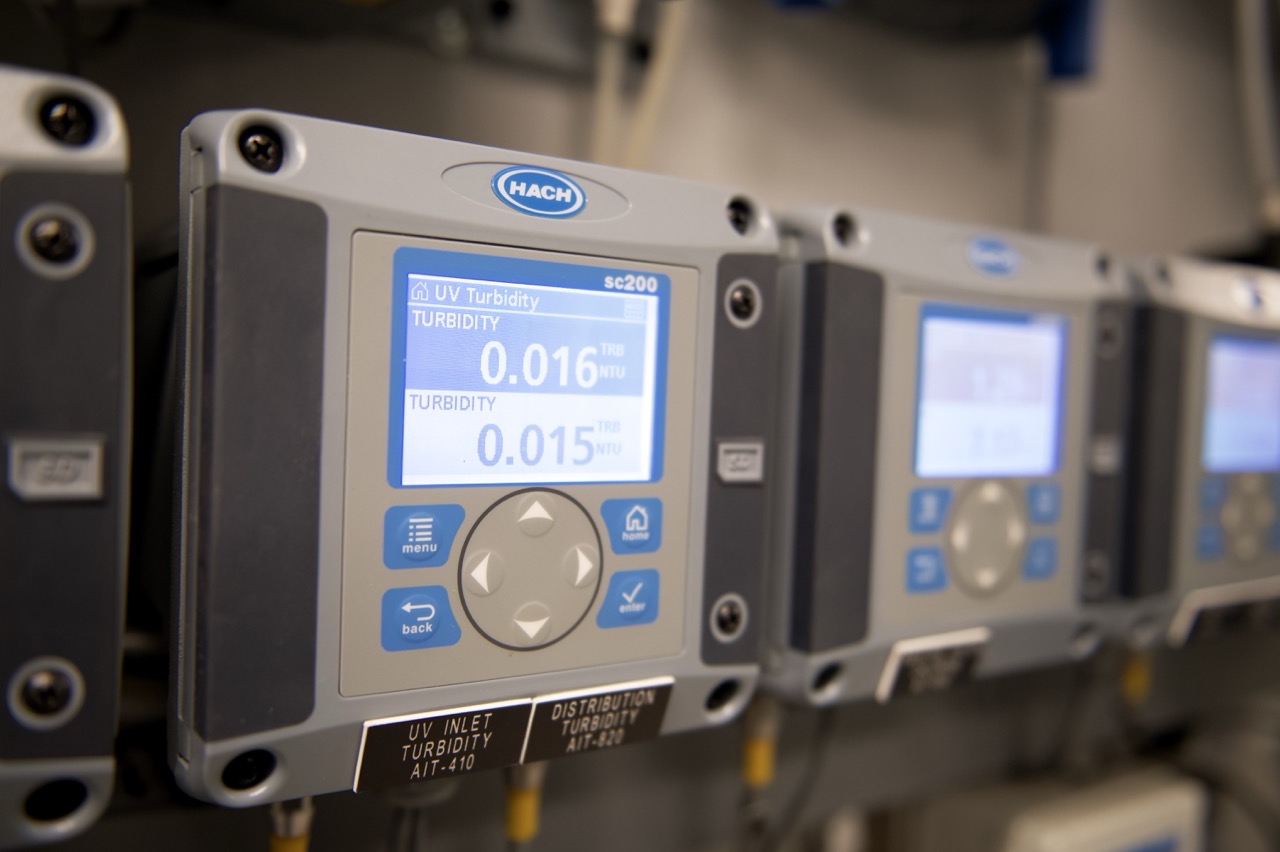
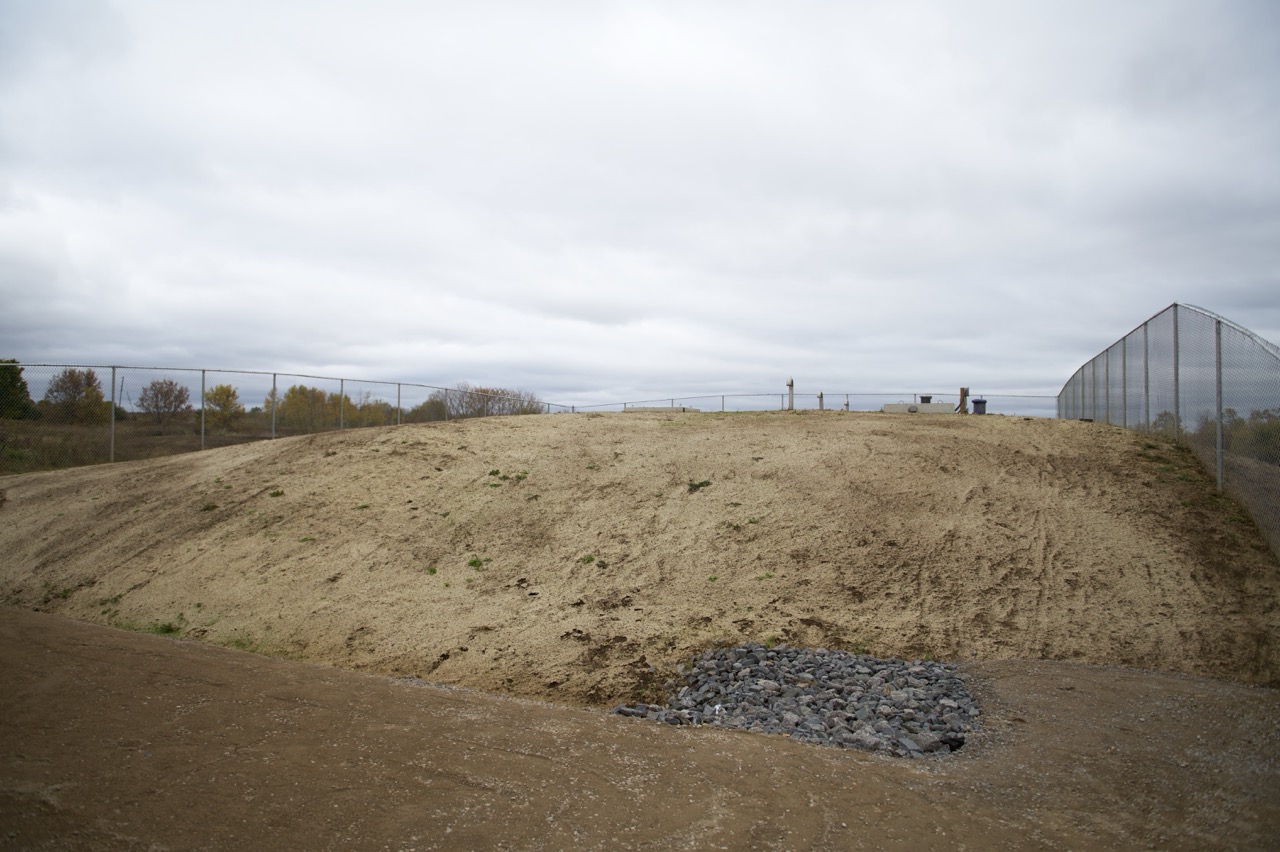
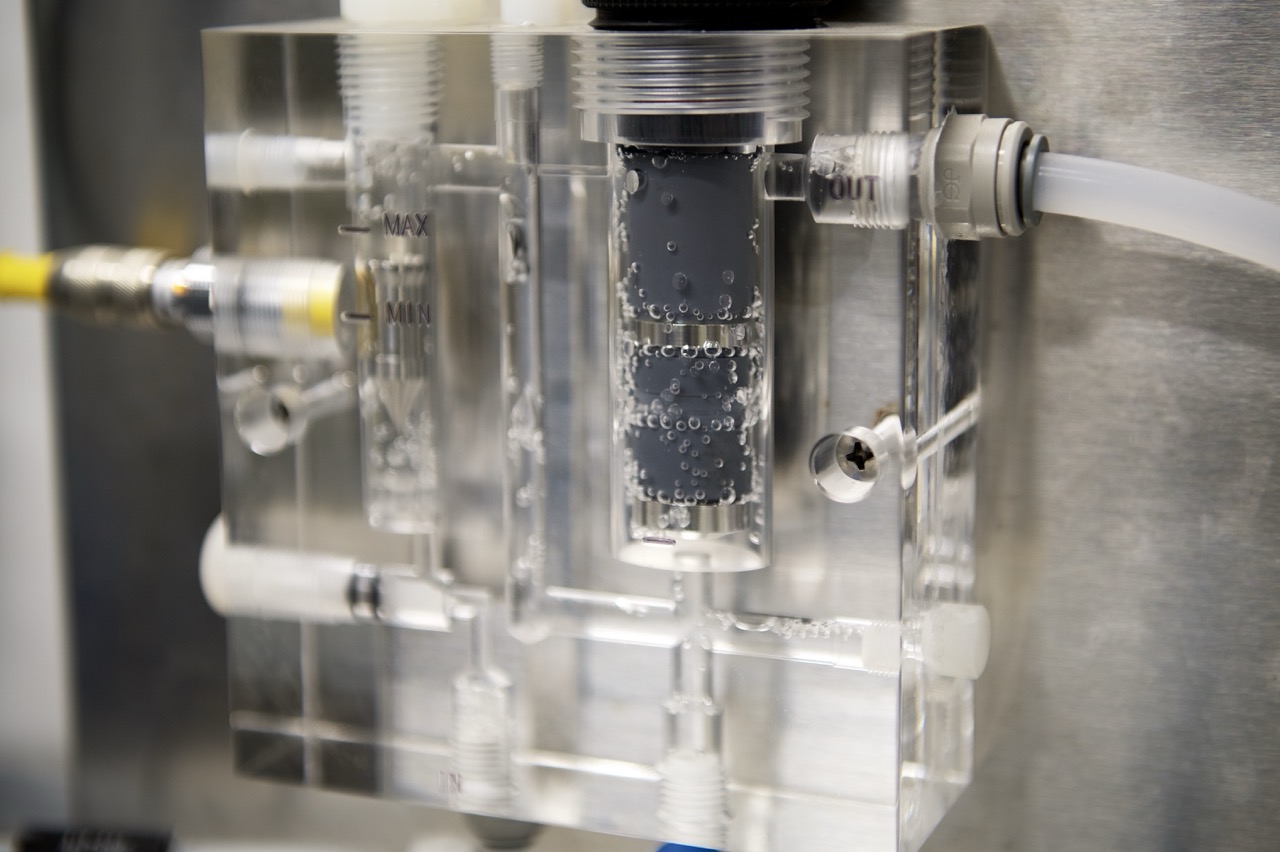
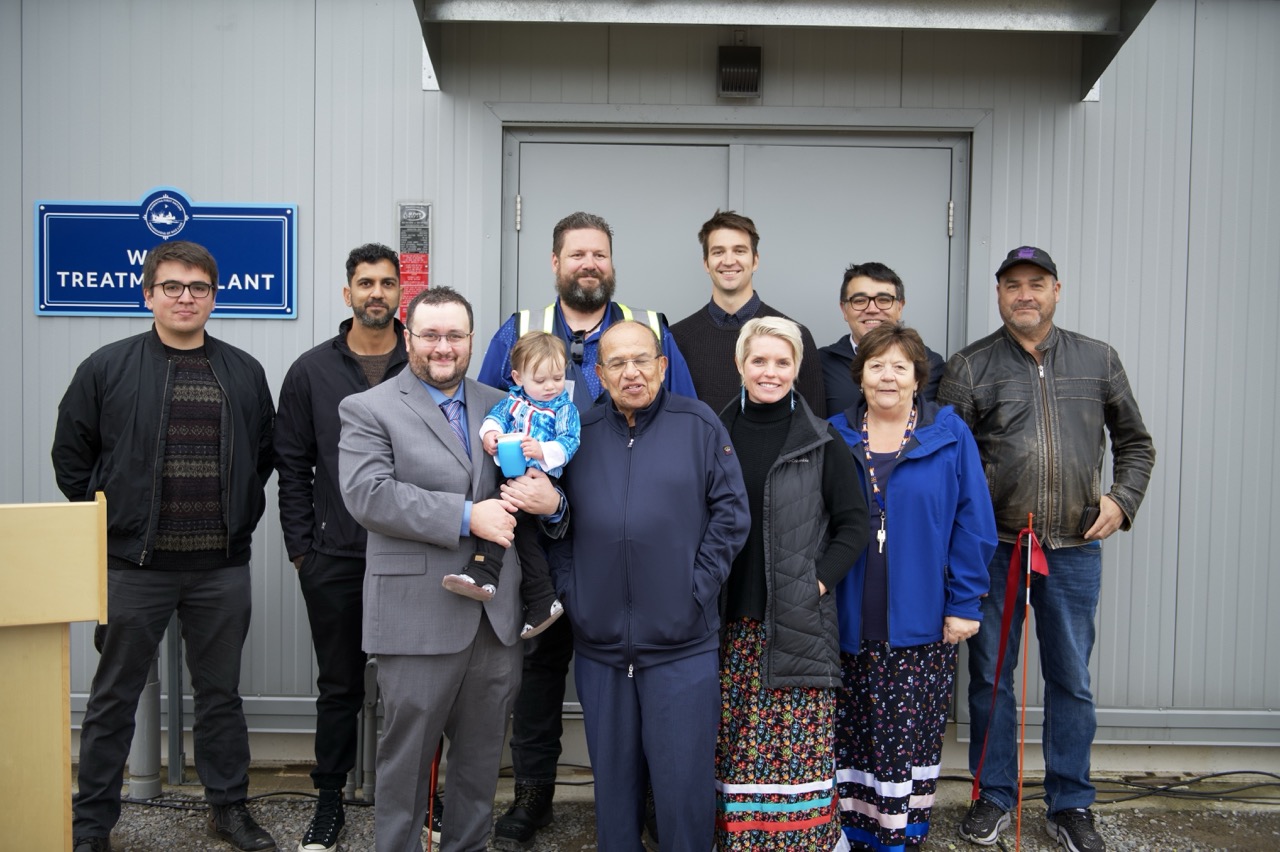
The Rankin Inlet Utilidor Project addresses critical risks in a deteriorating 1970s water and sewer system in the remote Arctic community of Rankin Inlet, Nunavut. Faced with environmental contamination, aging infrastructure, and geographic challenges such as permafrost and limited seasonal access, Dillon Consulting Limited was engaged to deliver urgent, system-wide upgrades. Using innovative remote technologies—like 360° scanning and drone LiDAR—Dillon created digital assets for real-time collaboration across Canada. This forward-thinking approach enabled efficient design under extreme conditions, improving system reliability, capacity, and community safety in one of Canada’s most challenging environments.
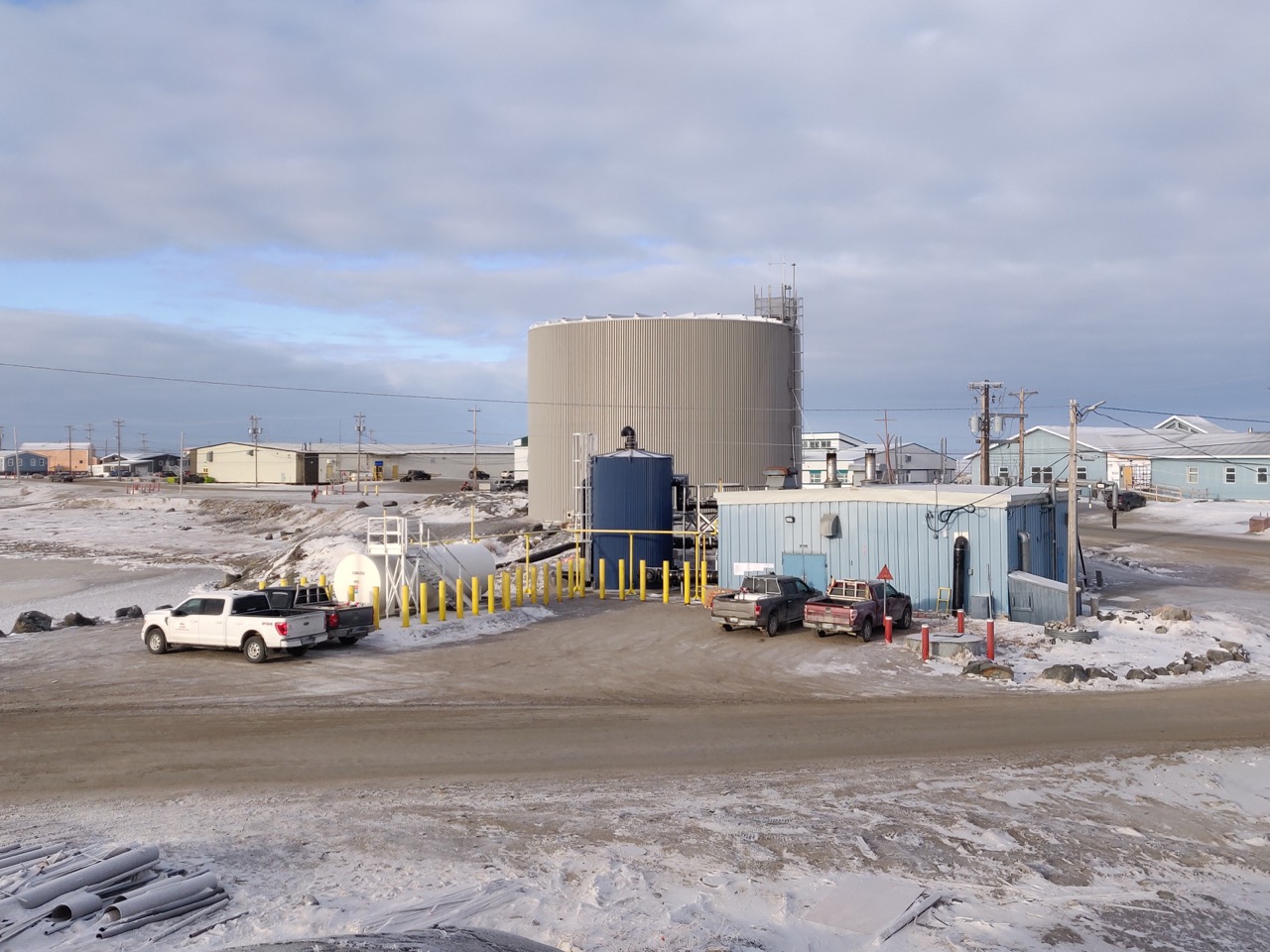
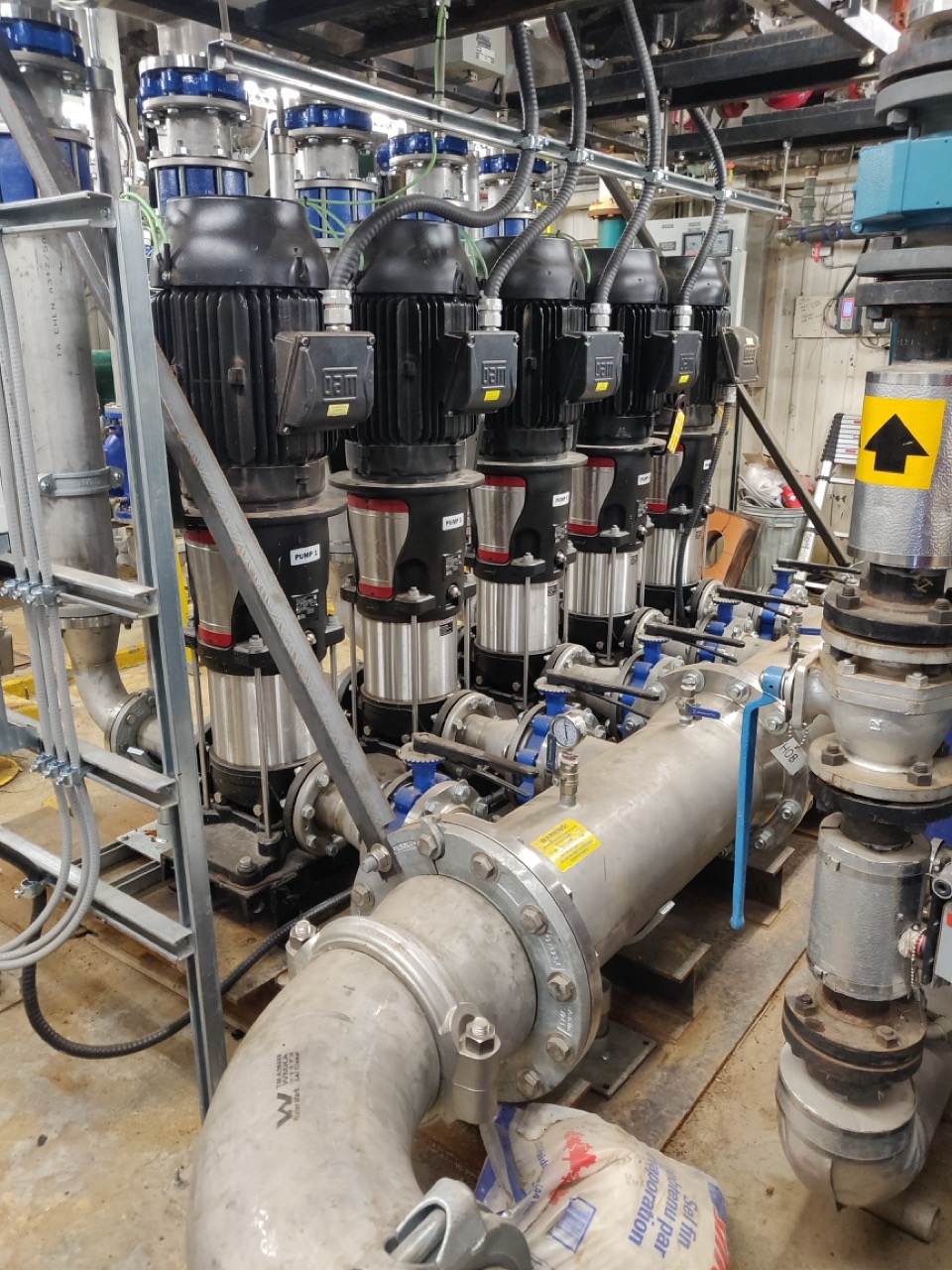
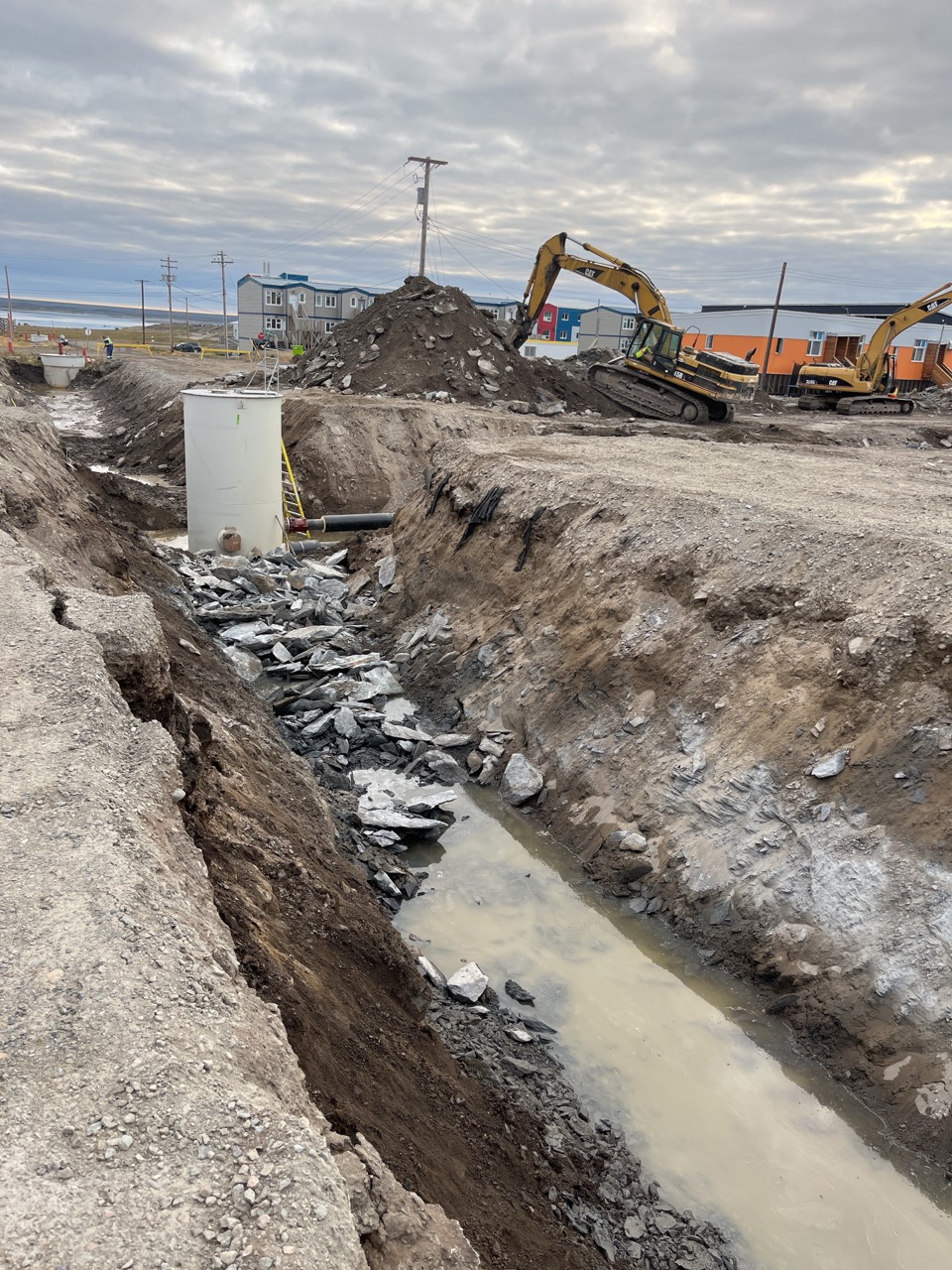
Wastewater: Large Project Award
This award celebrates a large-scale wastewater project serving over 5,000 residents that exemplifies leadership and innovation within the Canadian water sector.
The Region of Waterloo has demonstrated national leadership in wastewater innovation through the implementation of Canada’s first full-scale membrane aerated biofilm reactor (MABR) and advanced nitrous oxide (N₂O) emissions monitoring at the Elmira Wastewater Treatment Plant. Leveraging DuPont’s OxyFAS system—the company’s first full-scale North American installation—the Region intensified treatment capacity and nutrient removal without expanding infrastructure.
In parallel, the Region launched one of North America’s first long-term studies monitoring N₂O emissions from an MABR system using machine learning modeling to better understand and mitigate this potent greenhouse gas, which has 273 times the global warming potential of CO₂.
This pioneering project exemplifies Waterloo’s forward-thinking approach to climate resilience, sustainable infrastructure, and knowledge-sharing, with key insights already shaping industry dialogue across Canada and beyond.
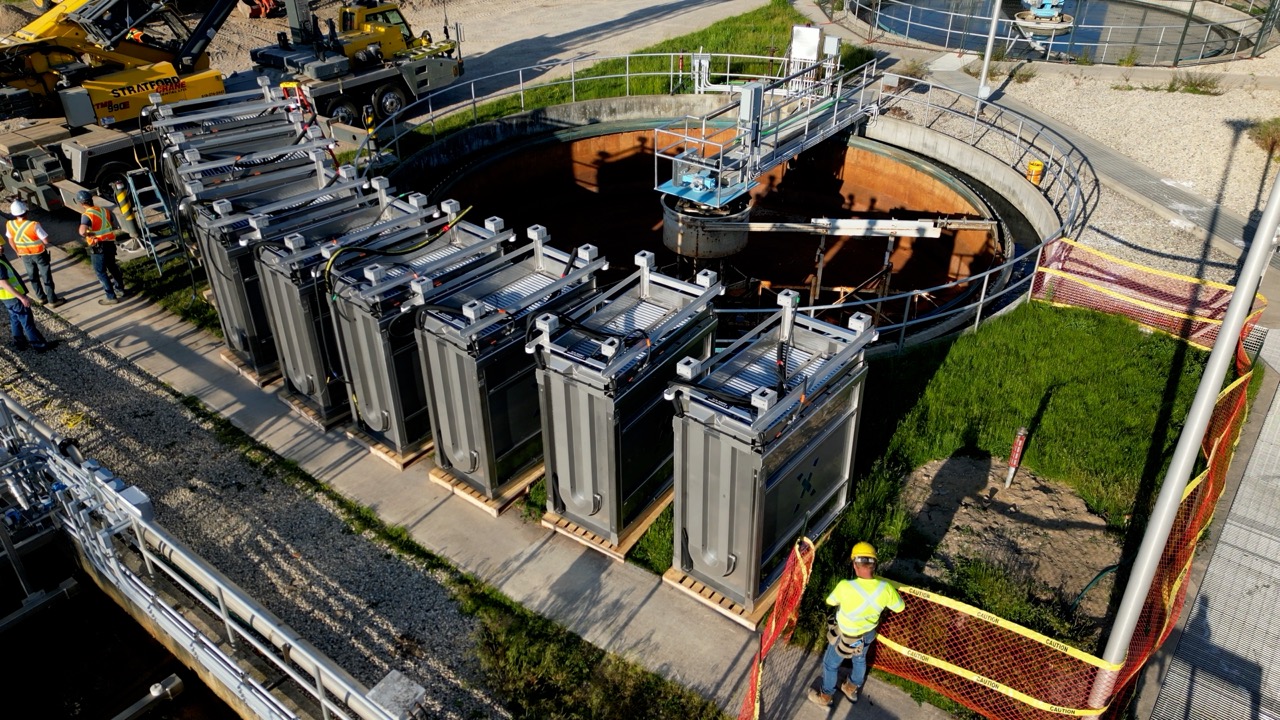
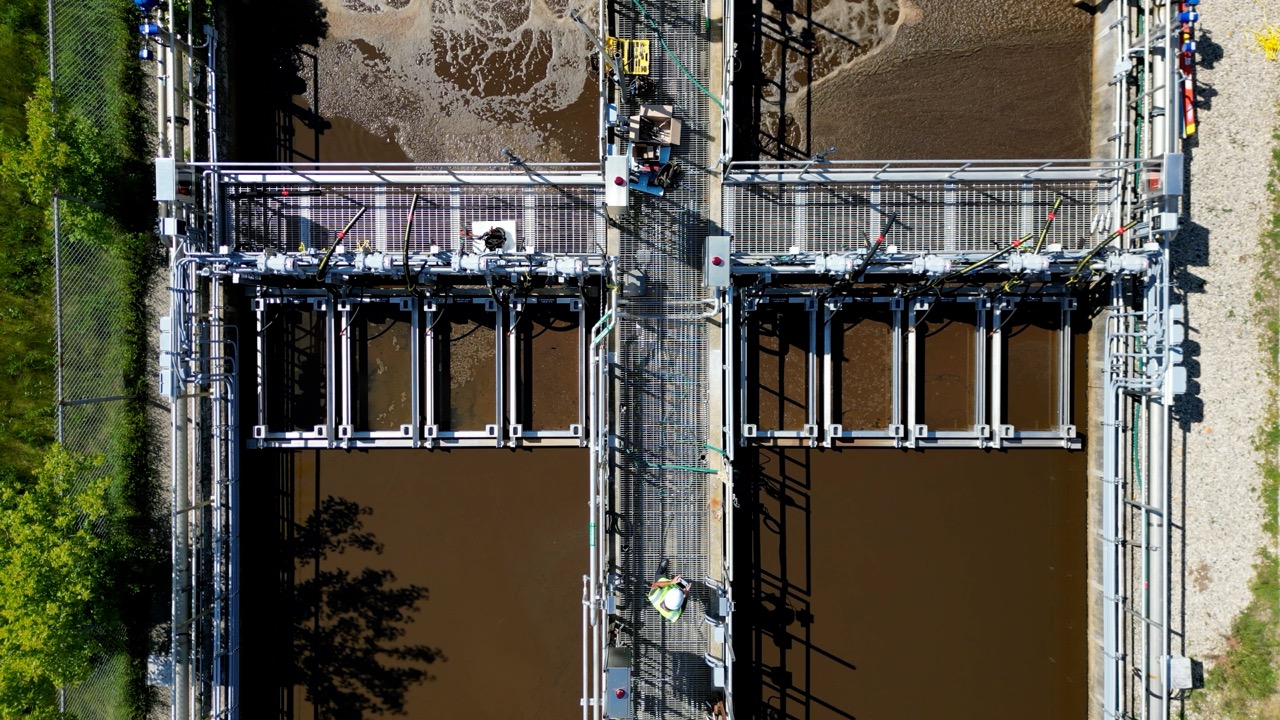
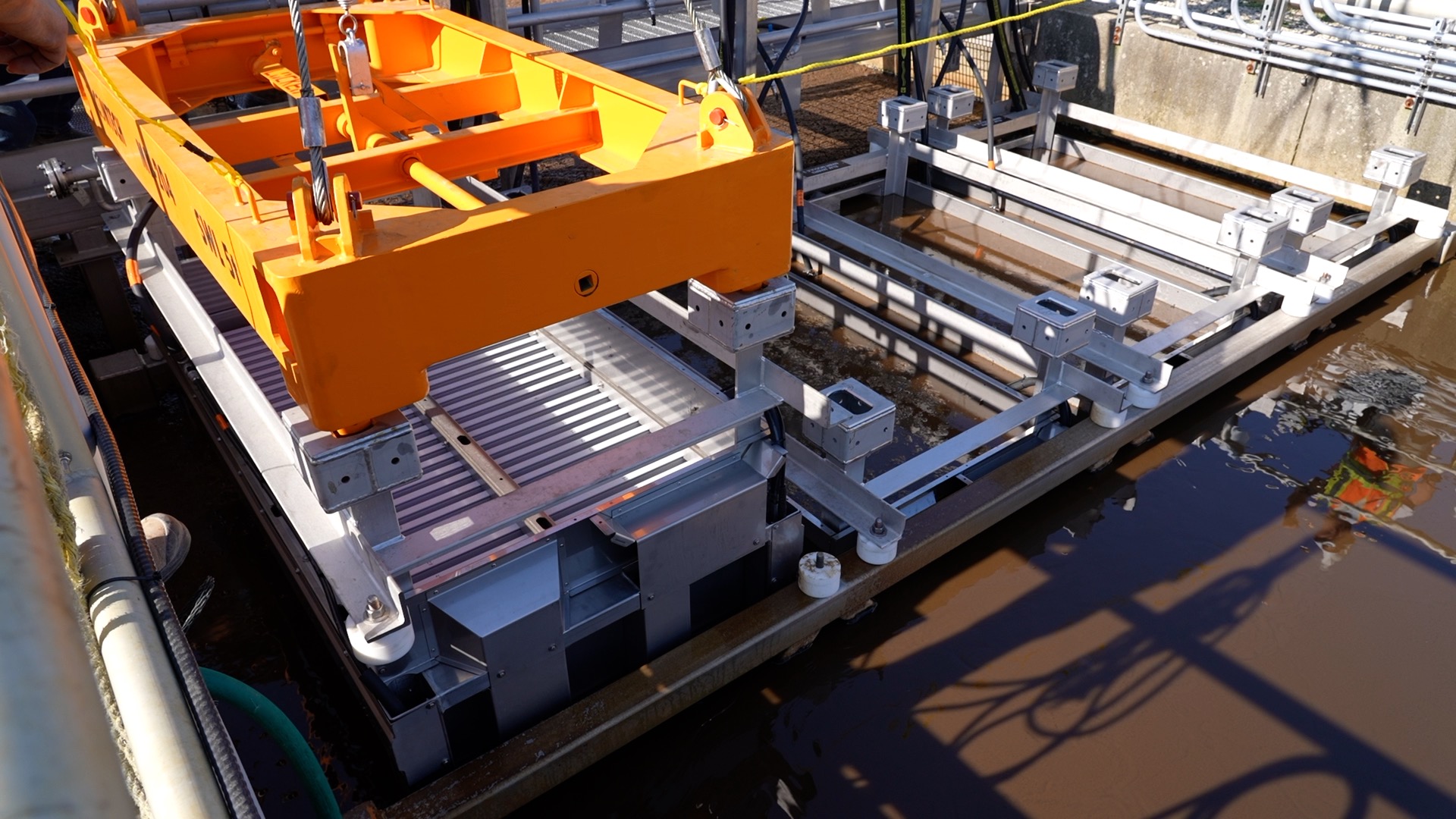
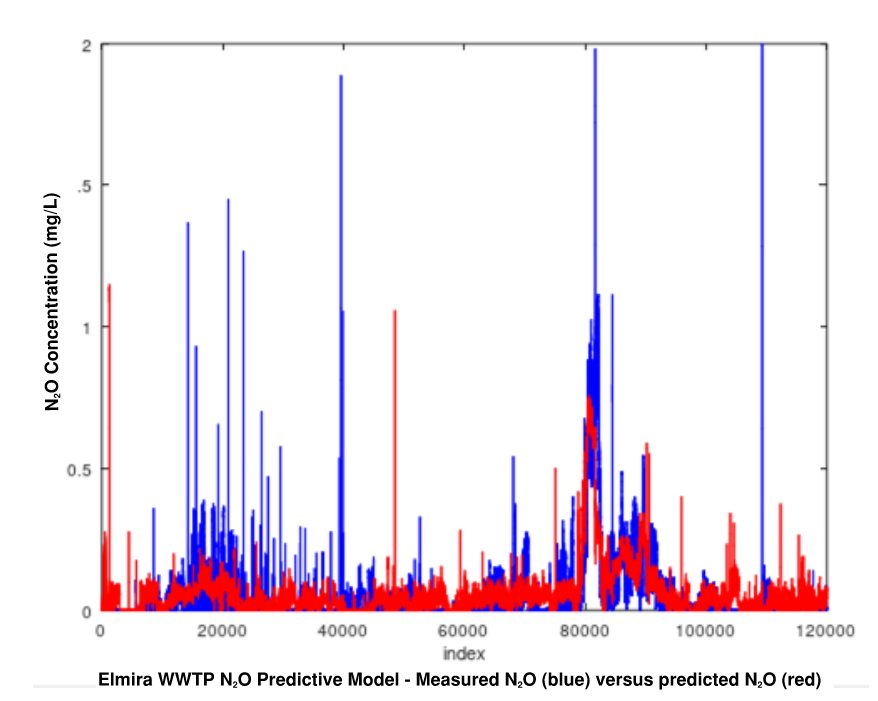
Hamilton Harbour, located at the western tip of Lake Ontario, is a vital economic, environmental, and recreational area, but it has faced significant environmental challenges over the years. Historically an industrial hub for steel production and shipping, it has suffered significant environmental degradation and habitat destruction. The Woodward Avenue WWTP is the largest single source of water flowing into the Hamilton Harbour, and the quality of the effluent has a direct impact on the harbour’s water quality and environmental health.
The Woodward Phase 1 Upgrade project represents the largest investment within the City of Hamilton’s Clean Harbour Program and plays a crucial role in meeting new stringent Hamilton Harbor Remedial Action Plan effluent quality targets with the goal of delisting Hamilton Harbour as an Area of Concern.
From a treatment technology perspective, the project included the addition of the largest tertiary disk filtration facility in the world, having a capacity of 614 ML/d.
For more information:
https://esemag.com/wastewater/hamilton-final-woodward-wwtp-upgrades/
https://www.watercanada.net/hamiltons-woodward-wastewater-treatment-plant-upgrades-complete/
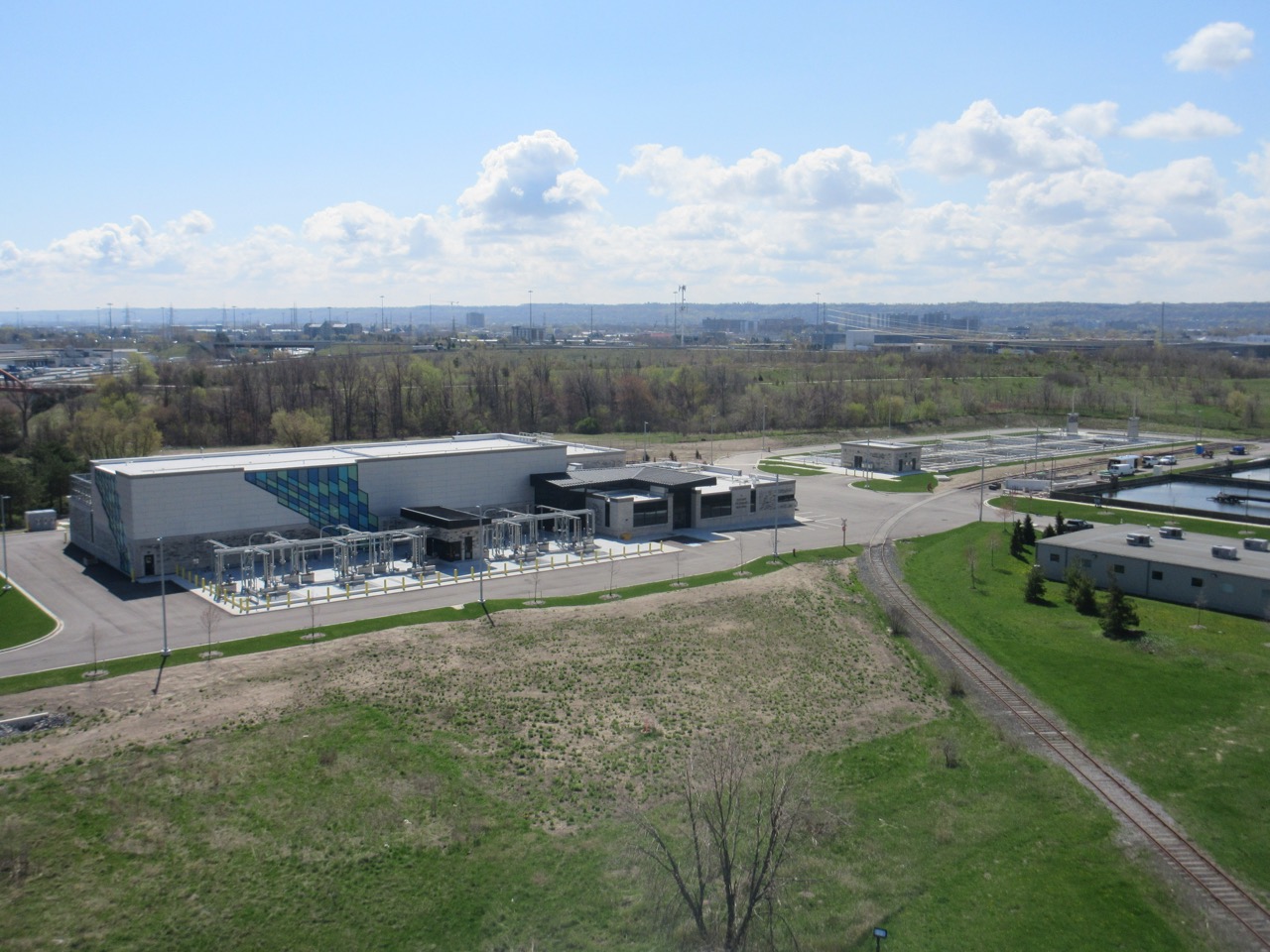
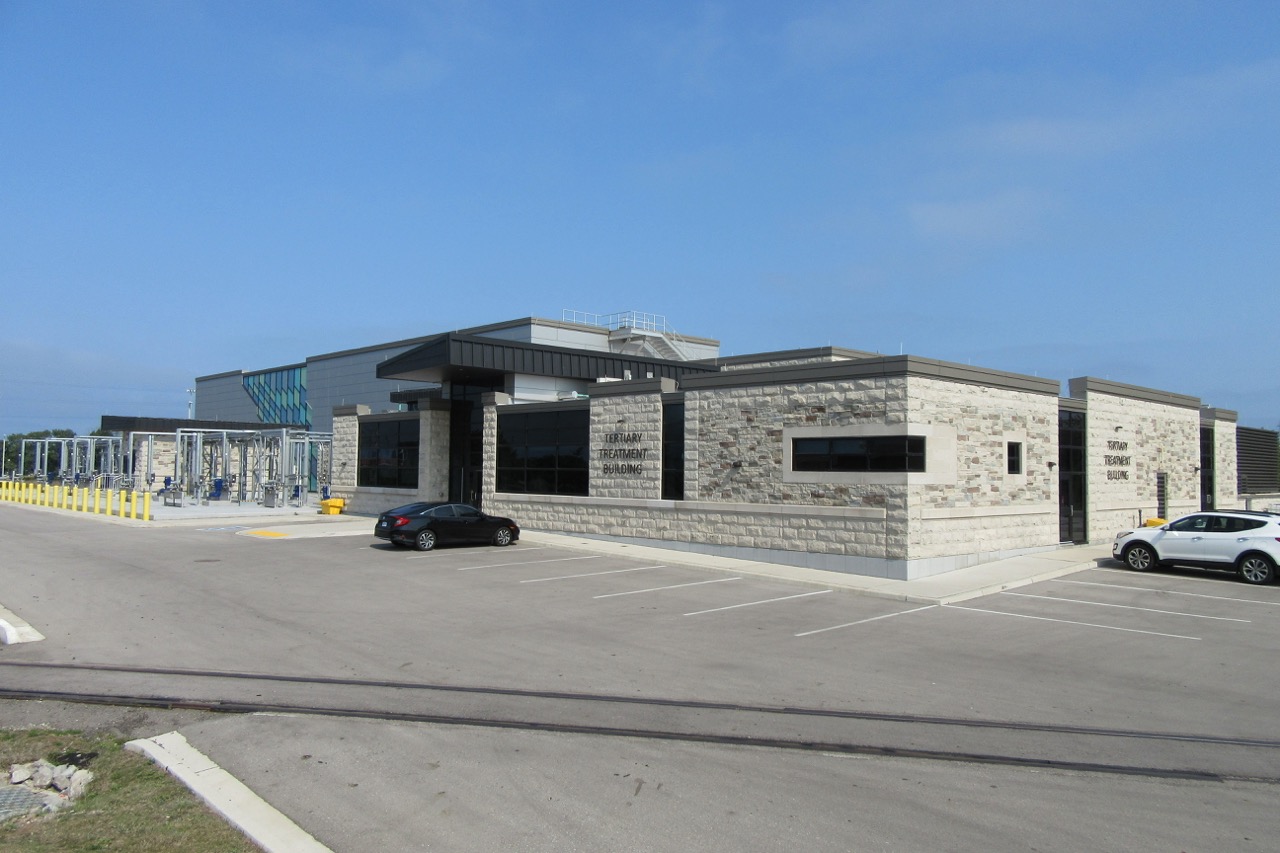
The Tofino Wastewater Treatment Plant represents a landmark achievement in environmental stewardship, public health, and Indigenous collaboration. As the largest capital project in the District’s history, it addresses longstanding ecological concerns by ending the direct discharge of untreated effluent into the Clayoquot Sound UNESCO Biosphere Reserve. The project’s innovative design, community engagement, and commitment to sustainability set a new standard for wastewater management in small coastal communities.

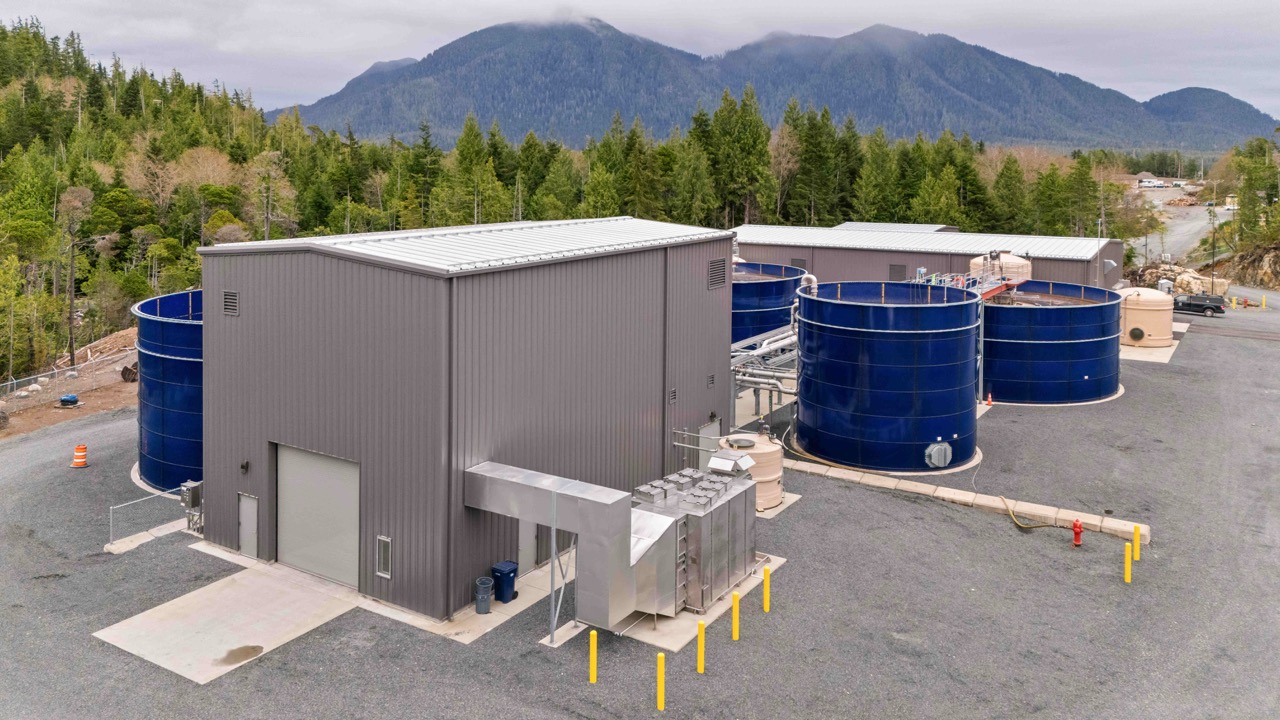
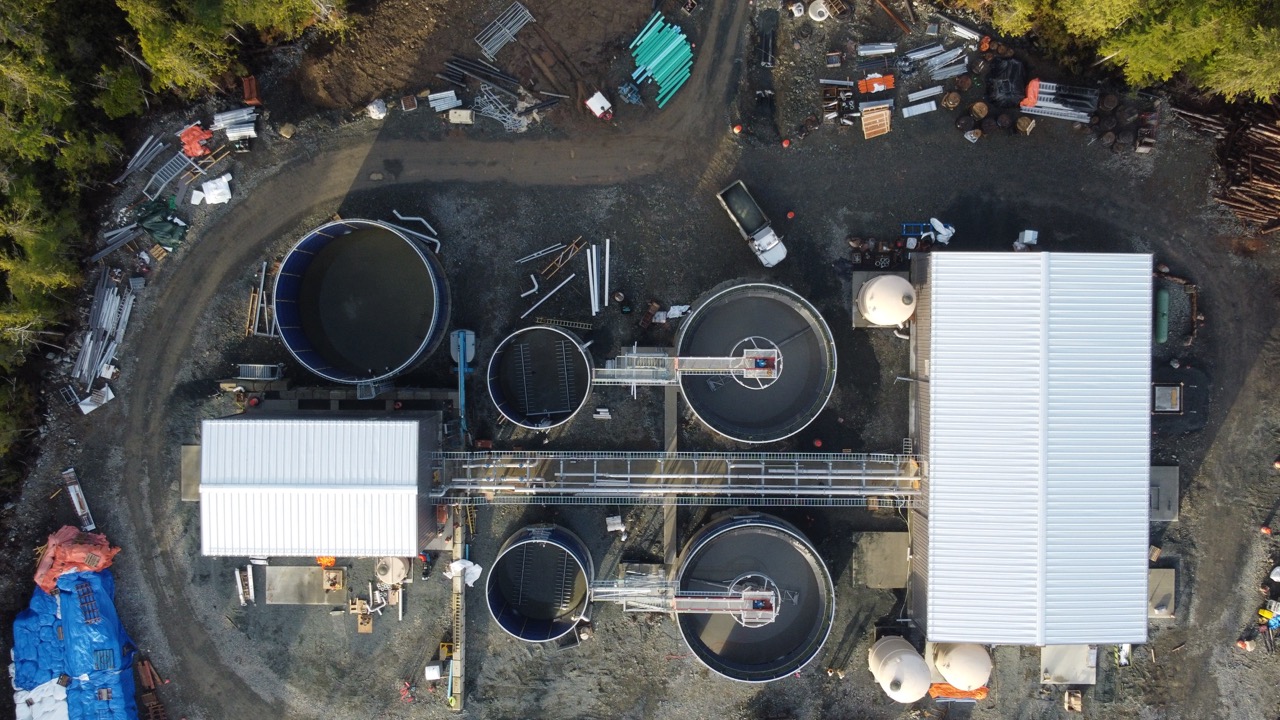
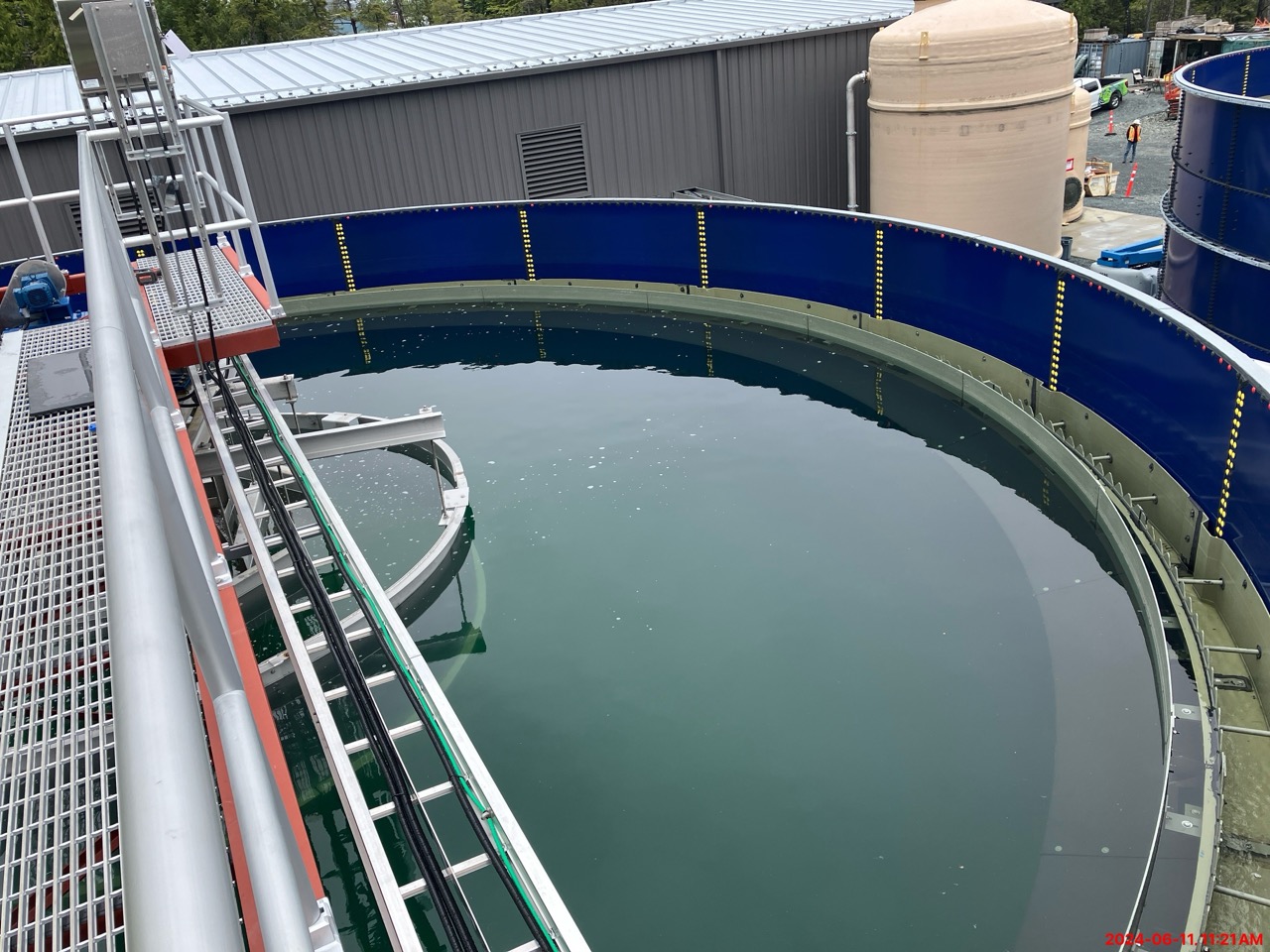
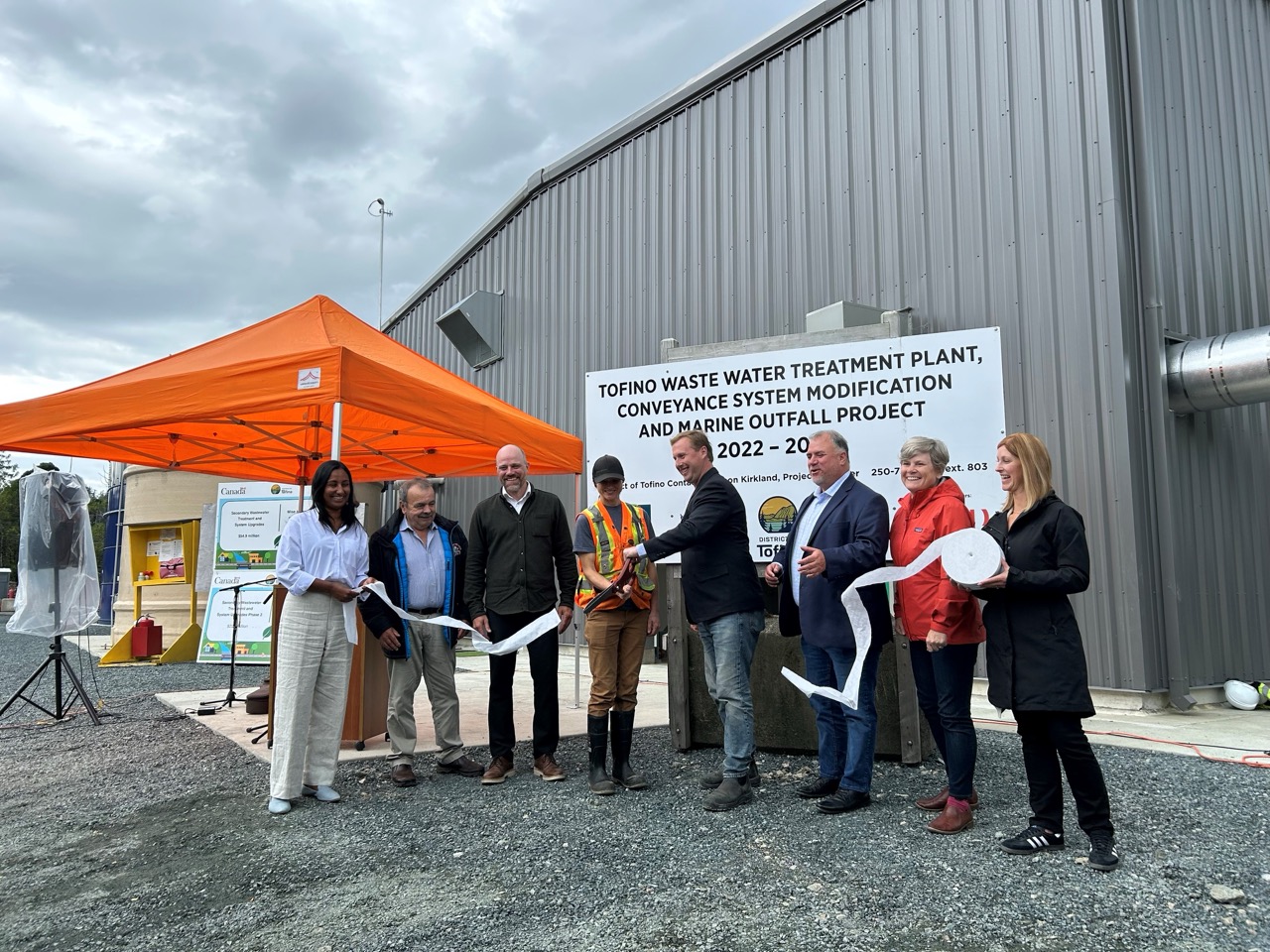
Wastewater: Small Project Award
This award honours a small-scale wastewater project serving fewer than 5,000 residents that stands out for its ingenuity and commitment to sustainability within the Canadian water industry.
The Wastewater Treatment and Reuse Plant (WWTRP) project showcases the implementation of several new and innovative technologies in wastewater treatment and aligns with the principles of green chemistry and circular economy. The facility employs a unique and forward-thinking wastewater reuse system, utilizing a two-pass RO system to produce high-purity boiler feed makeup water for the Cogen plant, a practice that is rare in industrial wastewater treatment plants. The plant design incorporates an advanced oxidation system using UV irradiation and hydrogen peroxide for effective wastewater treatment.
The project utilizes a Design-Build contract with a third party technology partner, which was considered an innovative approach compared to past EPCM contract structures. The facility includes a SCADA system for comprehensive data management and remote control, ensuring optimal operation and efficiency.
An innovative solution that addressed structural, process, and architectural challenges was the implementation of crystalline waterproofing technology for all water-retaining structures and buried foundation walls. This advanced solution eliminated the need for interior coatings and external foundation waterproofing.
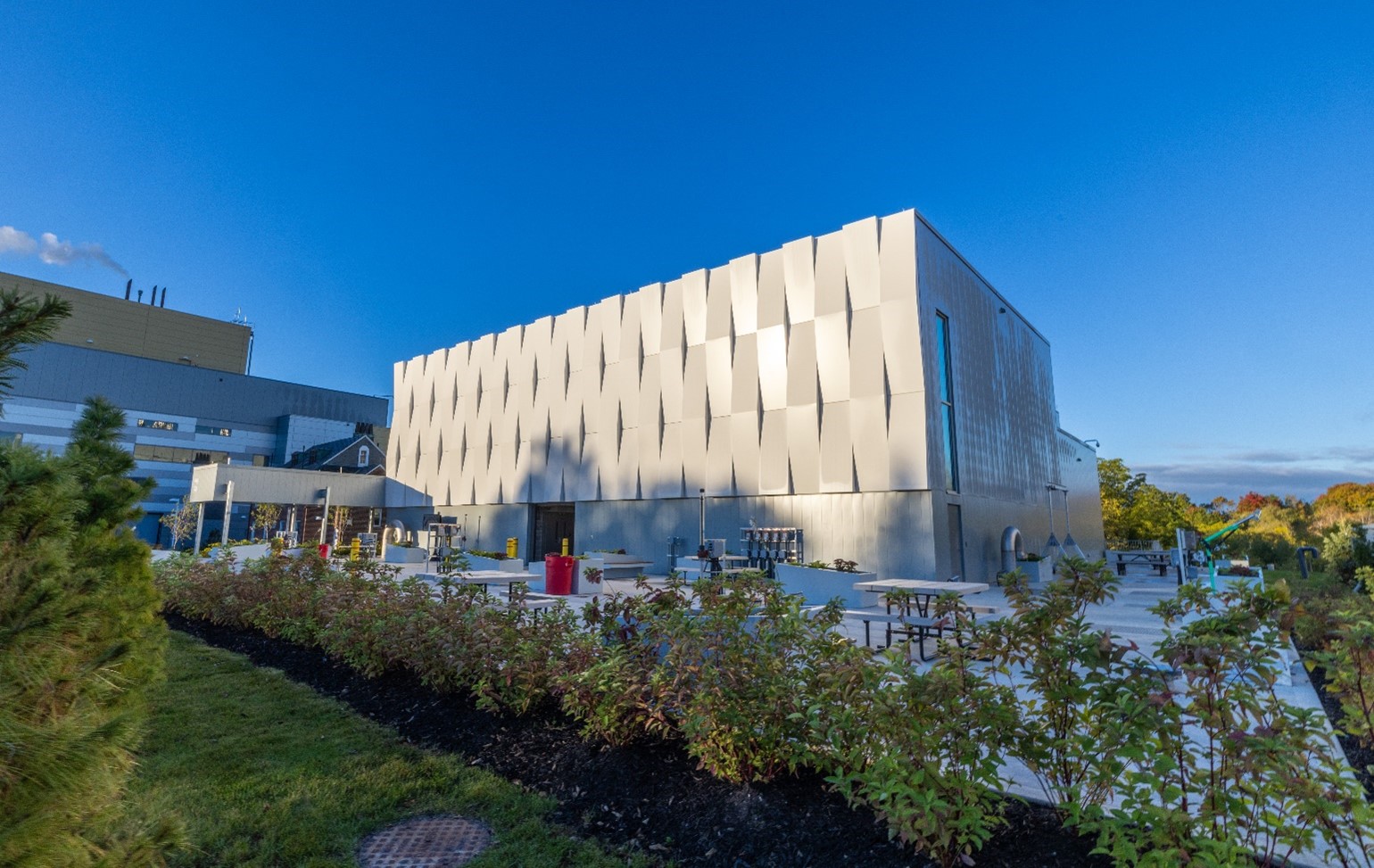
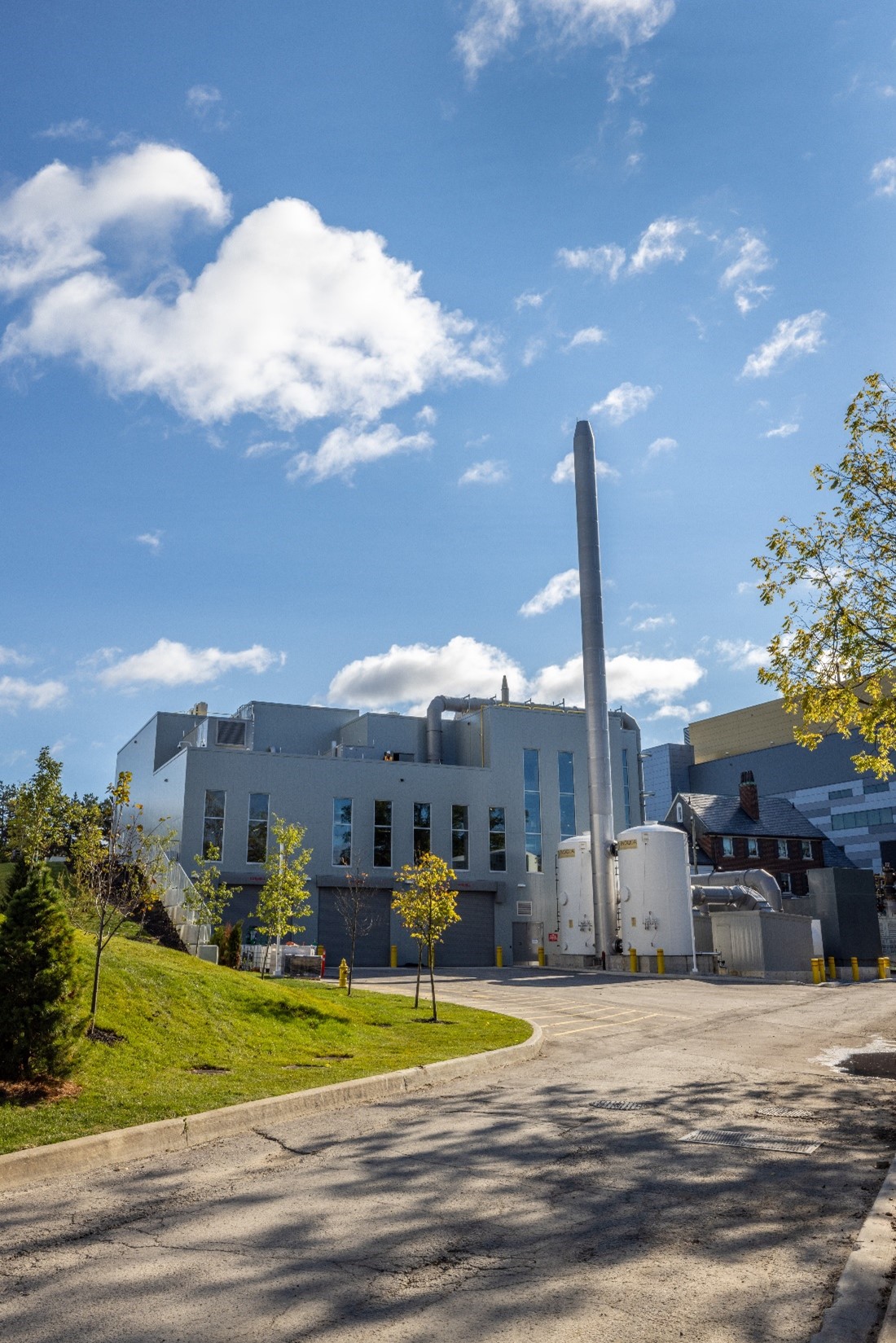
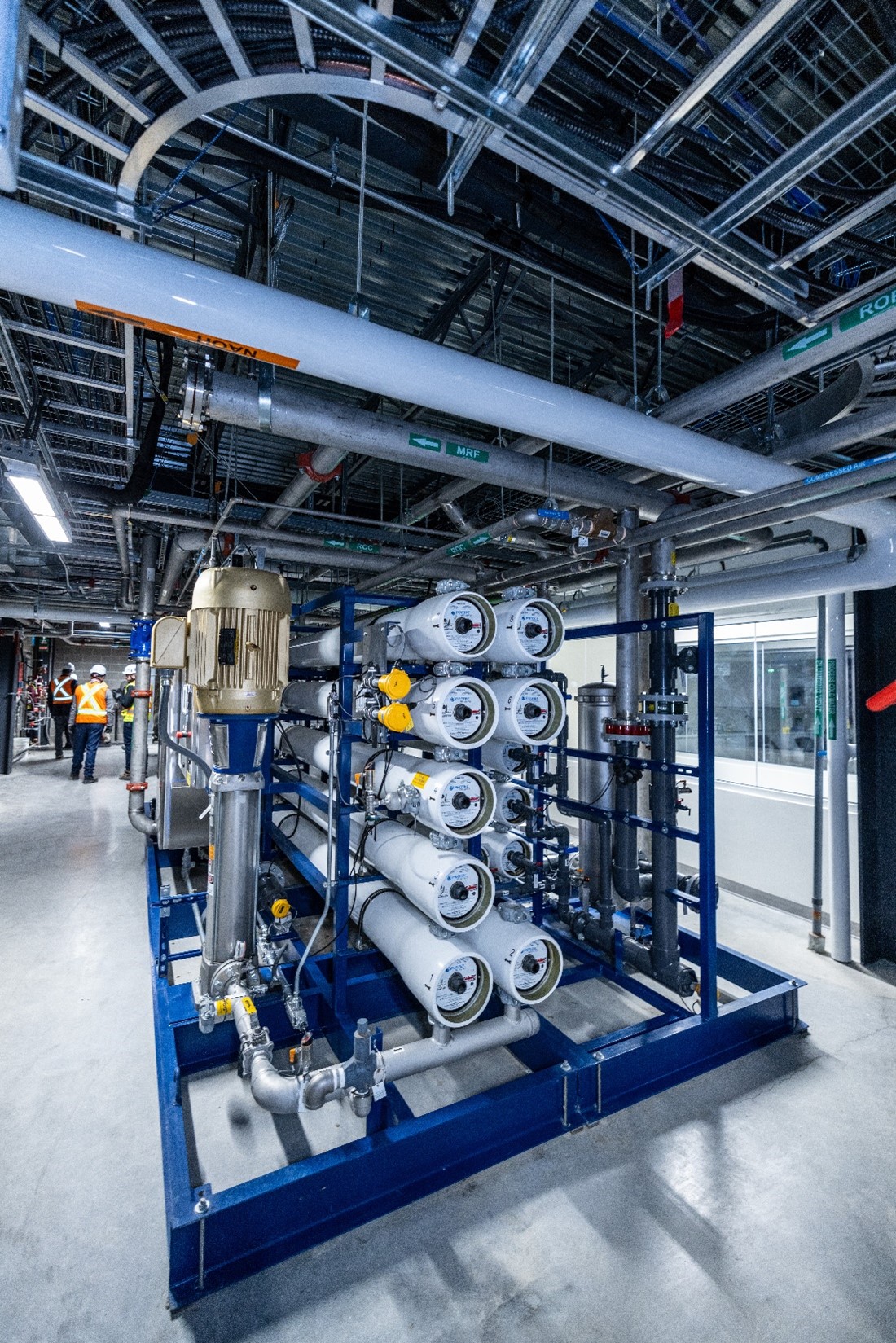
The Casselman Wastewater System Upgrade delivers a sustainable, cost-effective wastewater treatment solution tailored for a small community with limited financial resources. By integrating a moving bed bioreactor (MBBR) system with optimized lagoon operations, the community now benefits from reliable, cold-weather treatment with long-term capacity for growth.
Designed with future expansion in mind, the system can increase capacity by 20%–50% affordably and within the existing site, avoiding costly mechanical upgrades. This “project first” collaborative approach resulted in an innovative model that can be replicated across Ontario and Canada, enhancing environmental outcomes while minimizing capital and operational expenses.
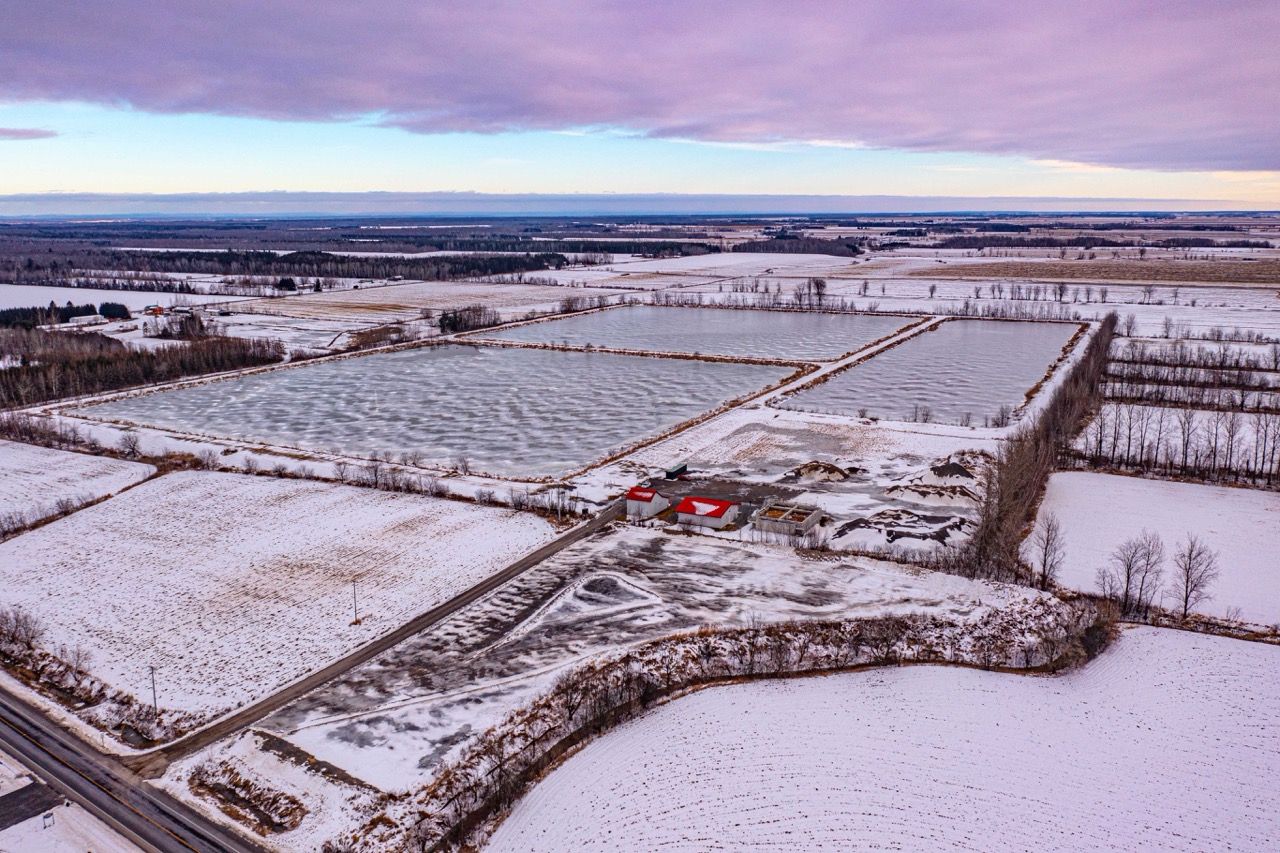
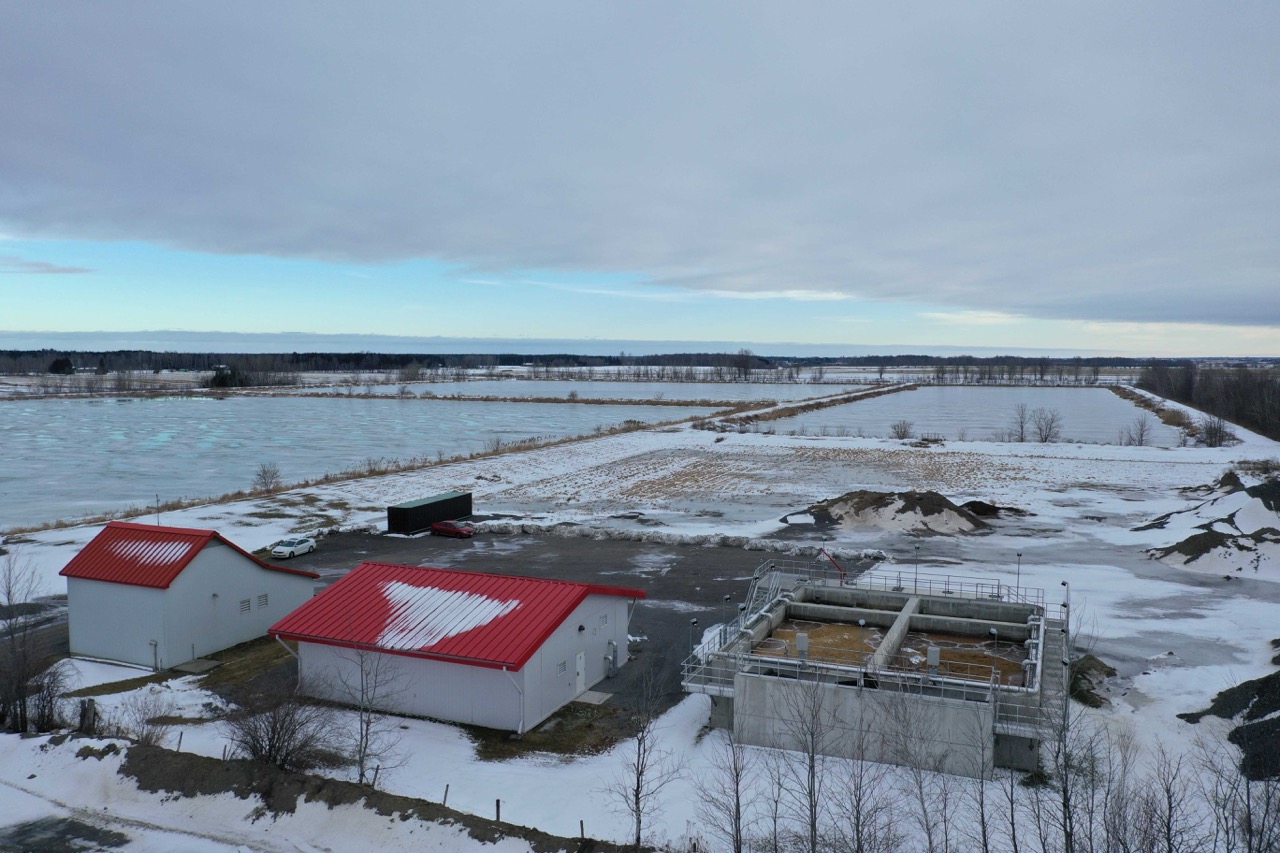
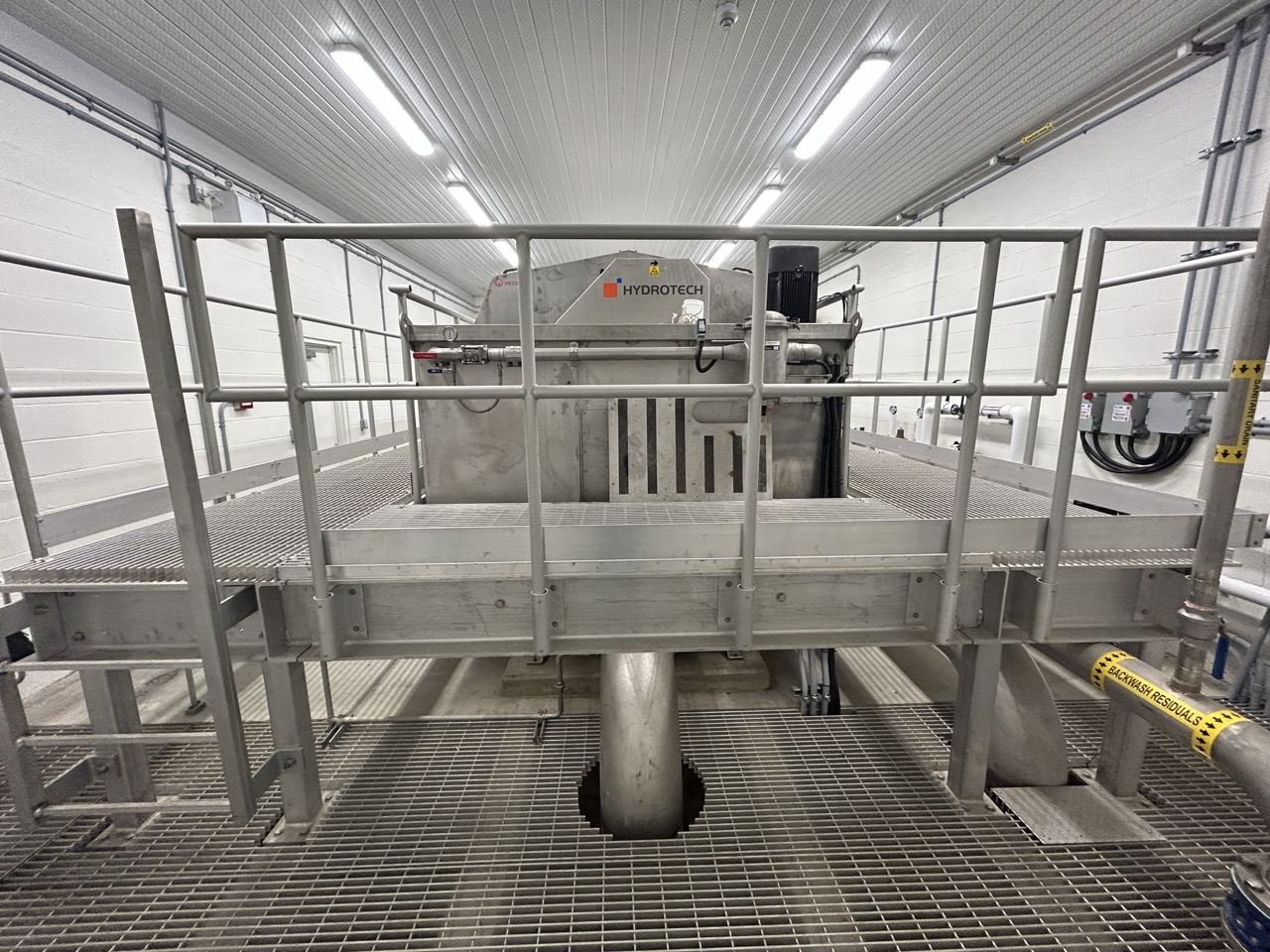
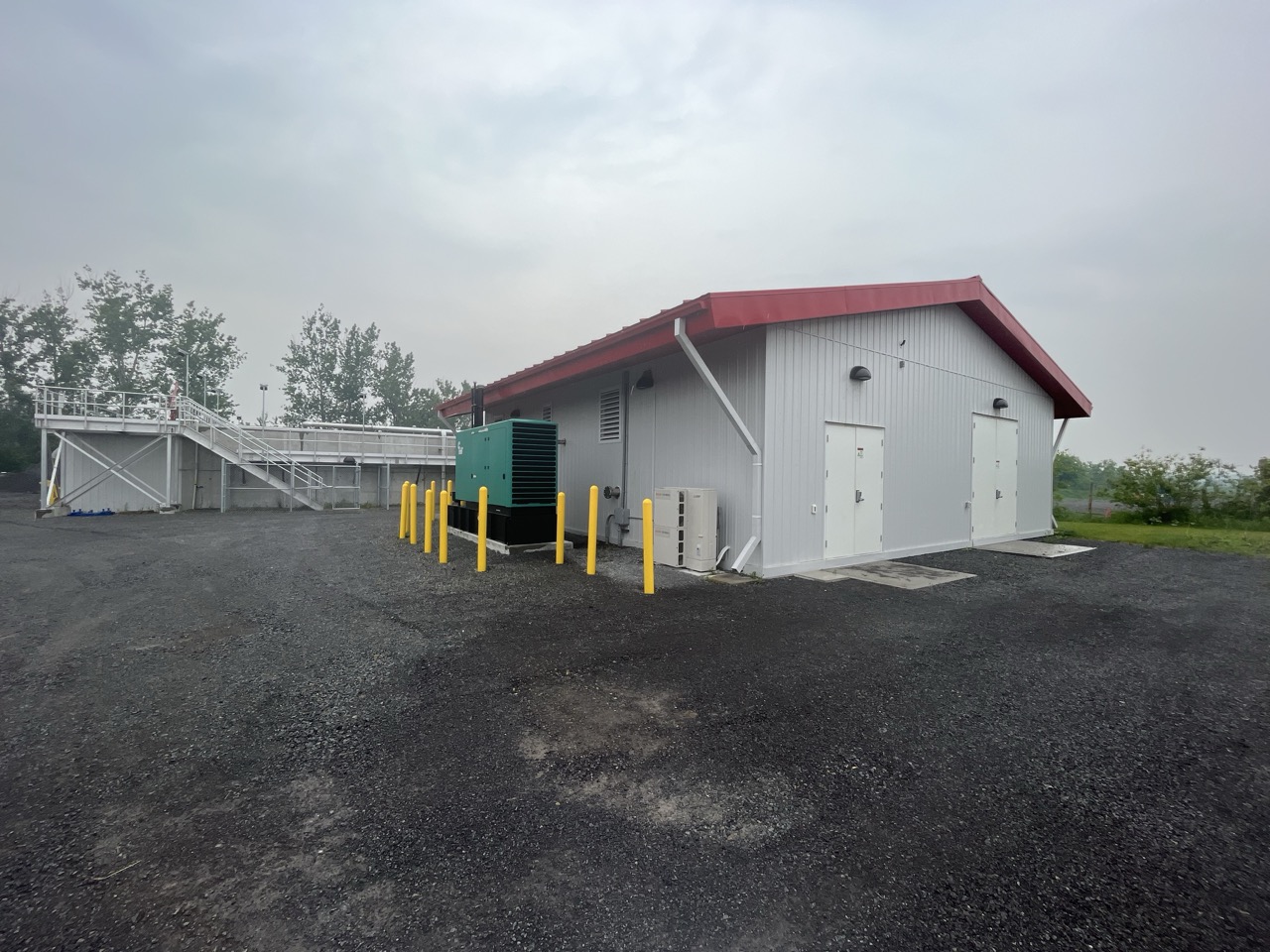
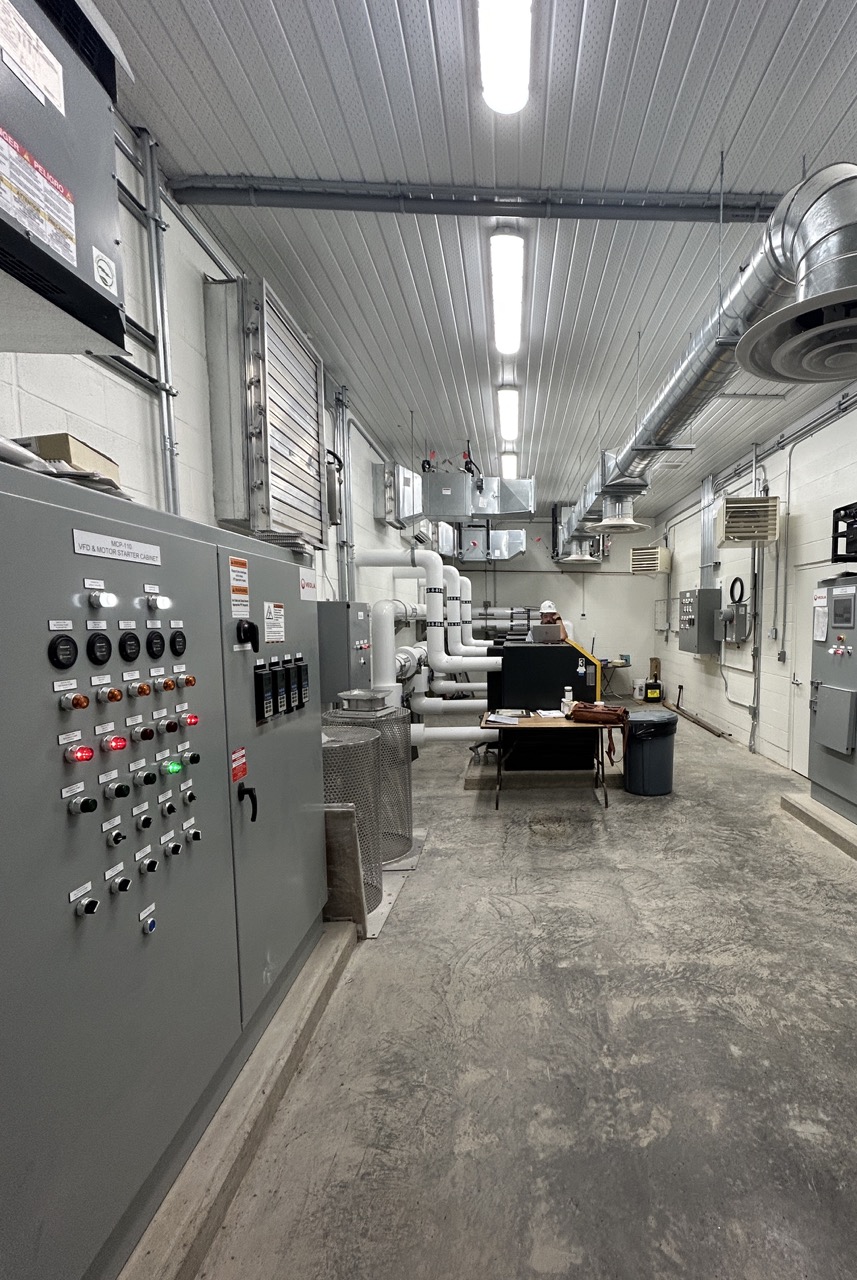
Stormwater: Large Project Award
This award celebrates a large-scale stormwater project impacting over 1,000 hectares that exemplifies excellence and innovation in Canadian stormwater management.
The City of Hamilton Watershed Action Plan is a city-wide, forward-thinking initiative aimed at reducing non-point source pollution and improving stormwater quality across all four of Hamilton’s watersheds. Crossing four Conservation Authority boundaries, the plan’s impact spans every river, stream, and creek within municipal limits. Grounded in extensive engagement with Indigenous communities, environmental groups, academia, and the public, the Plan identifies scalable, actionable steps—such as enhancing road maintenance and snow/salt management with a water quality lens. Hamilton’s approach offers a replicable model for municipalities seeking to protect local watersheds through integrated, innovative, and inclusive planning.







Located in the Town of Midland, Ontario, the Concept Five Stormwater Improvements were designed to address chronic flooding issues exacerbated by climate change and increased urban development. Midland’s aging stormwater infrastructure was frequently overwhelmed during wet weather events, posing risks to public safety, private property, and water quality. The project focused on improving stormwater conveyance, increasing storage capacity, and separating foundation drains from the system to reduce inflow and infiltration.
The community, which covers approximately 35 km² and is planning to service over 3,000 new homes with its sewer system, required modernized stormwater management to ensure both current reliability and future resilience.
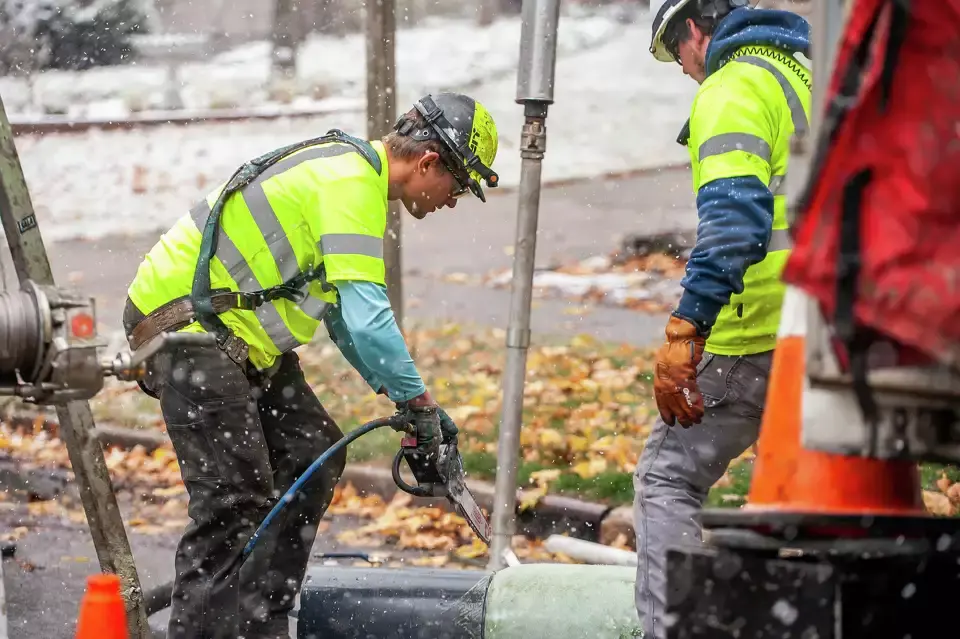
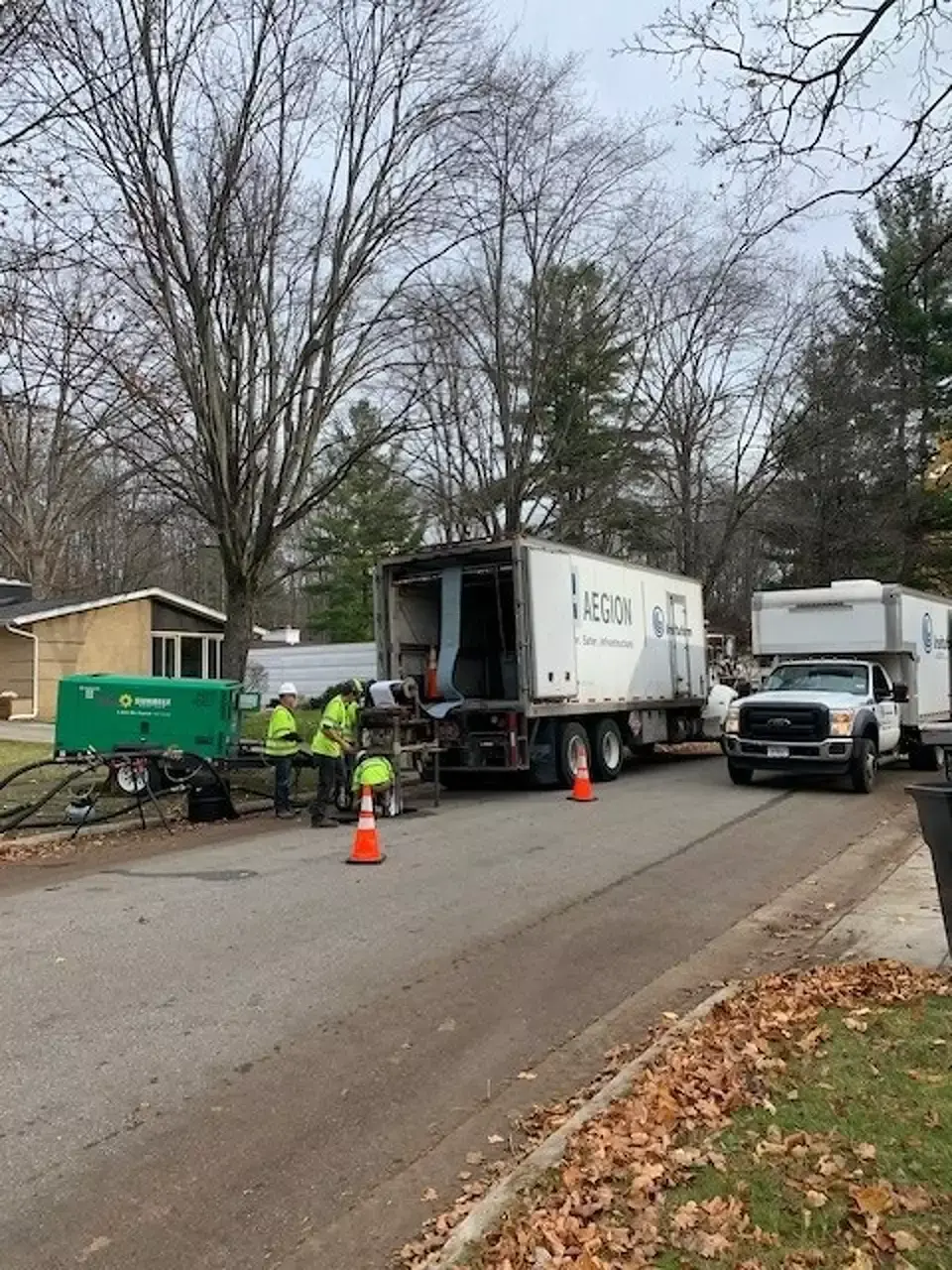
The Taylor-Massey Creek restoration project exemplifies innovation at the intersection of engineered and natural infrastructure in a densely urbanized setting. Undertaken with a strong interdisciplinary approach, the project integrates water resources engineering, fluvial geomorphology, and aquatic and terrestrial ecology to deliver a resilient, hybrid solution that meets infrastructure, environmental, and community goals.
This project stands out for its self-sustaining design, with a dynamically sized channel that accommodates a range of hydrological conditions. It is carefully designed to prevent erosion and sediment accumulation, promoting long-term channel stability with minimal required ongoing maintenance. Resilient bank treatments—designed with hard armouring for infrastructure protection—are enhanced with ecological features that foster habitat development and biodiversity, achieving both durability and ecological function.
A key element of the project is its explicit focus on climate resilience. The design responds to increasing flow variability and storm intensity, delivering adaptable capacity while safeguarding municipal assets and public safety.
The restoration reflects the City’s long-standing commitment to enhancing its watercourses, valleys, and green spaces. Building on the foundation of its Geomorphic Systems Master Plans for rivers and creeks such as German Mills Creek, Yellow Creek, and the West Humber River, this project reinforces the City’s broader goal of enabling natural systems to convey stormwater while protecting adjacent infrastructure.
Taylor-Massey Creek now functions not only as a robust urban drainage corridor but as a revitalized natural space that enhances community enjoyment and urban biodiversity. The project demonstrates how modern urban stream restoration can provide layered benefits—integrating science, engineering, ecology, and social values into one resilient and inspiring outcome.
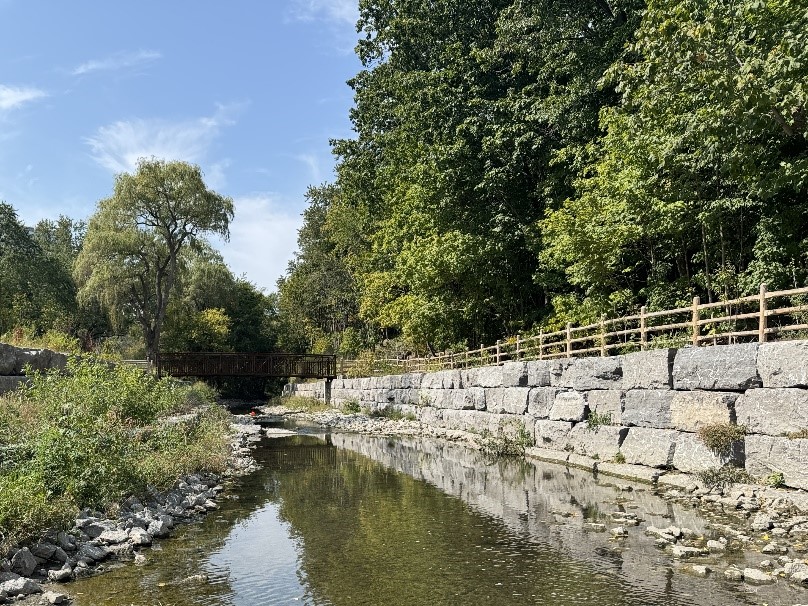
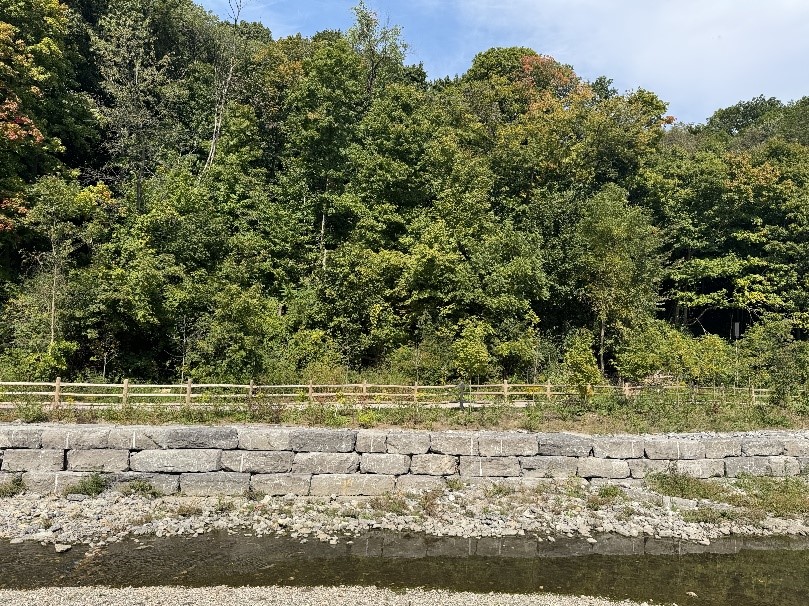
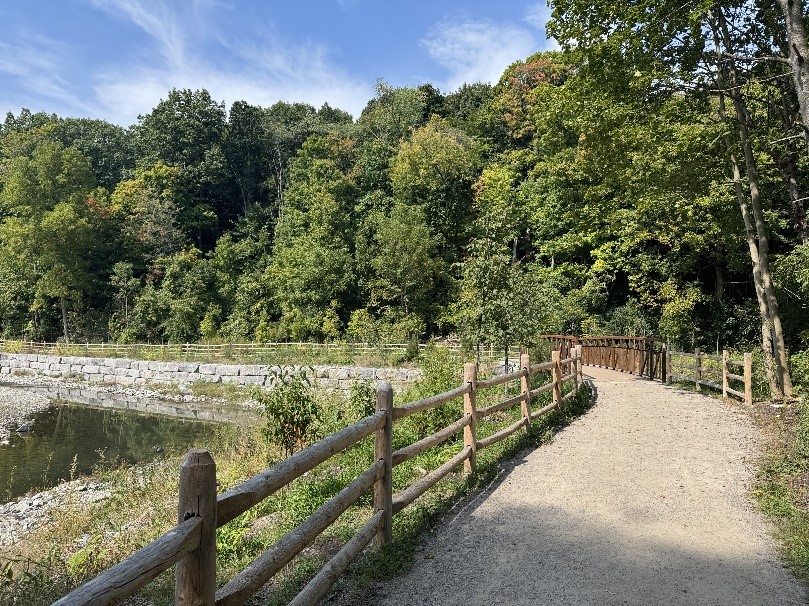

Stormwater: Small Project Award
This award recognizes a small-scale stormwater project that serves up to 1,000 hectares and stands out for its resourcefulness and impact on Canada’s water sector.
The Green Streets program is a staff-led effort to not only build and transform a program, but also create a culture of equity based design, delivery and maintenance. This is accomplished via thoughtful and collaborative partnership with over 12 City divisions and agencies, multiple bodies of academia, partnerships with North American jurisdictions and community members in Toronto’s own neighborhoods to establish the City as an industry leader in green infrastructure. First through one-off pilots, and now through a larger implementation strategy, the Green Streets program has been successfully implementing a range of new technologies and techniques to improve stormwater management, enhance streetscapes, and promote a healthier, more biodiverse urban environment.
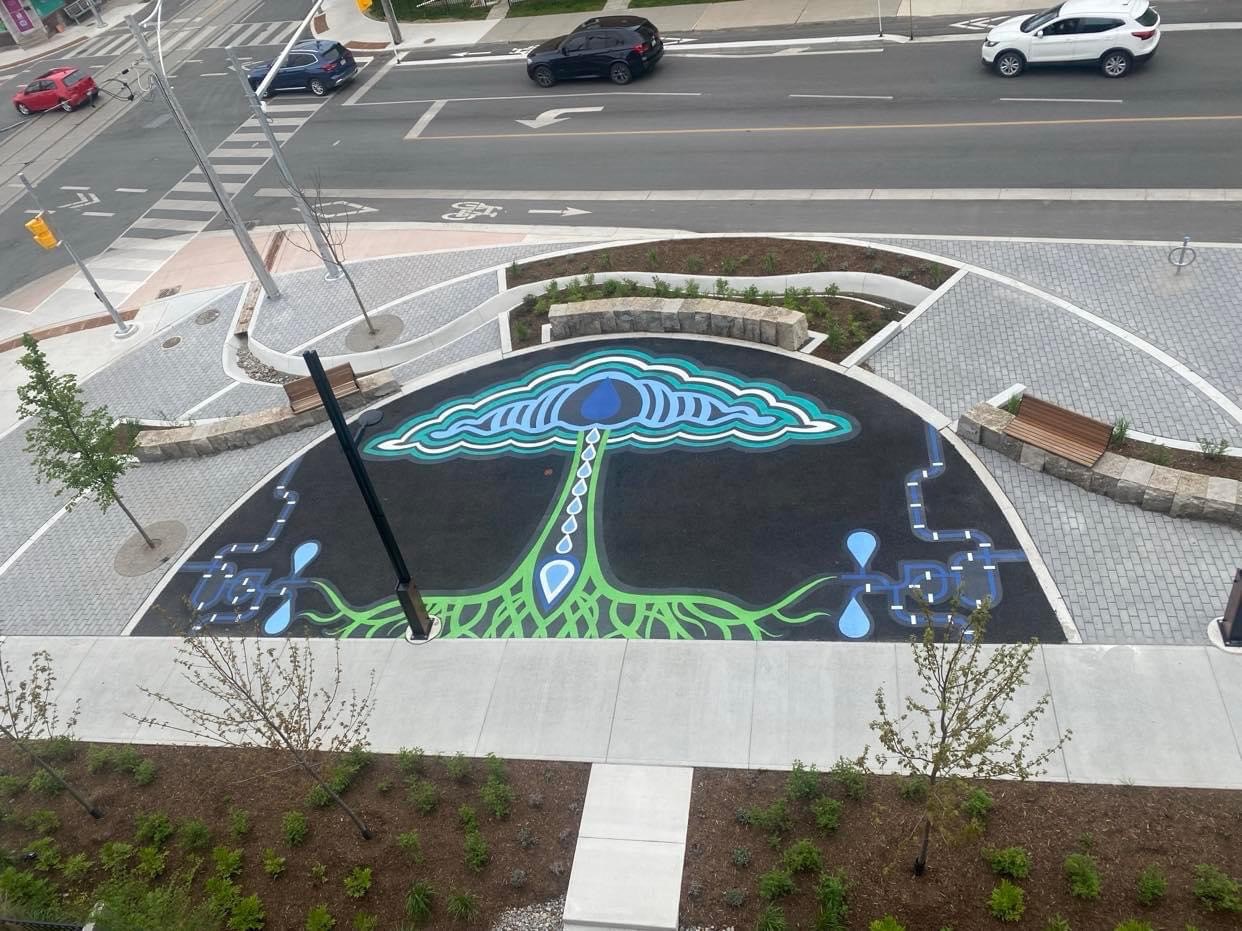
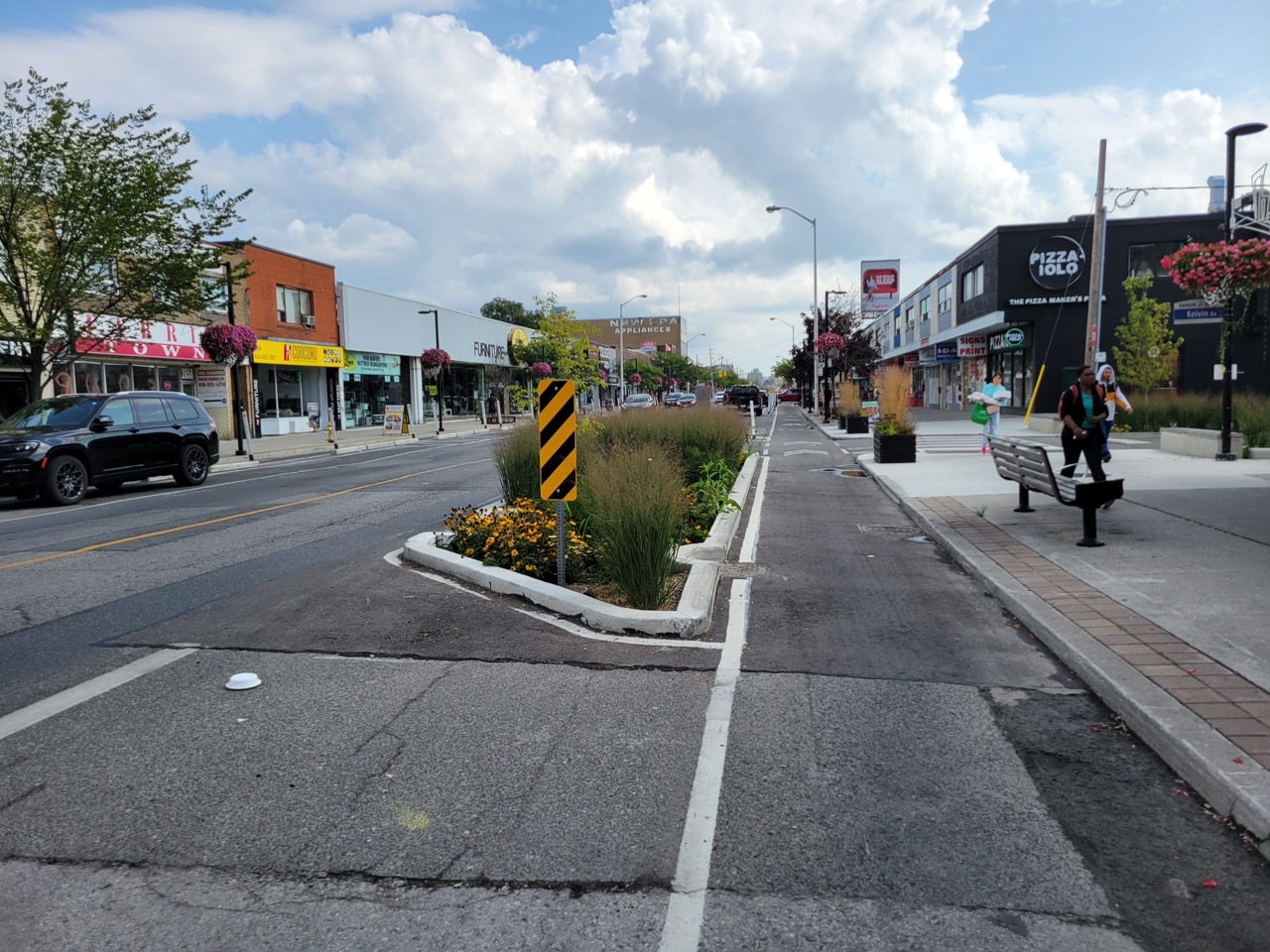
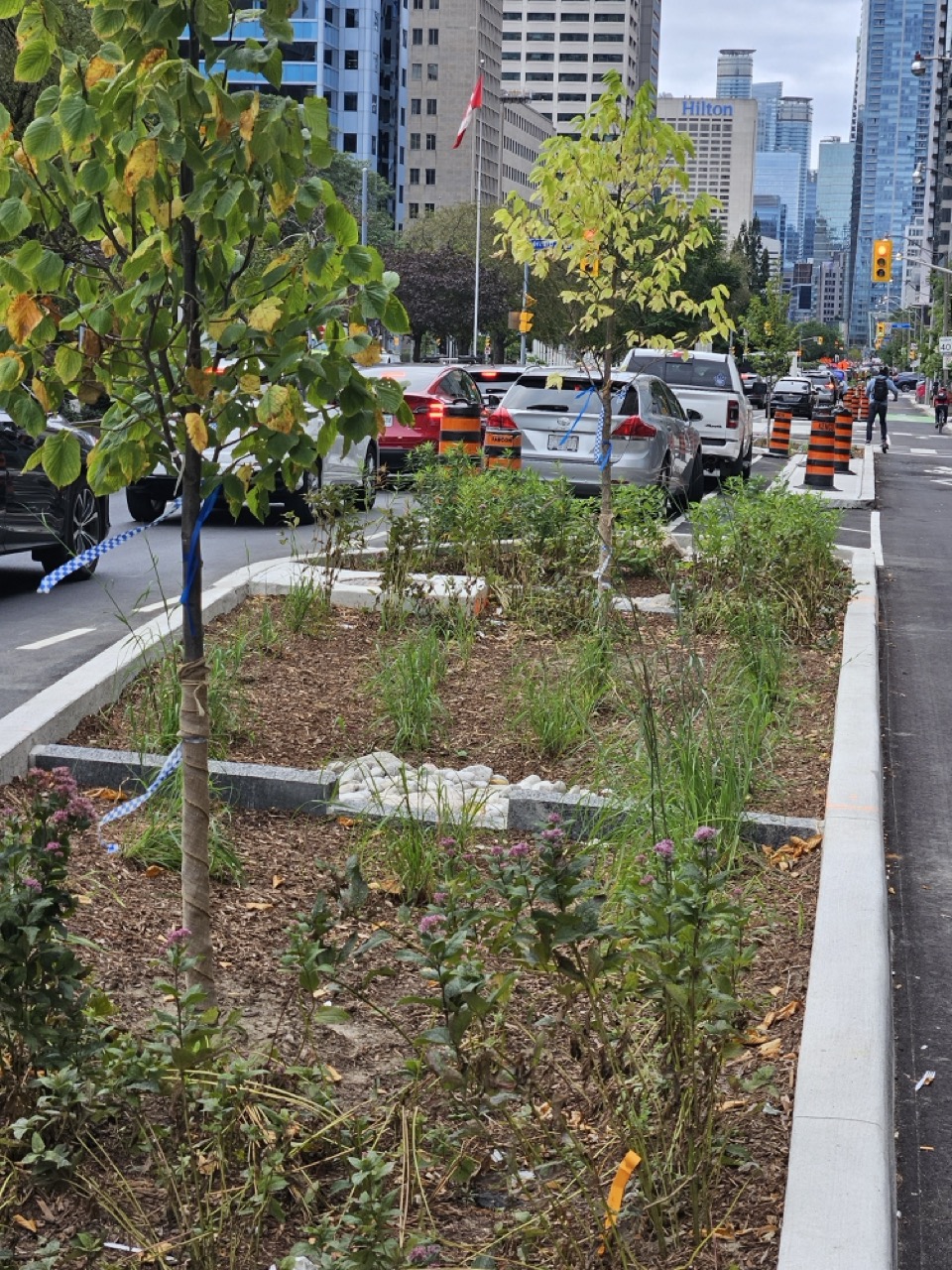
The Montgomery Creek Rehabilitation project showcases municipal leadership in climate adaptation through nature-based stormwater management that reduces localized flood risks and improves downstream water quality. Moving beyond traditional grey infrastructure, this innovative rehabilitation slows and manages water on-site, addressing both quantity and pollutant load challenges.
In addition to achieving key stormwater objectives, the project delivered multiple co-benefits including enhanced biodiversity, upgraded trail connectivity, and inviting green spaces that foster community well-being and recreation. This holistic approach sets a new standard for sustainable urban water management with lasting environmental and social impact.
For more information:
https://www.engagewr.ca/montgomerycreek
https://reepgreen.ca/events/montgomery-creek-community-planting-open-house/
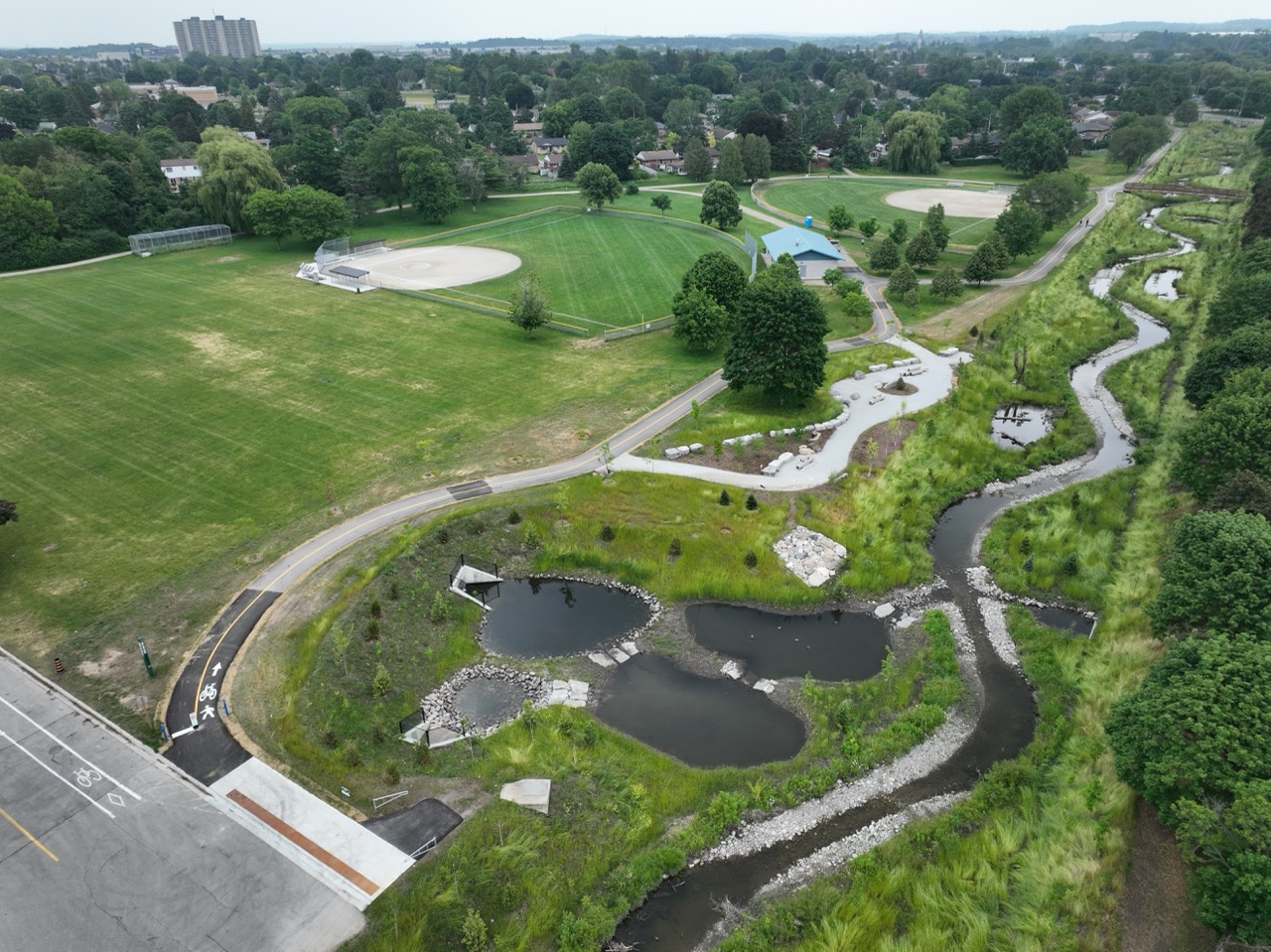
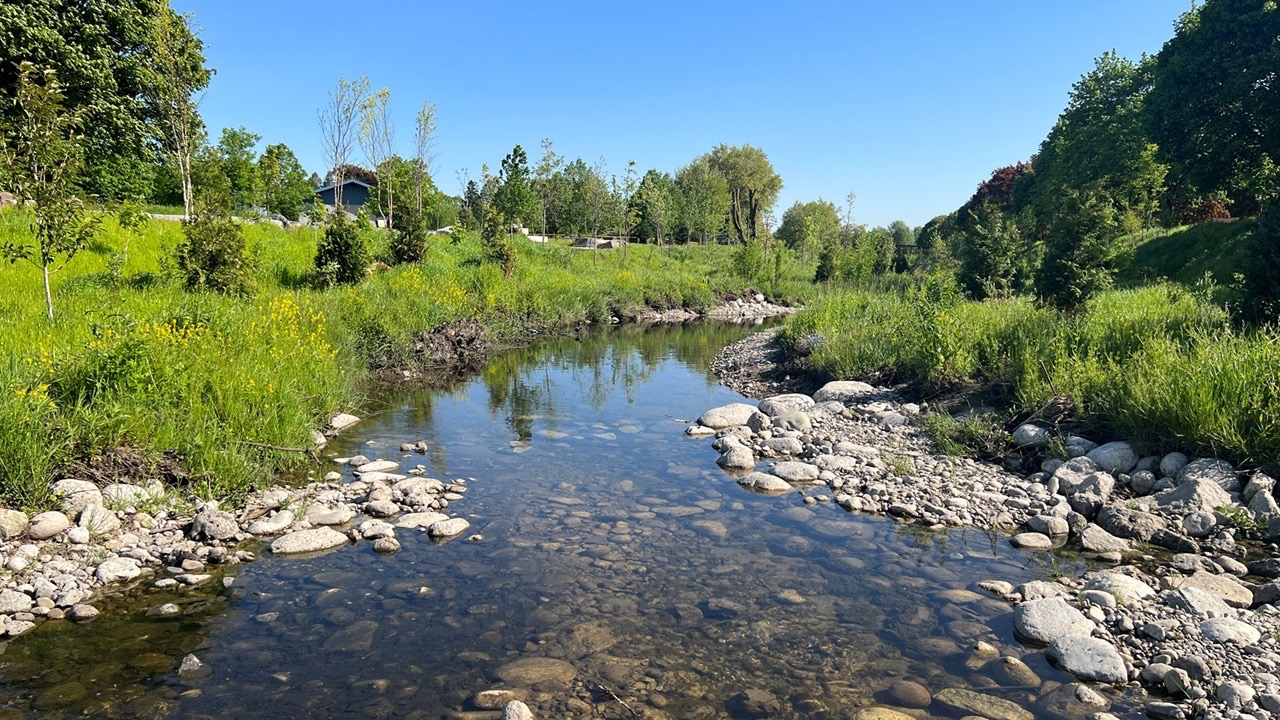
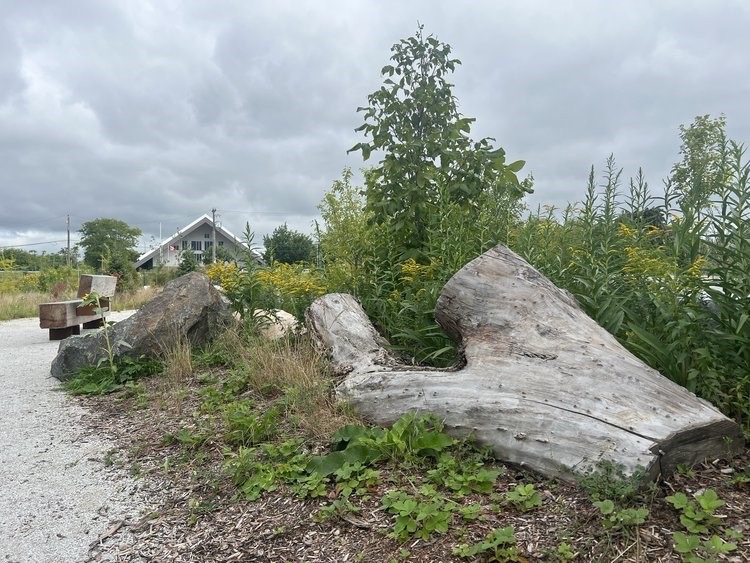
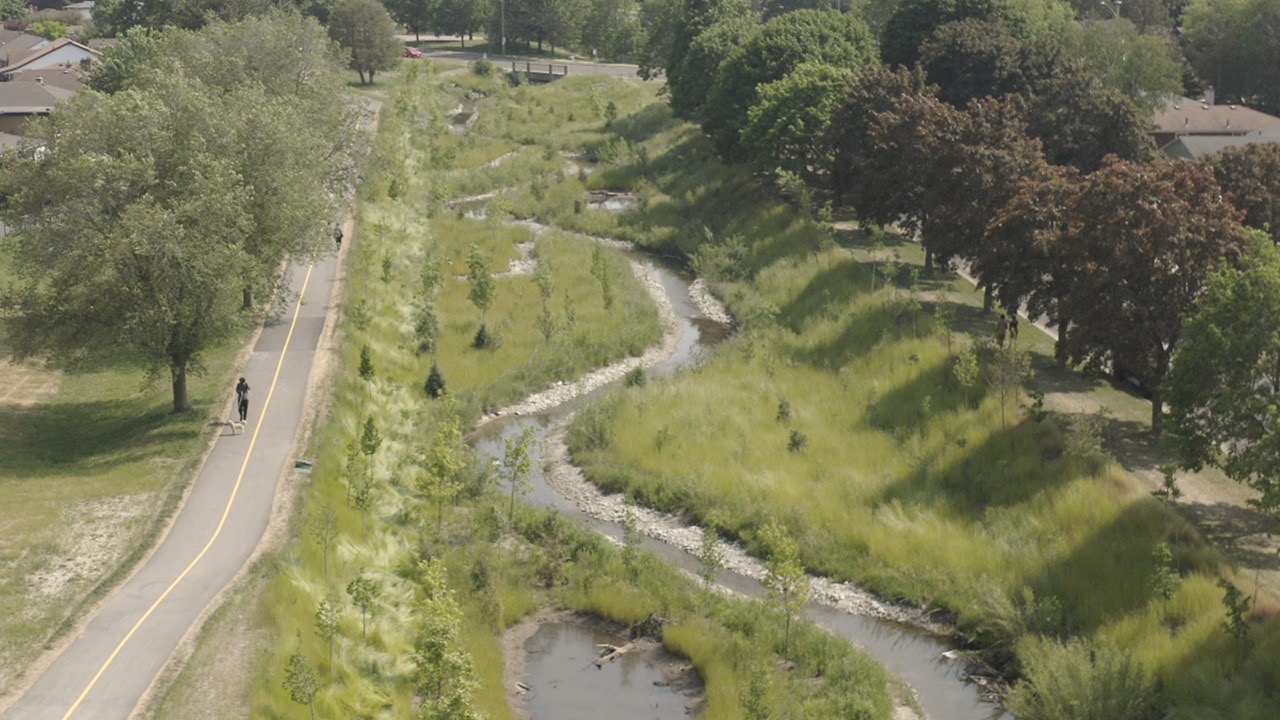
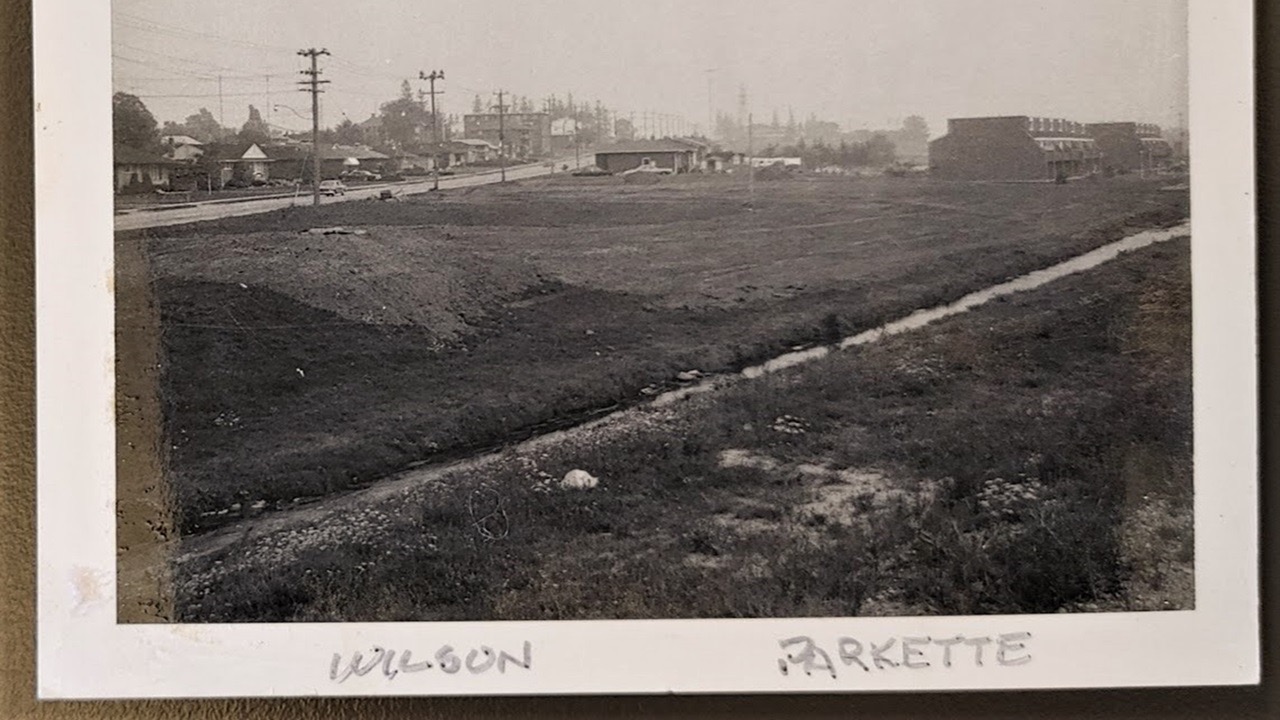
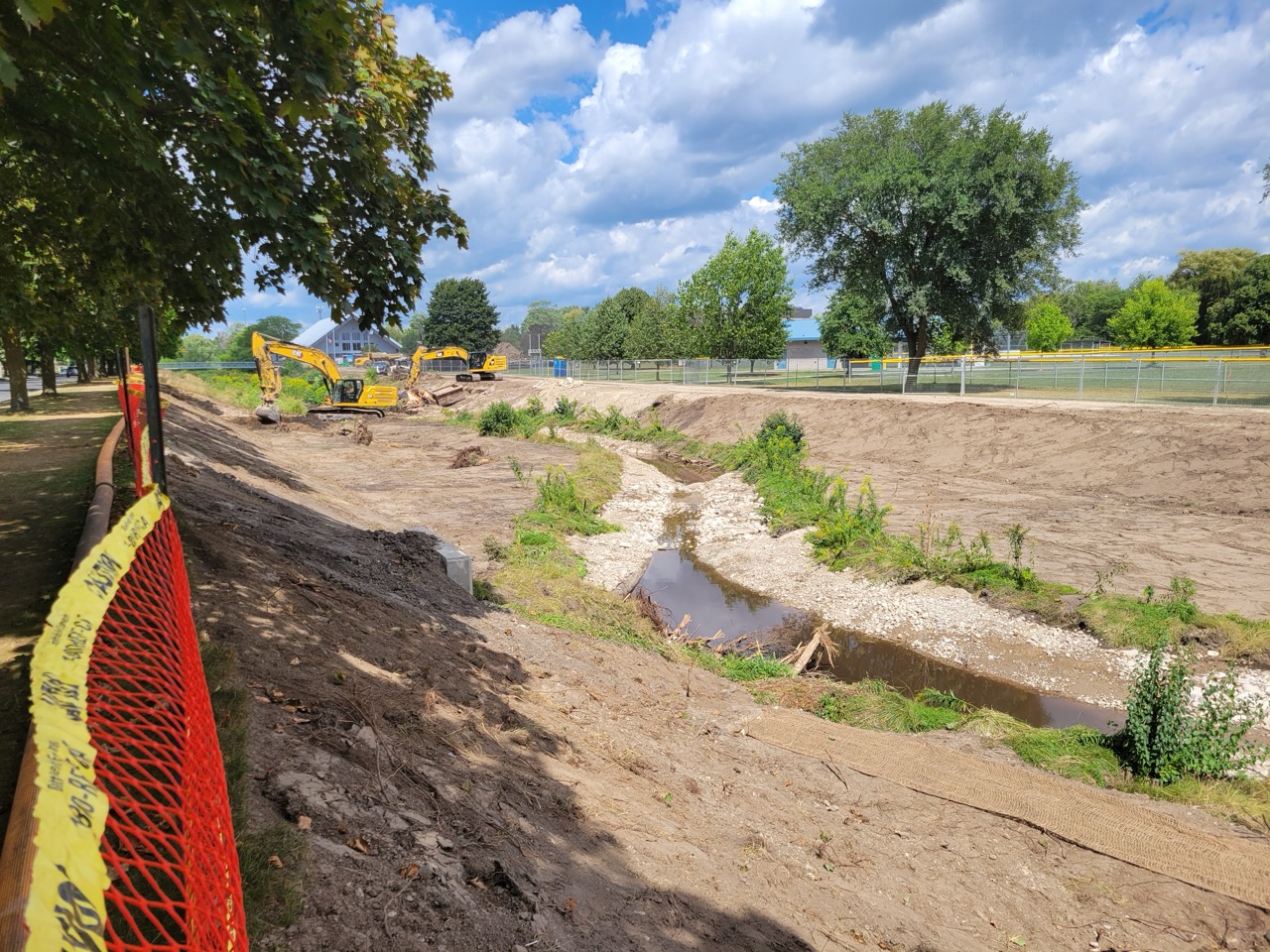
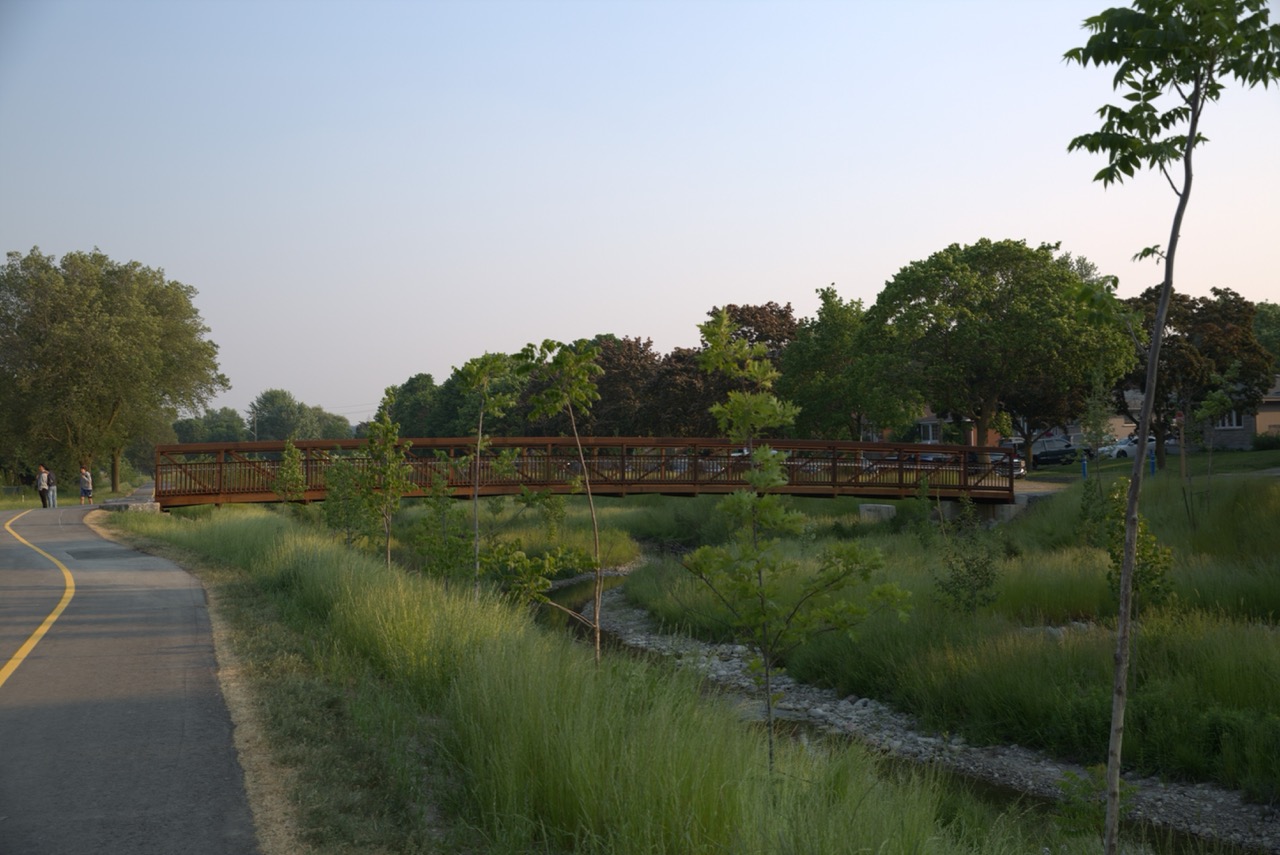
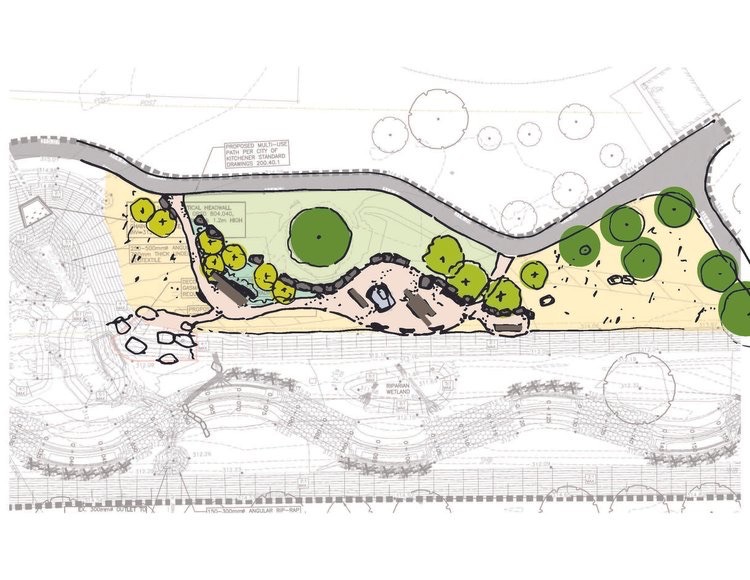
The Villa Park SWM Shield project is an implementation of a novel but simple technology for easing maintenance of stormwater management facilities. A SWM Shield uses pre-cast concrete box culverts with grates on top that allow capture of coarser sediments into the quiet sump below. The large devices are placed at the inlets of stormwater management (SWM) ponds, within the forebay area. It is a Canadian innovation, with Canadian patent on the SWM Shield granted in 2021. The City of Vaughan installed the Villa Park SWM Shield with the intention of reducing long-term maintenance costs and improving stormwater quality.
For more information:
SWM Shield Performance Assessment
SWM Shield™ Performance Assessment and Evaluation



Conservation: Large Project Award
This award recognizes a large-scale conservation project that manages or improves over two hectares (approximately 5 acres) of watershed and exemplifies exceptional stewardship and environmental responsibility in the Canadian water sector.
Pollution Probe is driving innovation in Canada’s water sector through the Great Lakes Plastic Cleanup as the first organization in the country to deploy a BeBot, beach cleaning robot, and as an early adopter of the PixieDrone, a water-based, remote-controlled drone that collects floating debris.
These innovative plastic capture technologies not only improve the efficiency and effectiveness of plastic removal from the largest freshwater system in the world but also serve as powerful tools to collect critical data, empower communities to take hands-on action, and raise awareness of local environmental challenges. By integrating advanced technologies into on-the-ground cleanup efforts, Pollution Probe is demonstrating a strong commitment to innovation, cross-sector partnership, and the development of a cleaner, more resilient water sector in Canada.
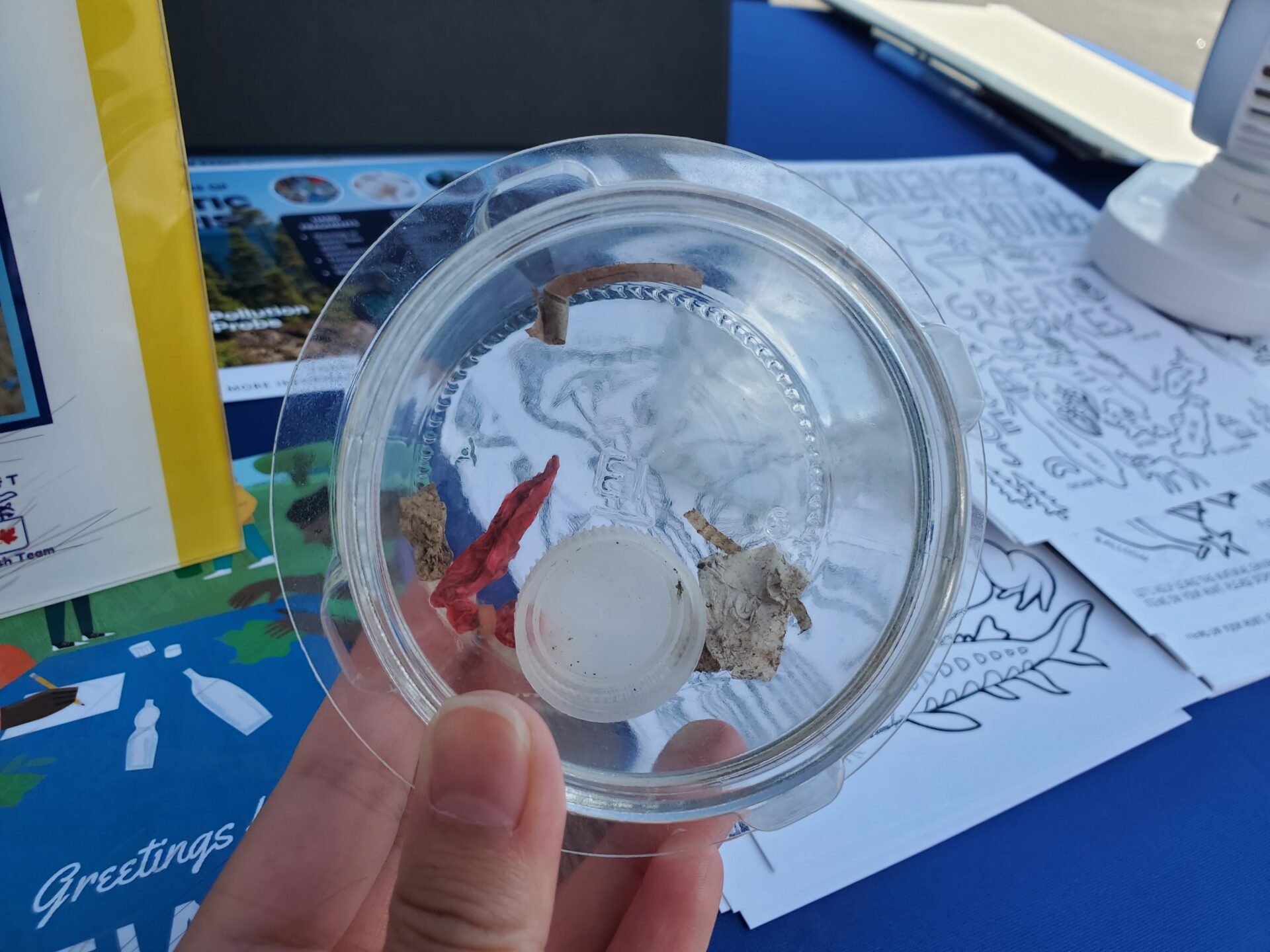
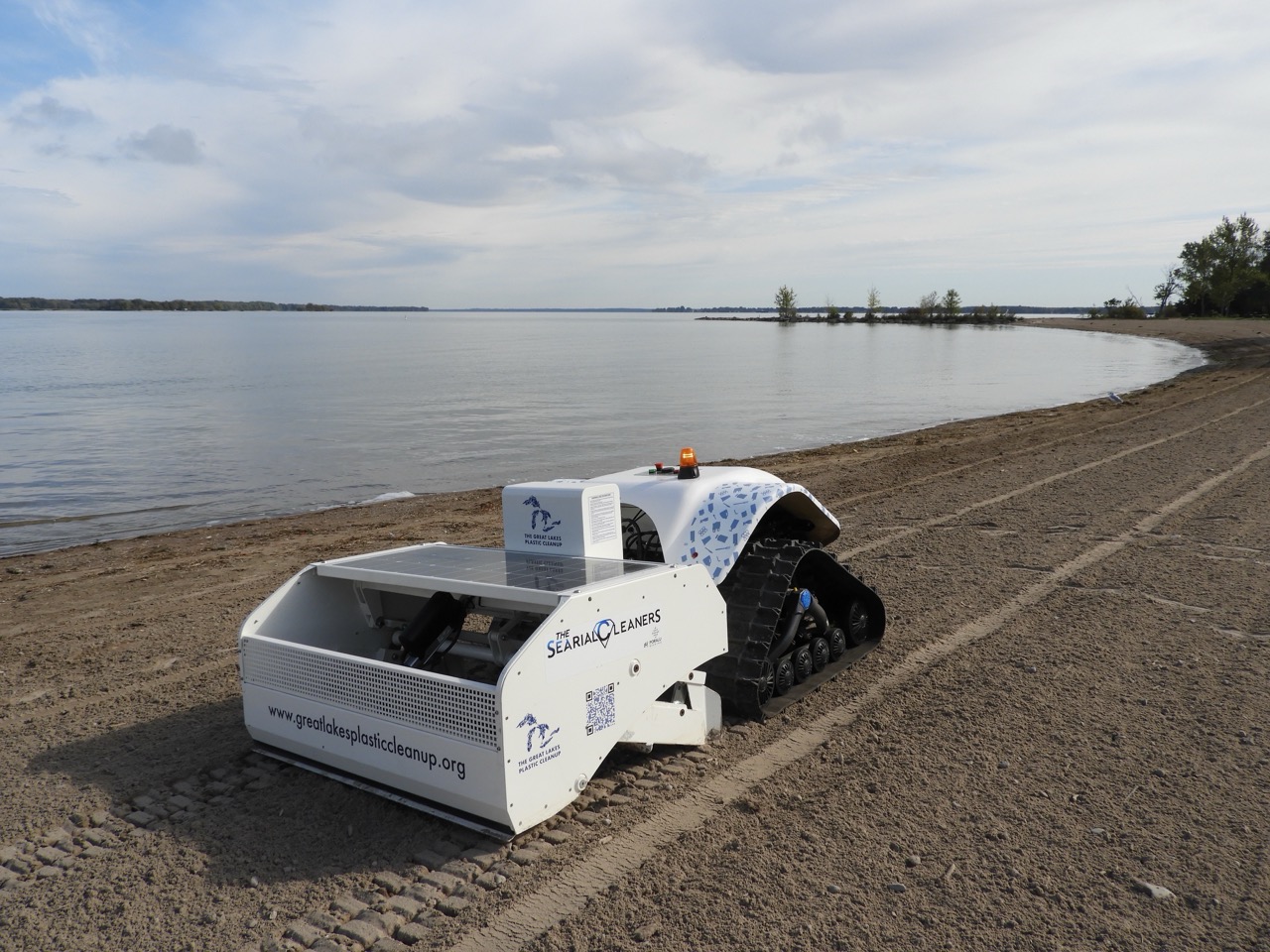

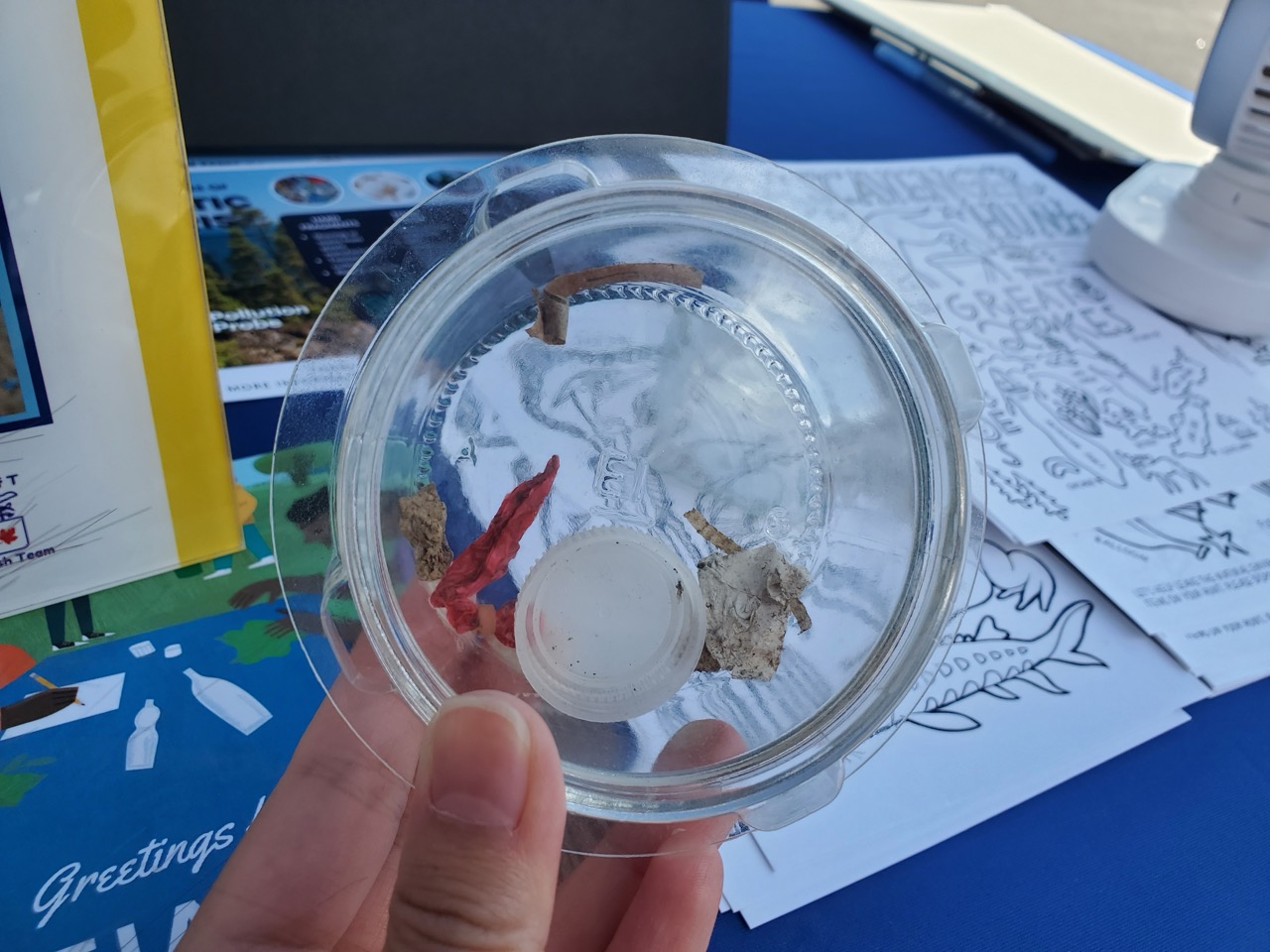
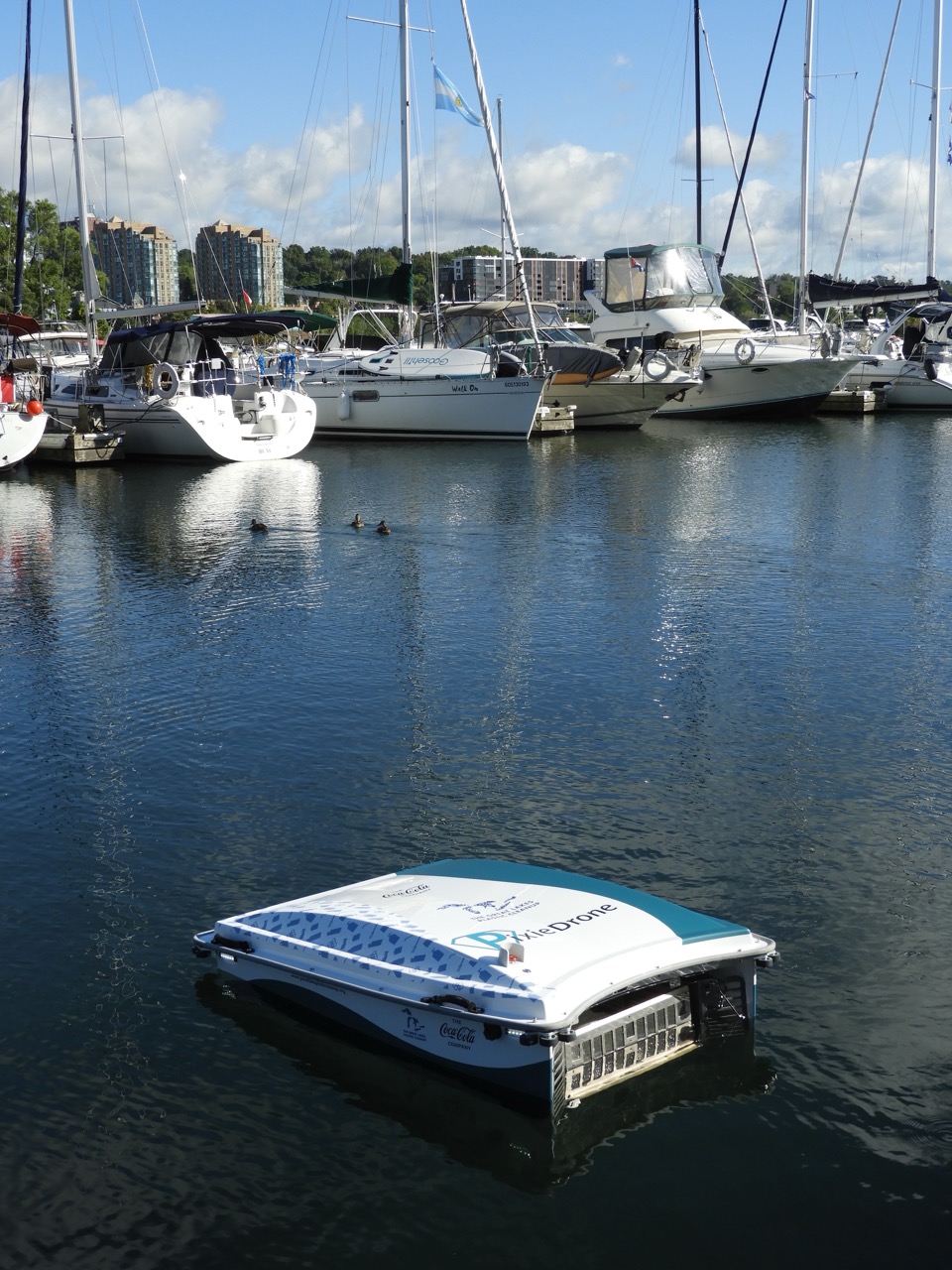
Launched in 2022, the LakeWatchers program exemplifies innovative community-driven conservation by monitoring water quality across nearly 80 Halifax lakes. Combining rigorous scientific sampling with volunteer engagement, it empowers residents to actively protect and understand their local water ecosystems.
The program’s expanding scope and data-driven insights support targeted environmental management and long-term stewardship, fostering stronger connections between communities and their natural surroundings. LakeWatchers stands as a model for scalable, technology-enabled lake conservation efforts with lasting regional impact.
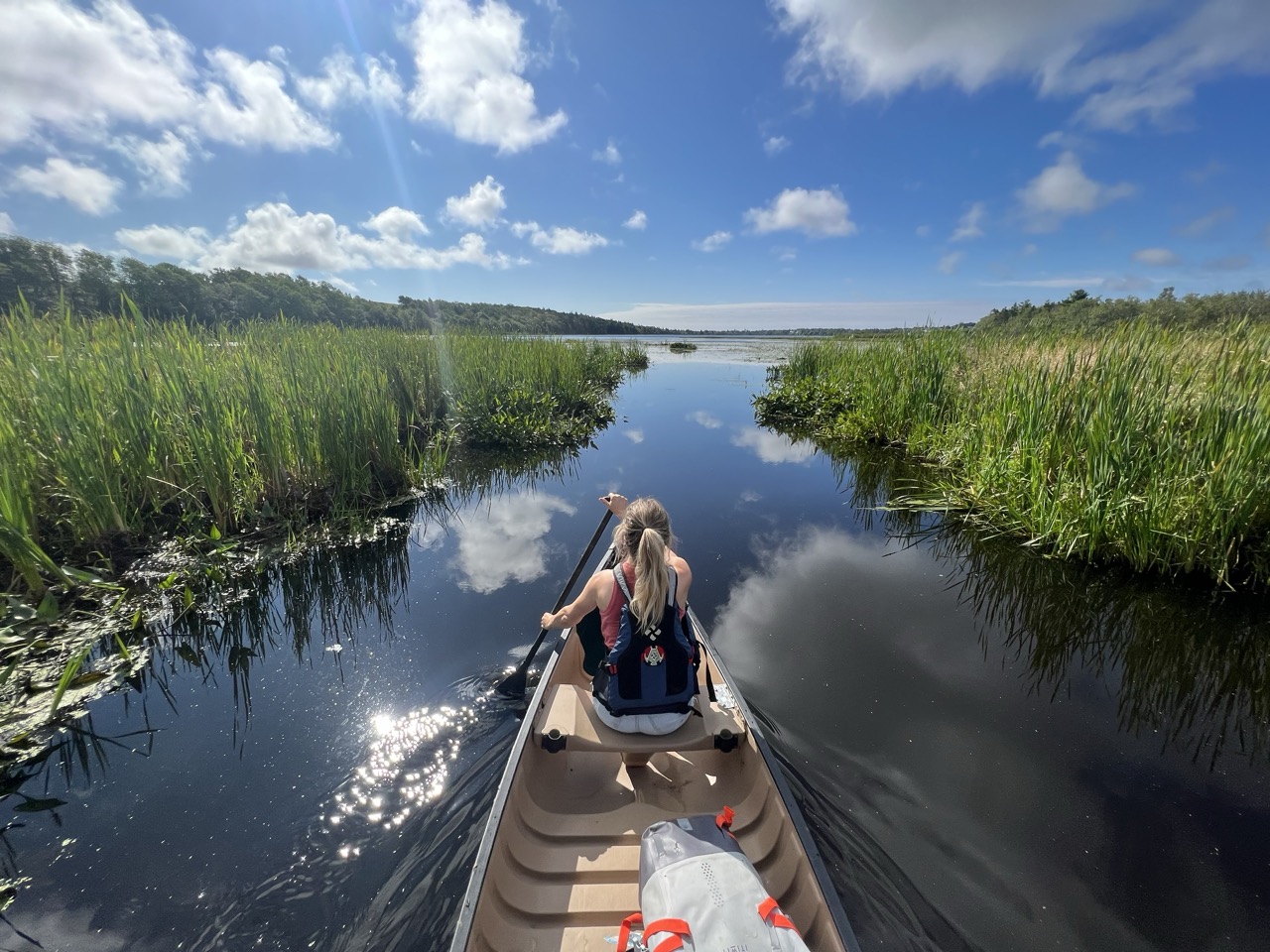
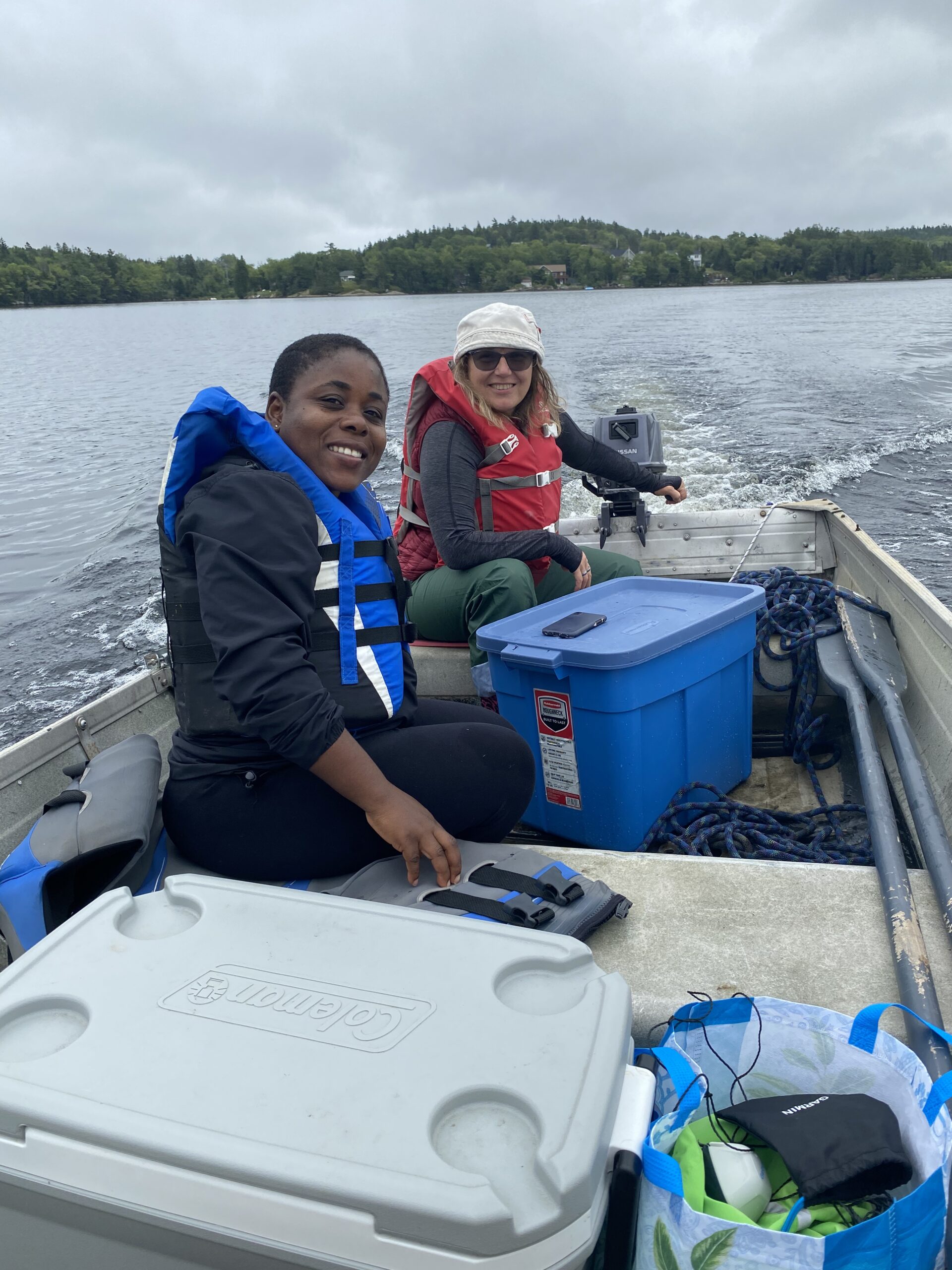
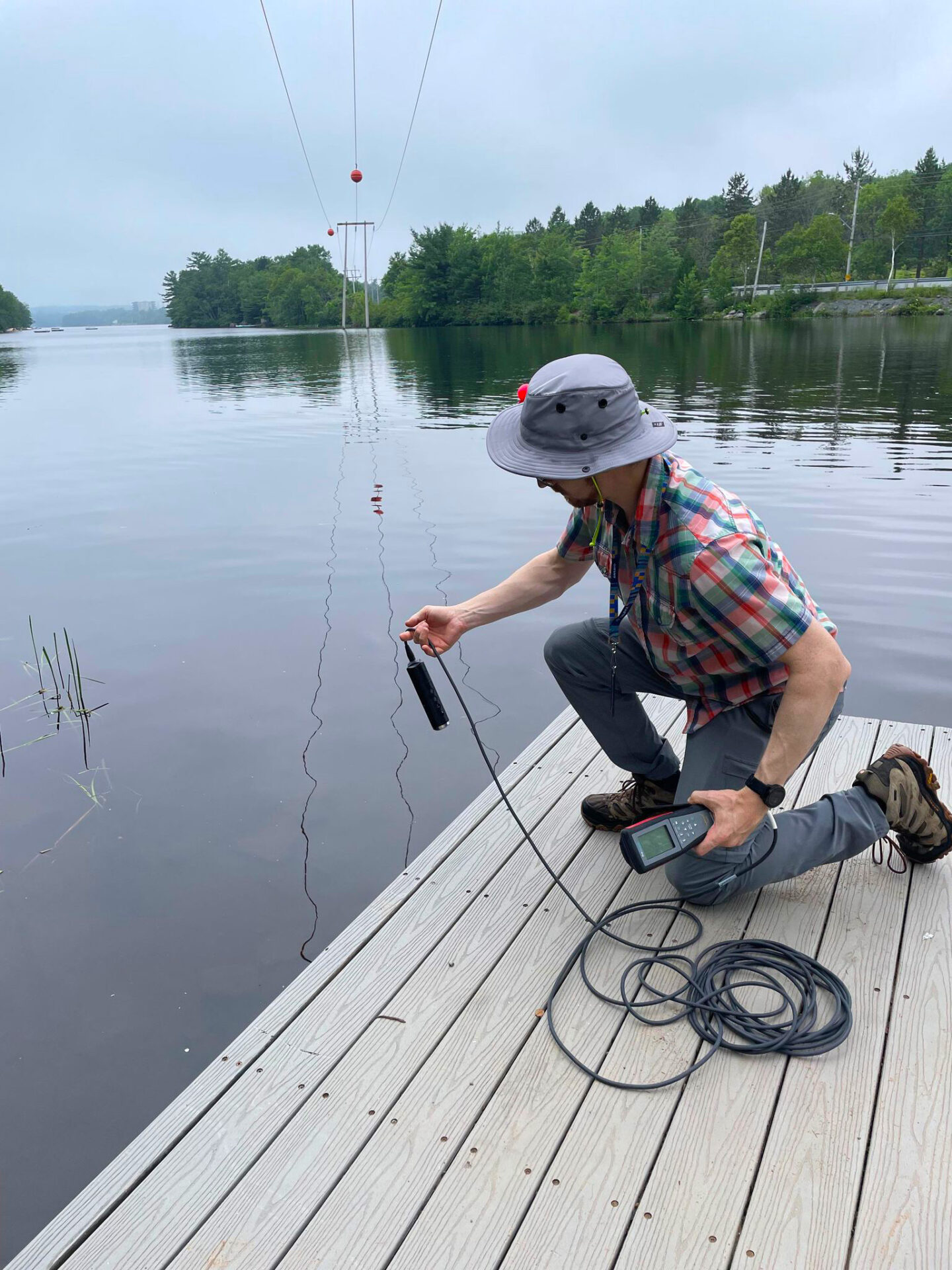
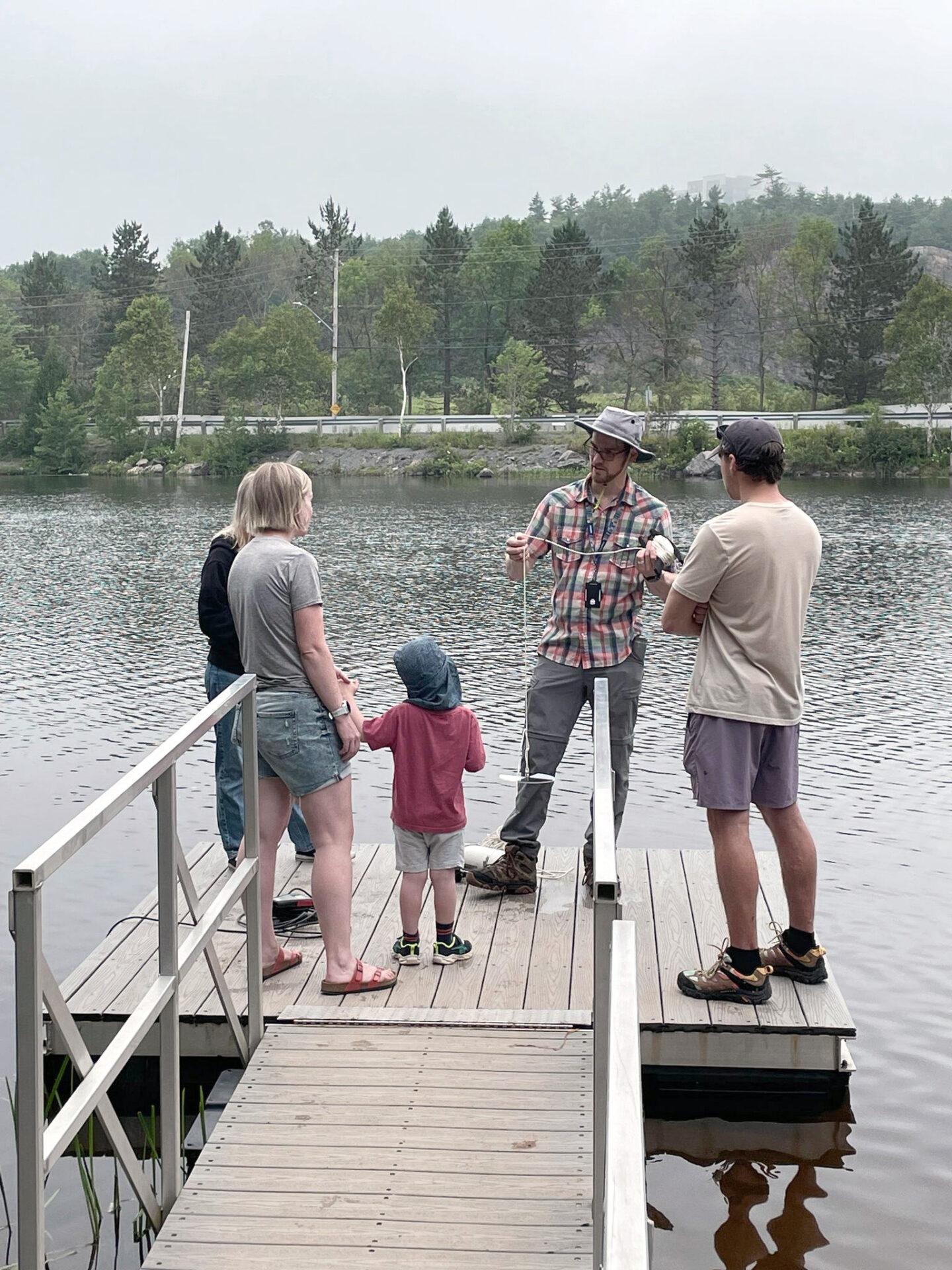
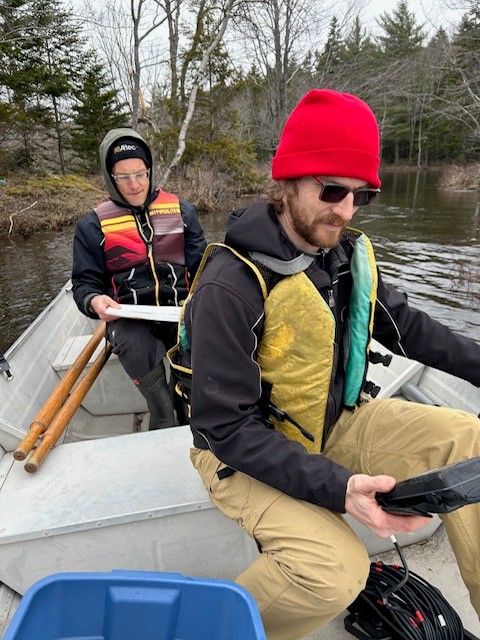
The Lizard Lake Rebuild exemplifies visionary conservation through over 40 years of large-scale watershed restoration and habitat stewardship across 2,100+ acres of wetlands and blackflood habitat in southern Manitoba. The 2025 rebuild of a six-kilometre earthen ring dyke showcases innovative, durable water management solutions that protect vital ecosystems from erosion and extreme weather.
Balancing environmental protection with agricultural productivity, the project supports diverse waterfowl populations and engages local landowners in a collaborative stewardship model. Its multifunctional approach to land use, education, and conservation offers a replicable blueprint that advances Canada’s water and biodiversity goals.
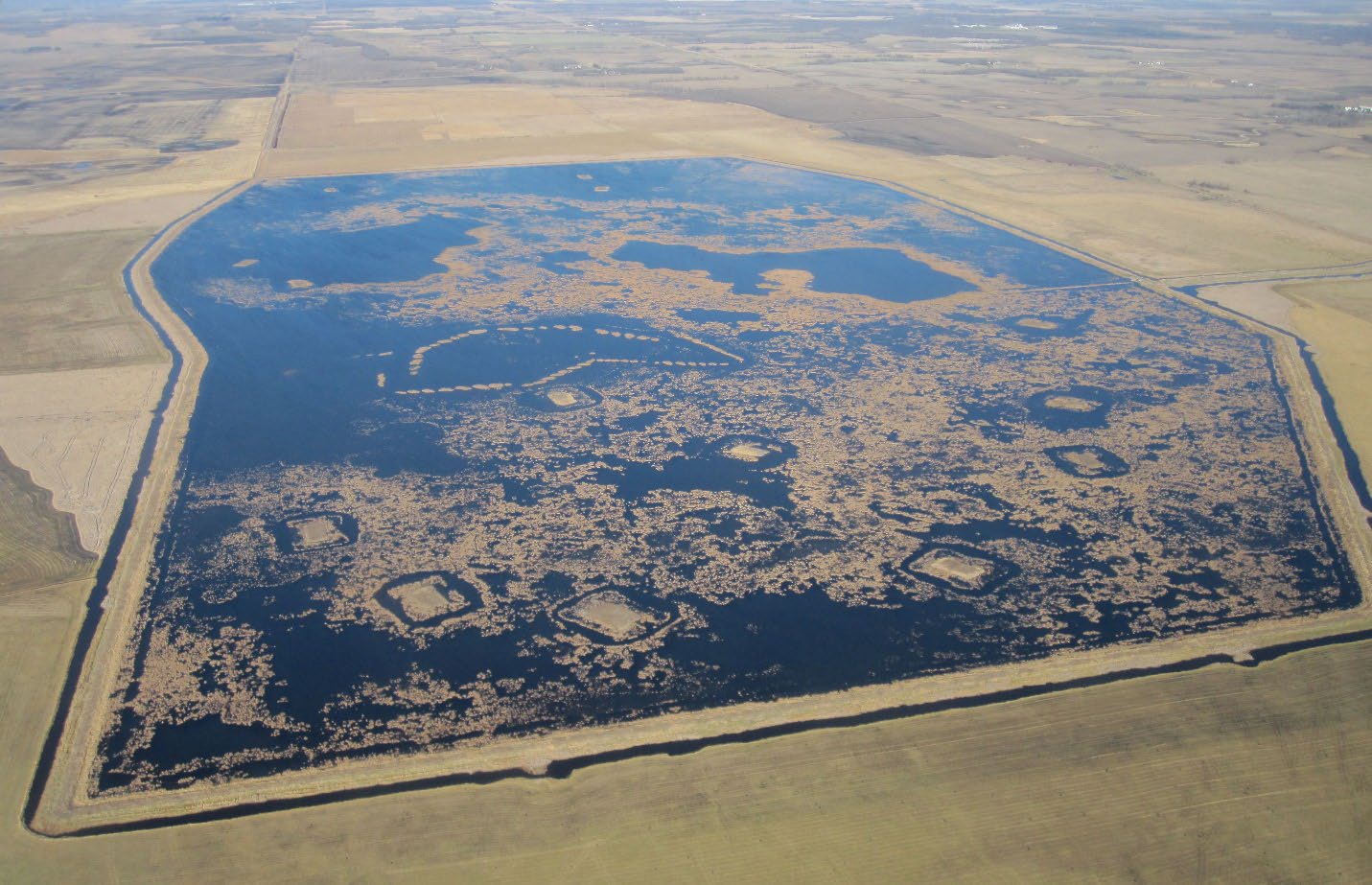
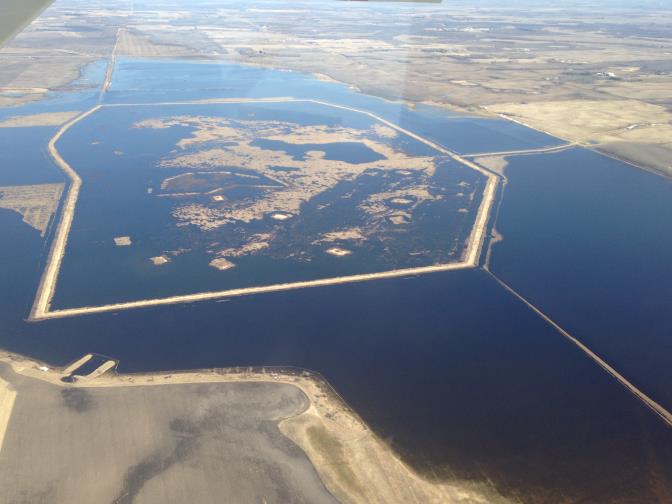
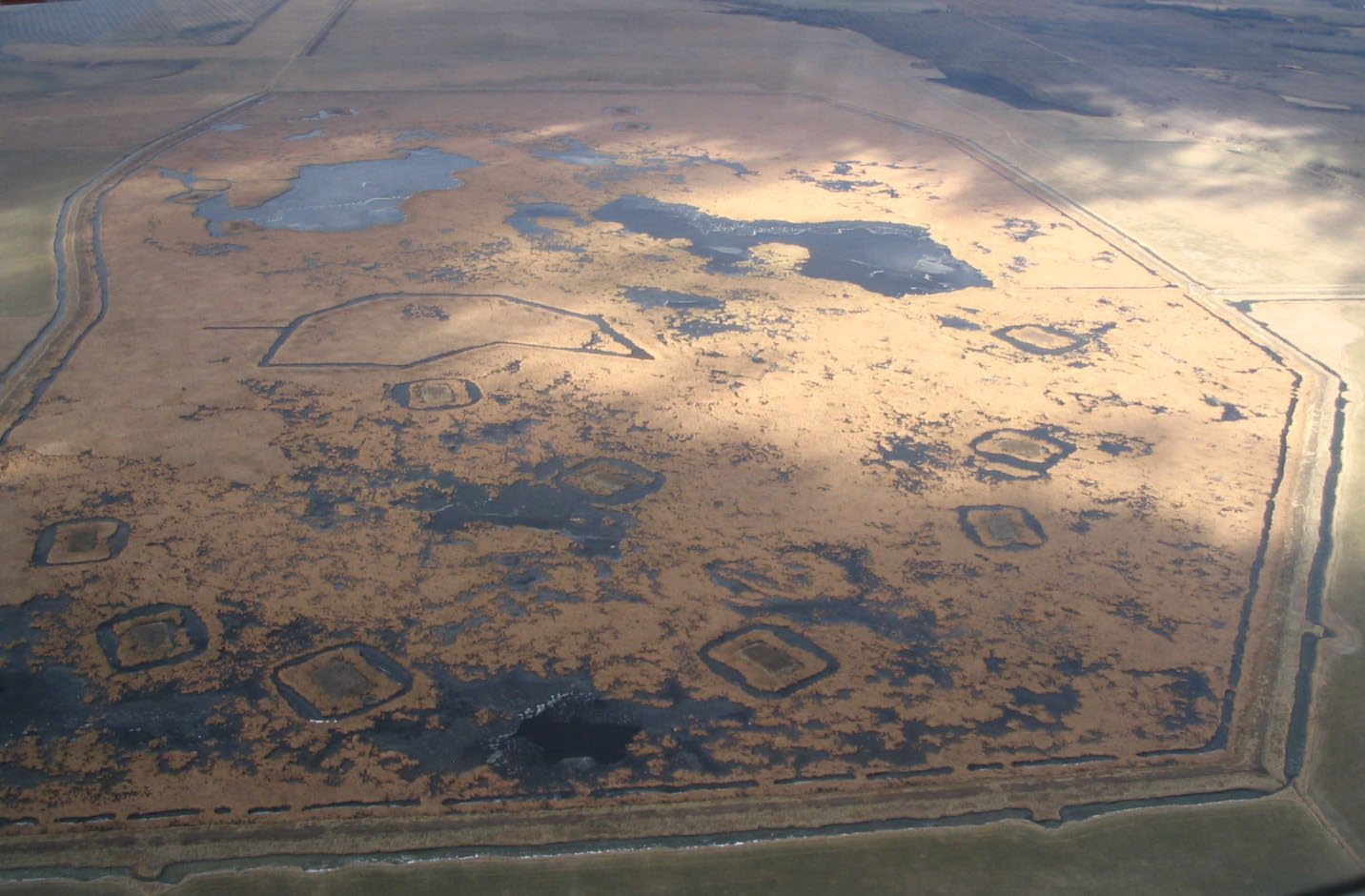
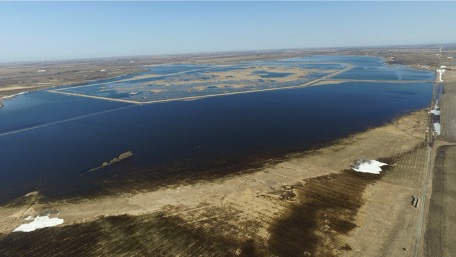
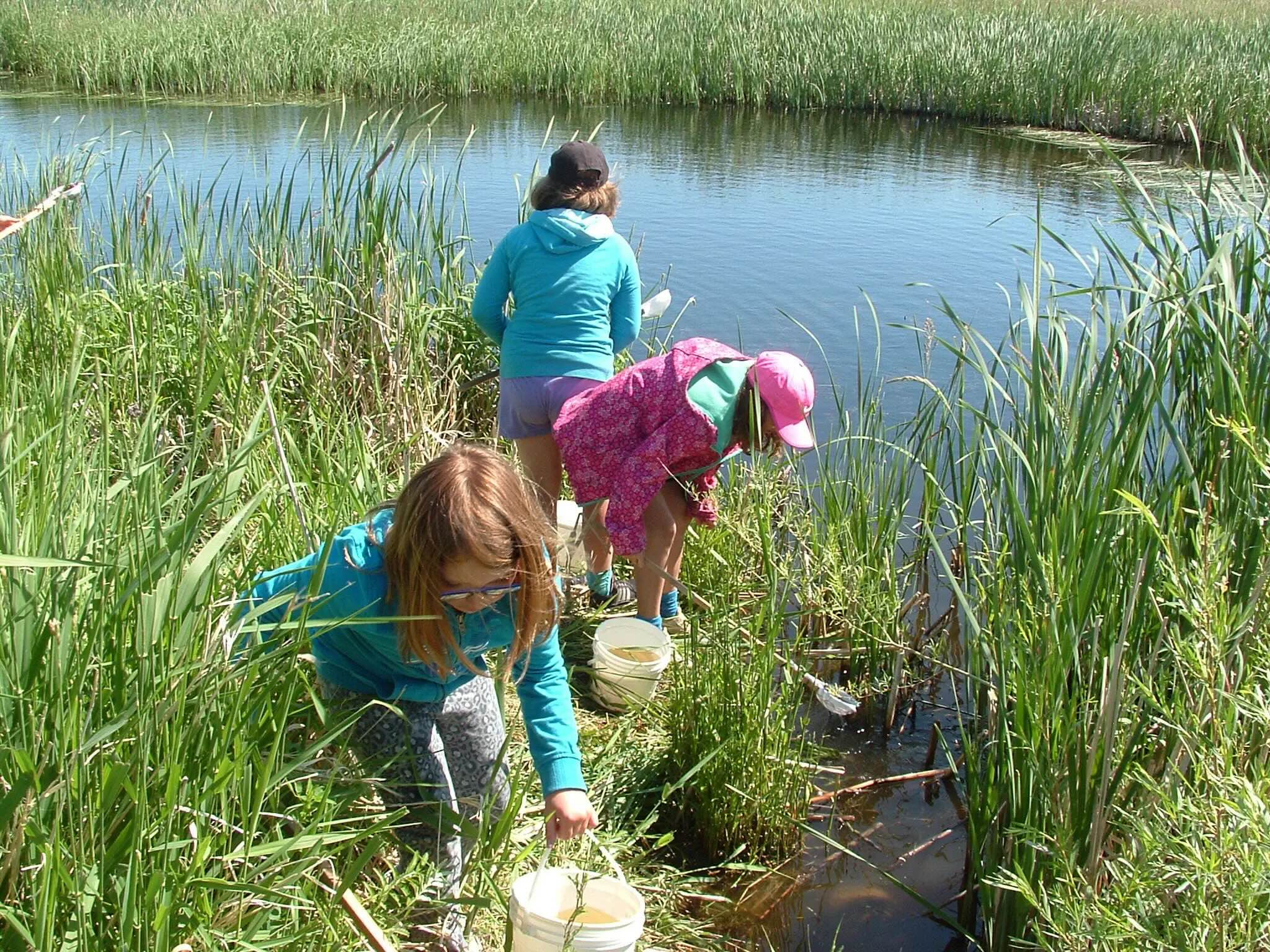
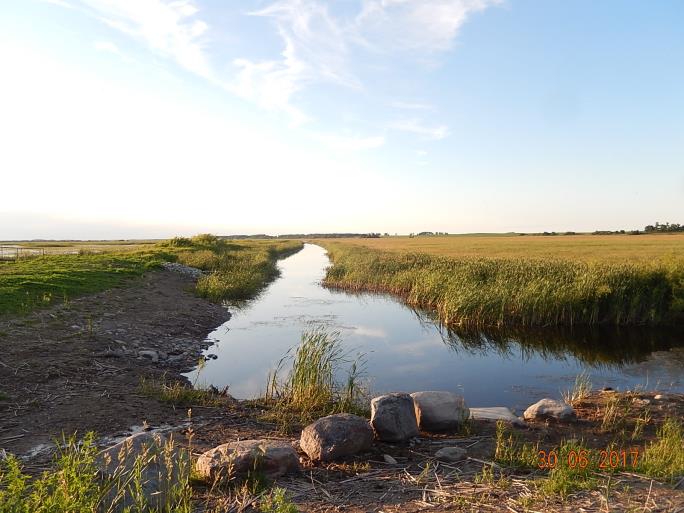
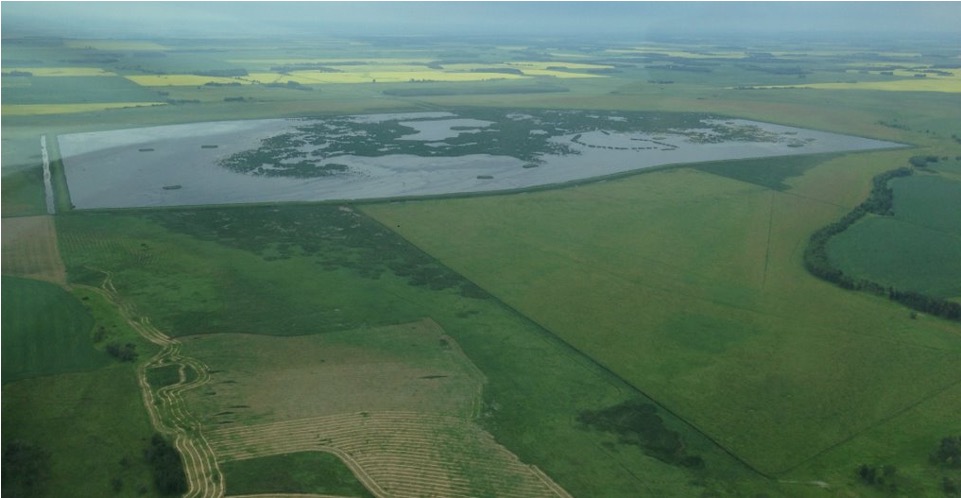
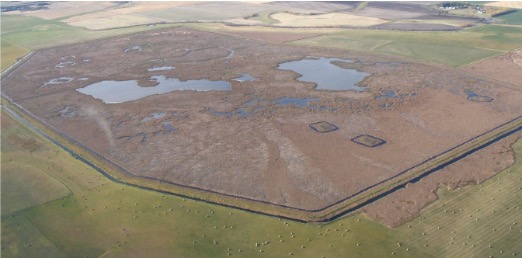
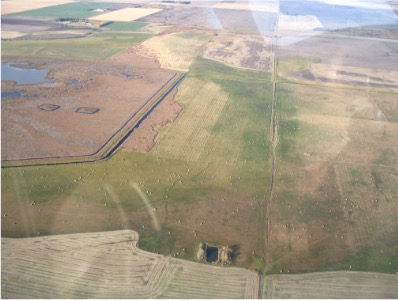
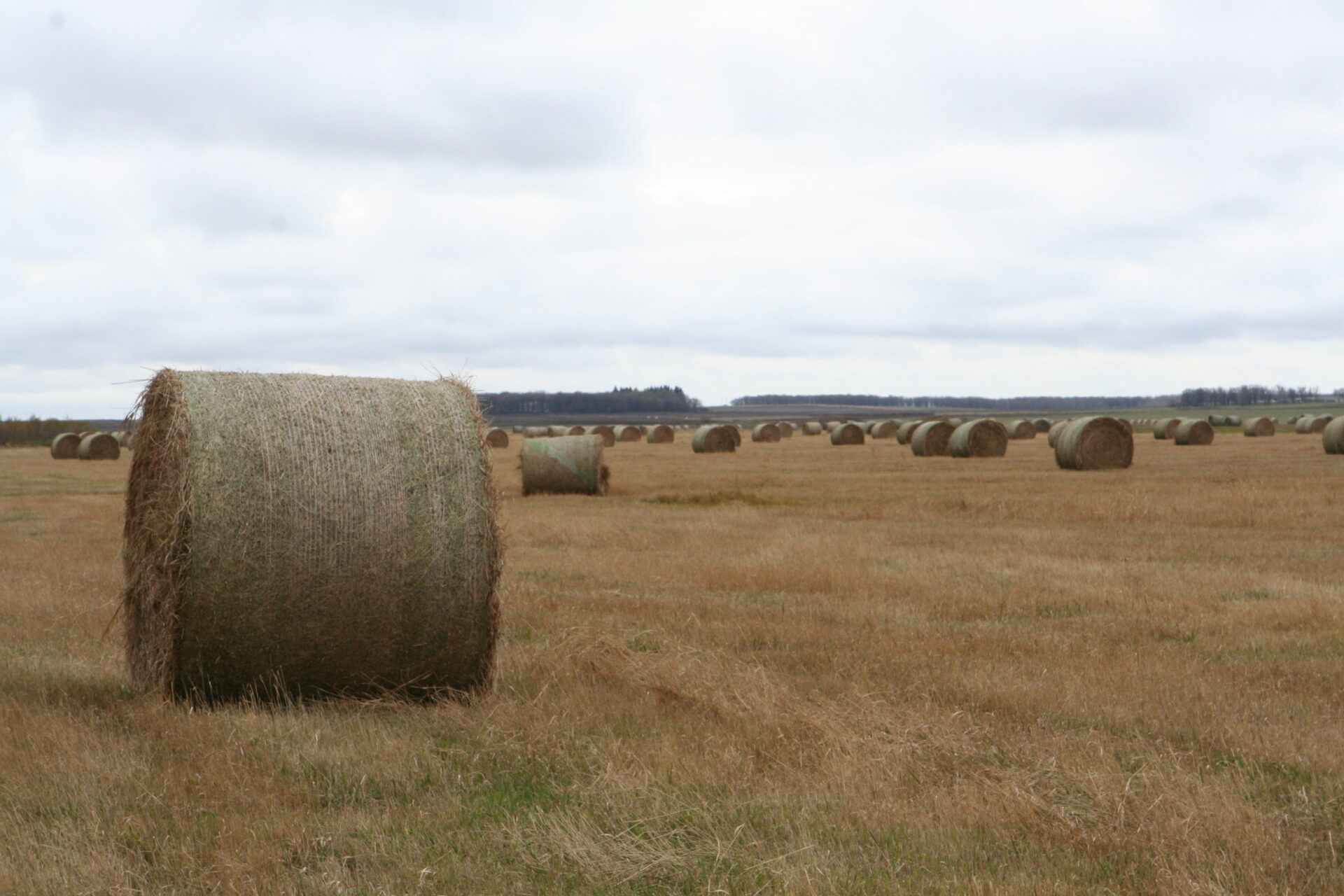
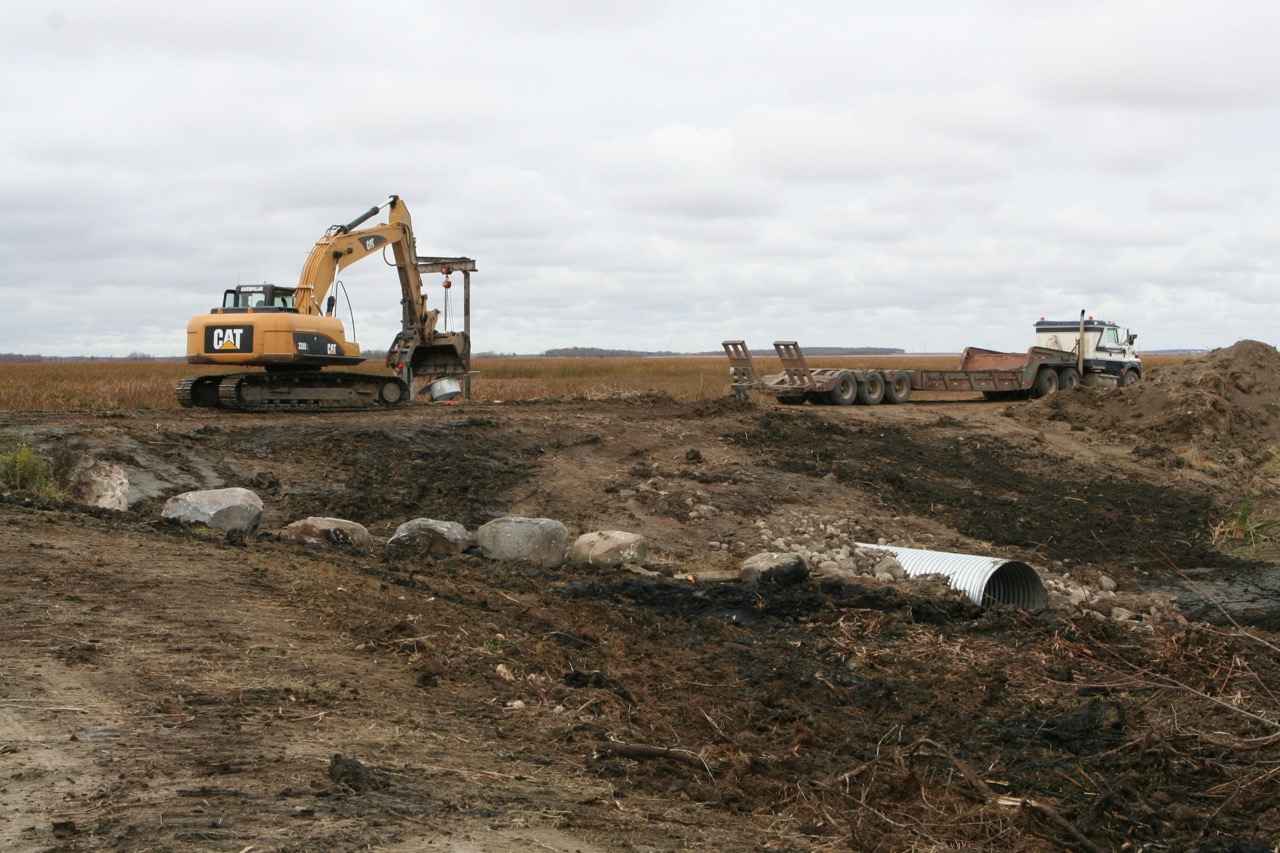
Conservation: Small Project Award
This award honours a small-scale conservation project that manages or improves up to two hectares (approximately five acres) of watershed, showcasing outstanding environmental stewardship in Canada’s water sector.
Saskatchewan faces a critical challenge as the only province in Canada without a wetland conservation policy, resulting in increased nutrient loading and severe algae blooms in the Qu’Appelle River system that negatively affect Regina’s drinking water supply. To address this pressing issue, the Qu’Appelle River Education Program has taken a grassroots approach to foster positive conversations about water stewardship that are deeply rooted in community culture and values.
The CLEM’s 2500 Seedling Challenge program’s success stems from its innovative strategy of engaging directly with the public at parades, festivals, and pow wows, where thousands of people gather each year. By providing free seedling trees—distributed through partnerships with local organizations like SaskPower—the program offers a simple, affordable, and practical solution to protect watersheds and encourage environmental action. It also draws on the United Nations’ 17 Sustainable Development Goals, especially SDG #14, “Life Below Land,” using these global targets as a framework to guide community decision-making and climate resilience efforts.
Through brief but meaningful interactions at culturally significant events, the program builds trust and bridges communication gaps, inspiring hope and collective responsibility for the future health of the Qu’Appelle River system. This grassroots education model is both scalable and adaptable, offering a powerful example of how local communities can lead water conservation initiatives with broad environmental and social benefits.
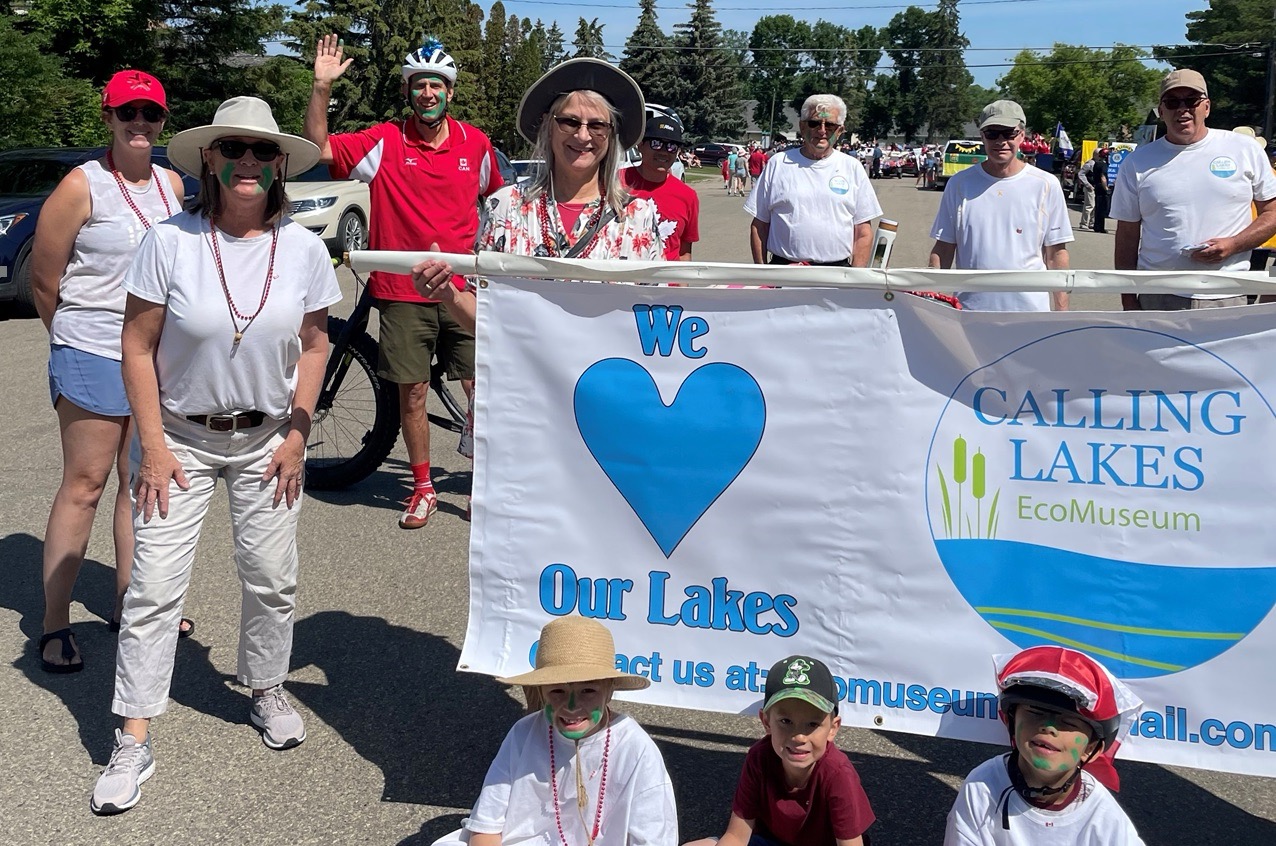
The Town of Aurora’s Devlin Rehabilitation Project addressed critical flooding and erosion risks identified in the 2019 Stream Management Master Plan and Tannery Creek Flood Relief Study, focusing on the Devlin Place area. Key issues included a failed gabion retaining wall, deteriorated storm sewer outfalls, channel degradation, and a culvert prone to backwatering during high flows, which threatened upstream properties. The project restored a severely degraded stormwater management facility by retrofitting the pond into a wetland, installing an oil and grit separator to enhance water quality and reduce maintenance, and using bioengineering techniques such as live fascines and vegetated buttresses to naturalize the corridor. Approximately 90 trees were removed and replaced with over 250 new trees and 1,000 shrubs, improving both environmental resilience and flood control in the community.
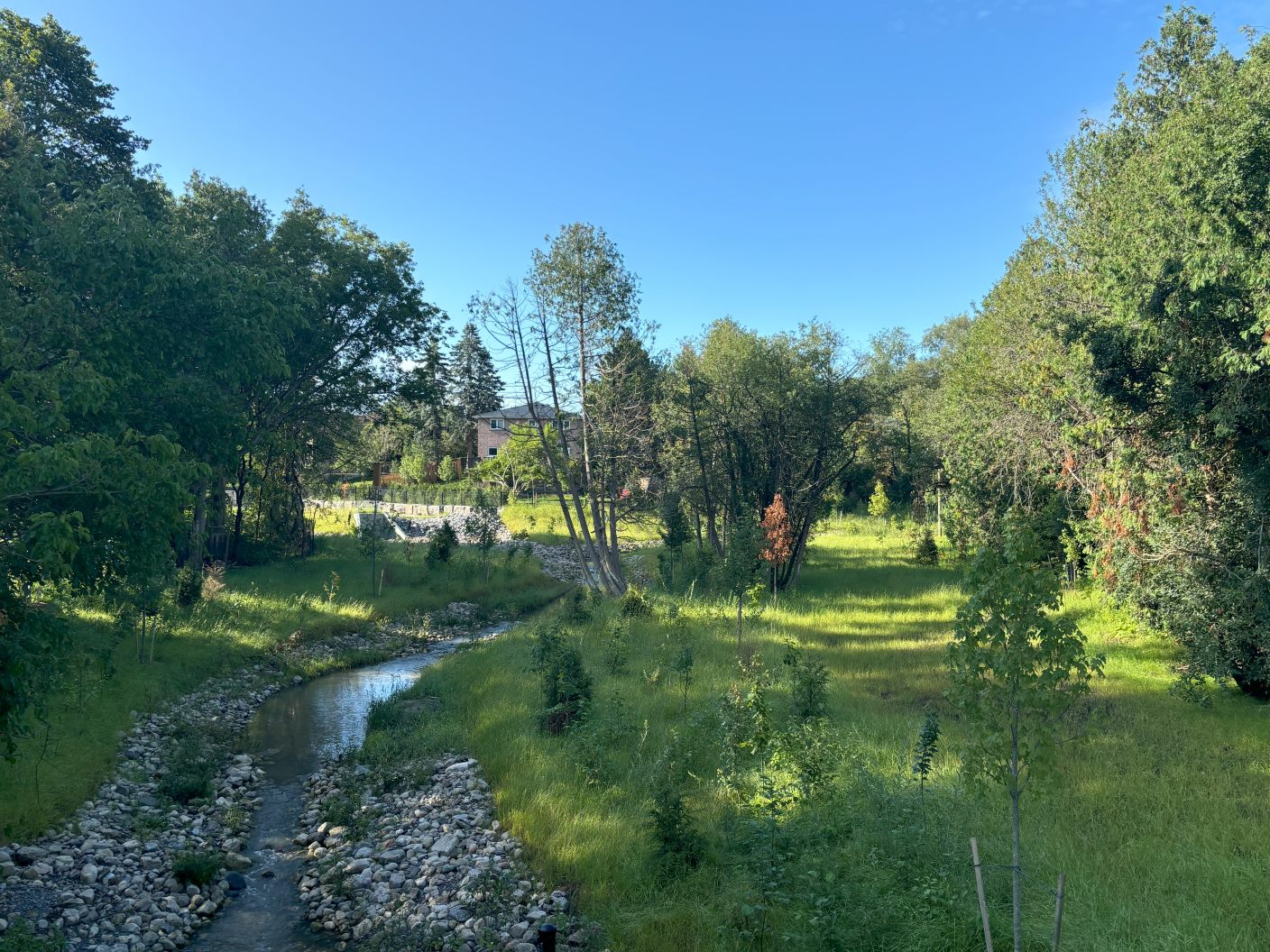
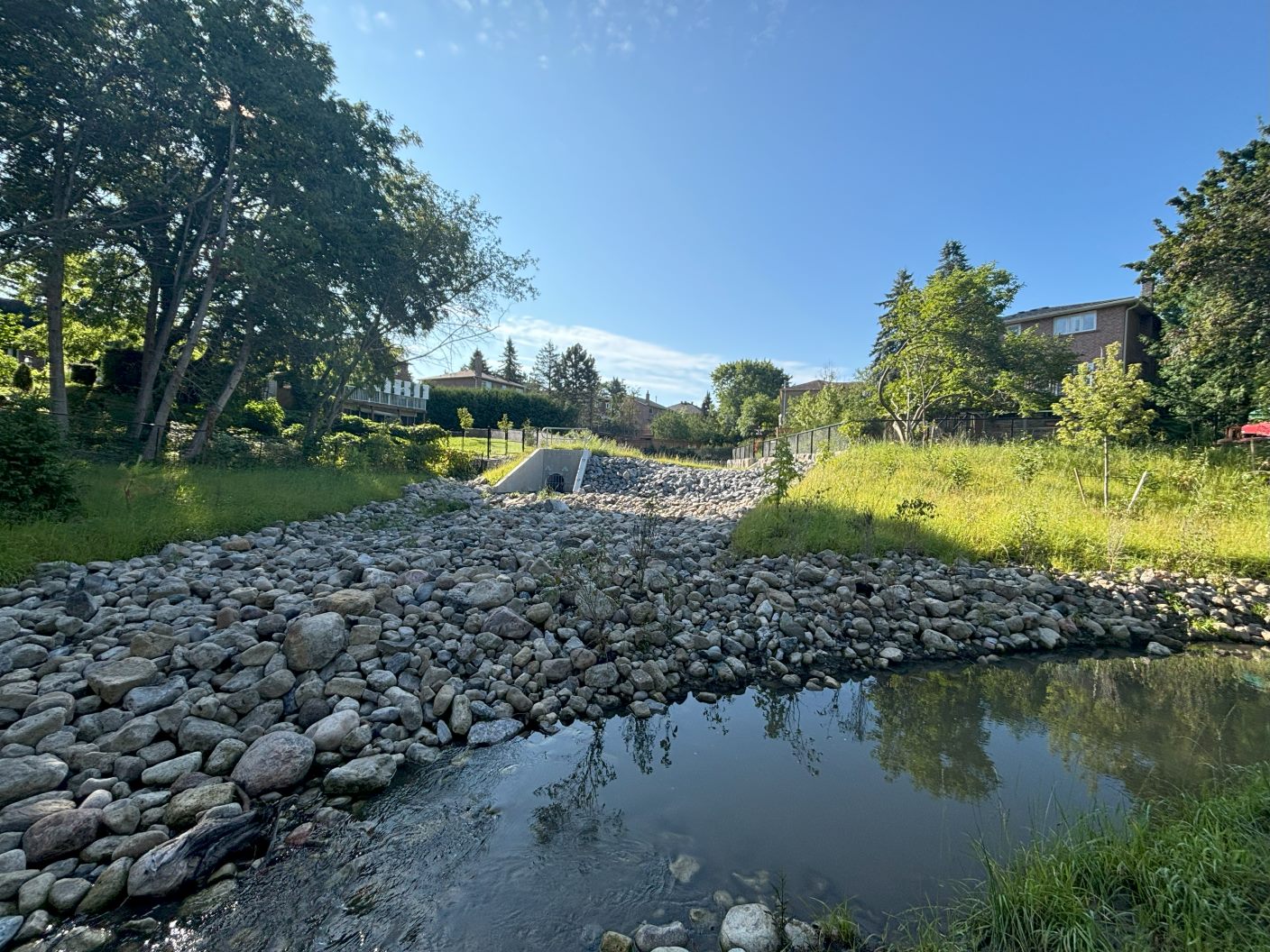
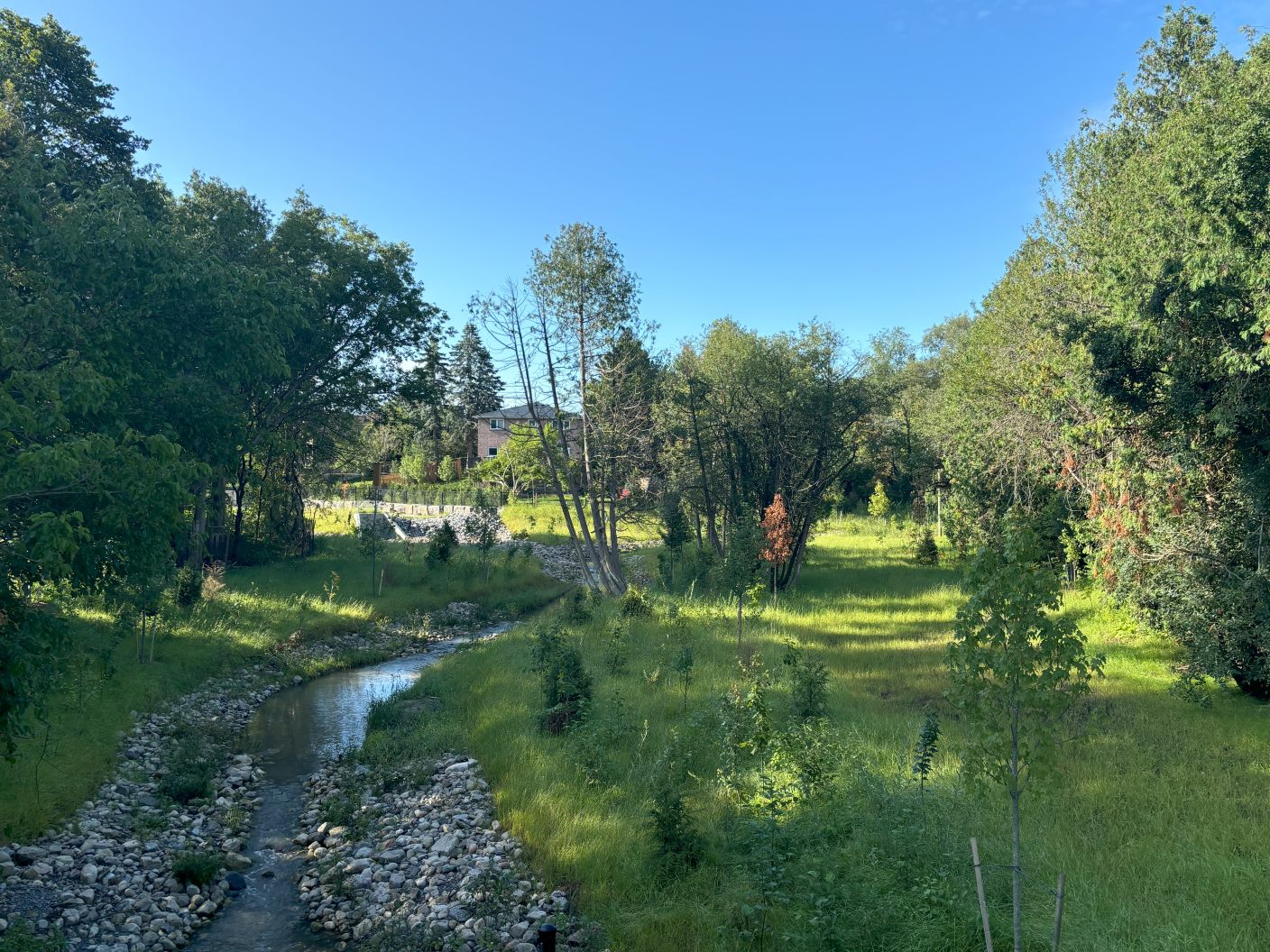
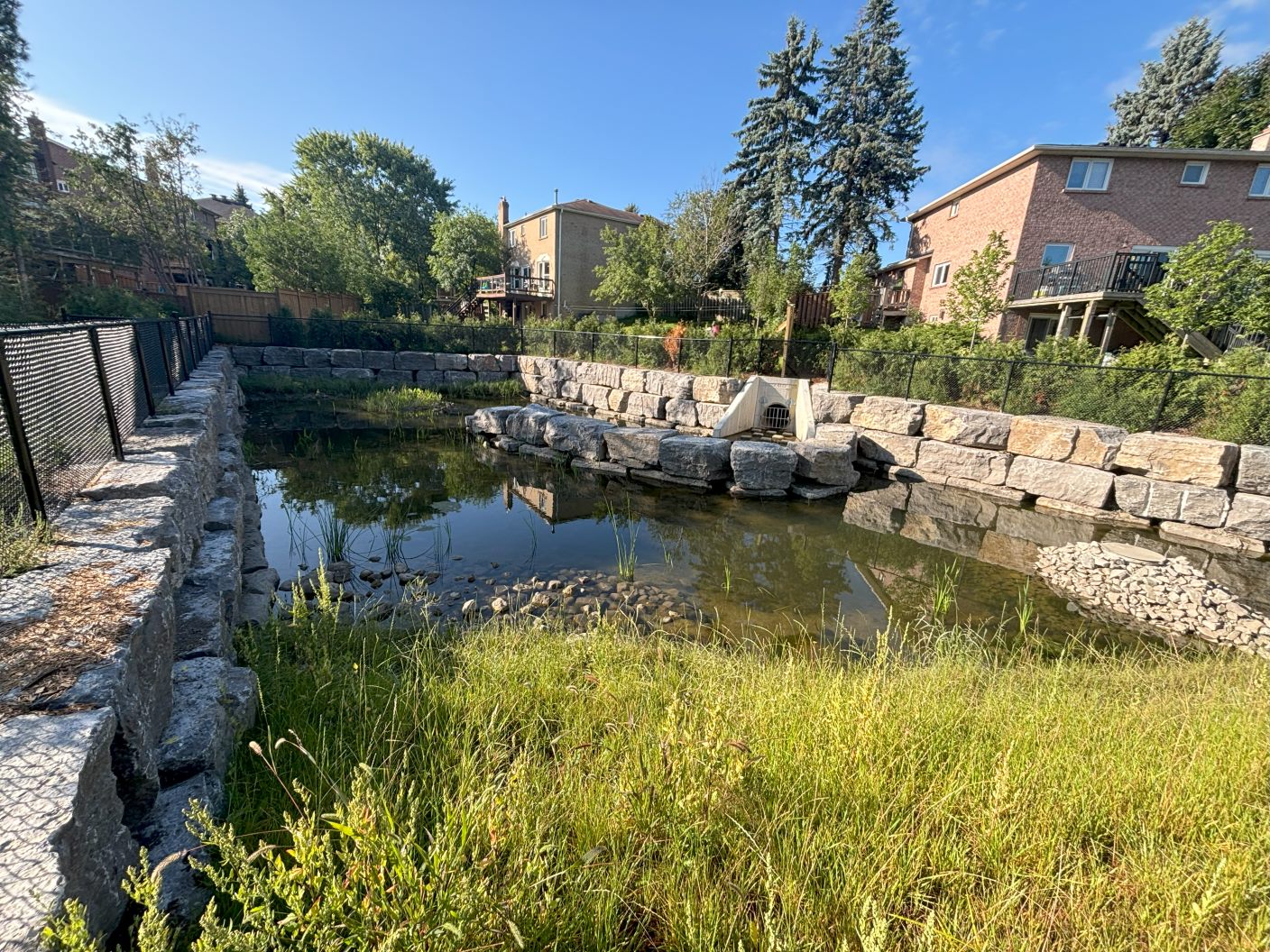
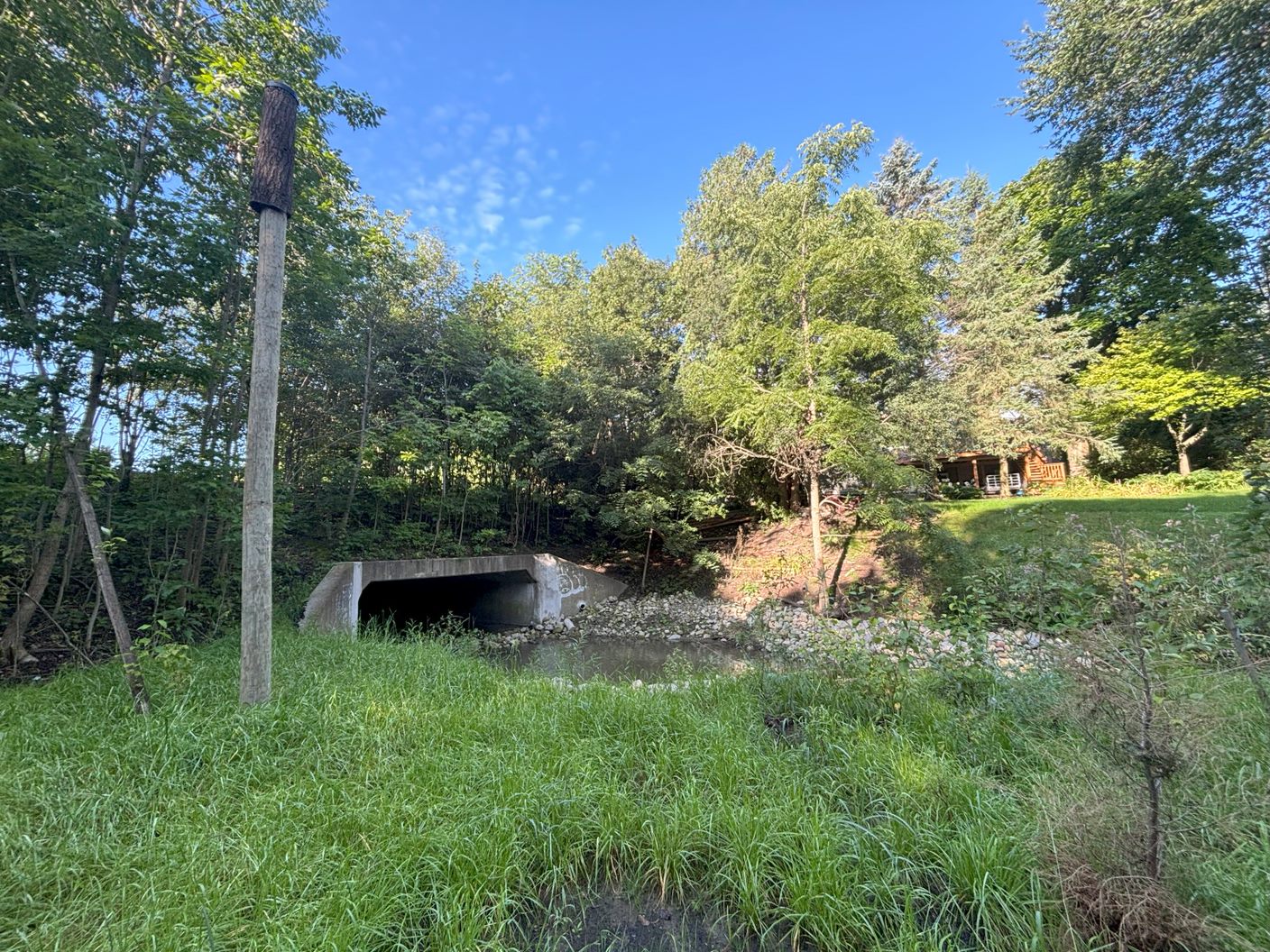
Watersheds Canada’s winter fish habitat restoration projects turn thick ice from a barrier into a valuable asset. On February 6, 2025, a dedicated team of 16 volunteers from Big Clear Lake Association, Shabot Obaadjiwan First Nation, and G.E. Matson and Sons Construction gathered on the frozen surface of Big Clear Lake, Ontario, to distribute 17 tonnes of washed river rock directly over a walleye spawning bed. By placing the substrate on the ice, it settles perfectly onto the spawning grounds when the ice melts, providing an ideal habitat for native walleye to reproduce.
This innovative approach not only benefits fish populations but also fosters deep connections among participants. Chief Doreen Davis of Shabot Obaadjiwan First Nation reflected on the day as a meaningful experience of community and shared stewardship, emphasizing the responsibility to care for the species and the land.
Supported by local partners and funded through the Government of Canada’s Environmental Damages Fund, this project exemplifies collaborative conservation that nurtures both ecosystems and relationships.
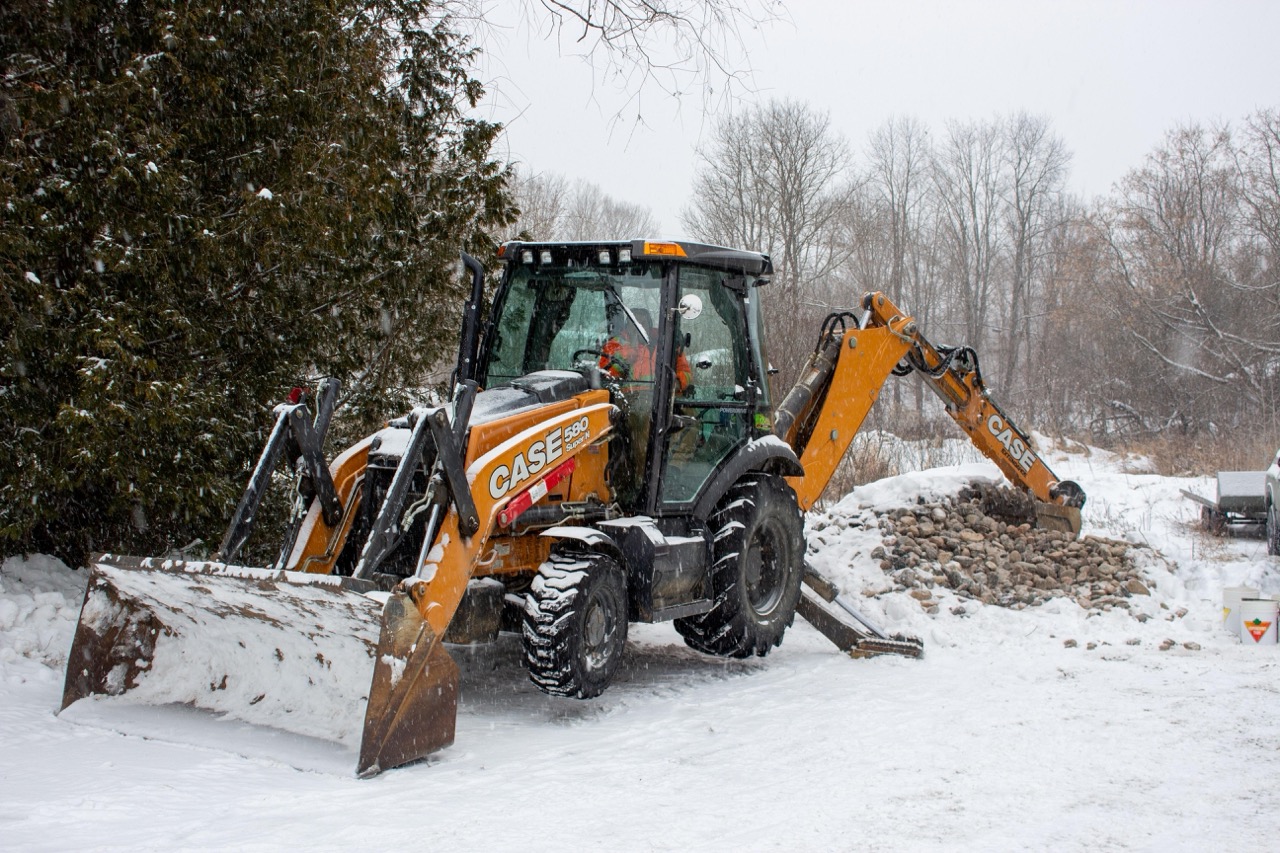
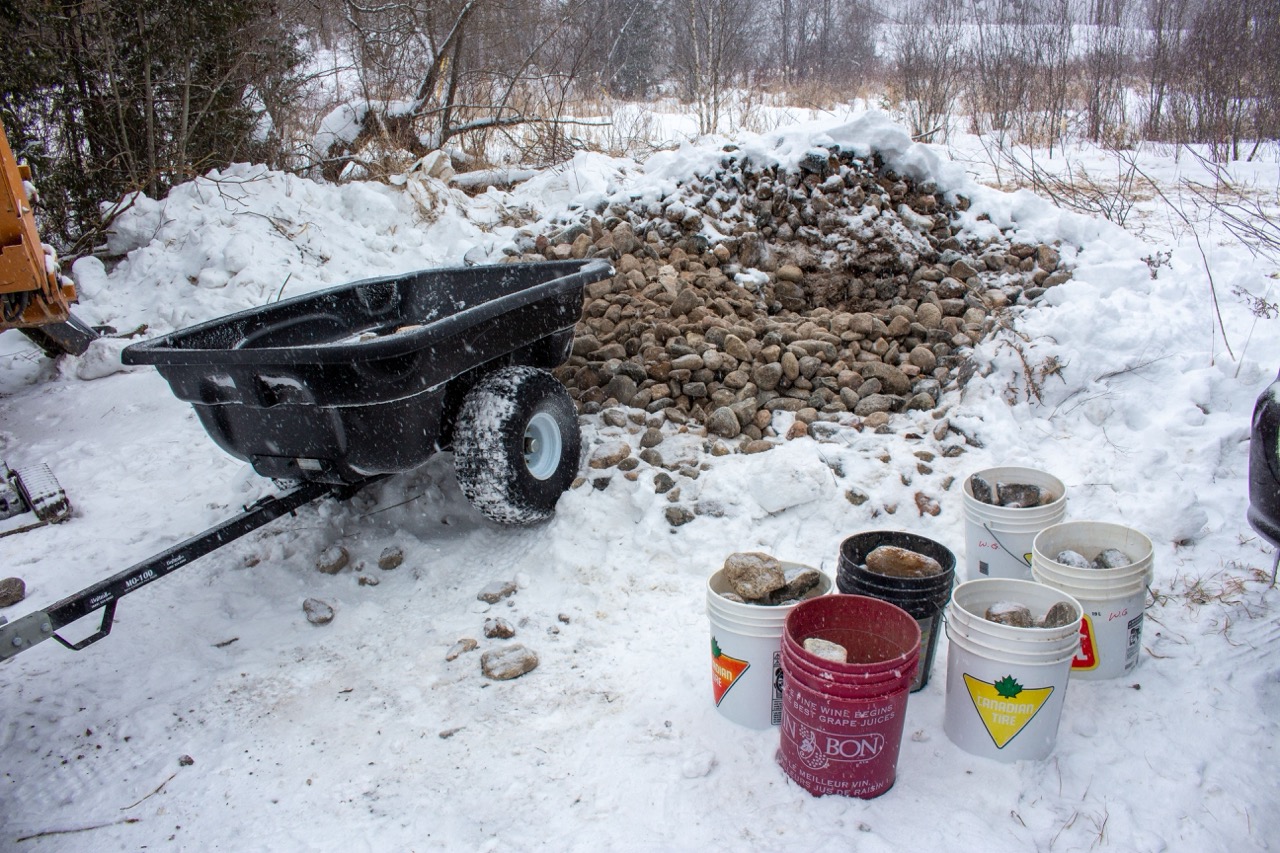

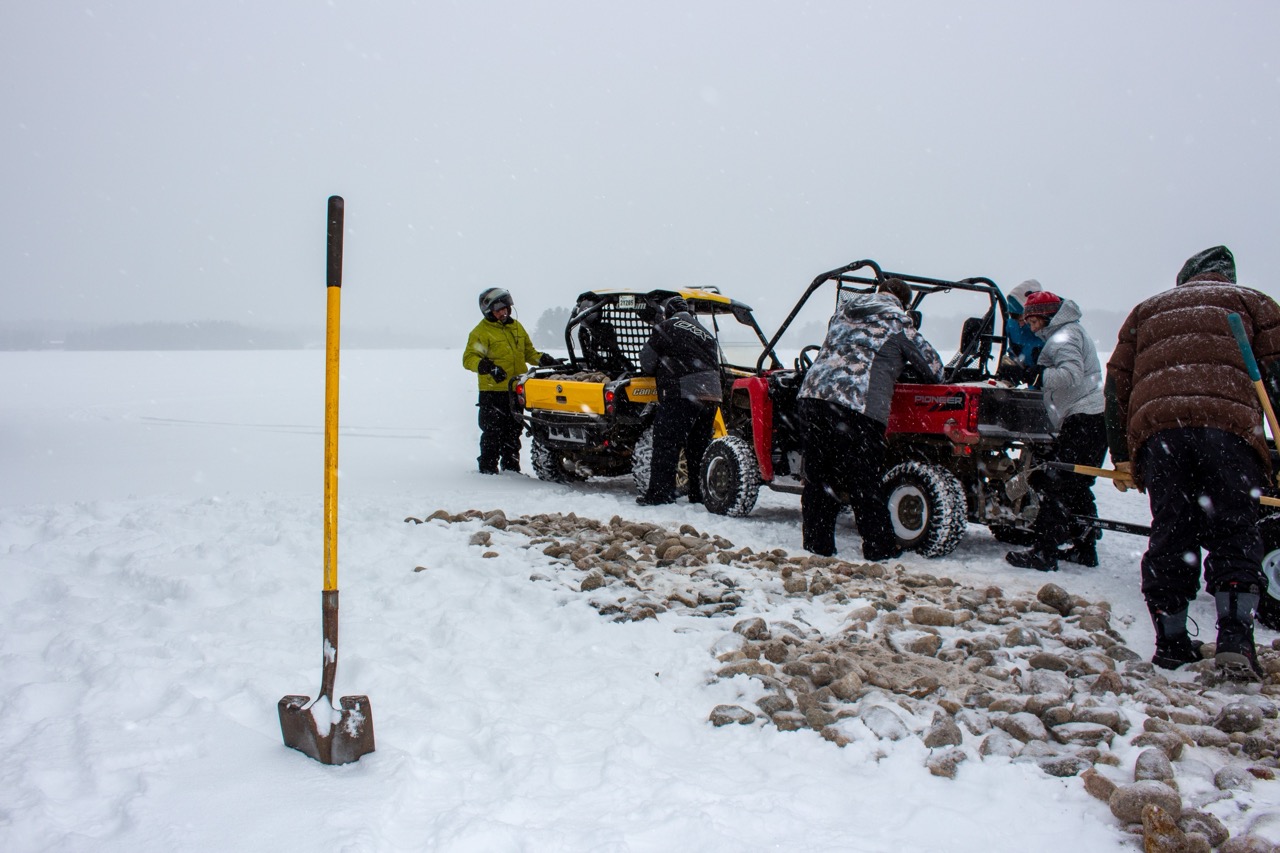
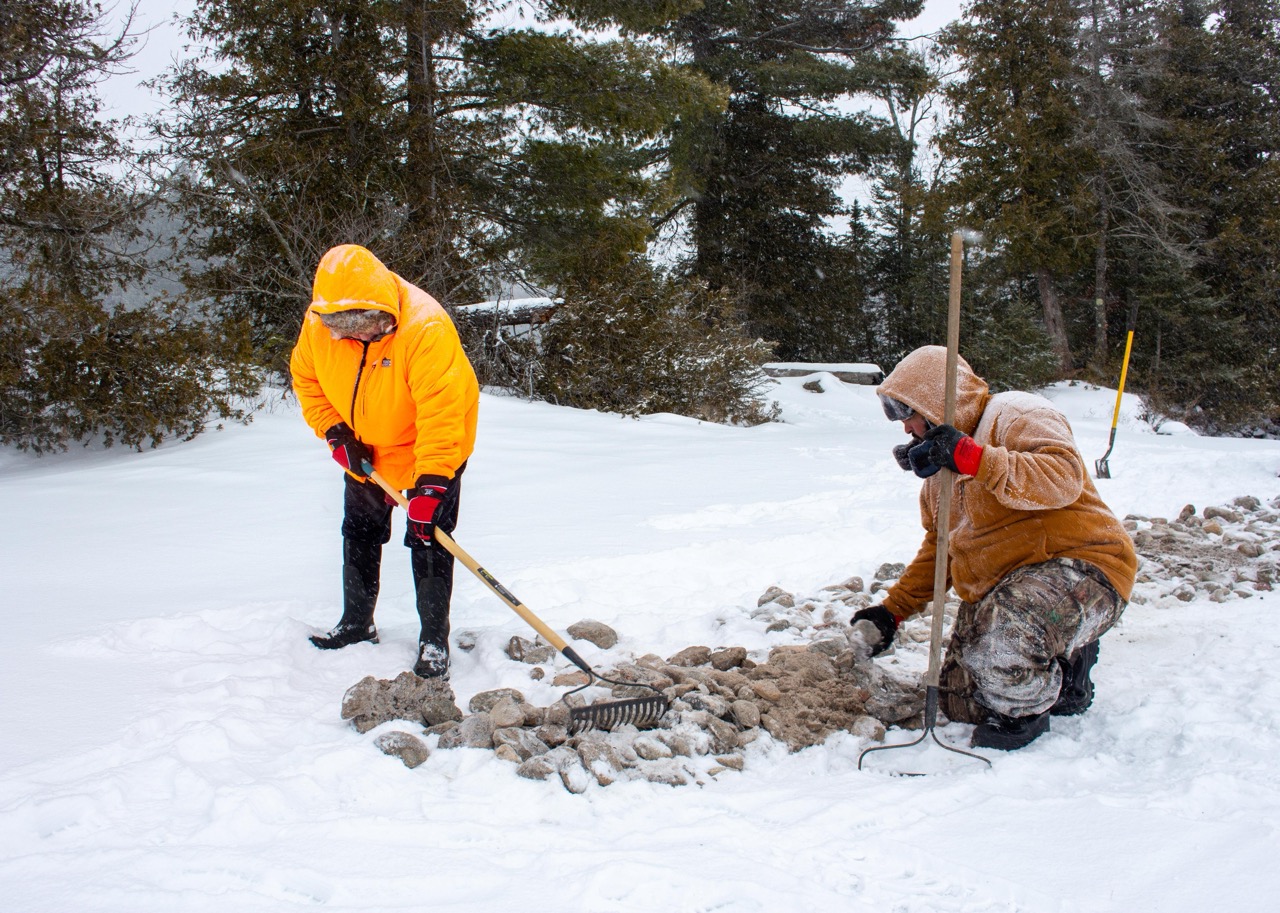
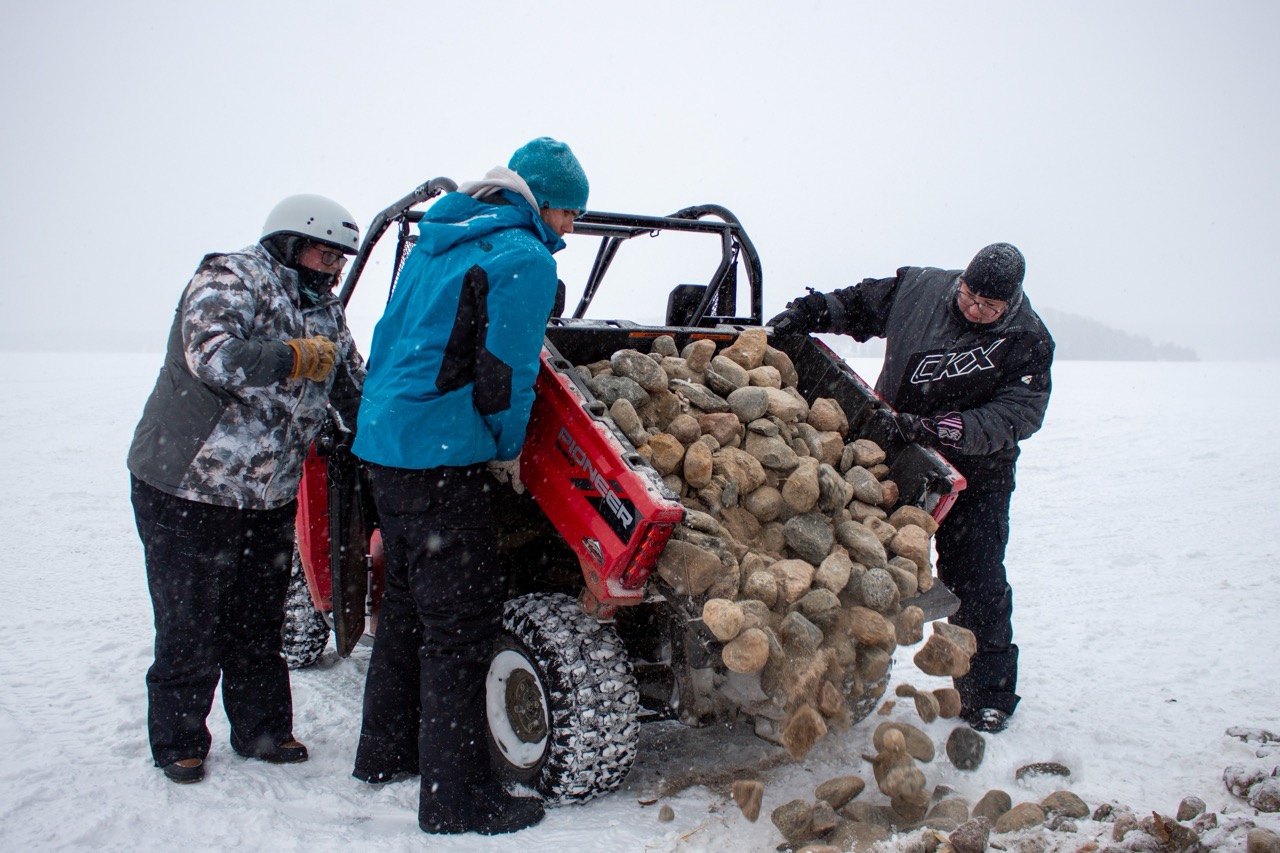
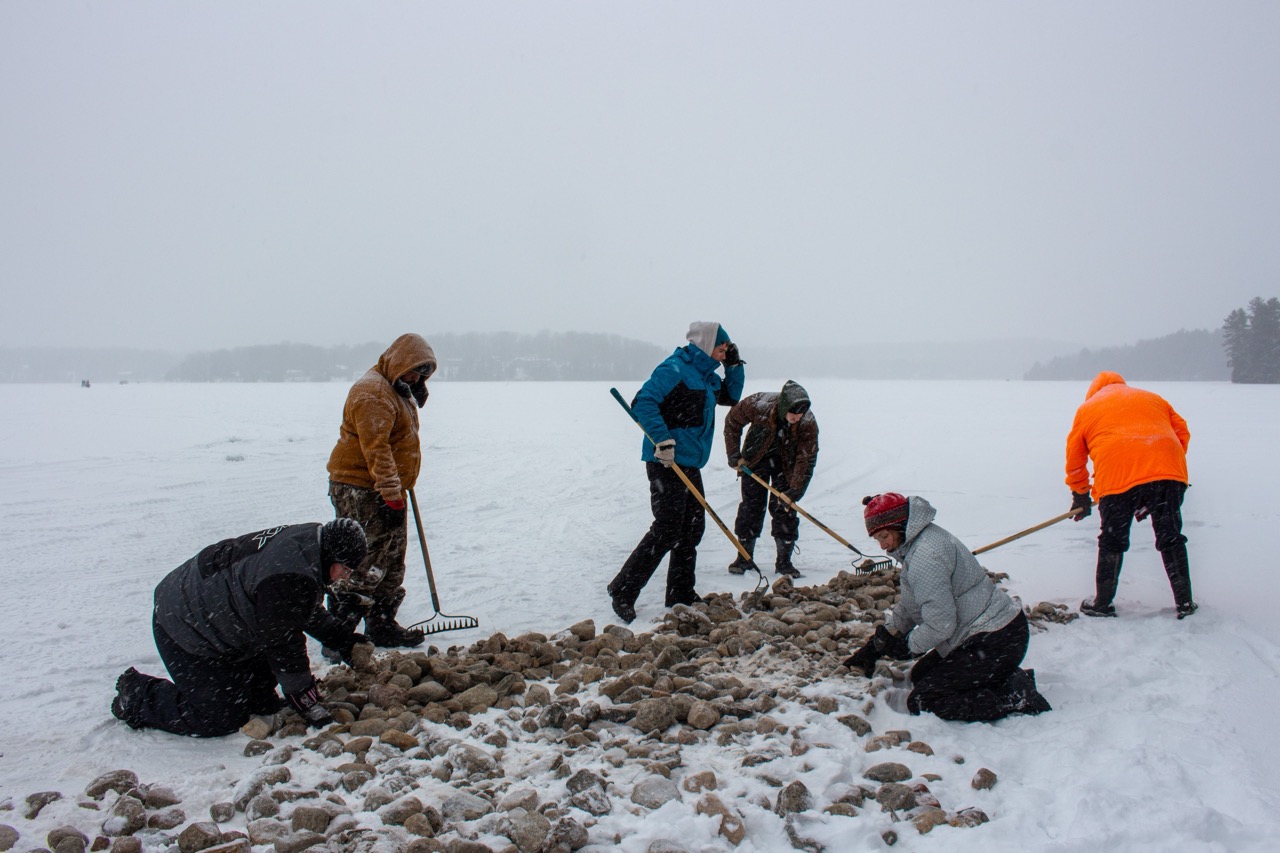
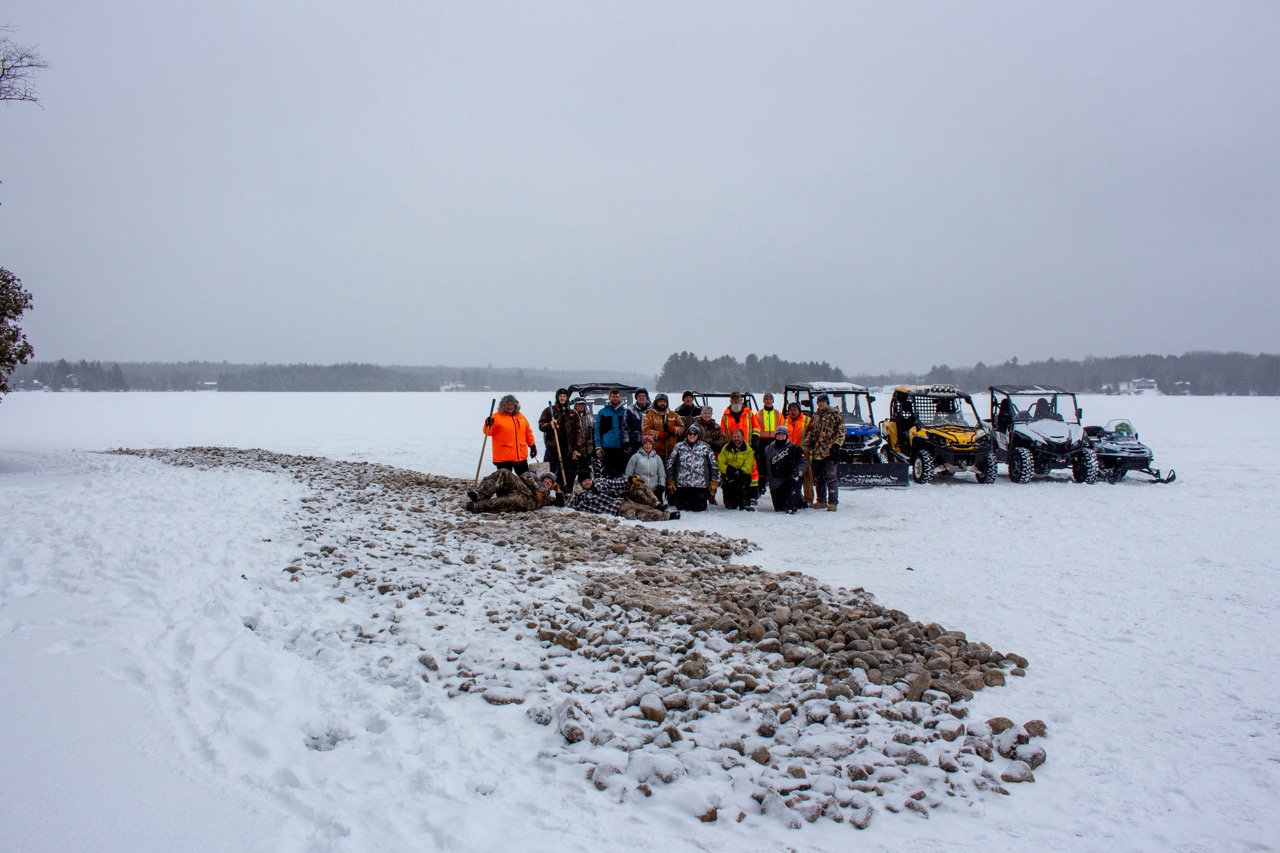
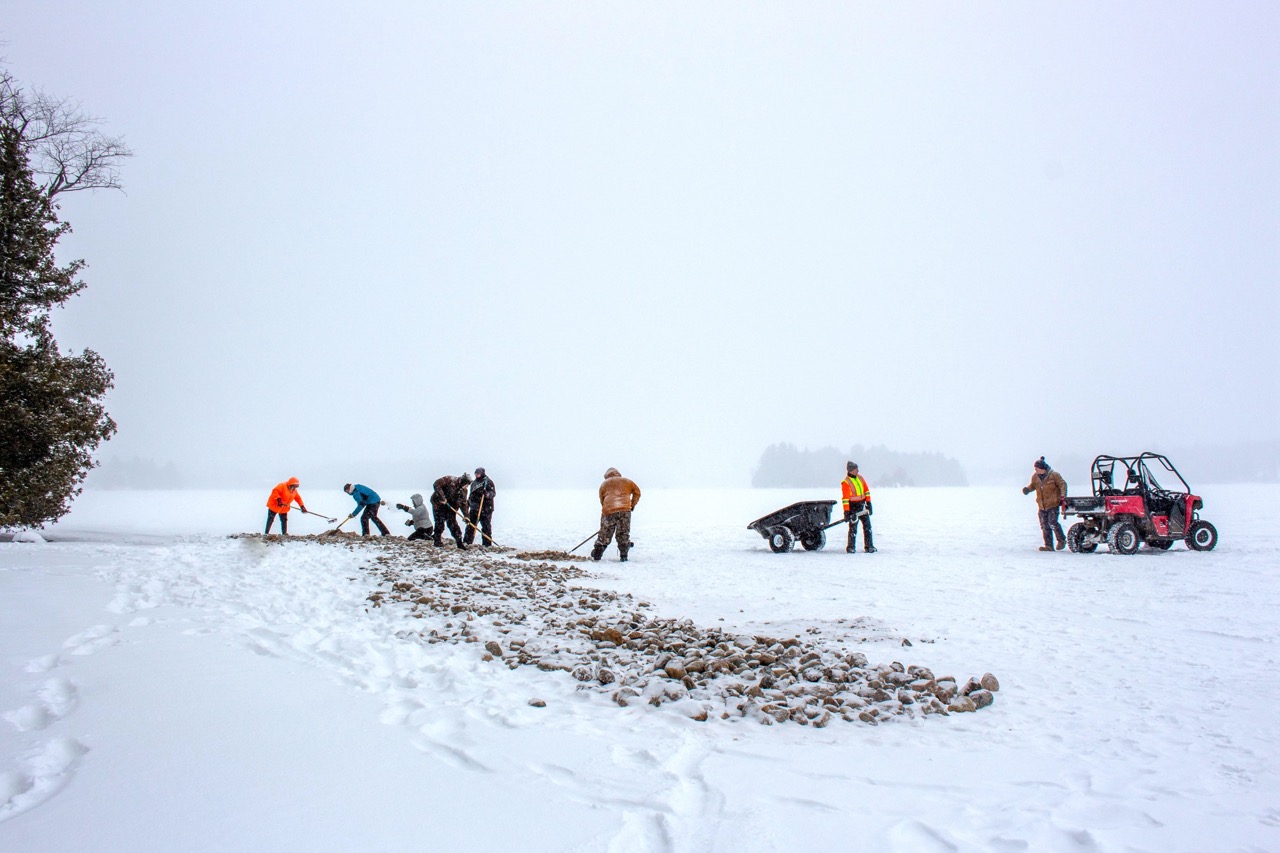
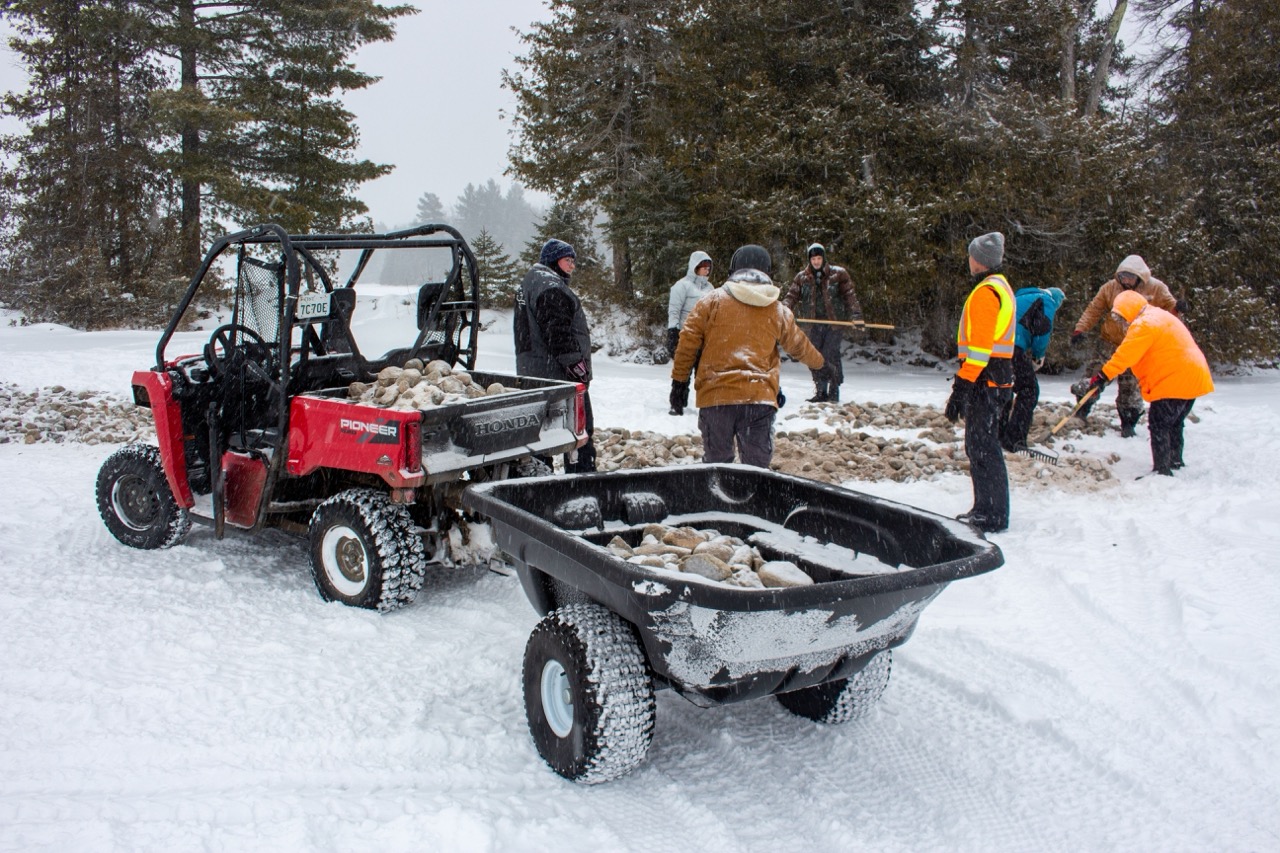
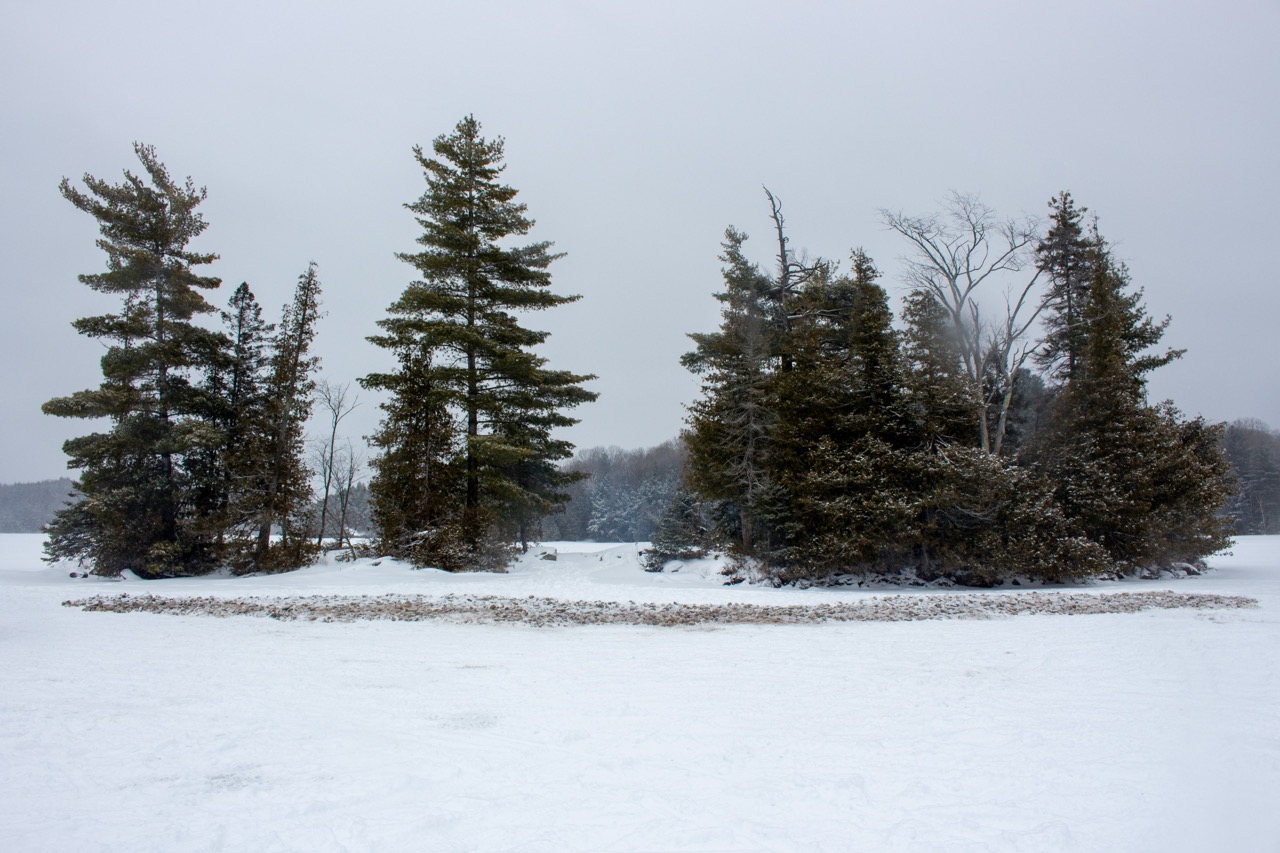
Education Award
This award recognizes an outstanding education project that has significantly advanced knowledge dissemination and community empowerment within Canada’s water sector.
AquaSONG exemplifies leadership in water education by offering an innovative, research-based outreach program that connects high school students with local water systems through authentic scientific investigation. Over the past decade, the program has engaged more than 3,000 youth across Southern Ontario, and many other community members, many of whom had never directly interacted with their local water sources. AquaSONG’s unique, full-cycle approach—from field sampling to water treatment design to lab analysis—mirrors professional water research and empowers students to become informed, capable environmental stewards.
By integrating scientific rigor, design thinking, and place-based learning, AquaSONG enhances the educational landscape beyond the classroom. Developed in consultation with regional education specialists, the program fills a recognized gap in accessible, hands-on water science experiences and fosters measurable gains in student understanding, STEM engagement, and civic responsibility—making it a model of transformative, scalable education in Canada.
For more information:
https://wlu.ca/information-for/community-members/camps-and-youth-programs/aquasong-project.html
https://www.wlu.ca/features/2025/winter/aquasong-project.html
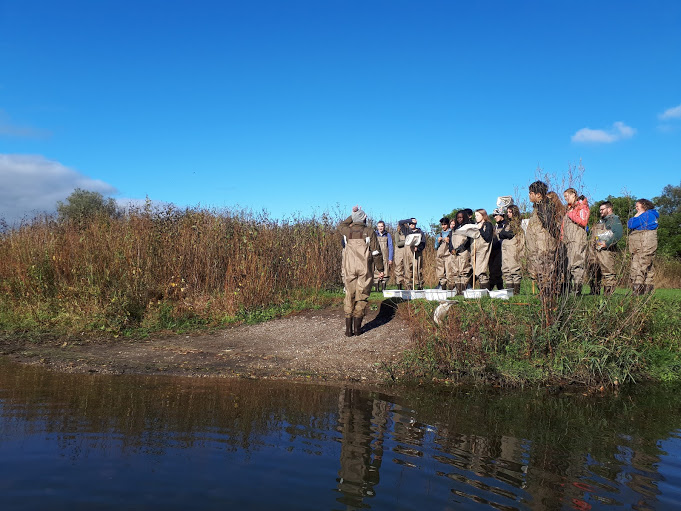
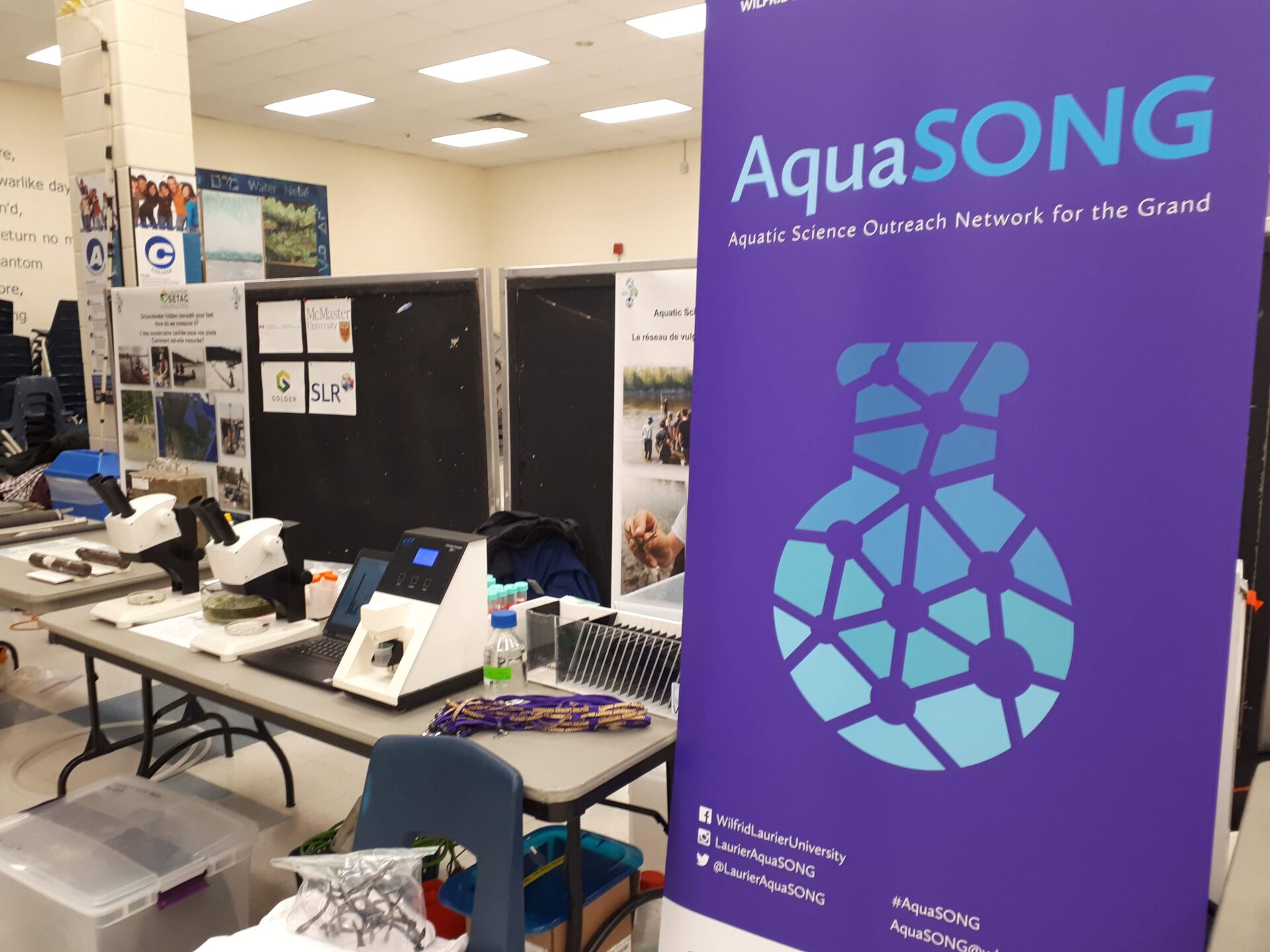
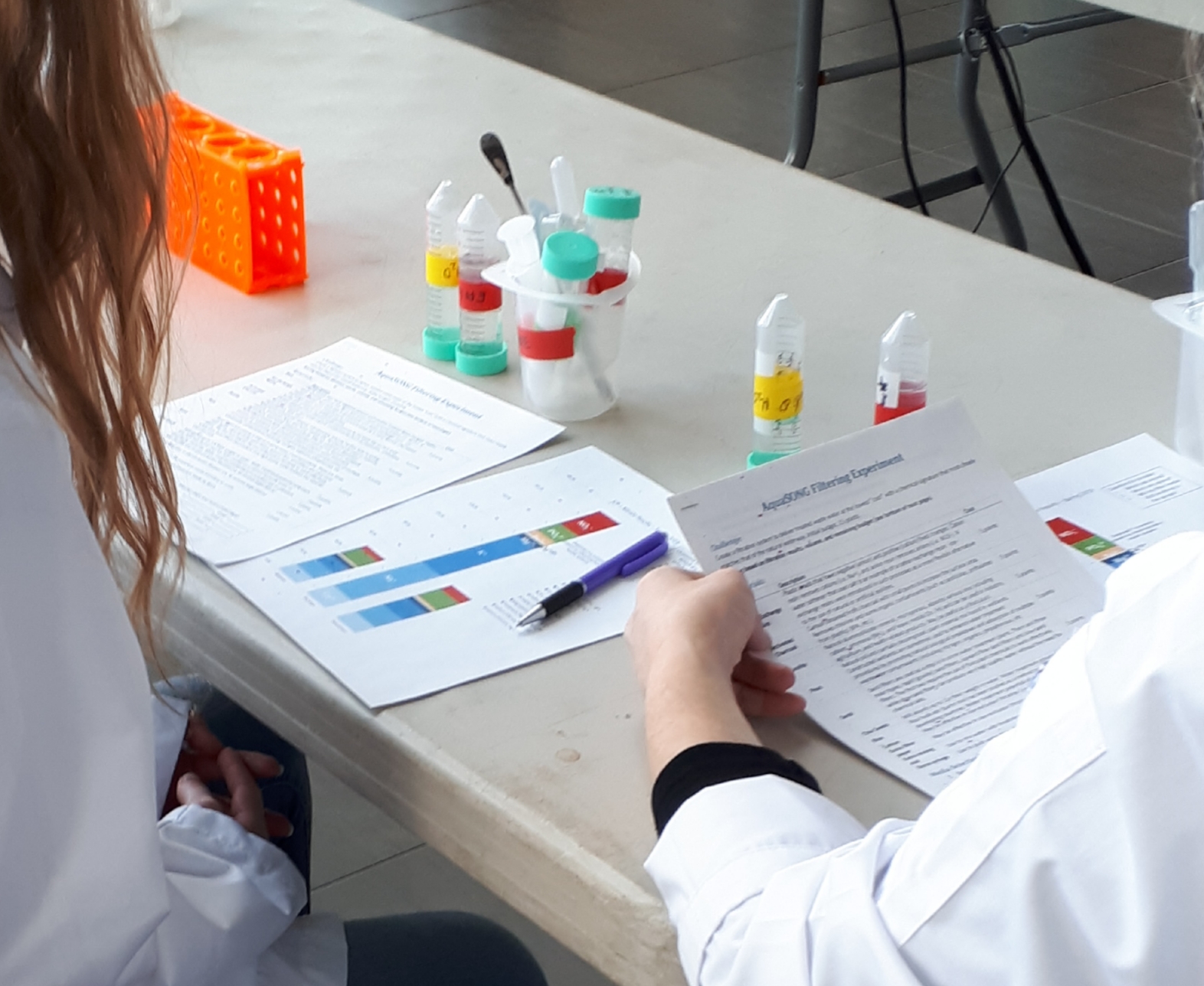
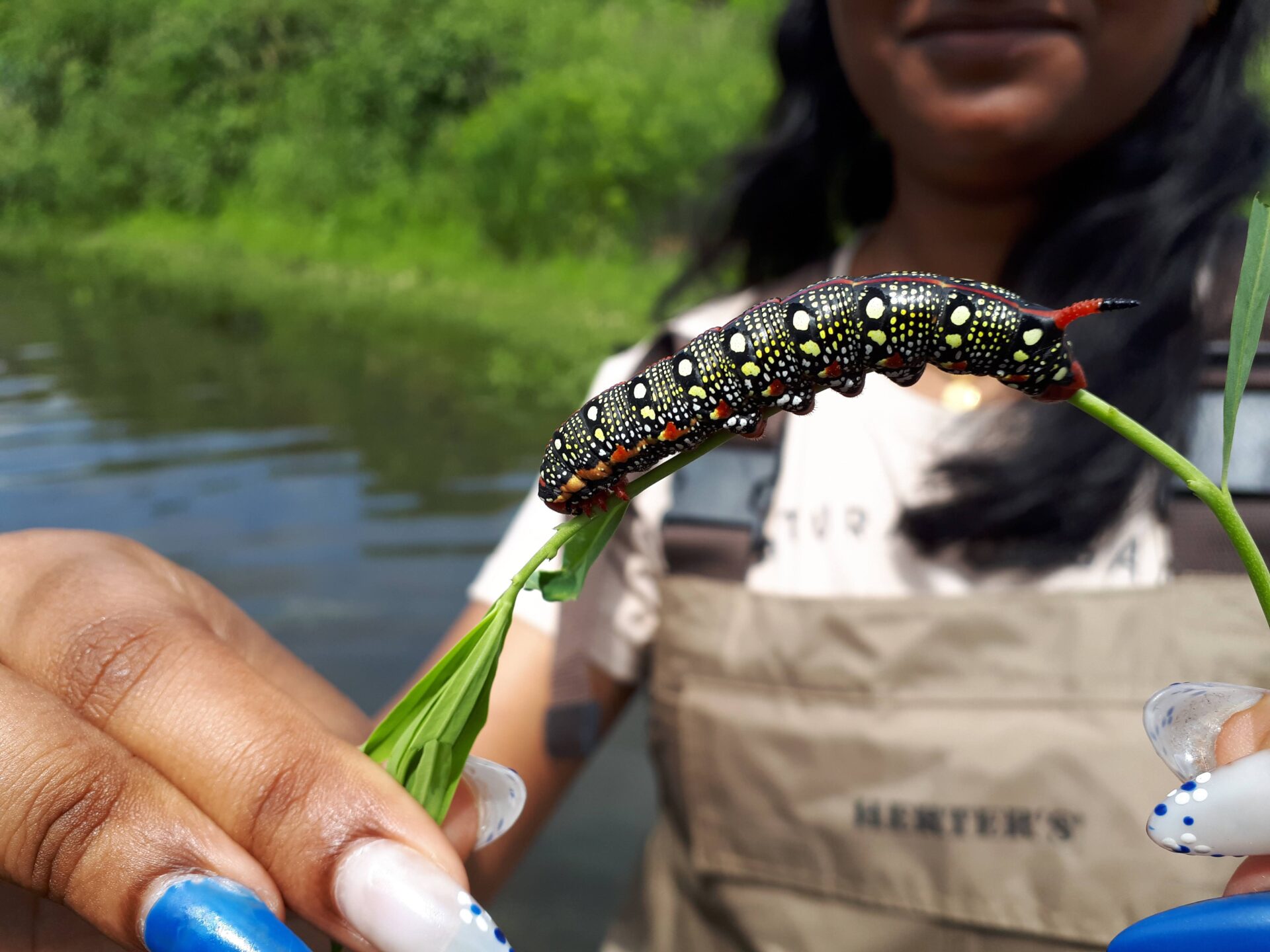
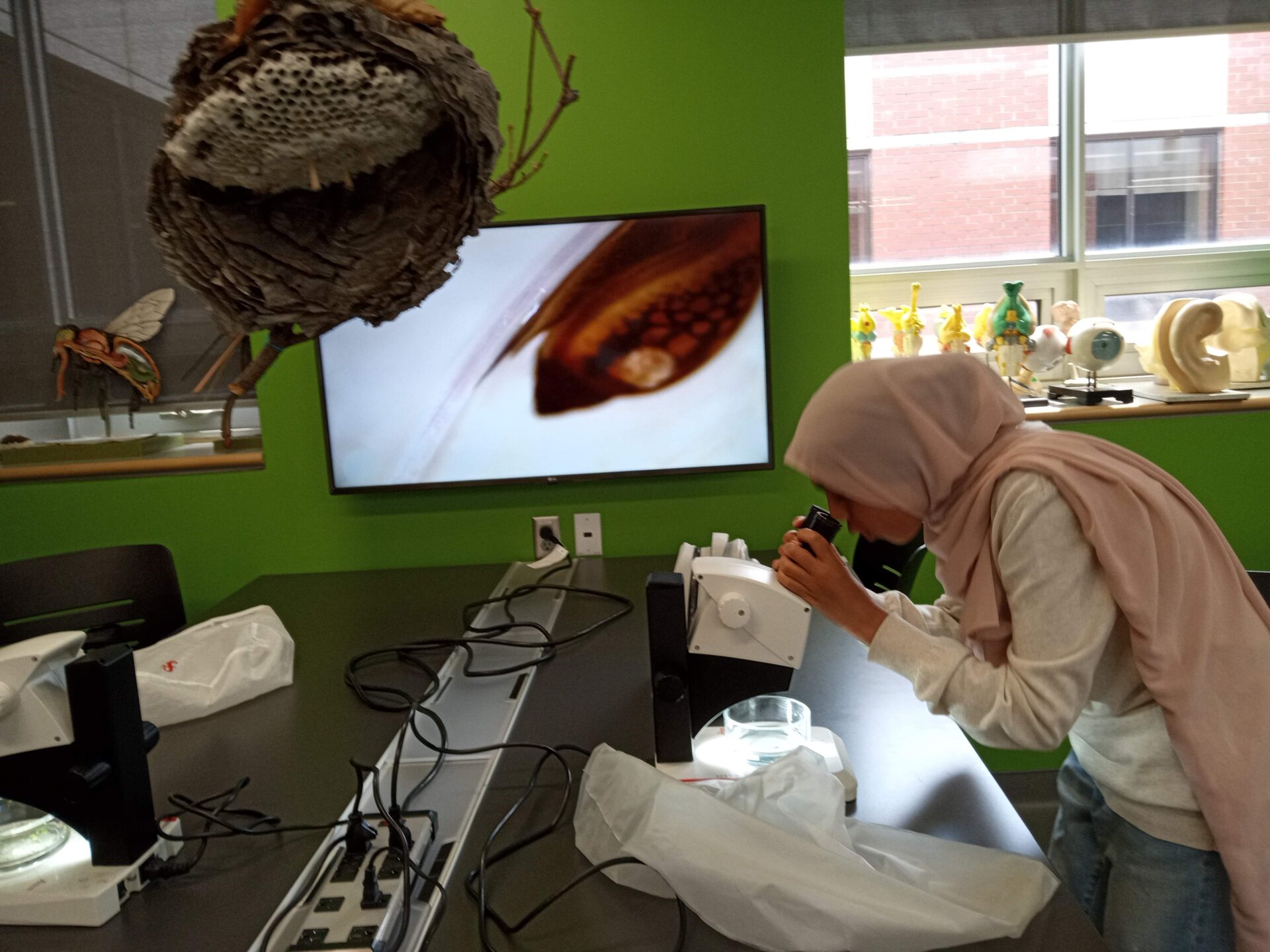
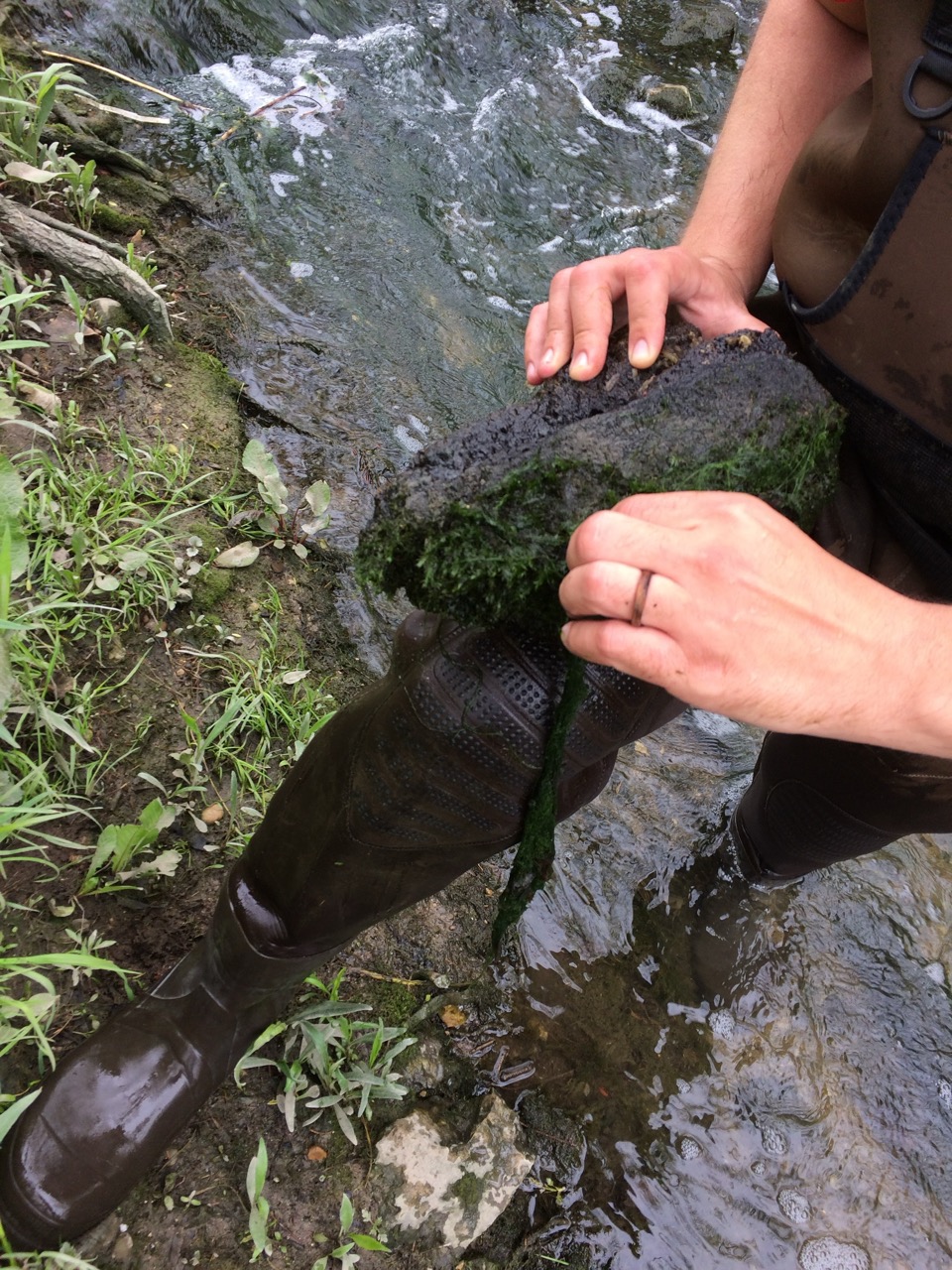
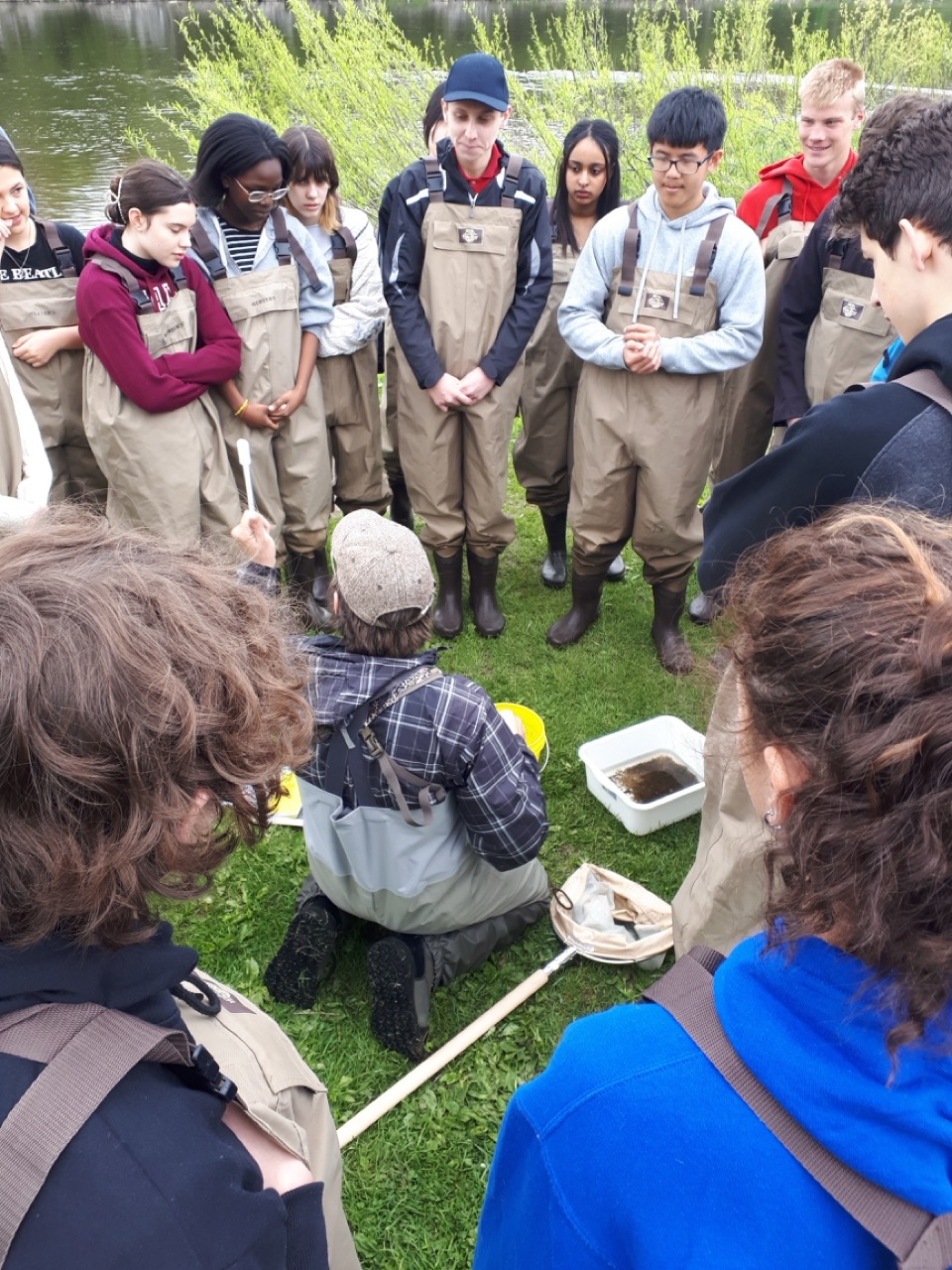
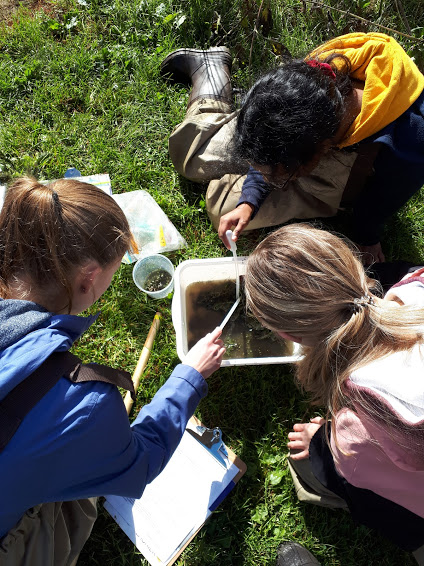
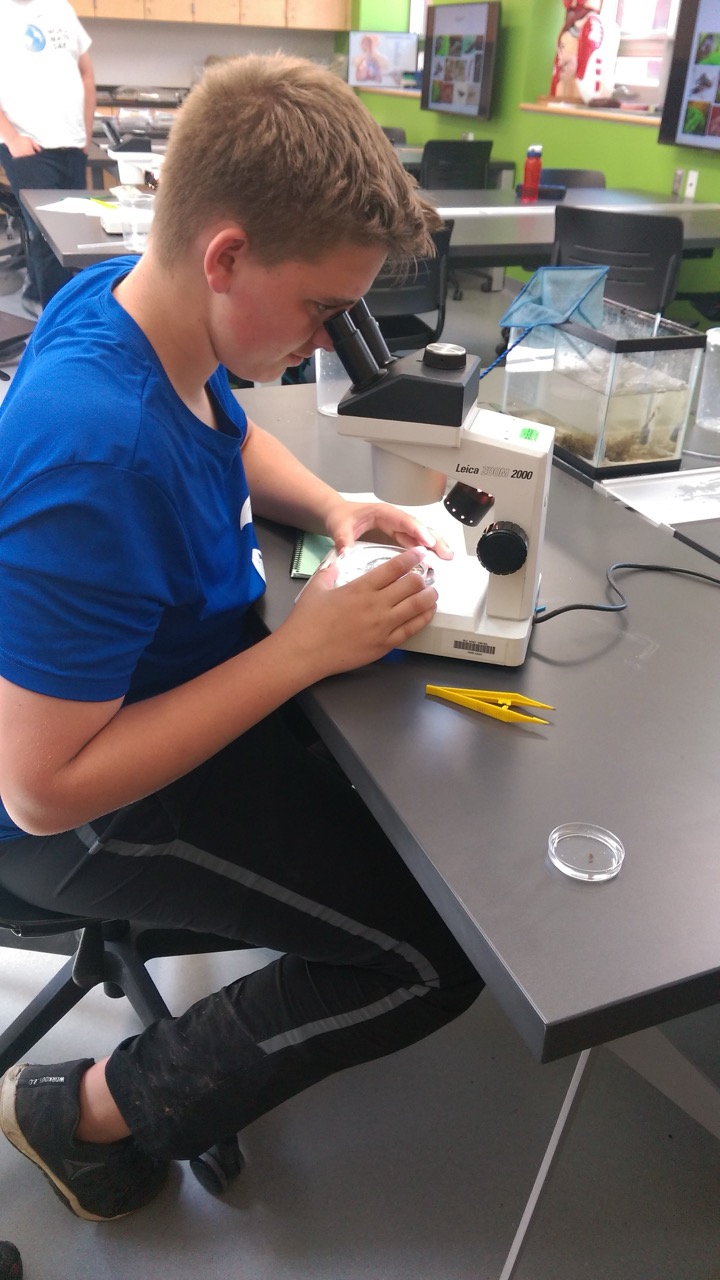
Blue Futures Pathways (BFP) is a groundbreaking Canadian educational initiative advancing youth engagement with the Sustainable Blue Economy across marine, freshwater, ice, wastewater, stormwater, and permafrost systems. Offering free, open-source learning modules for ages 15–35, BFP integrates environmental and socio-cultural stewardship with circular economy principles to promote sustainable water resource management.
BFP connects education with real-world experience through partnerships supporting career networking and internships in diverse water sectors. Endorsed by the UN Decade of Ocean Science, the program contributes to global conservation goals and empowers youth nationwide to become leaders in water stewardship. Its lasting impact is seen in alumni actively driving community water initiatives and sustainability efforts.
Watch a video of one of the programs that Blue Futures Pathways supports
The OneWater: Treat Our Water Well Program is a standout nominee for the education award due to its innovative approach to water knowledge sharing, community engagement, and student empowerment across Ontario. Since 2014, OneWater has educated around 6,000 students, bridging the gap between daily water use and the complex systems that ensure safe, sustainable water supply.
Aligned with the Ontario curriculum, the program fosters awareness of water’s vital role in public health, the environment, and the economy. It encourages students to adopt sustainable behaviors by teaching the impact of water misuse and promoting informed decisions about what not to flush or drain. OneWater’s ambassador model further inspires youth to become active advocates by connecting them with local water professionals and community initiatives, cultivating leadership and stewardship that extend beyond the classroom.
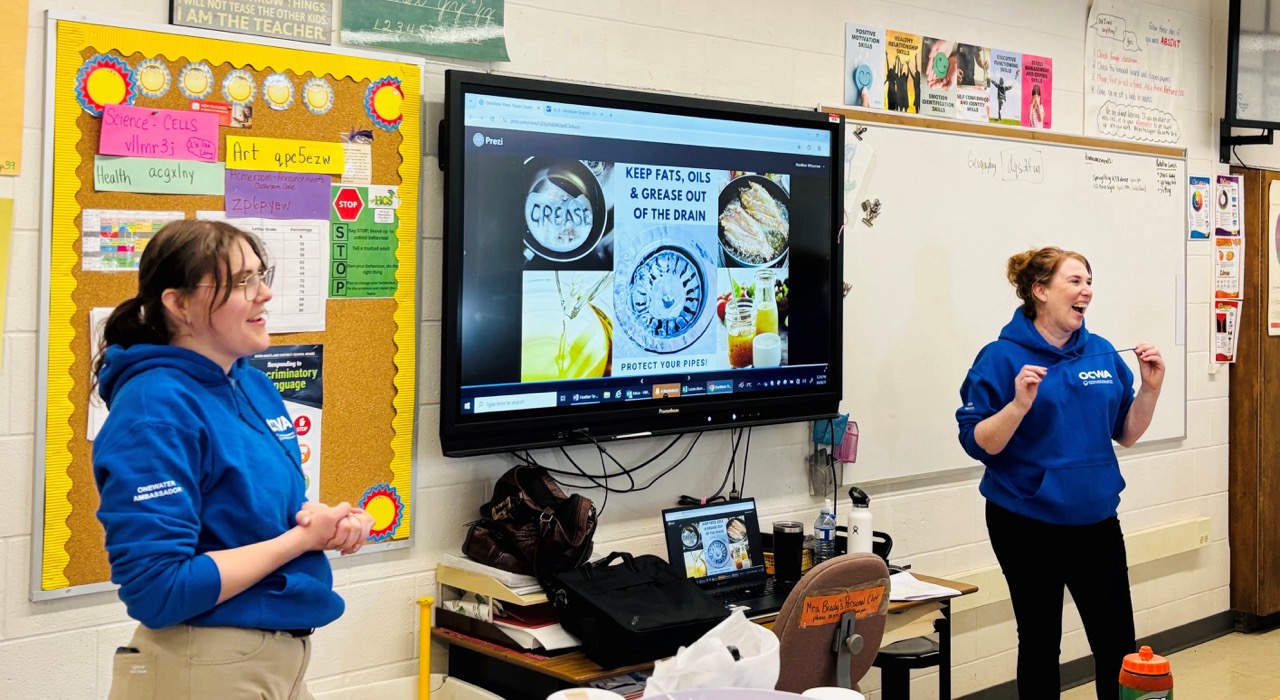
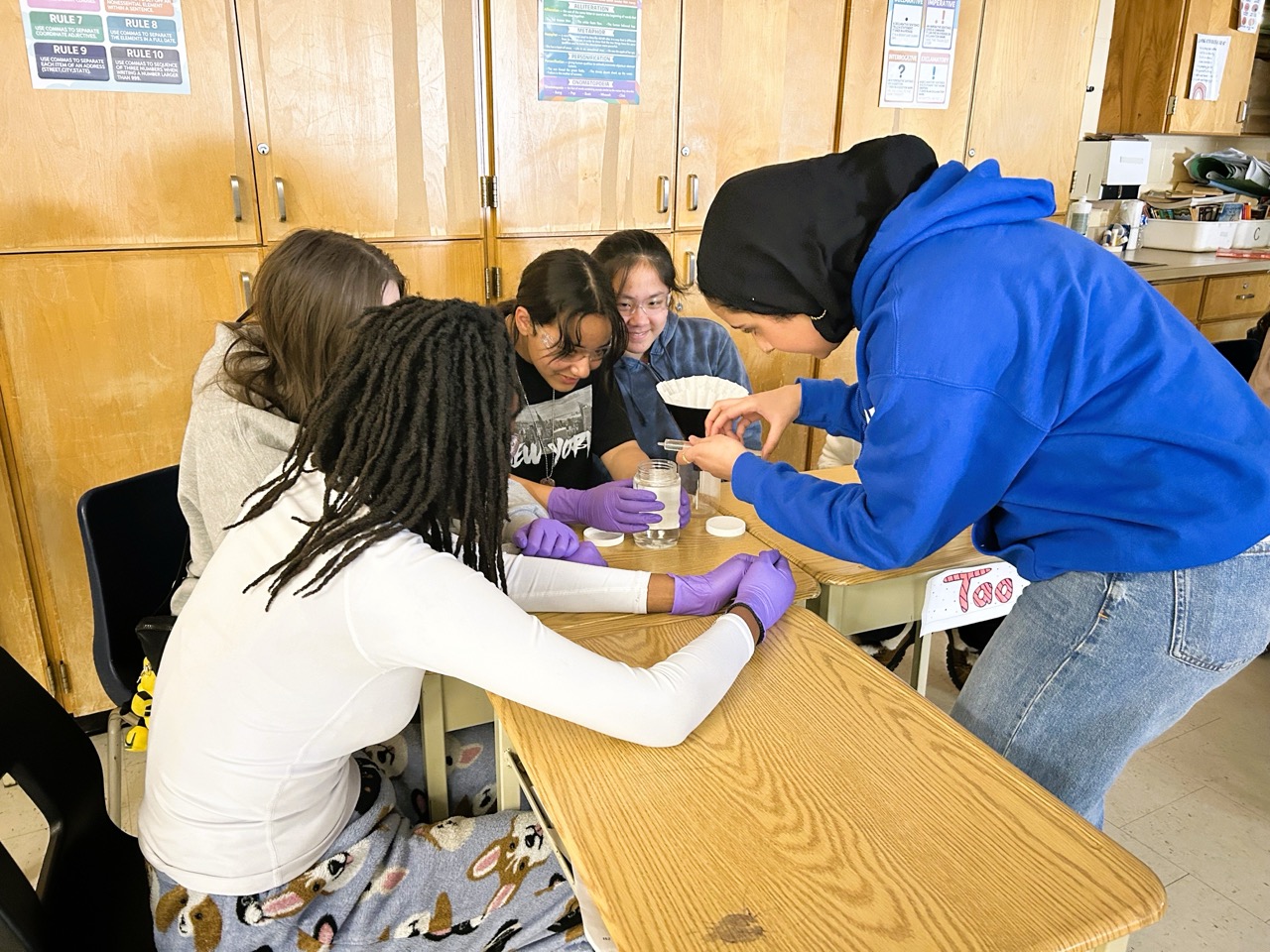
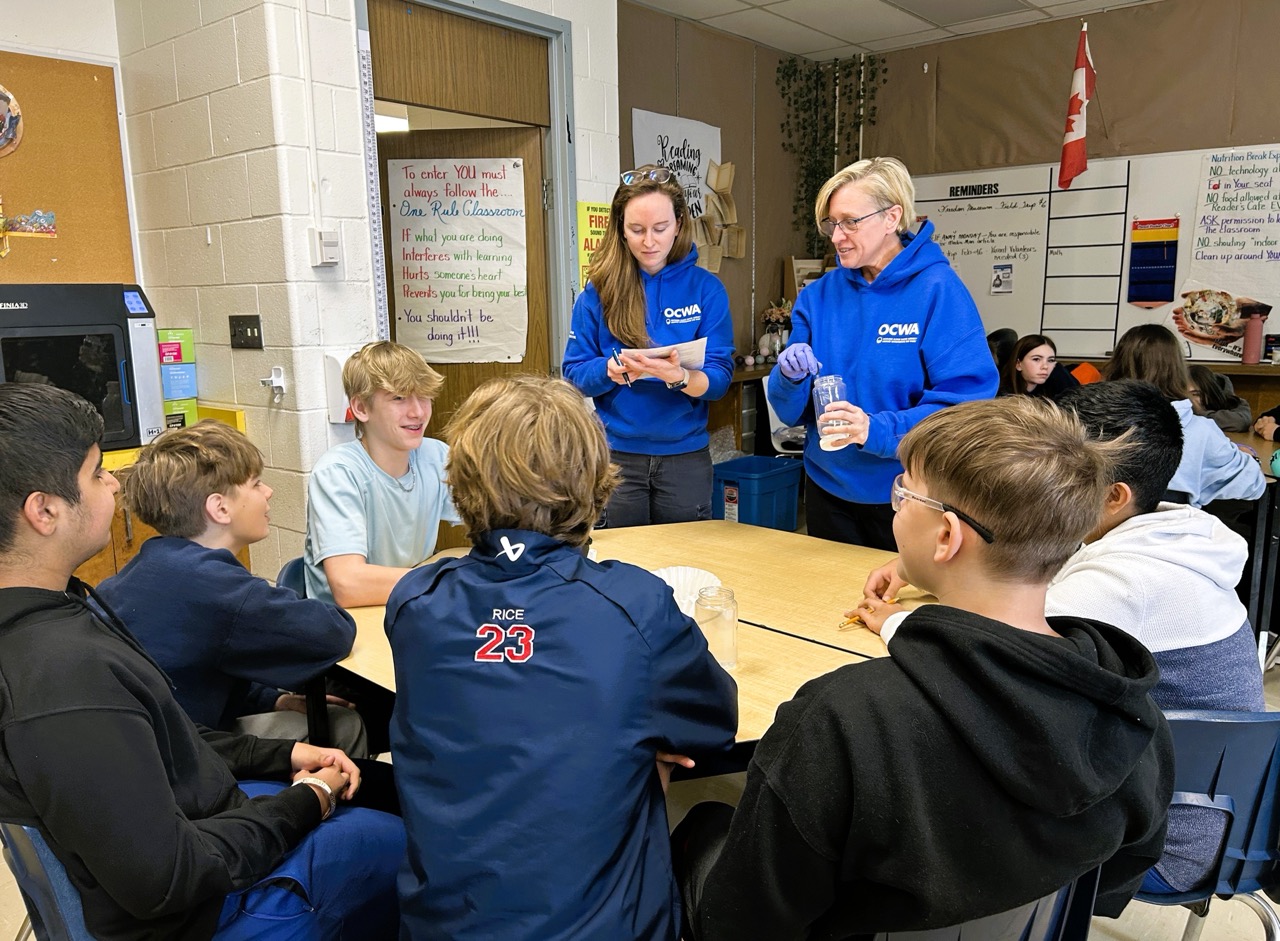
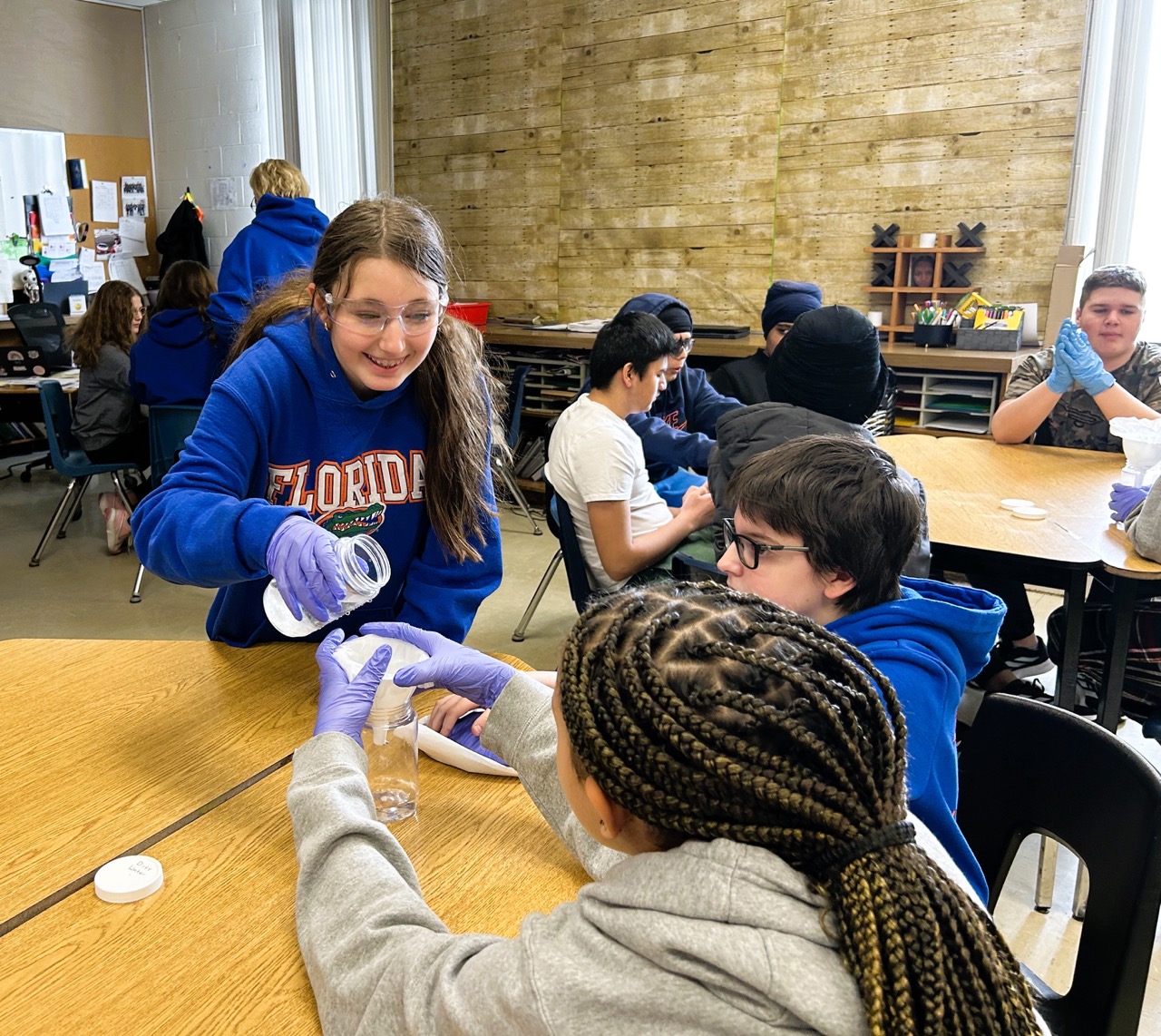

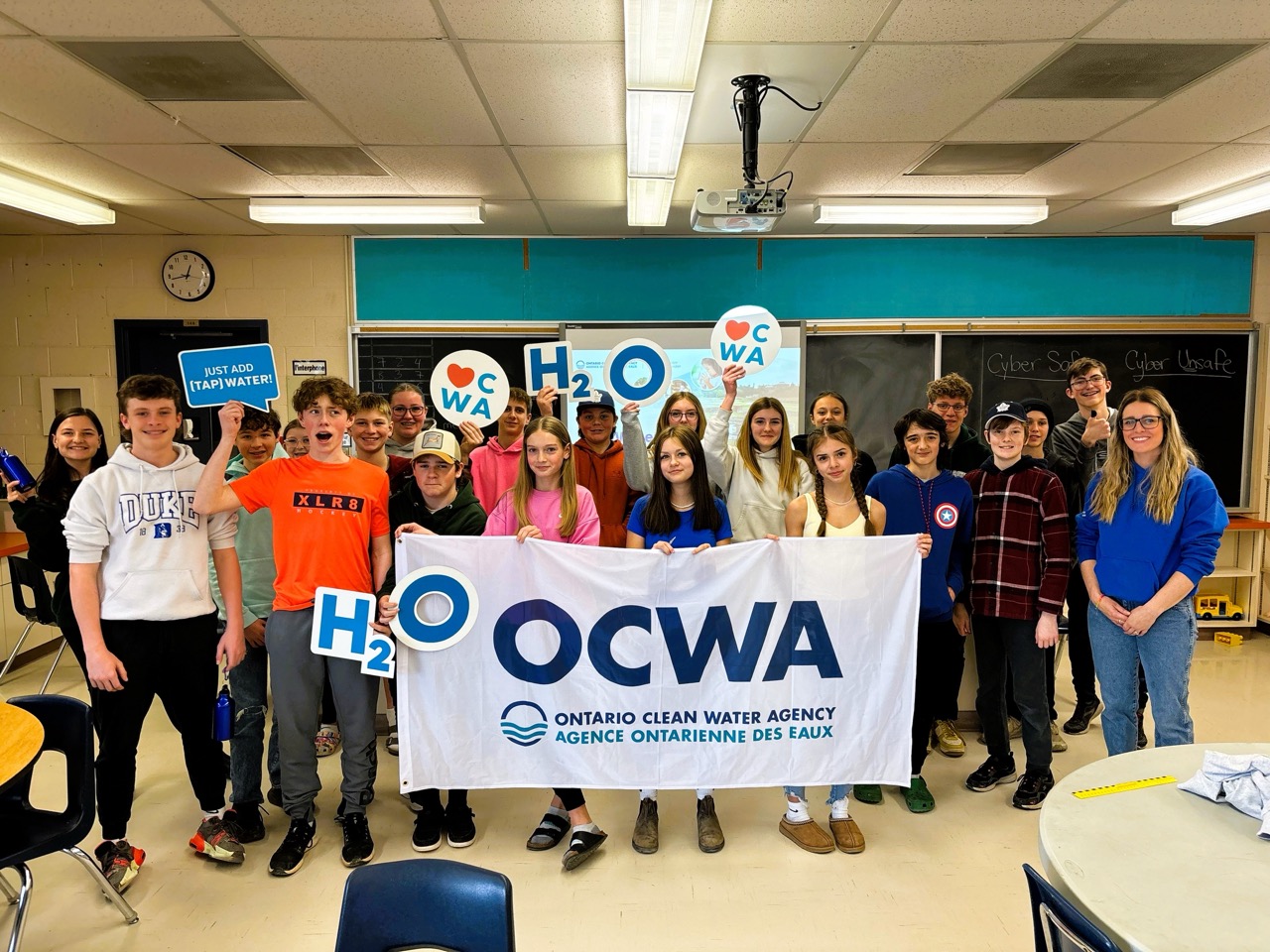
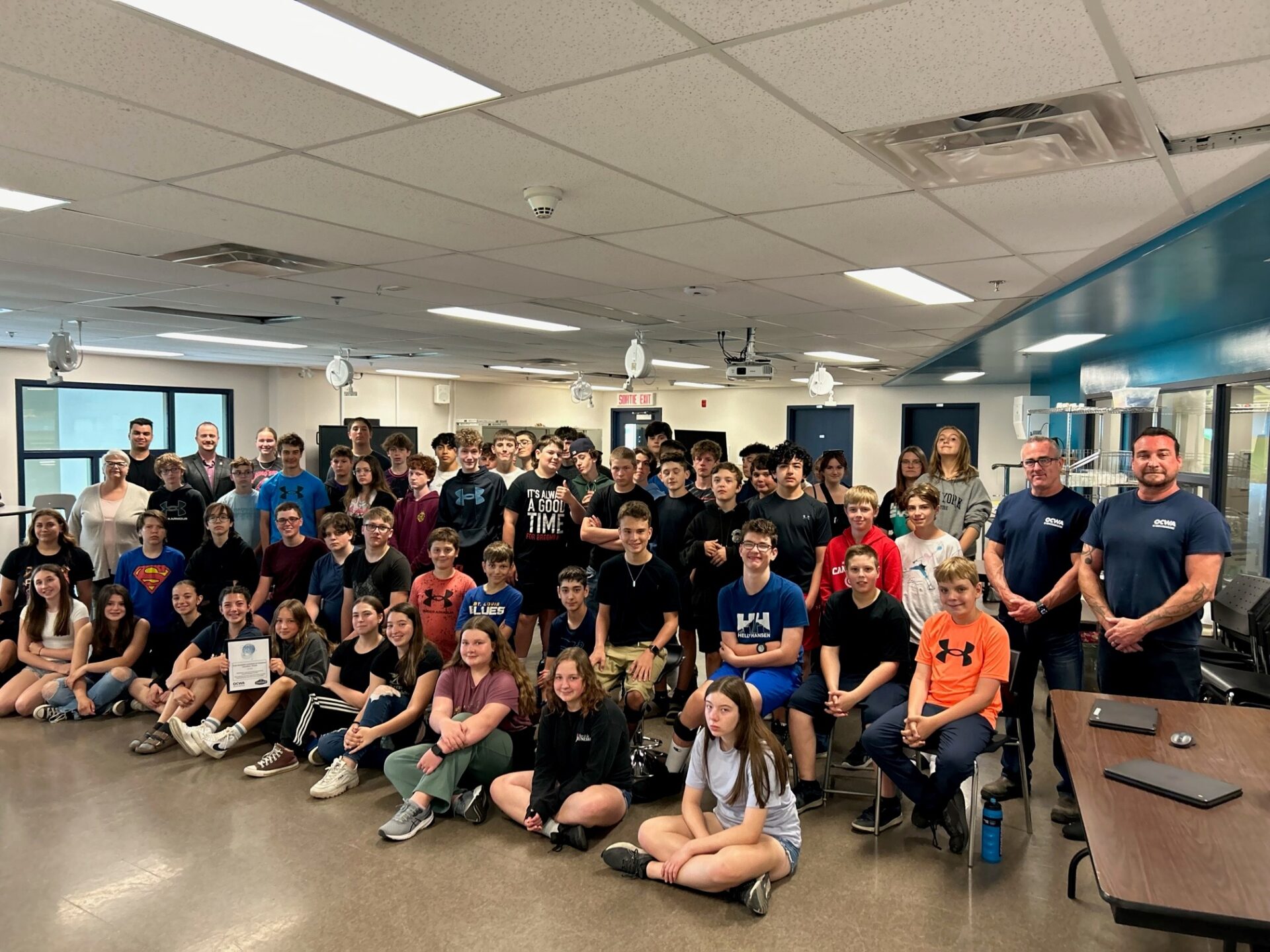
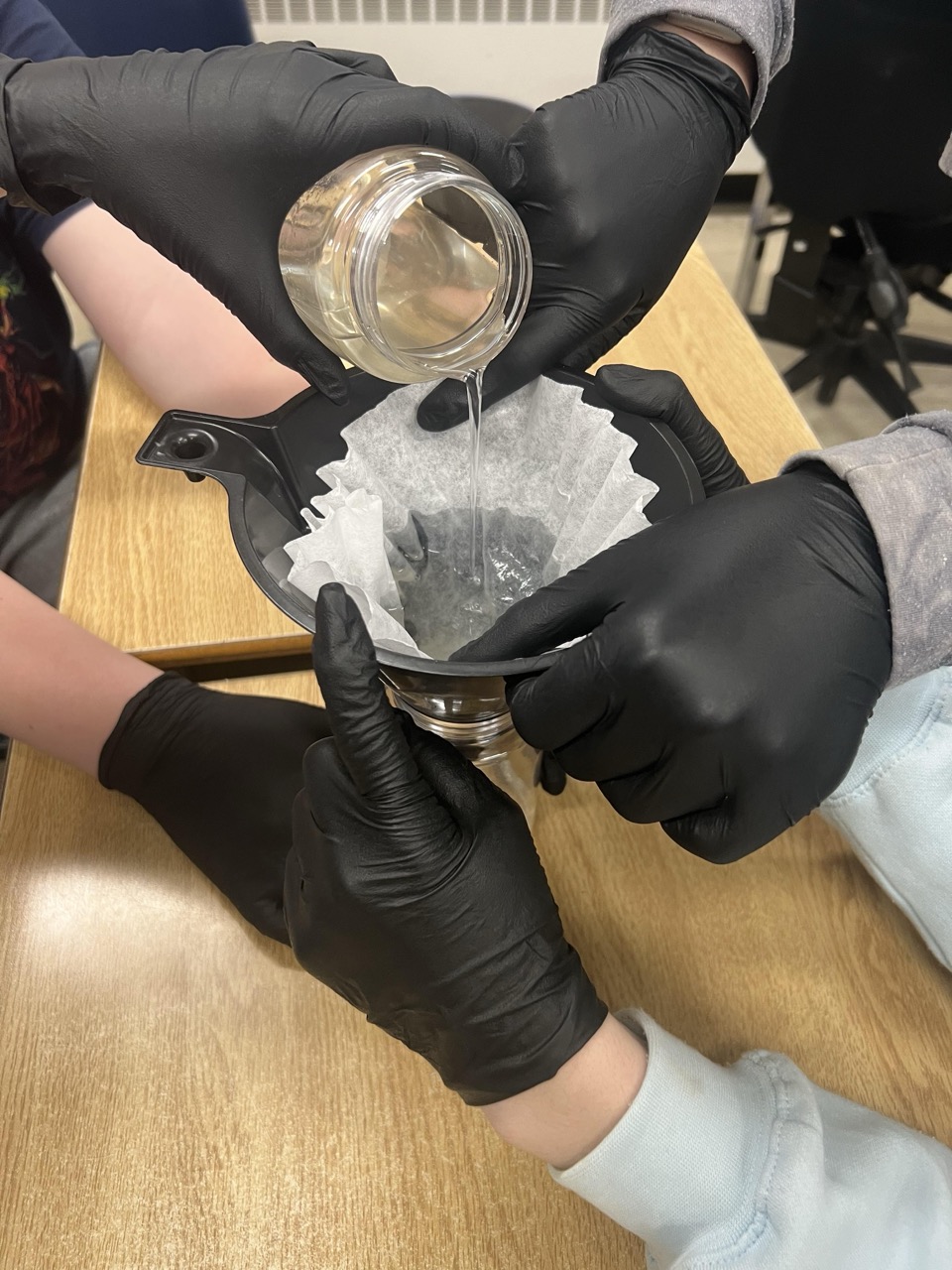
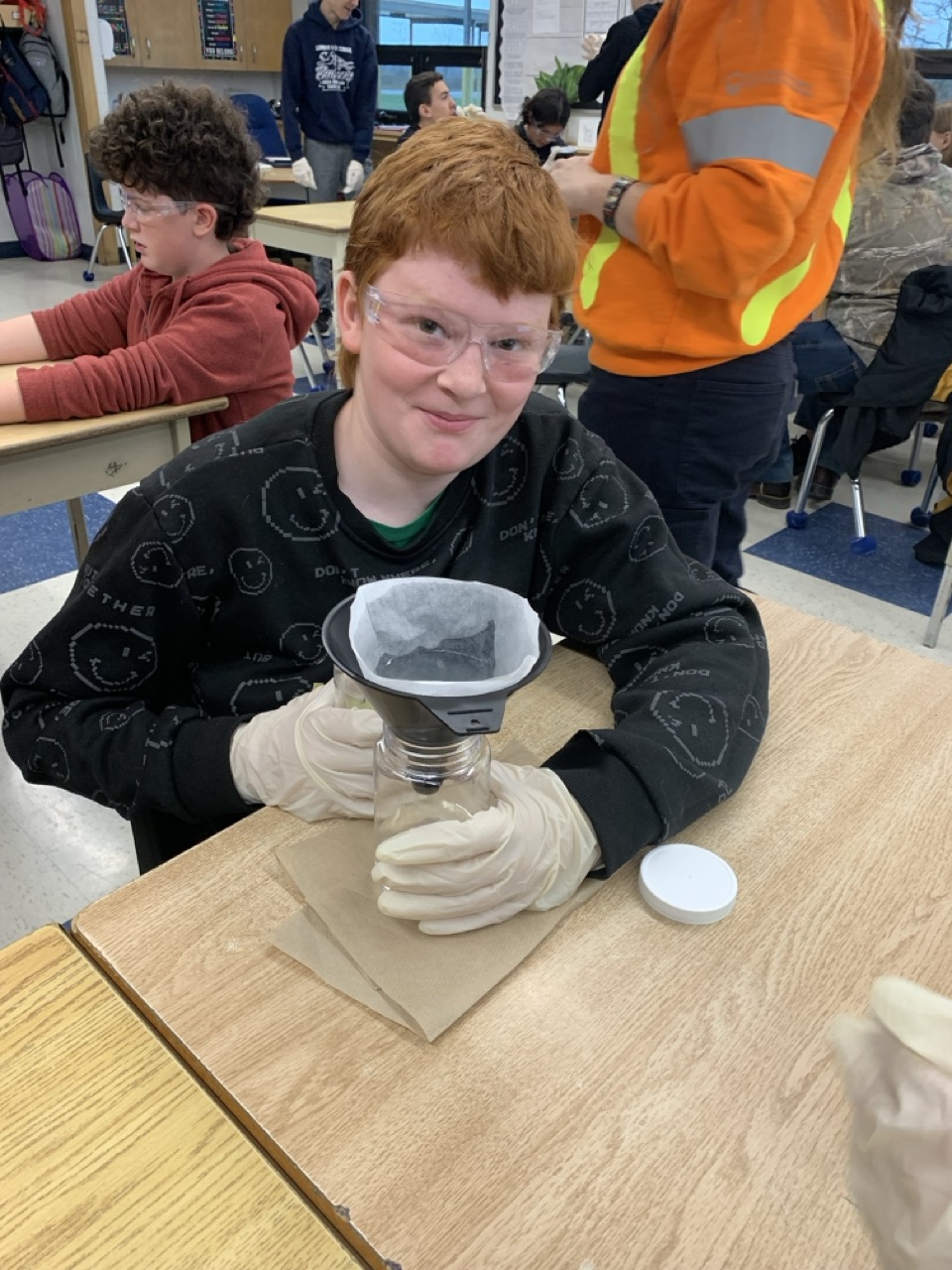
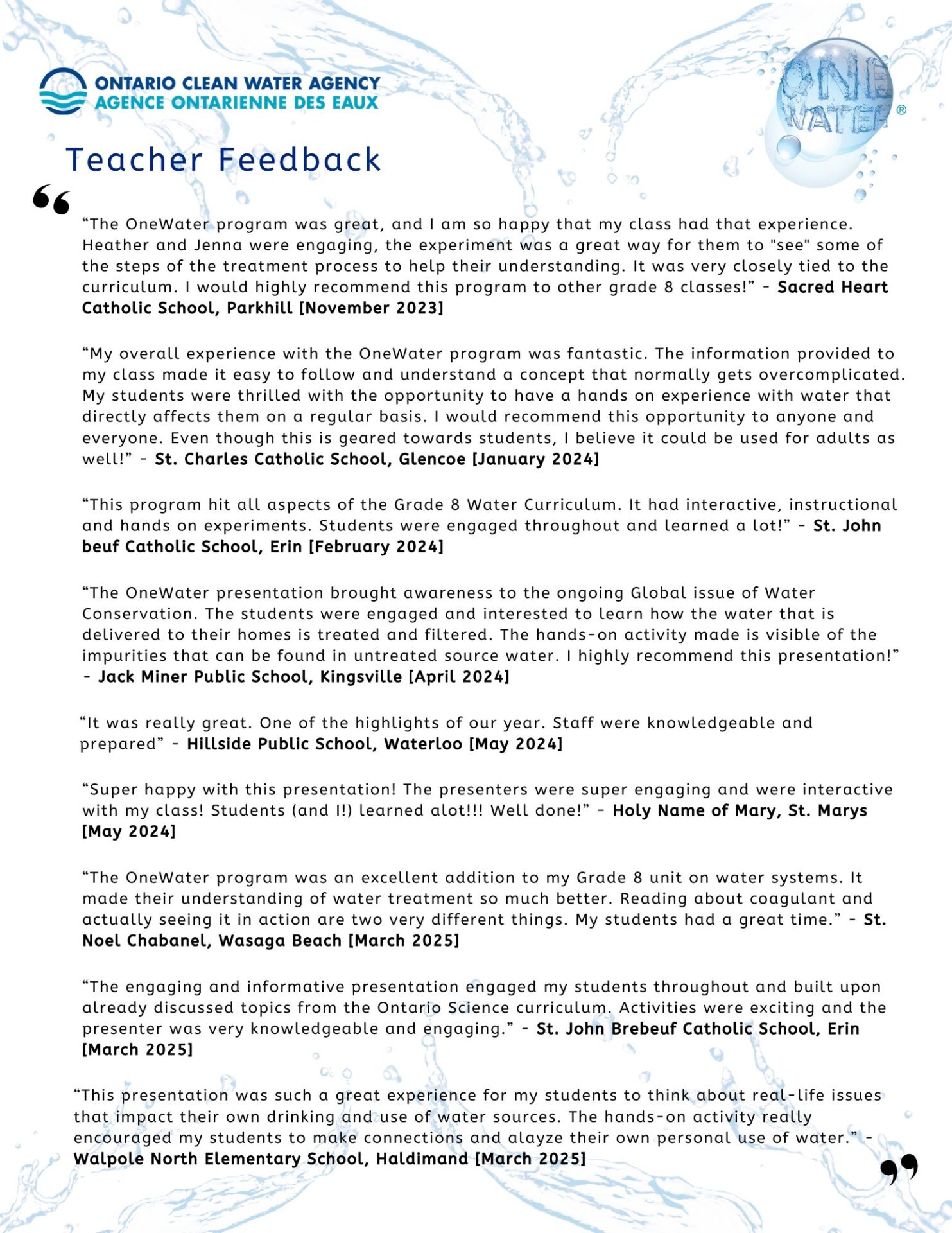
Policy Award
This award recognizes a project that has made a significant impact on Canada’s water management policies and regulations.
The Arkell/Carter Property Management Plan exemplifies comprehensive and strategic stewardship, successfully integrating environmental protection, heritage conservation, and community engagement. Developed through detailed technical memorandums and placemaking principles, the plan was endorsed by City leadership and supported an expansion of operational areas.
Key components include a clear property governance structure, source water protection objectives, and a thorough historical and ecological assessment. Updated site plans address future property use, emphasizing trail access and connectivity with City infrastructure, while mapping critical conservation zones informed by ecological and forest management reports. The plan also outlines hazard tree management, user guidelines, education and outreach materials, and strategies for future infrastructure integration.
Additionally, the plan aligns with broader City initiatives such as net-zero targets, climate adaptation, emergency response, and the Water and Wastewater Servicing Master Plan. Through ongoing public outreach and stakeholder engagement, it positions the Arkell/Carter property as a model of sustainable urban land management that balances ecological integrity with community use and strategic city growth.

Lake Winnipeg Foundation’s advocacy and policy work has led to real, measurable improvements in water quality management policies and practices. This work not only benefits Lake Winnipeg but serves as a model for similar water management issues across Canada.
Their ability to secure funding, influence government action at all levels, and engage communities is a testament to their exceptional leadership in advancing meaningful change.
For these remarkable accomplishments, the Lake Winnipeg Foundation is more than deserving of the Policy Award for its groundbreaking contributions to improving Canada’s water management policies and regulations.
Video: The Lake Winnipeg Community-Based Monitoring Network: Citizen science, freshwater solutions.
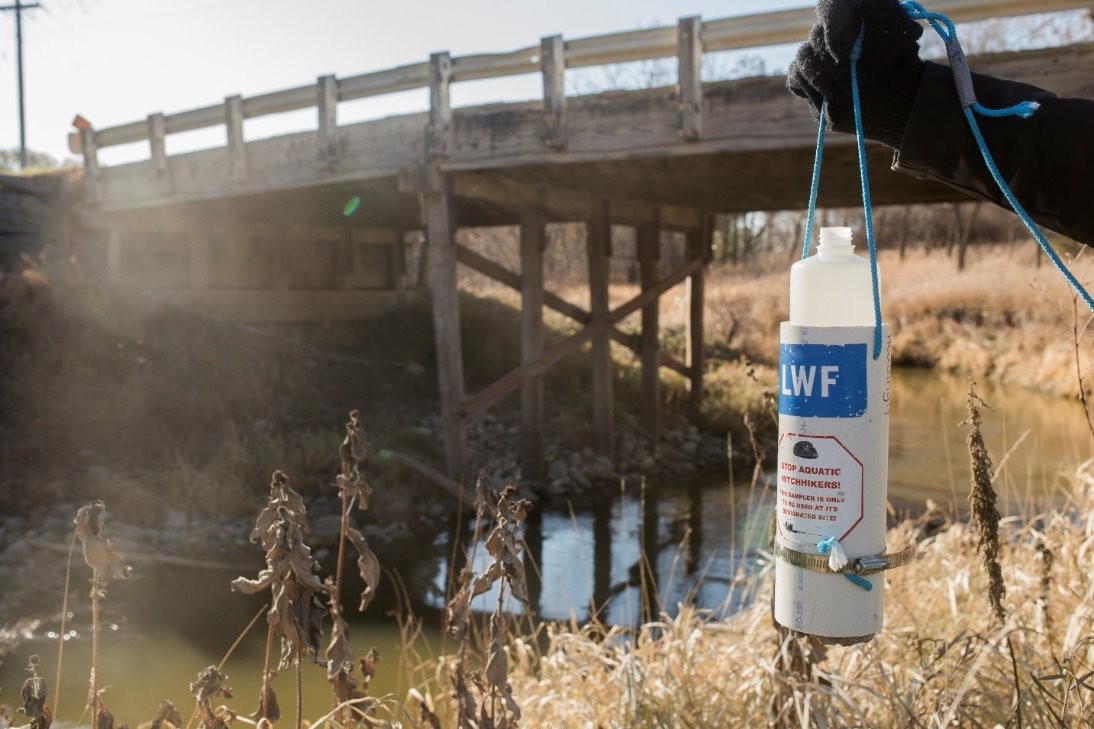
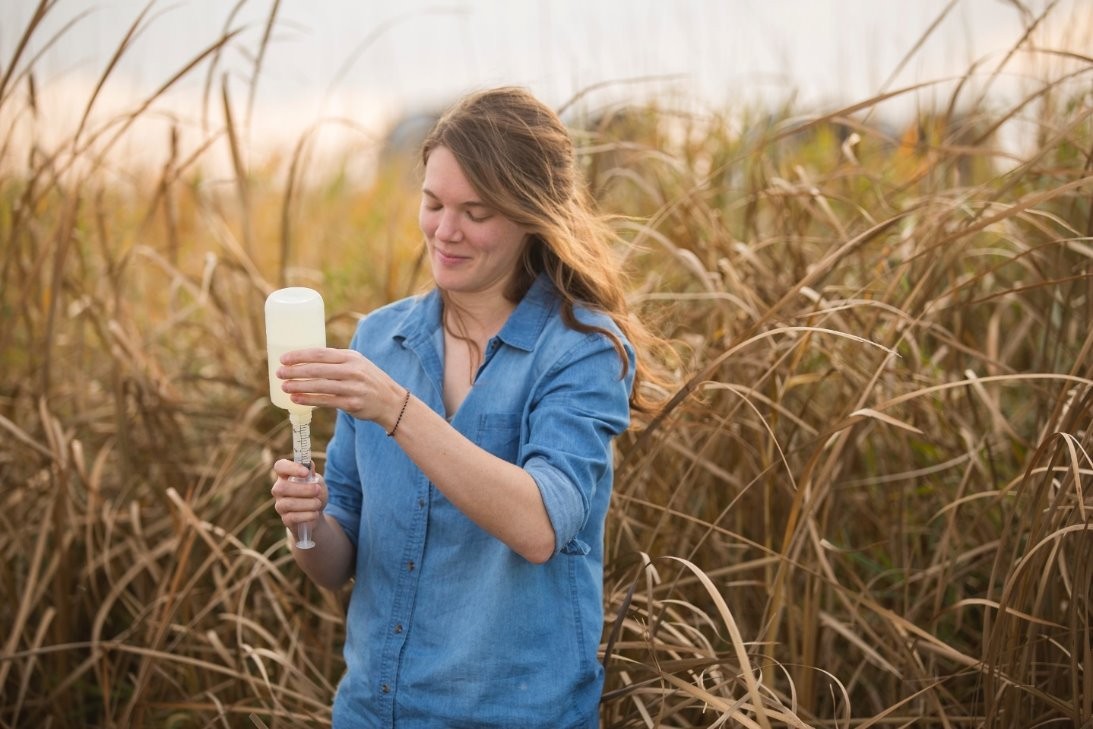
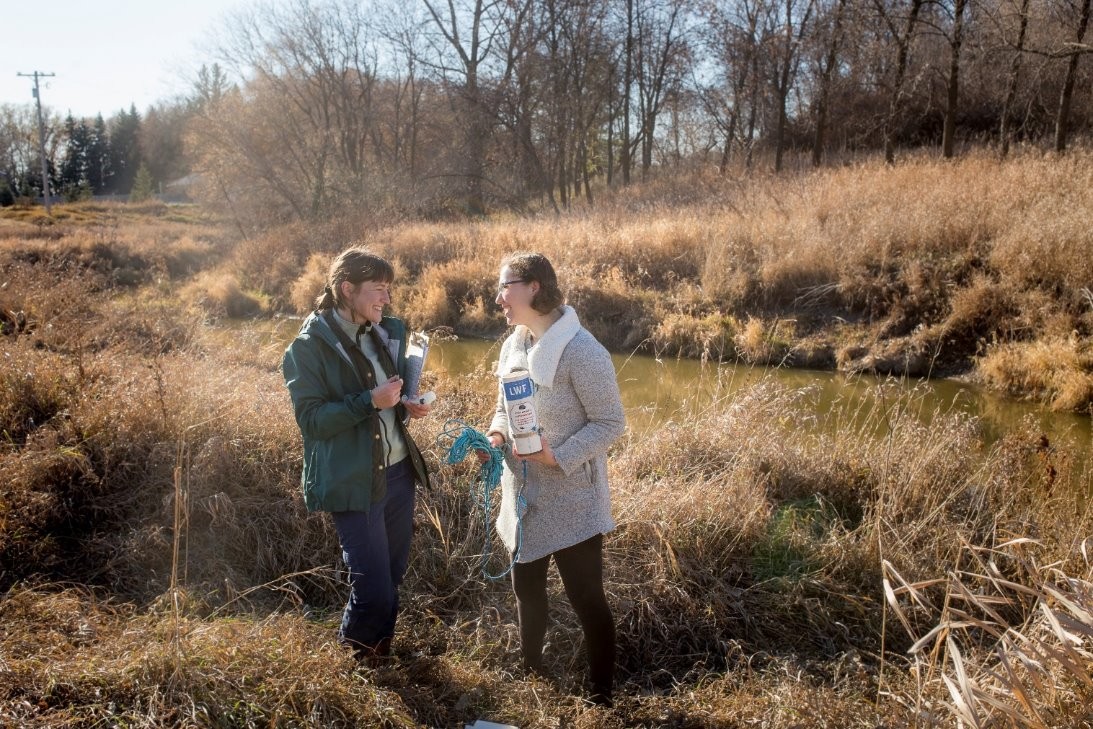
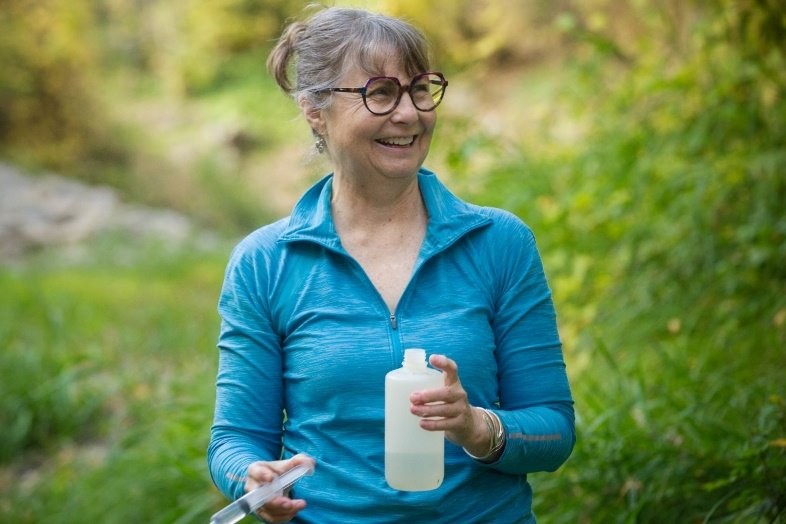
Despite widespread recognition of the importance of healthy watersheds in providing clean drinking water, preserving nature, and supporting climate resilience, it continues to be difficult to financially justify the scale of investment necessary for watershed stewardship and restoration efforts. Working for Watersheds is helping to develop a ‘made-in-Canada’ narrative around watersheds as economic and employment drivers, strengthening the case for government and industry investment and involvement.

